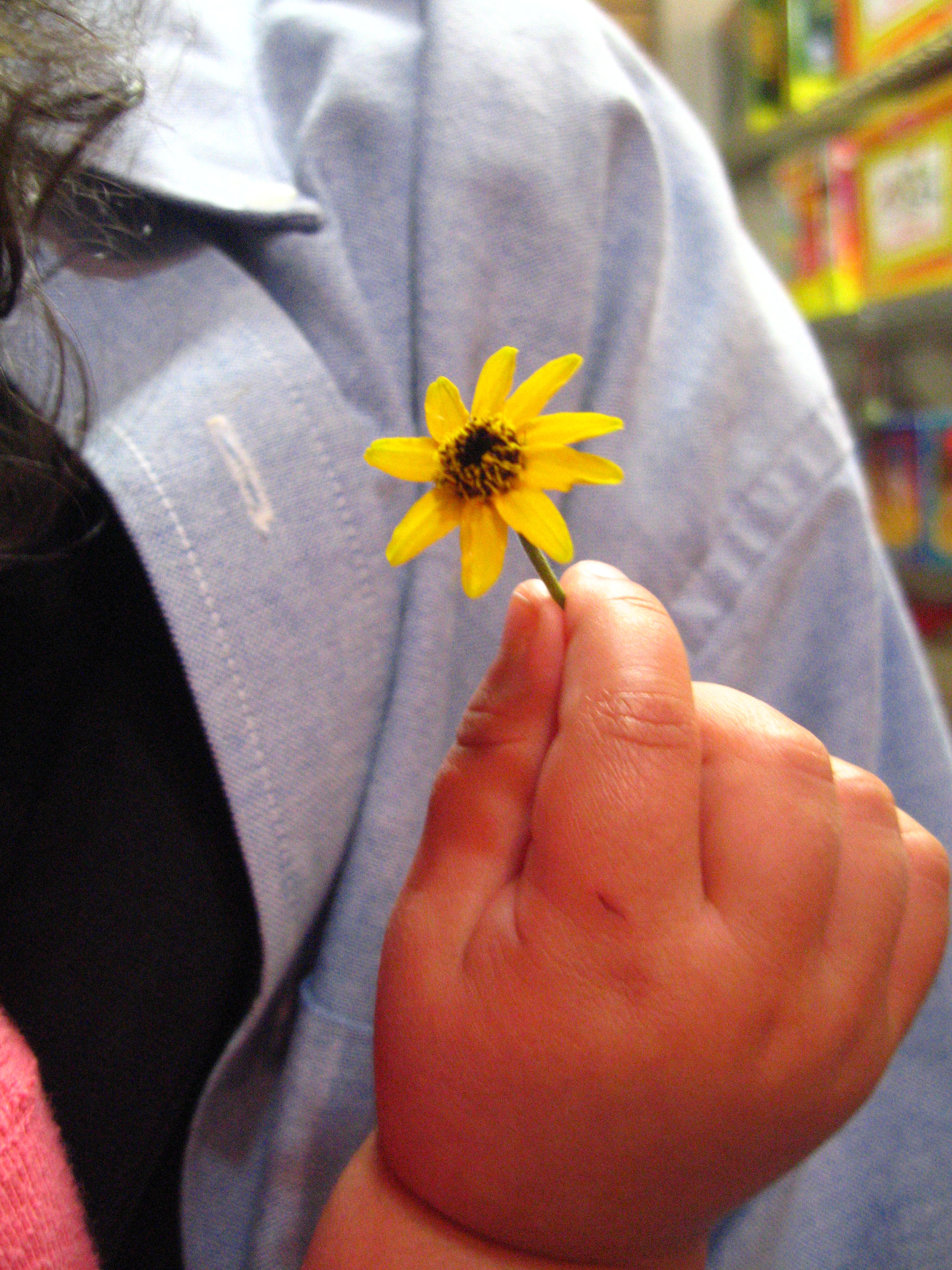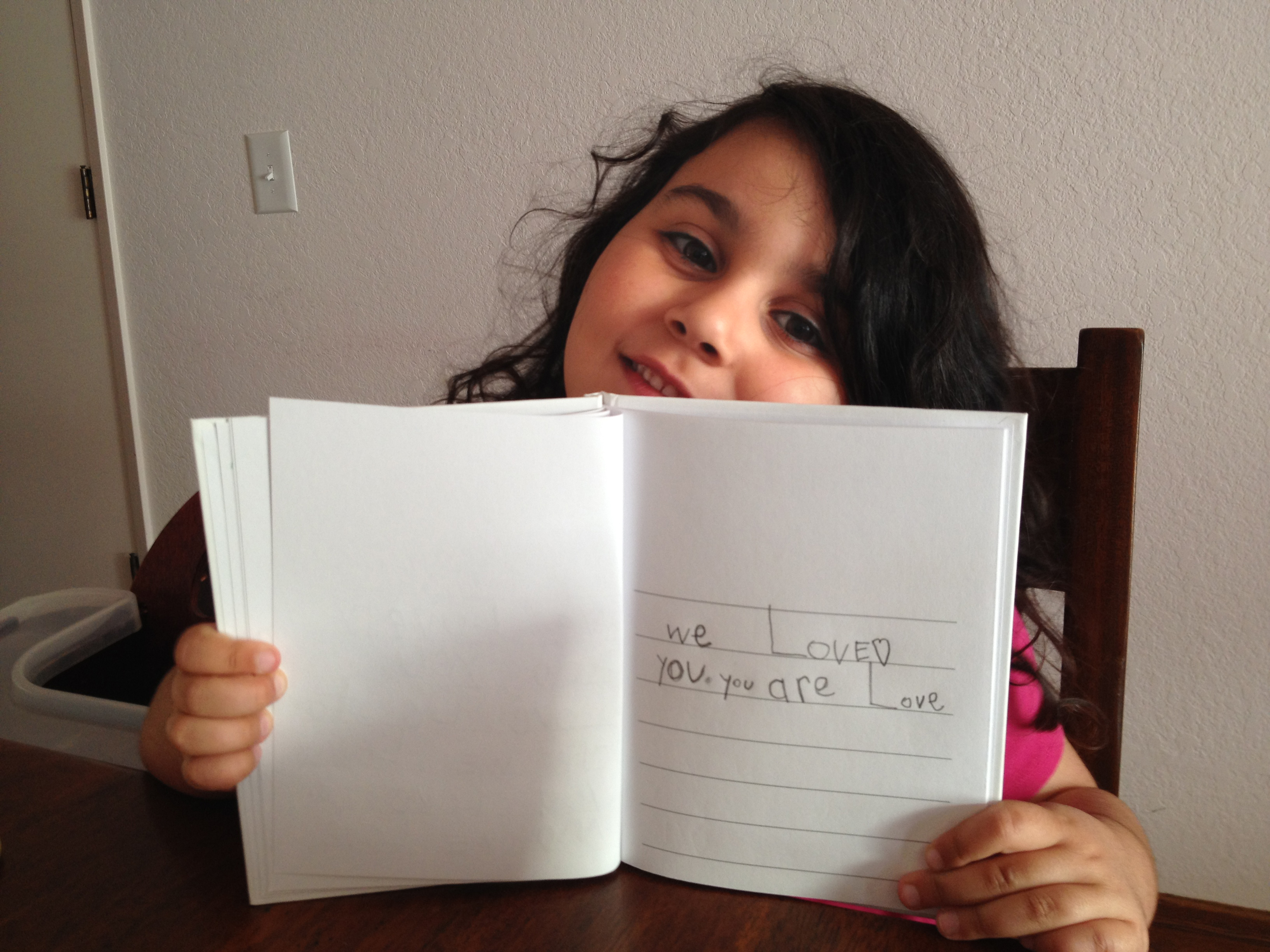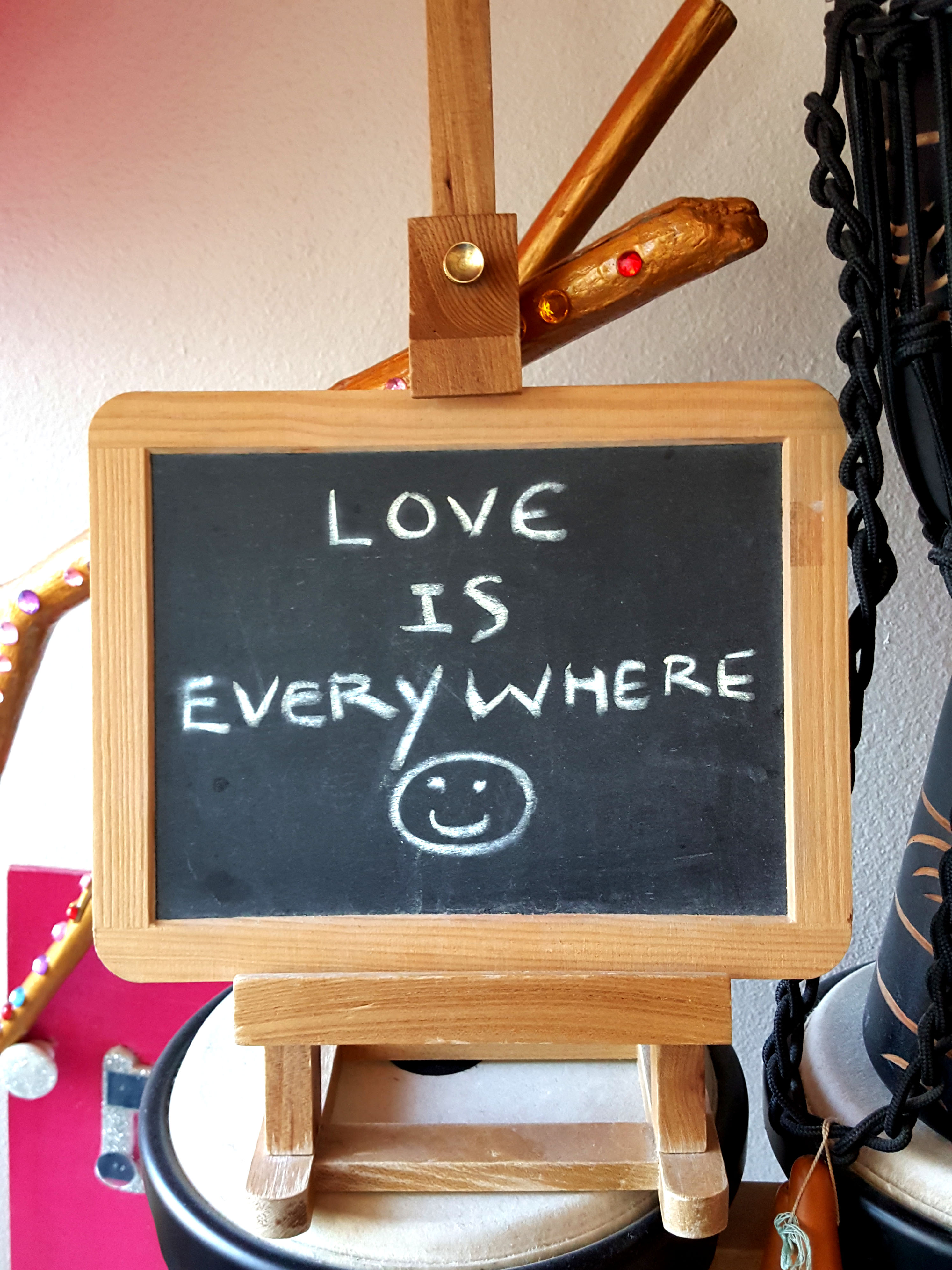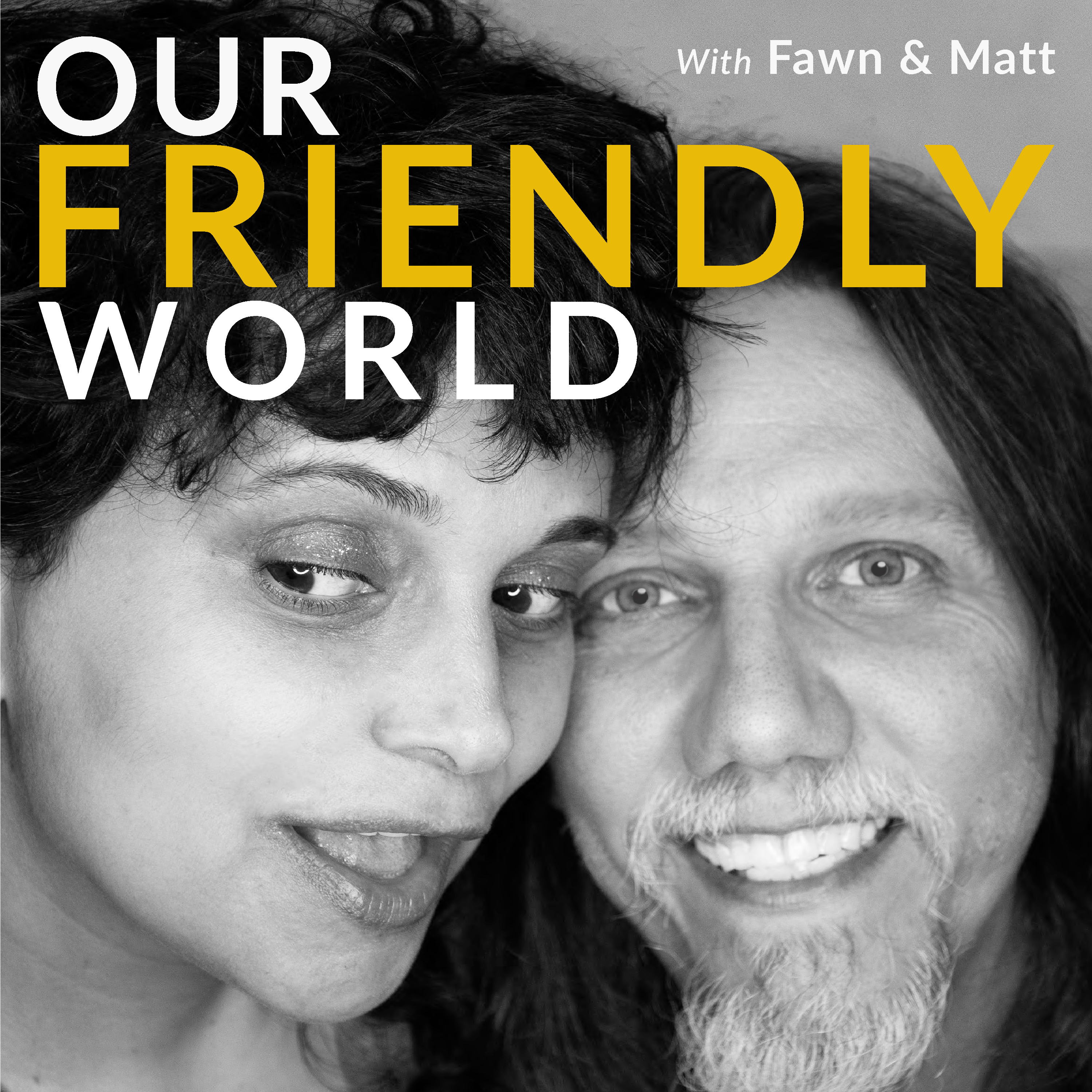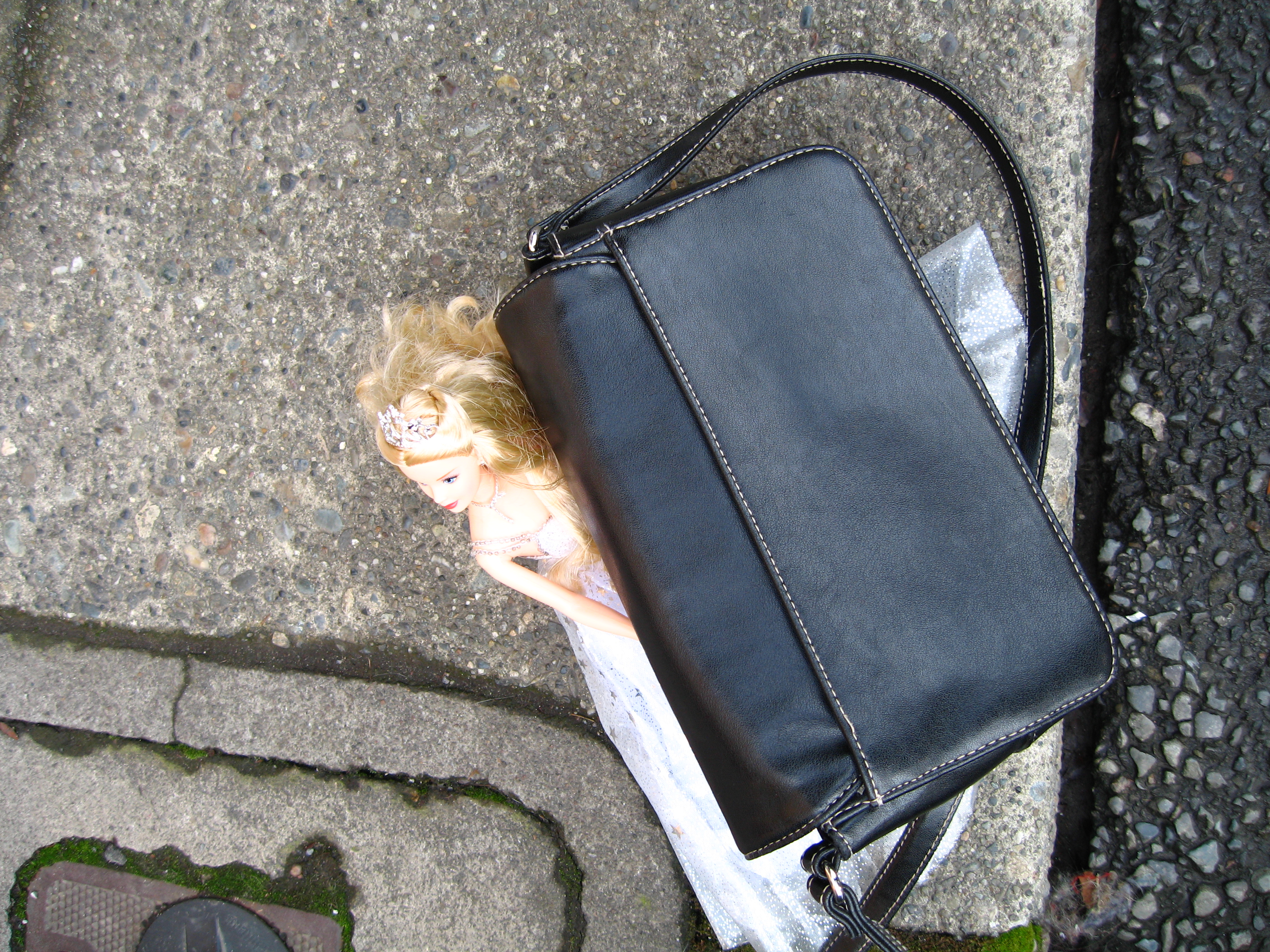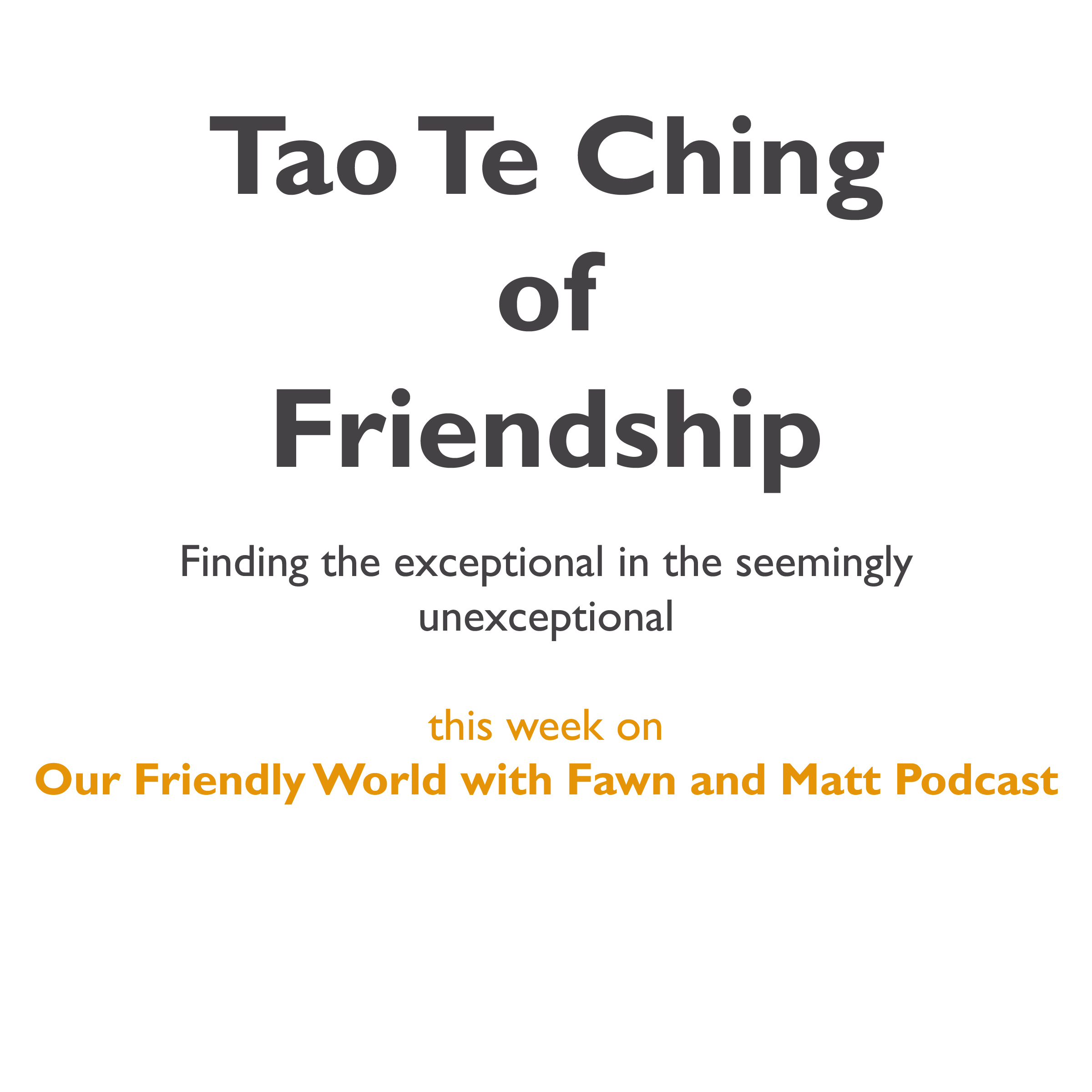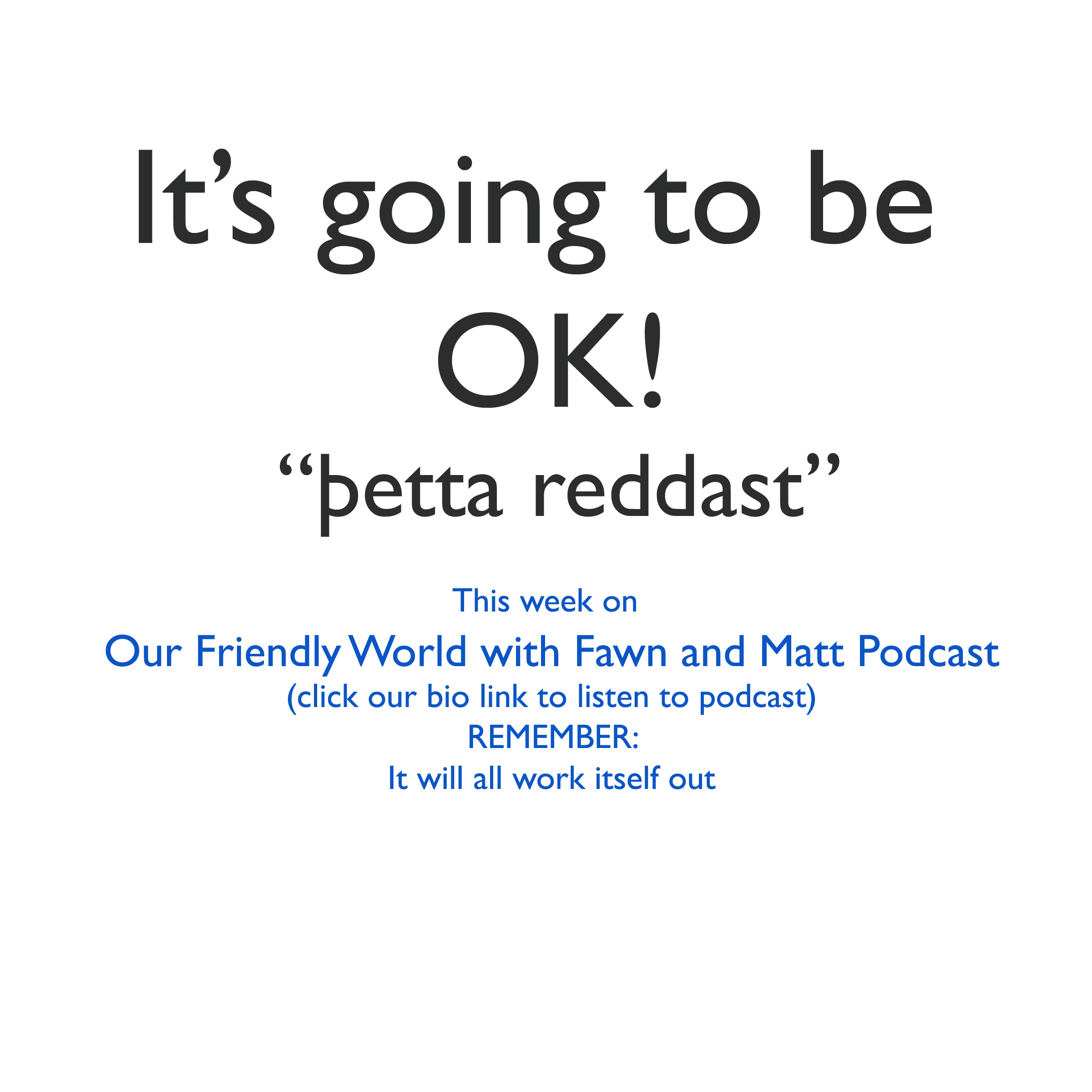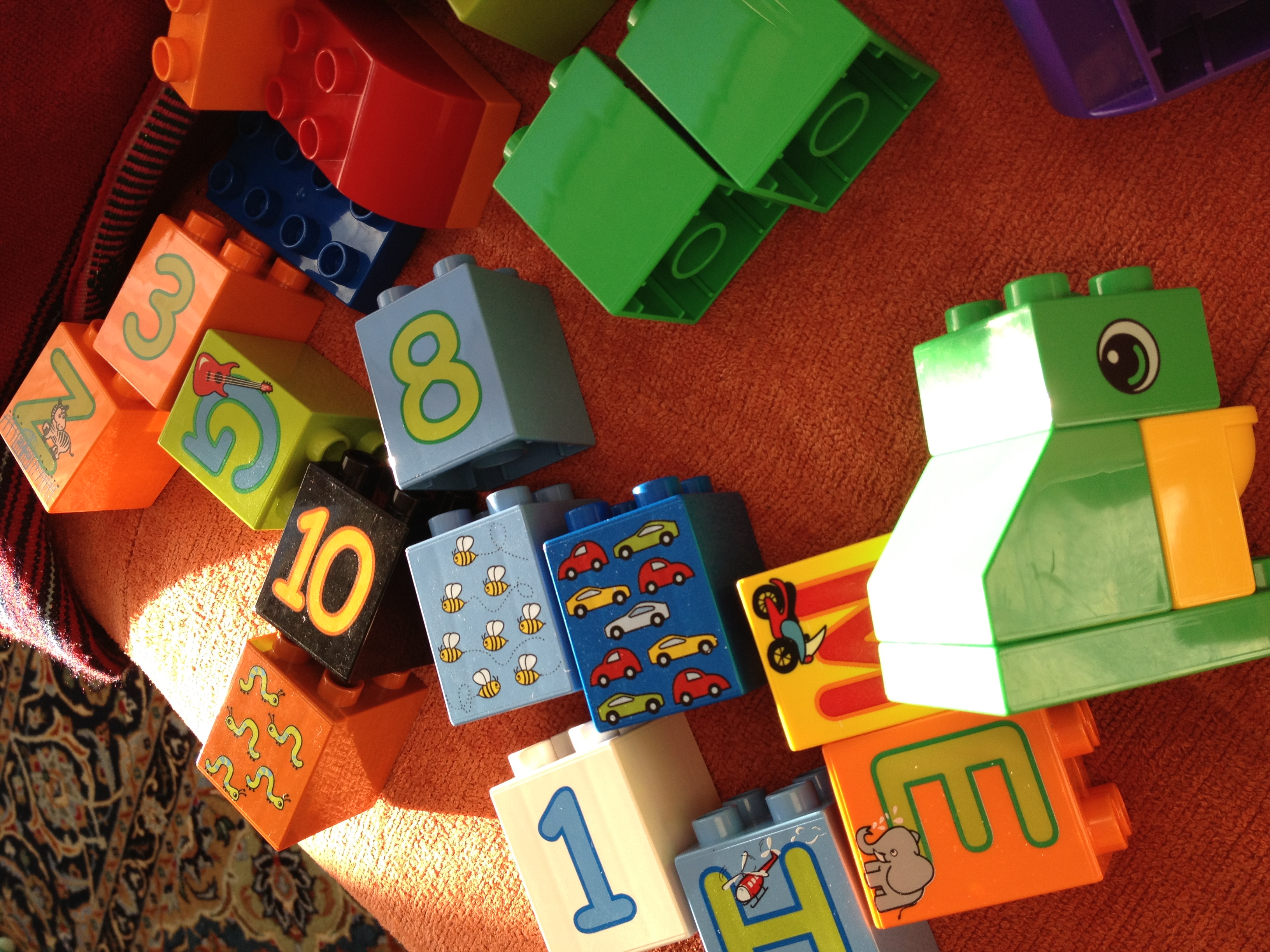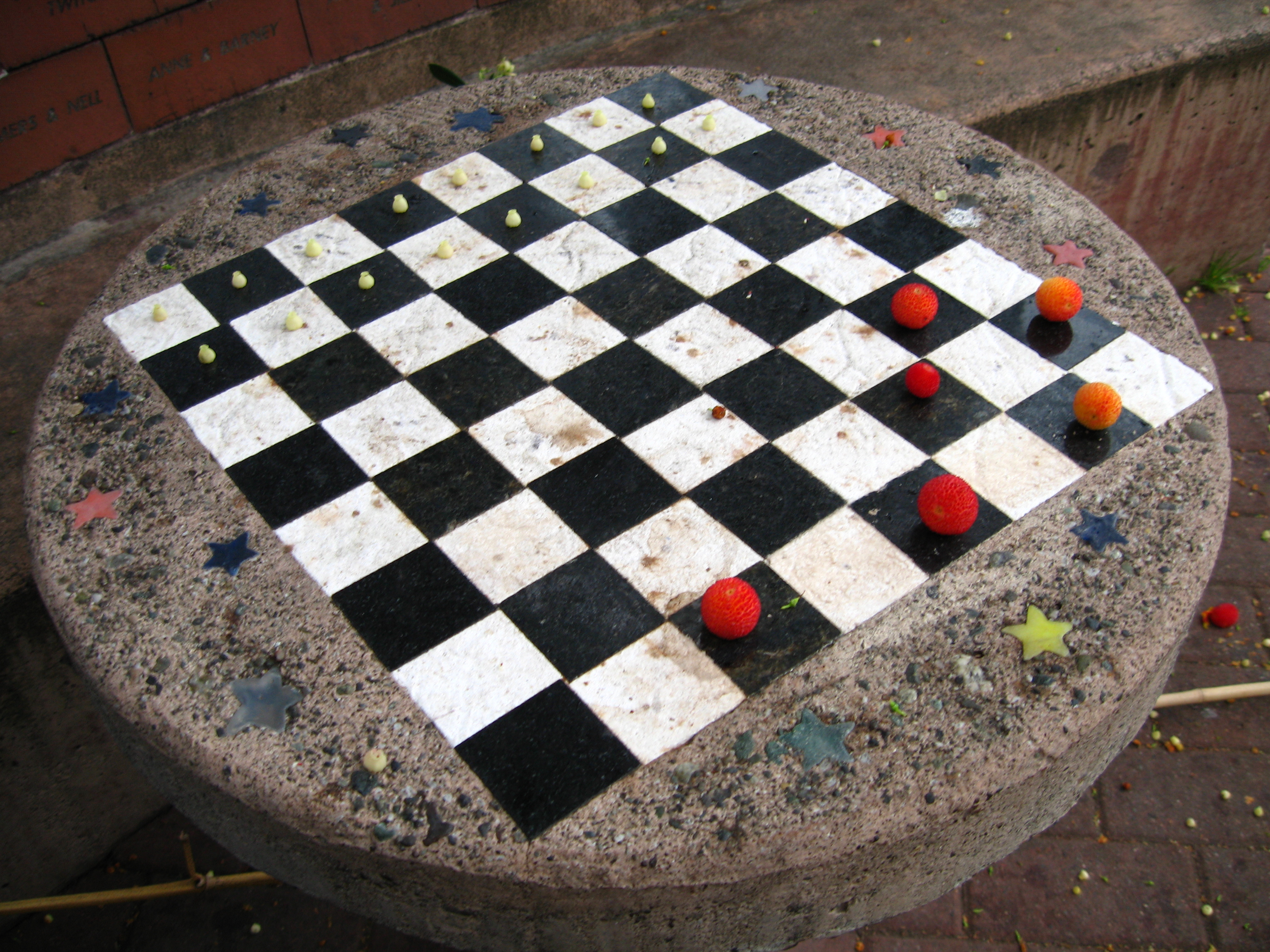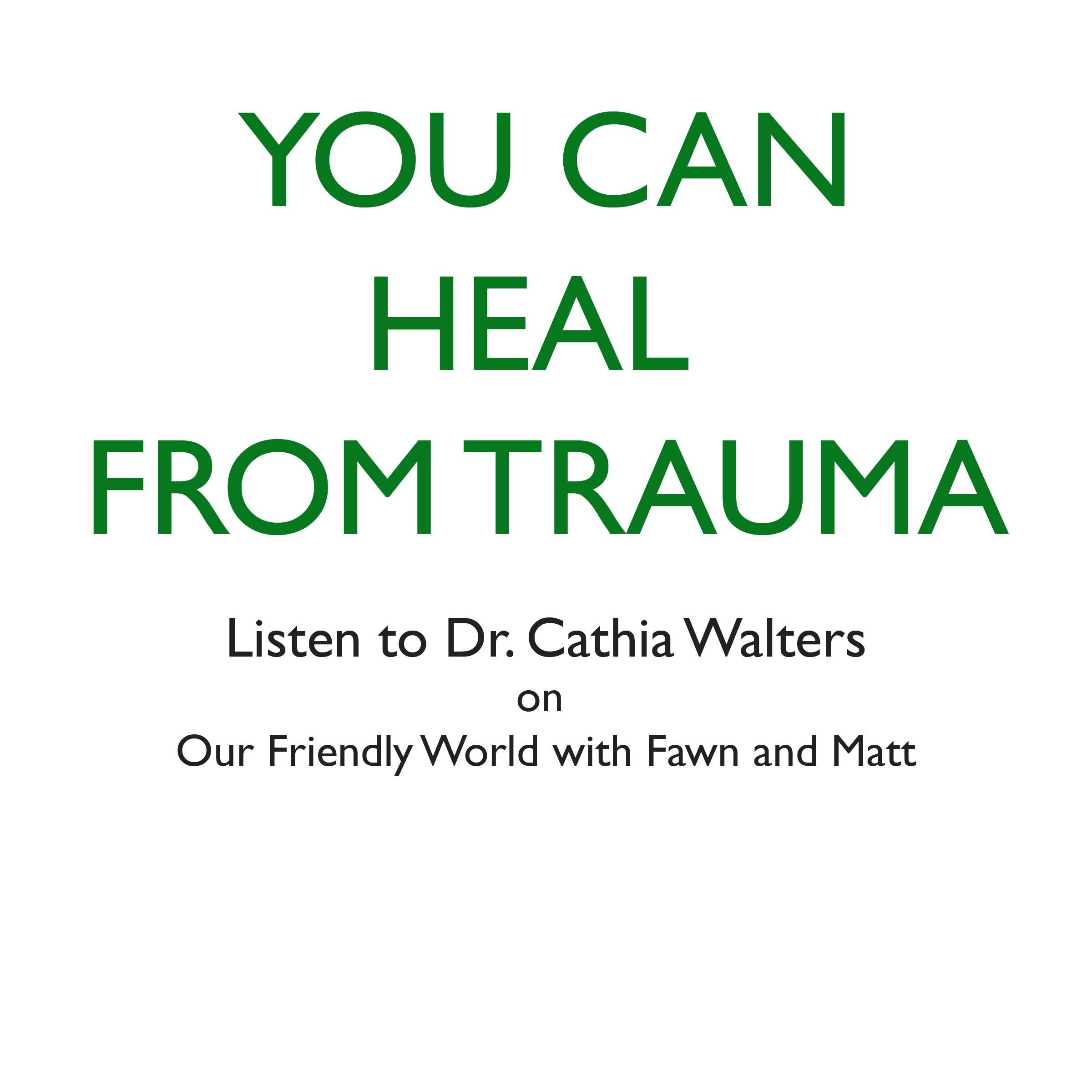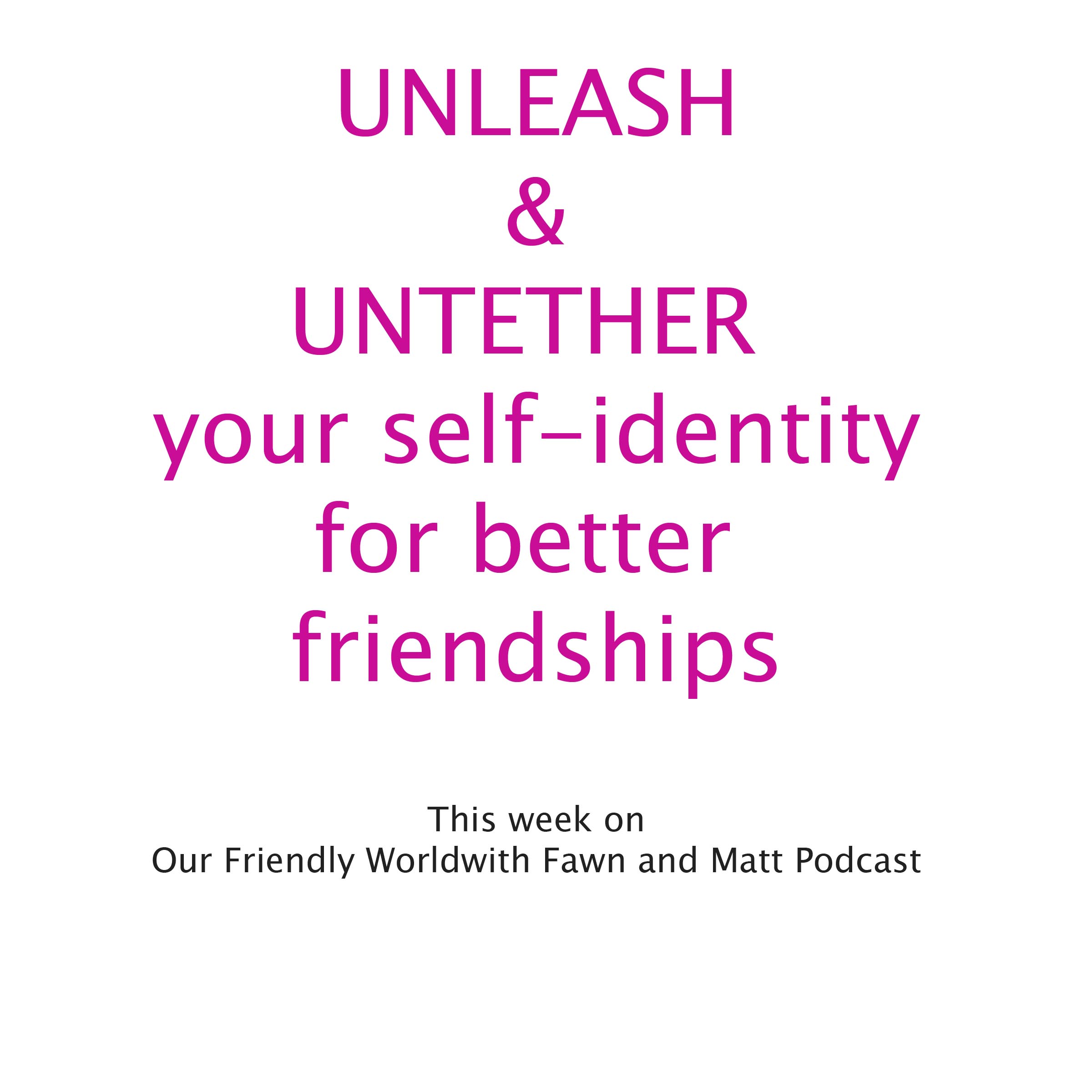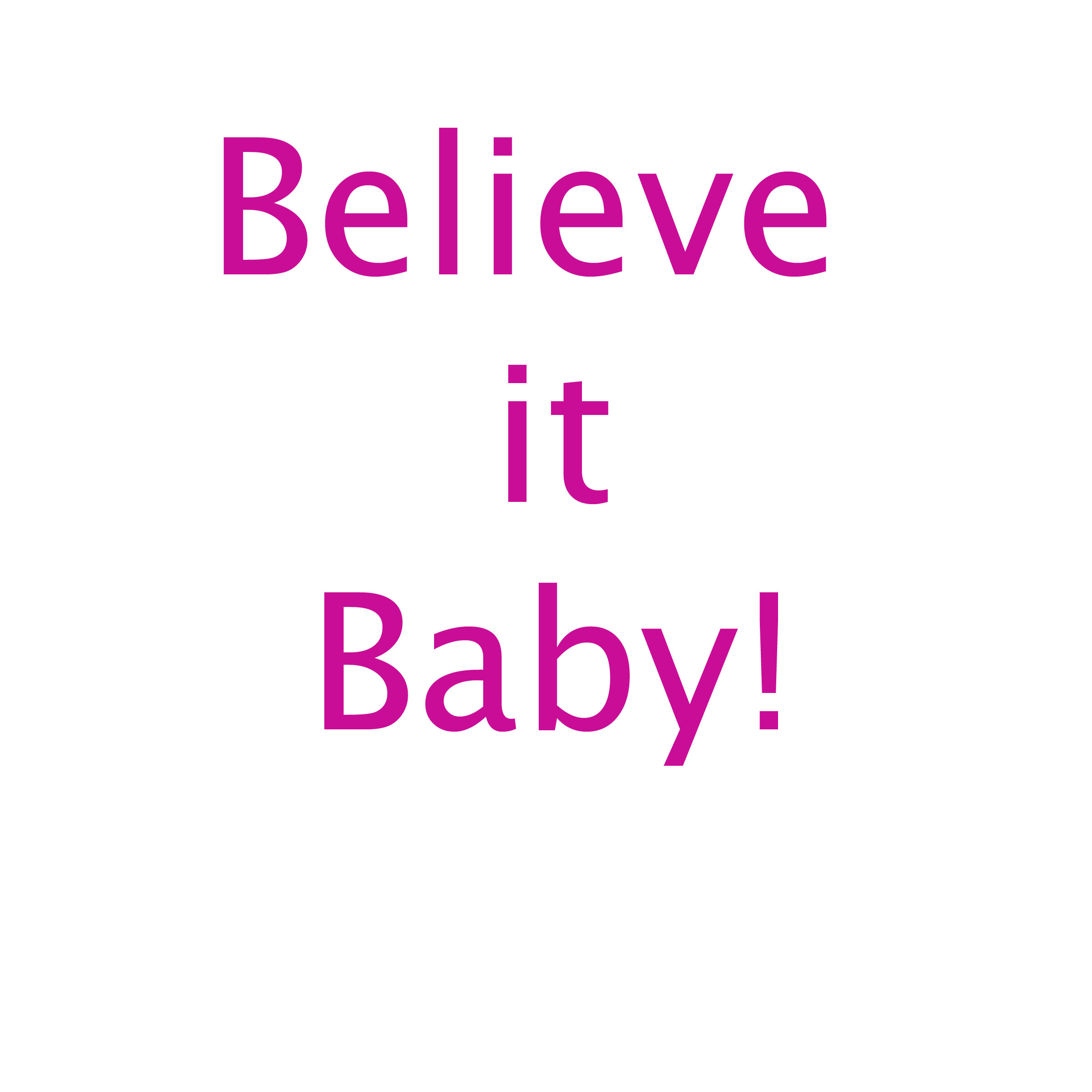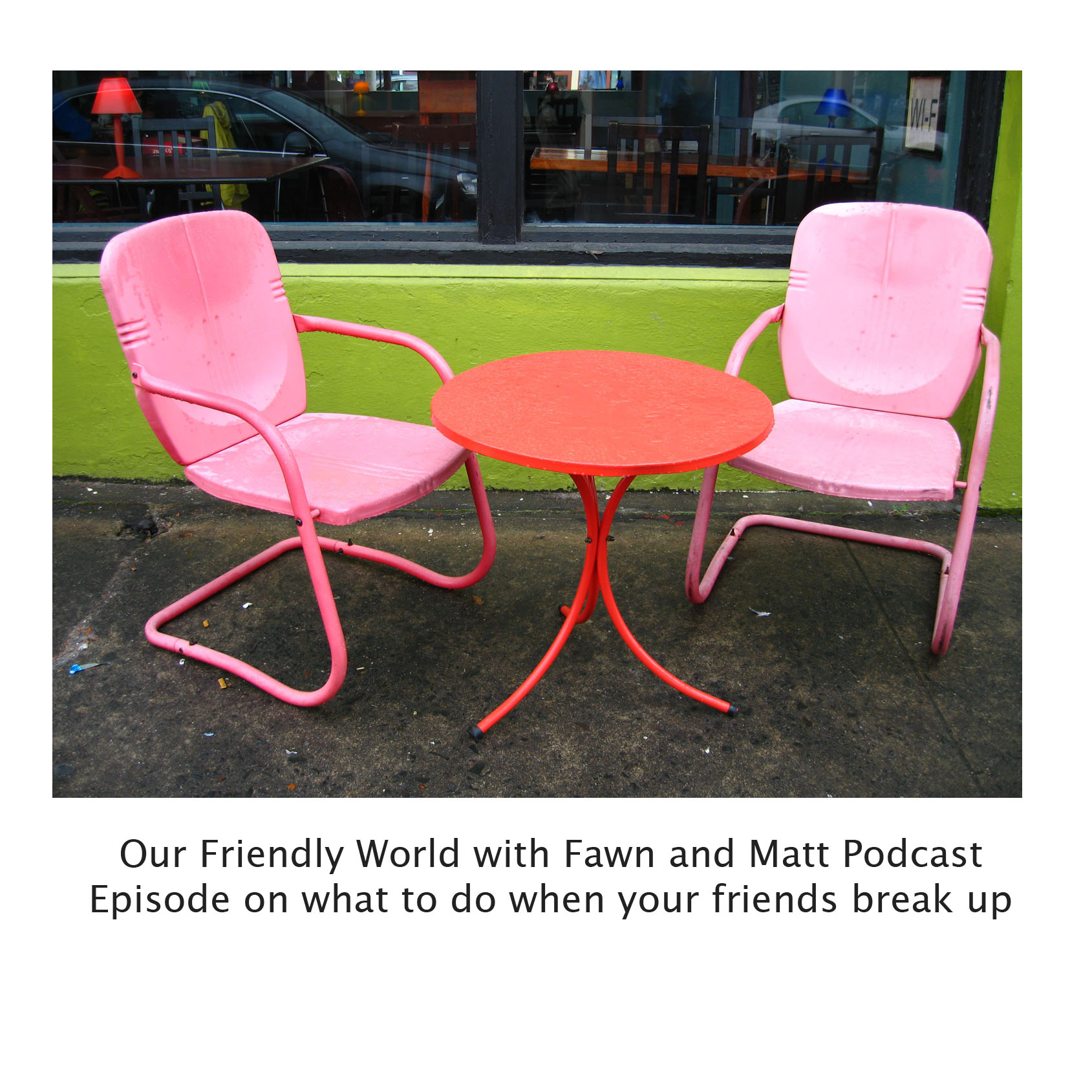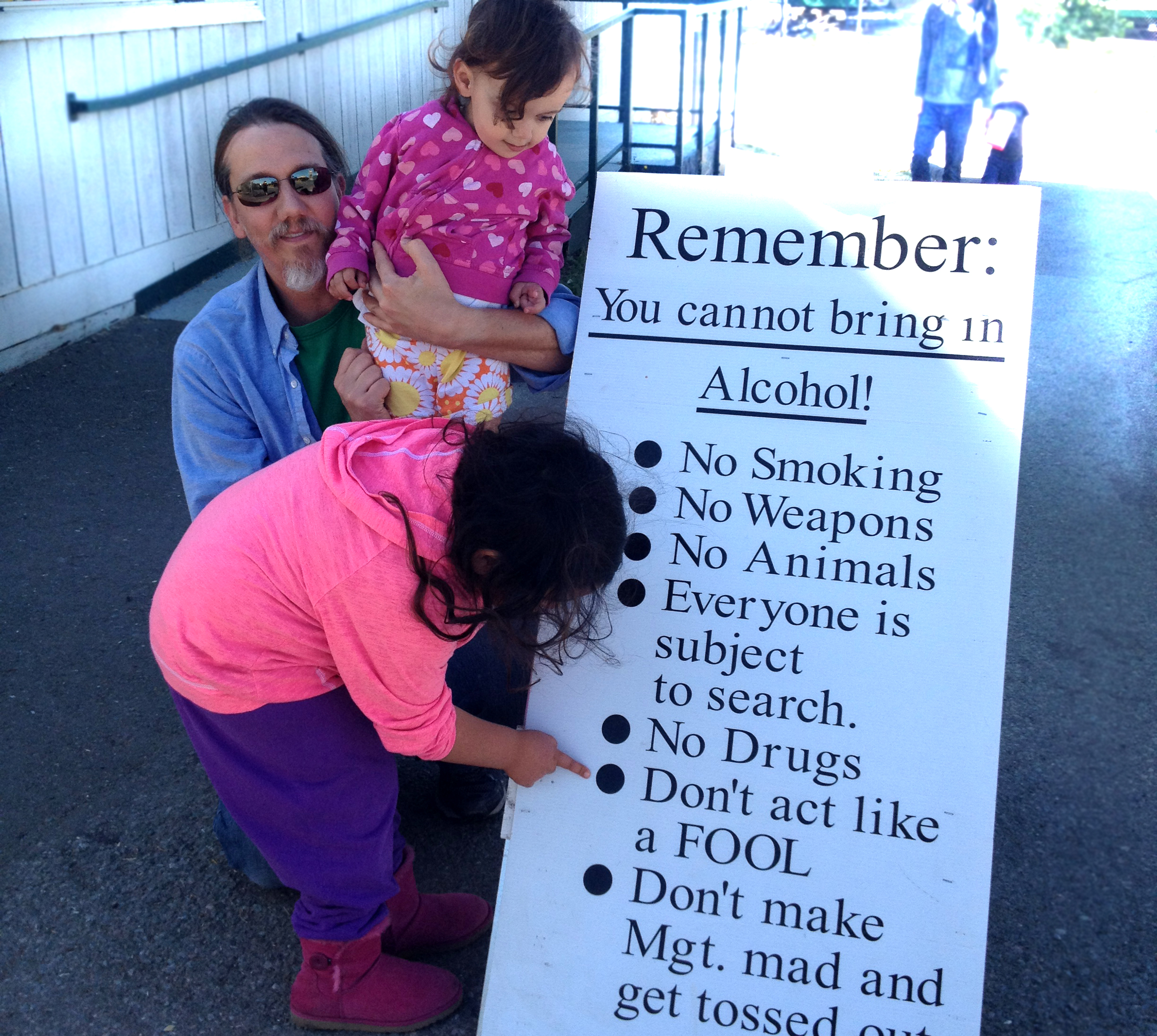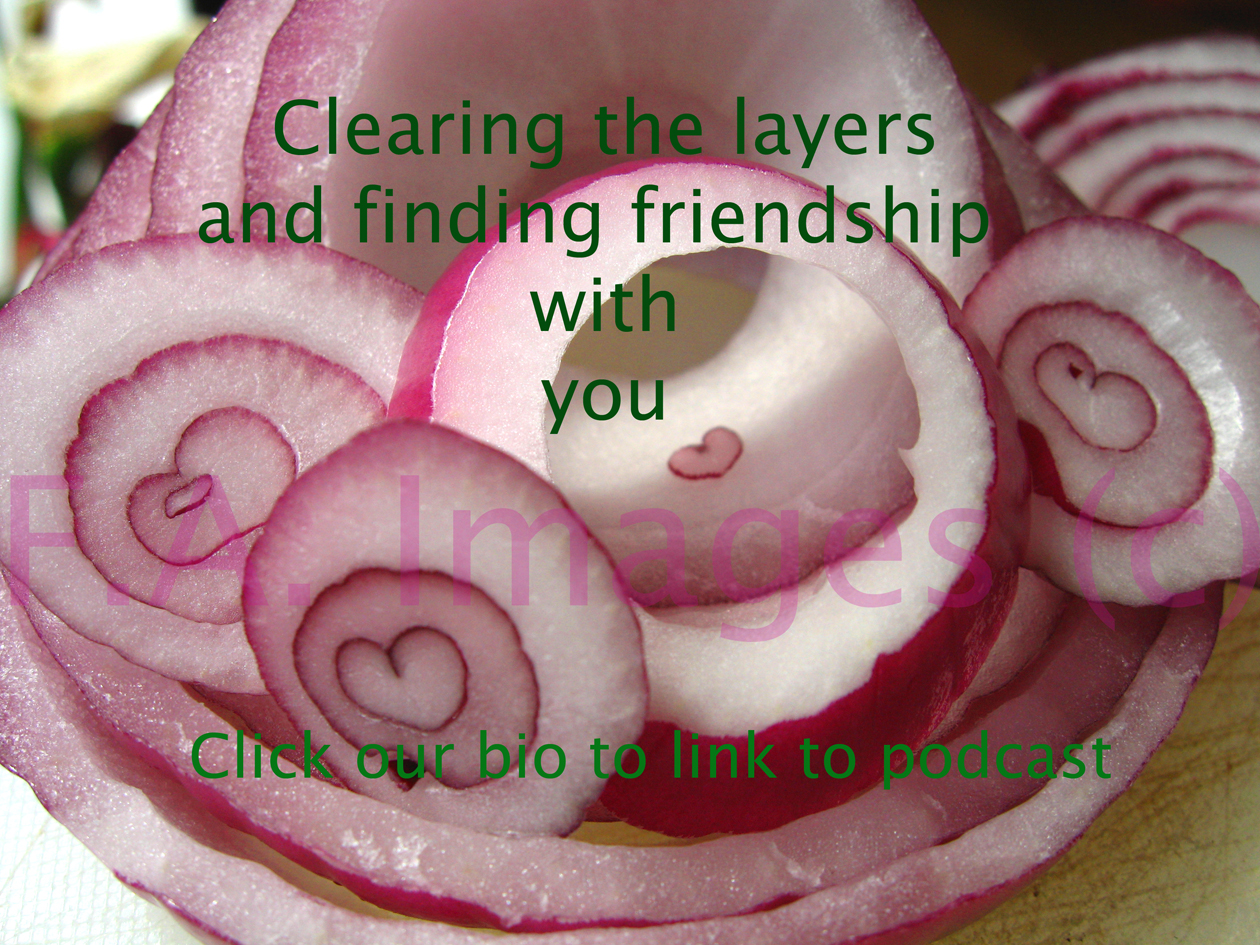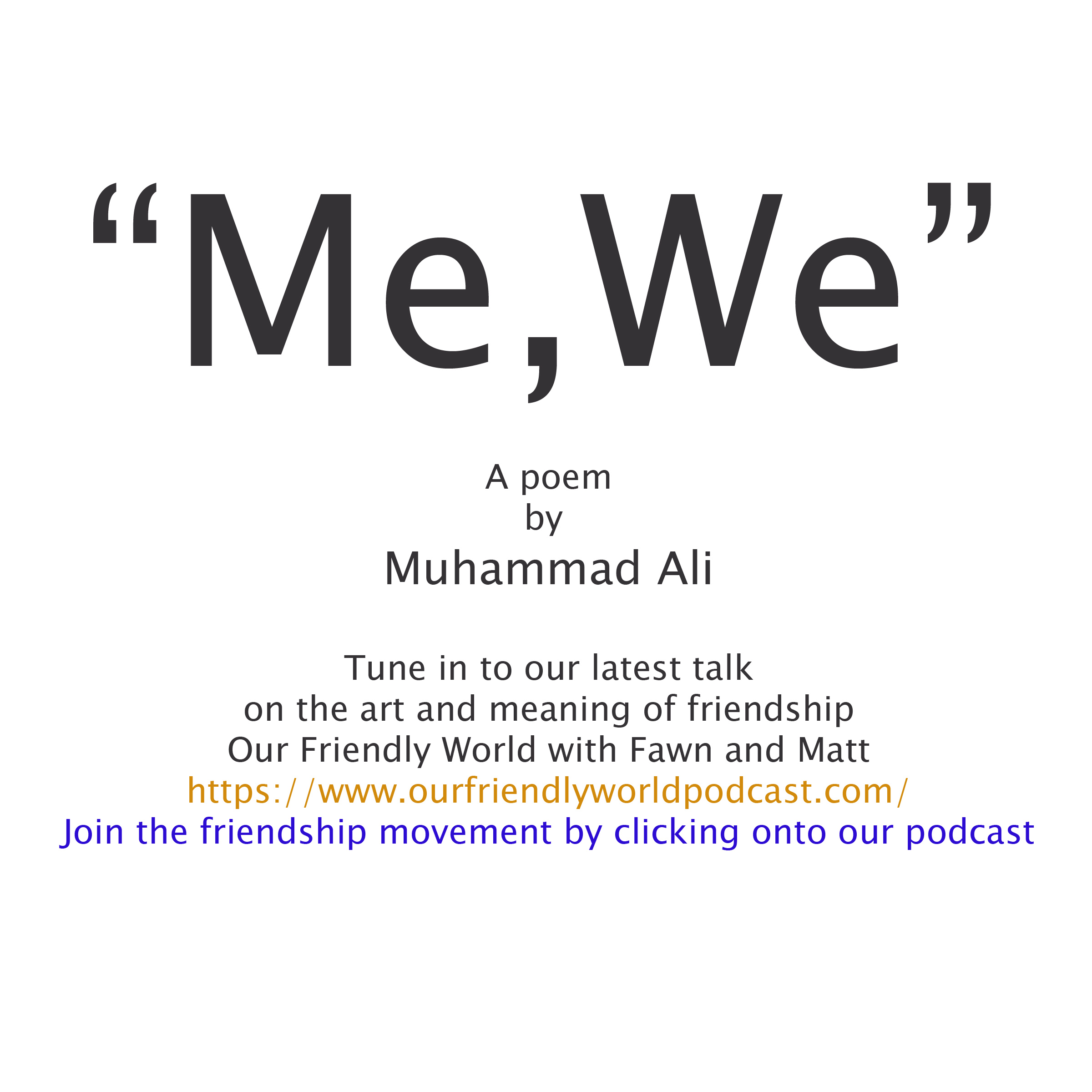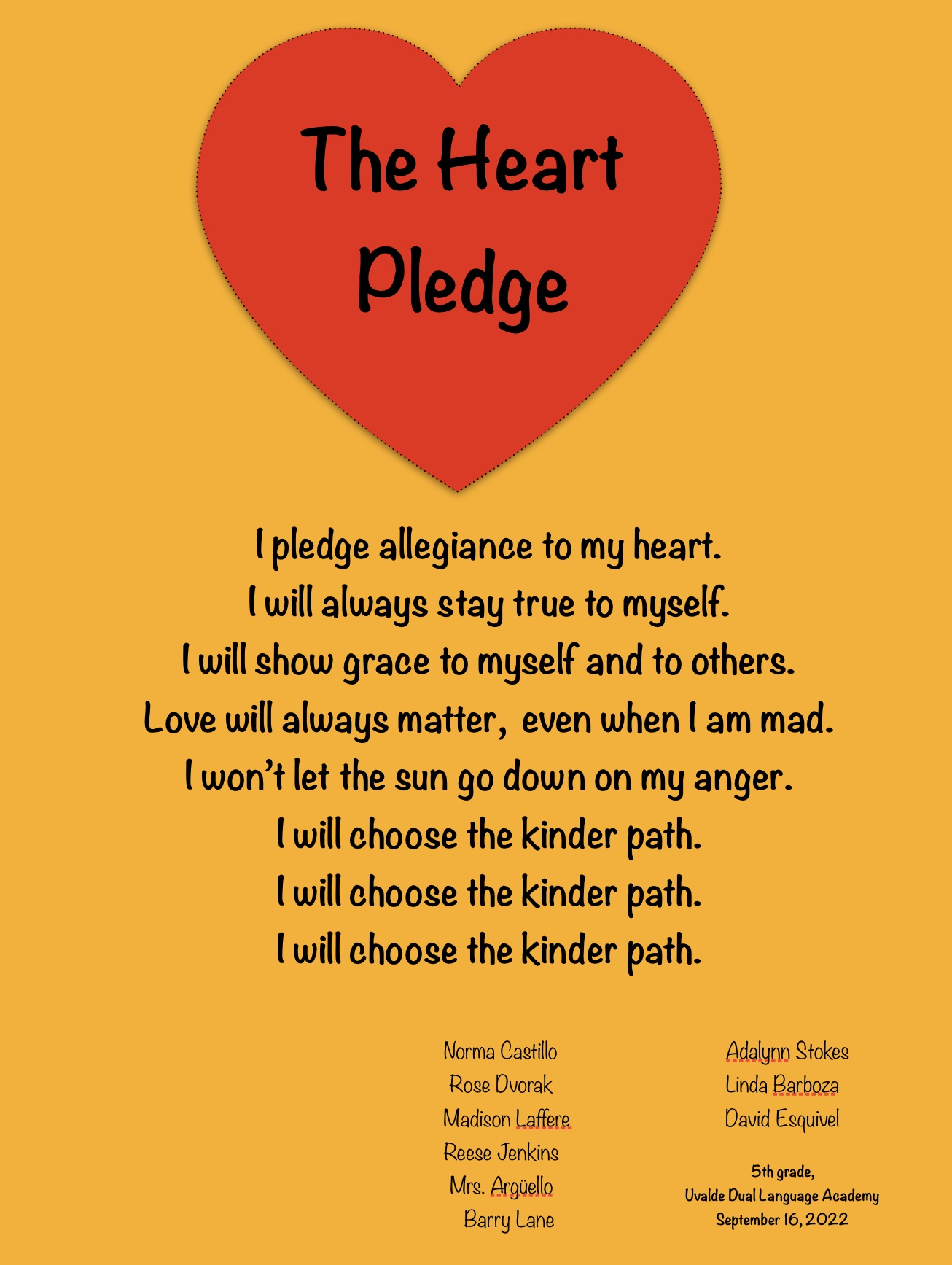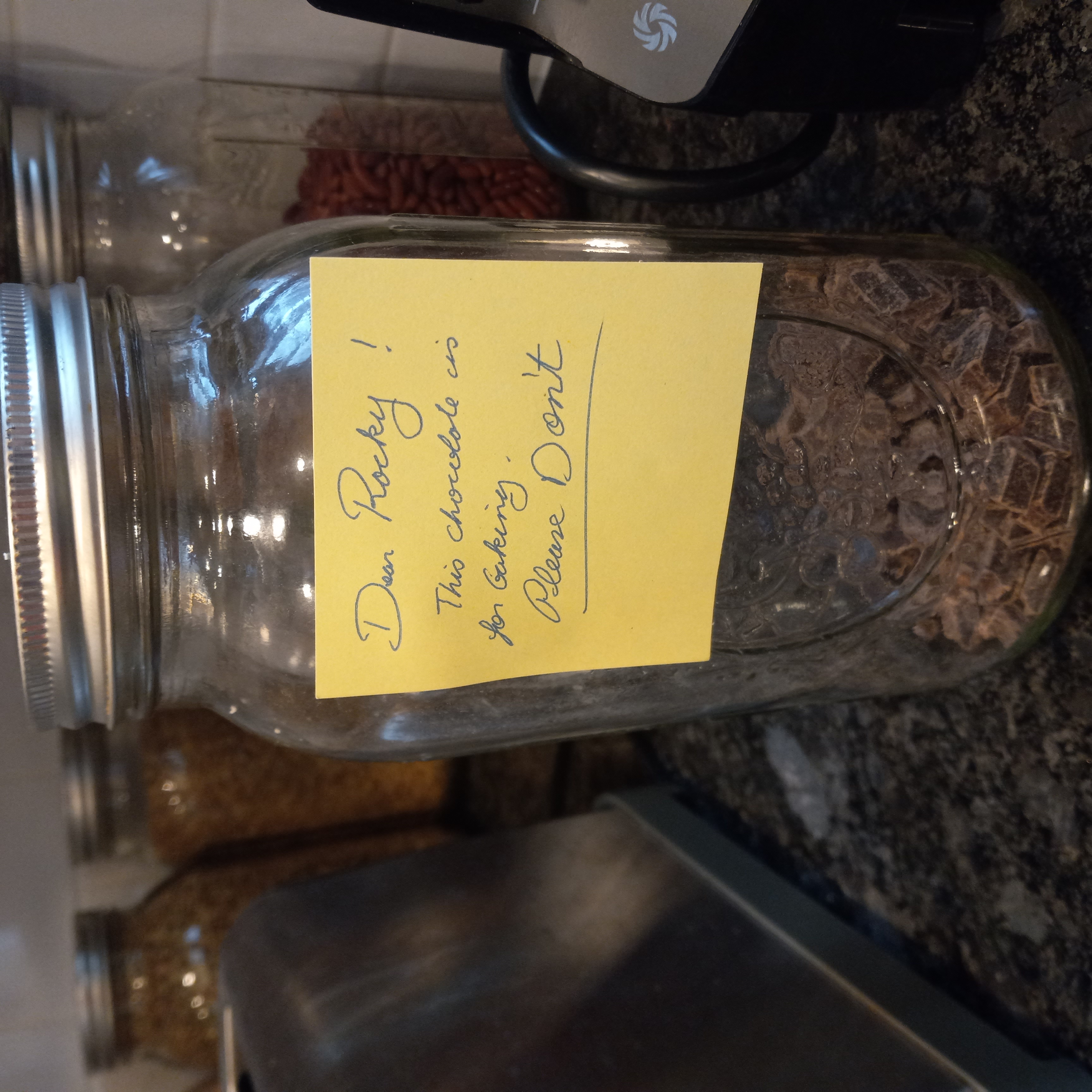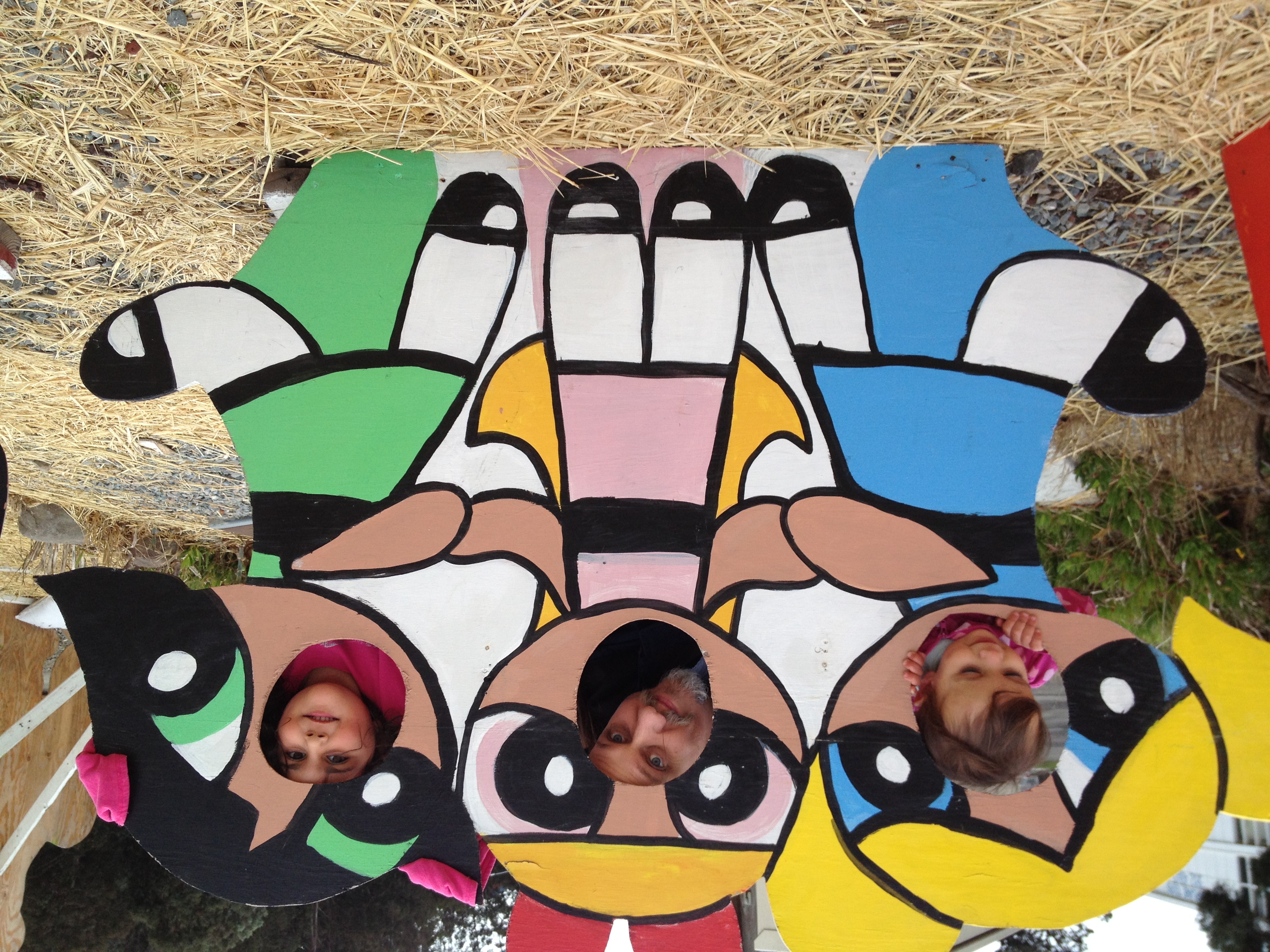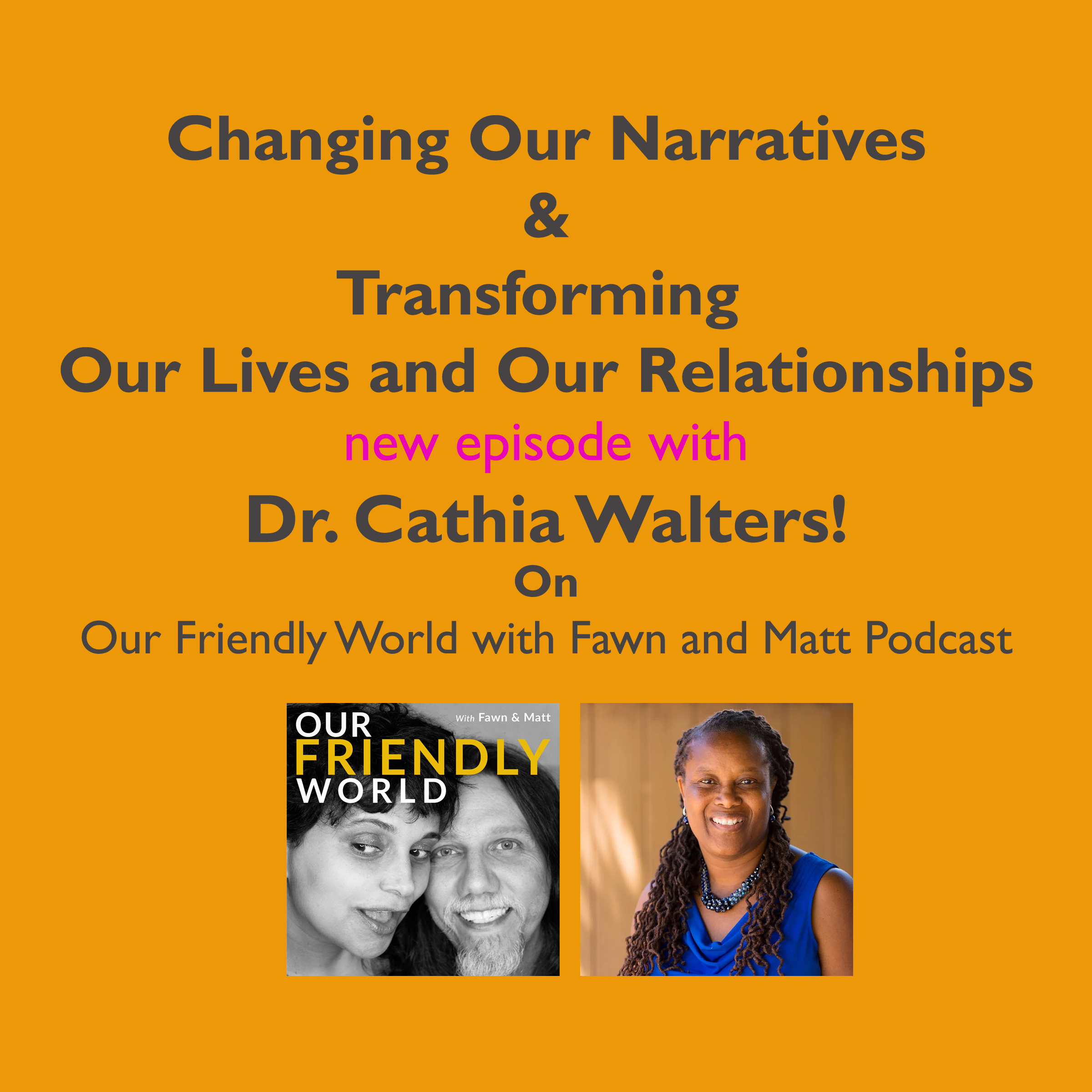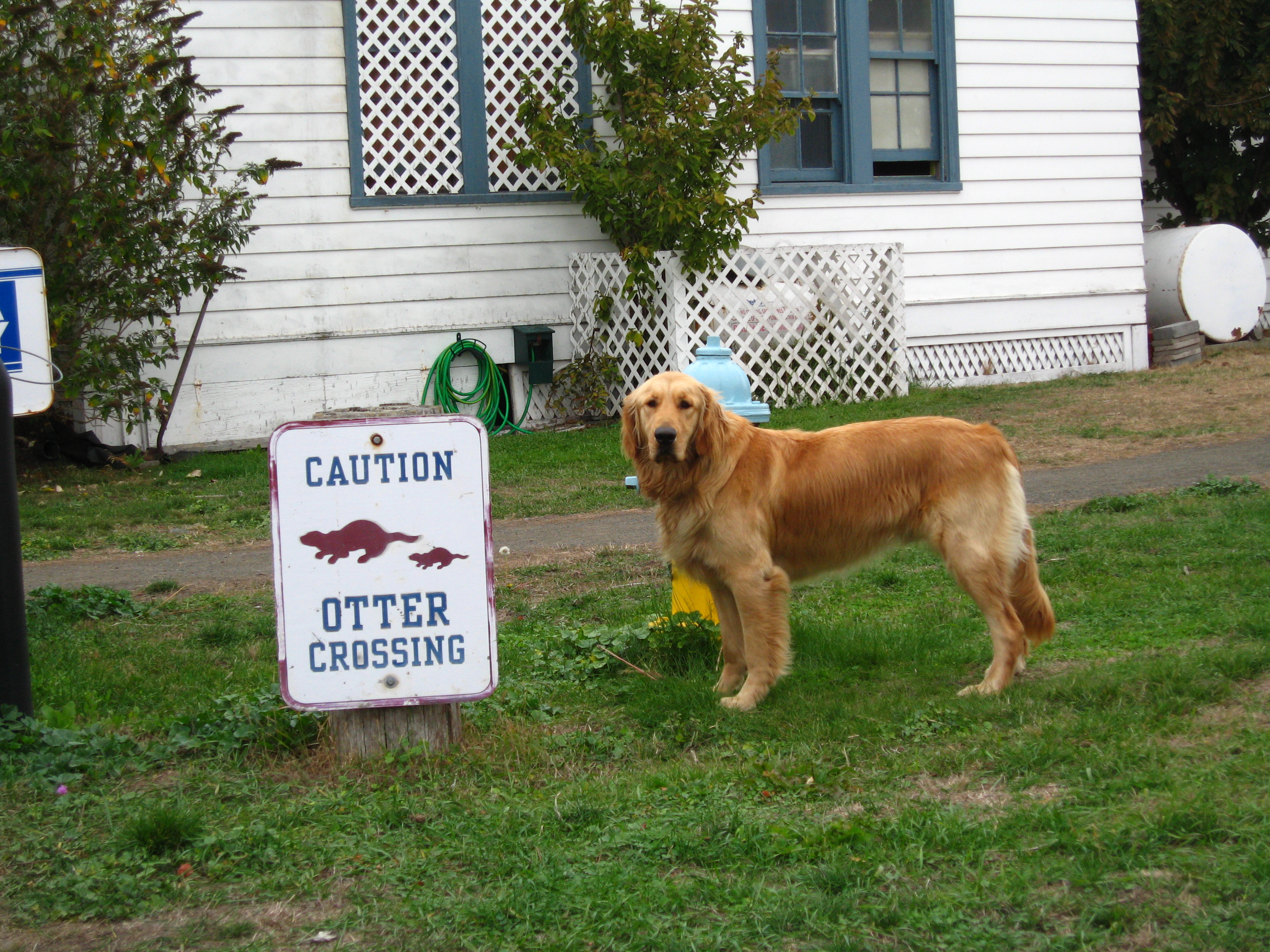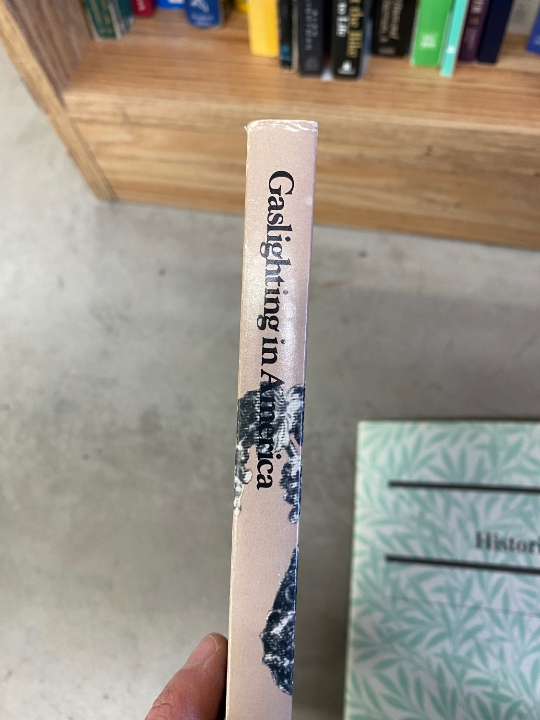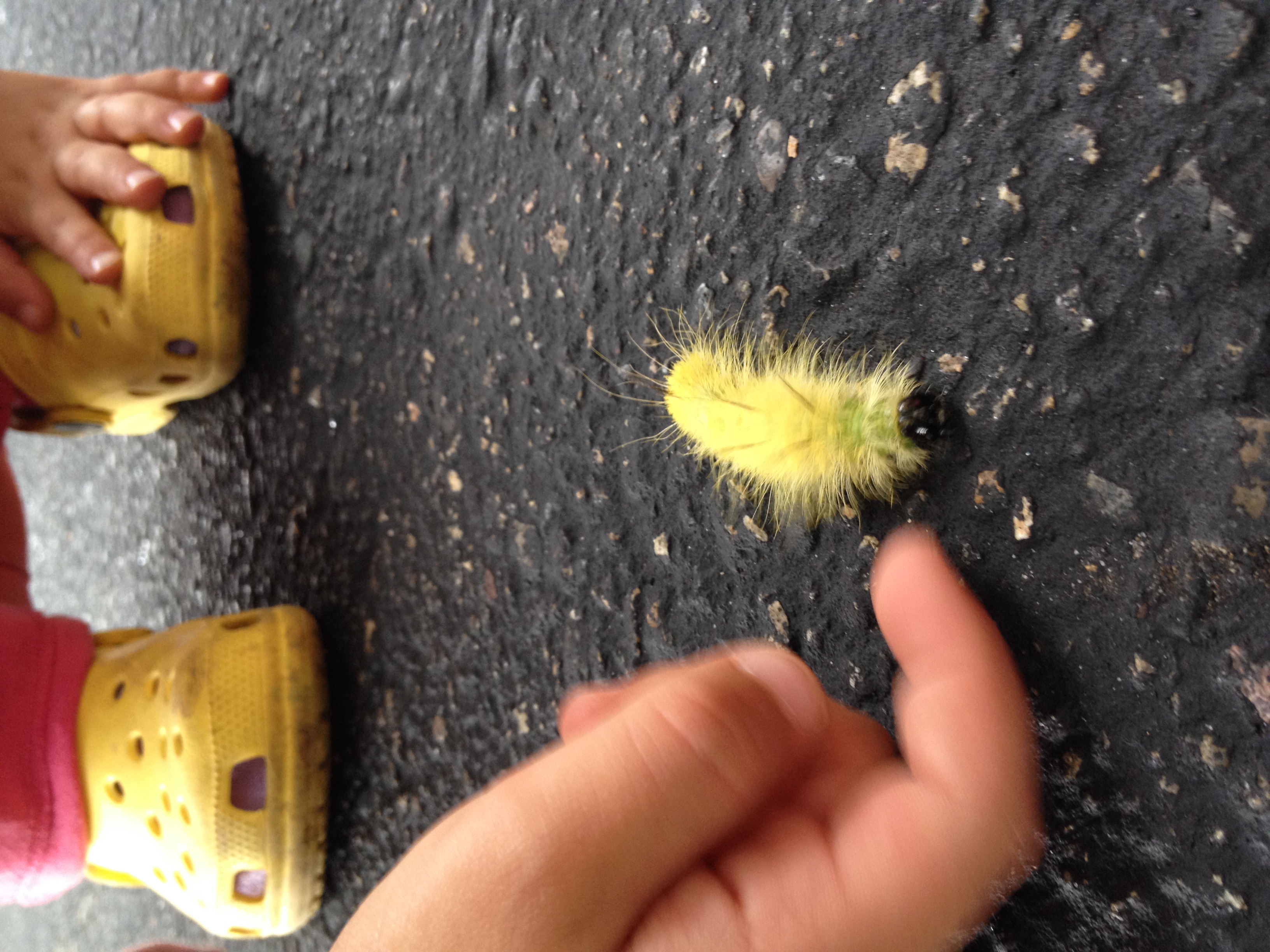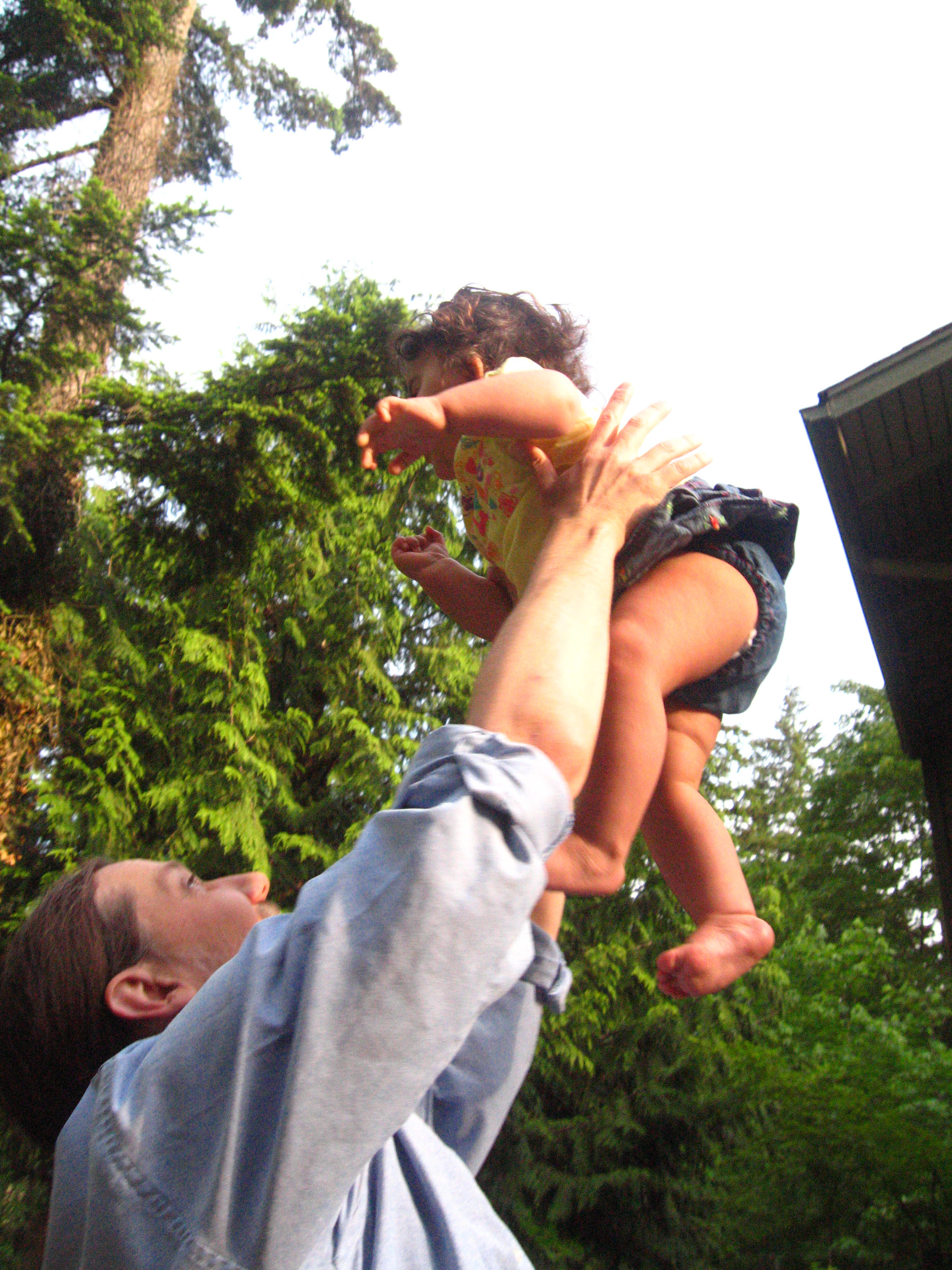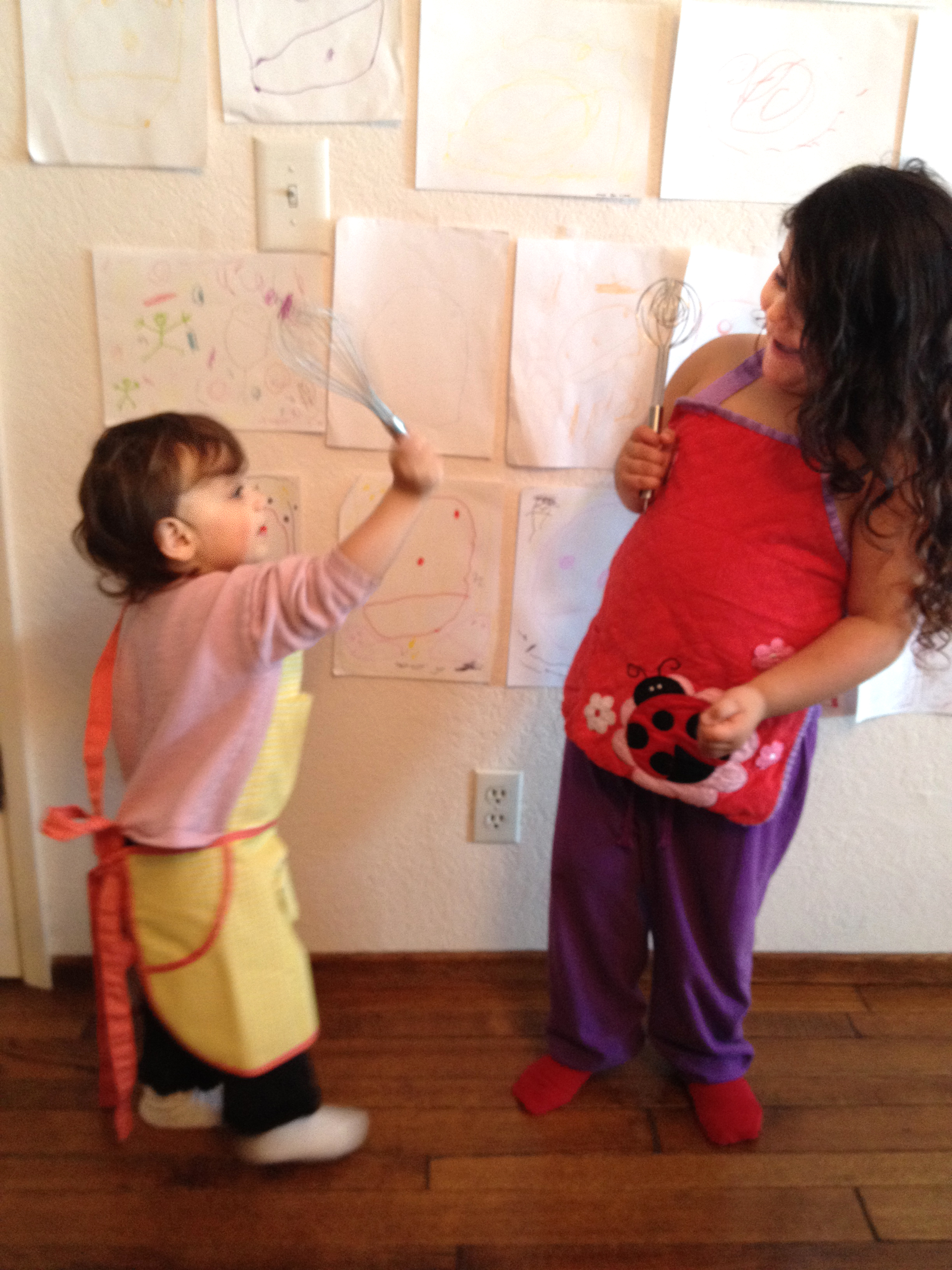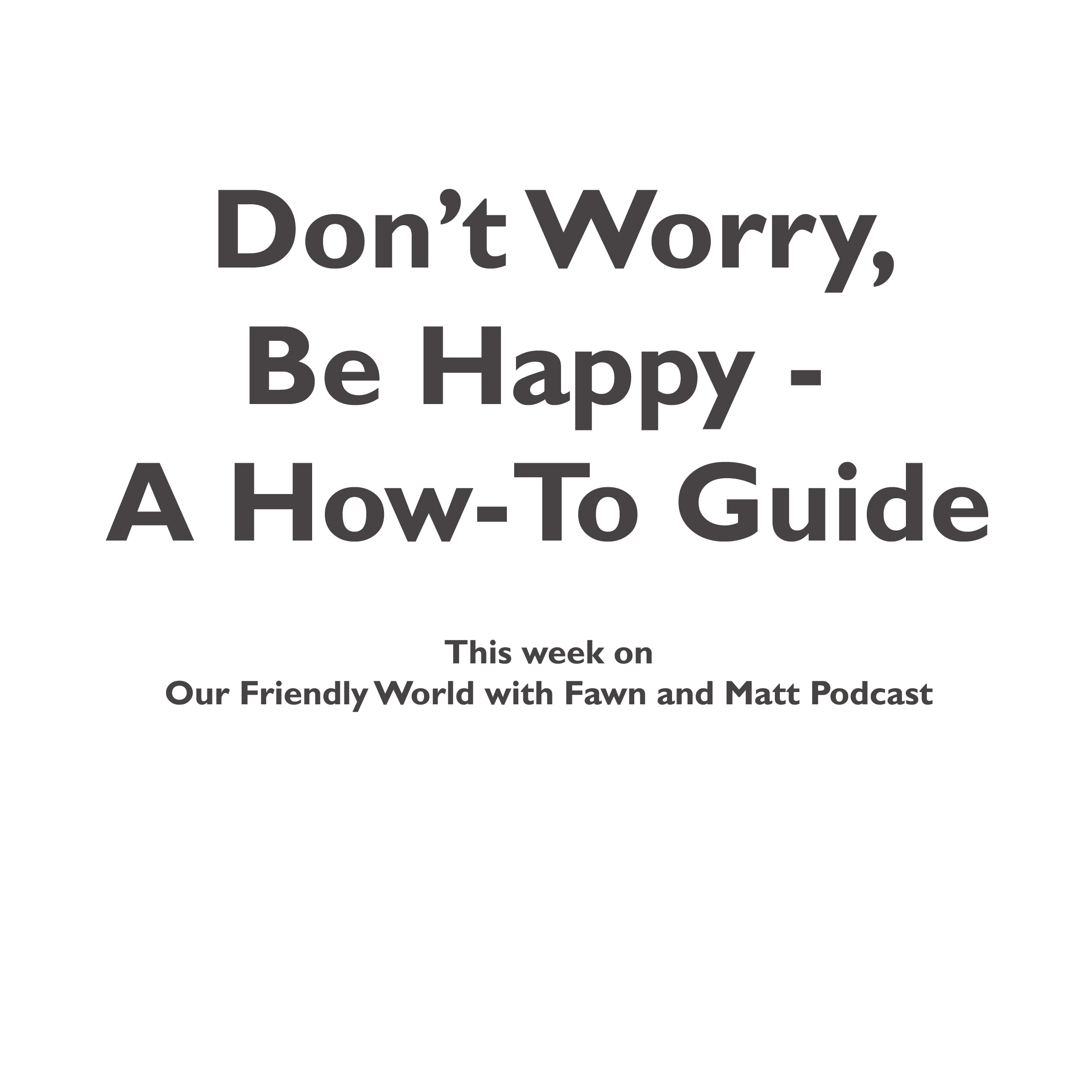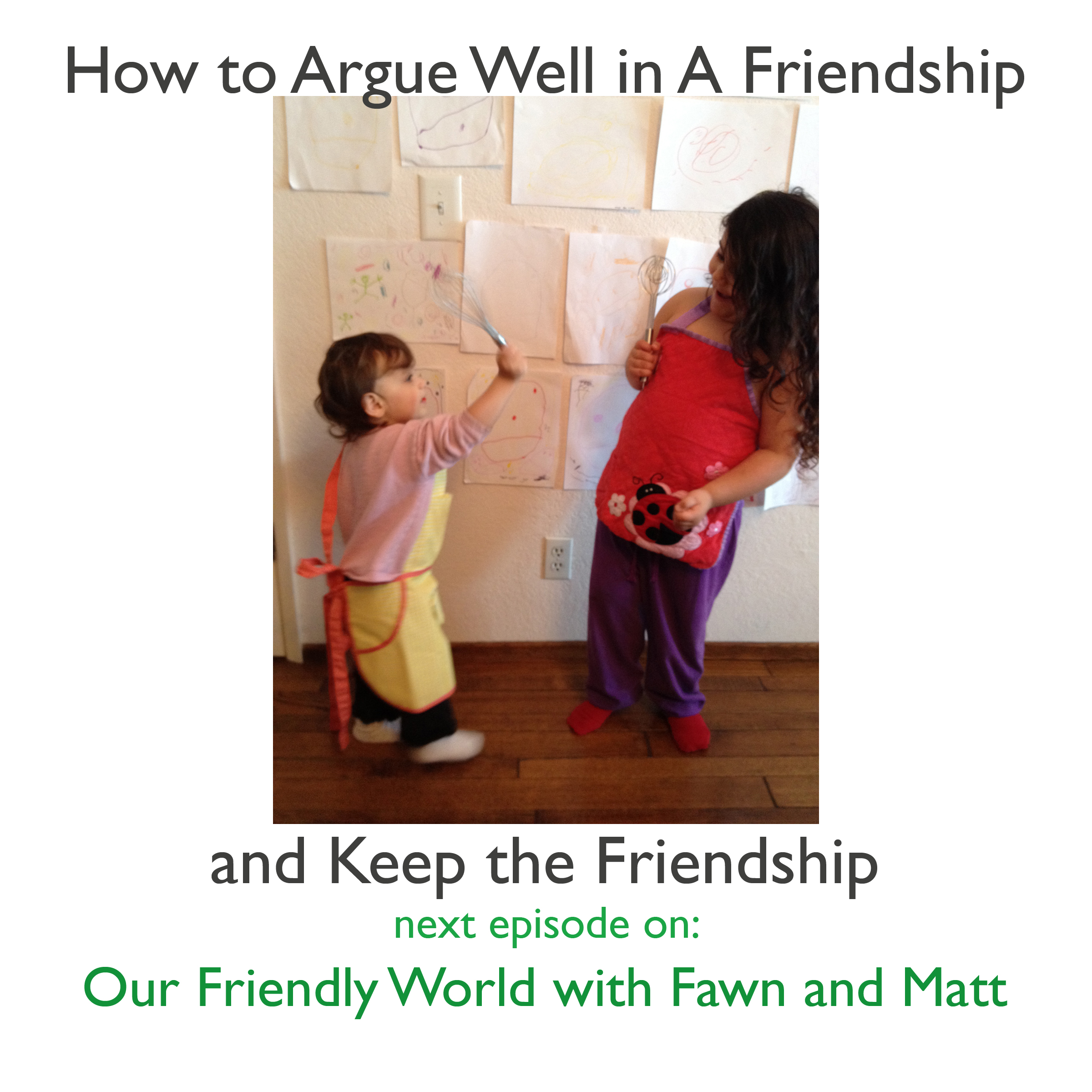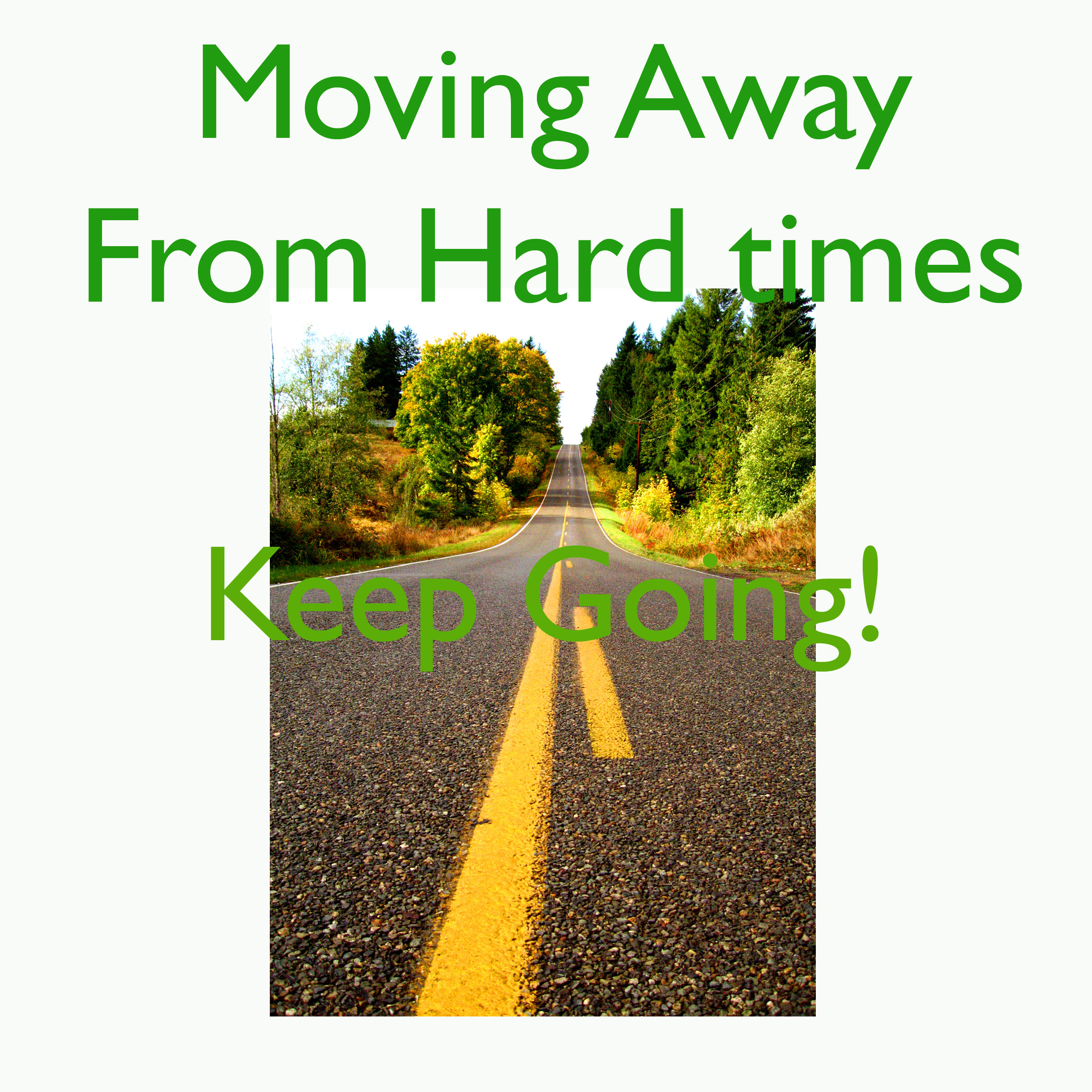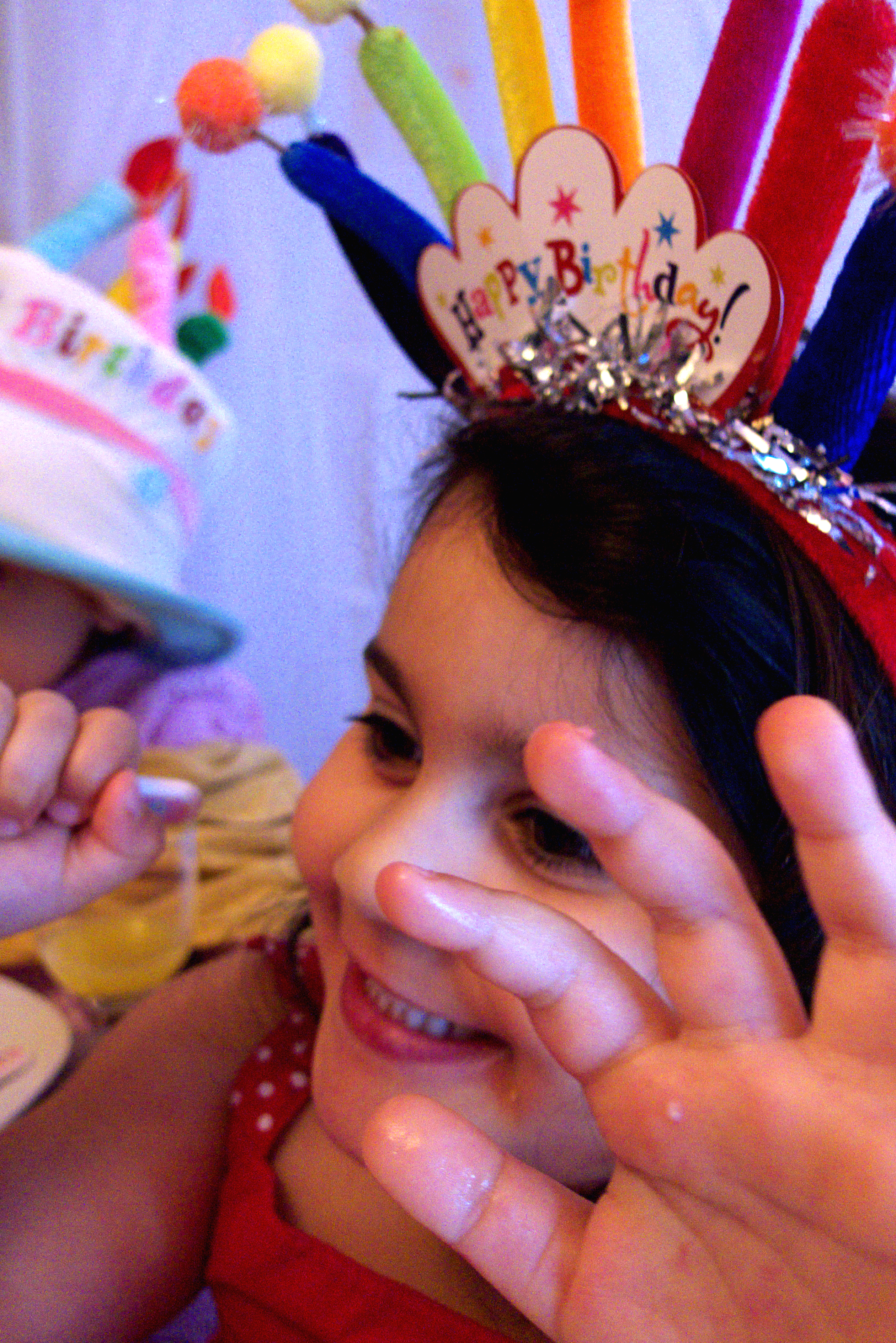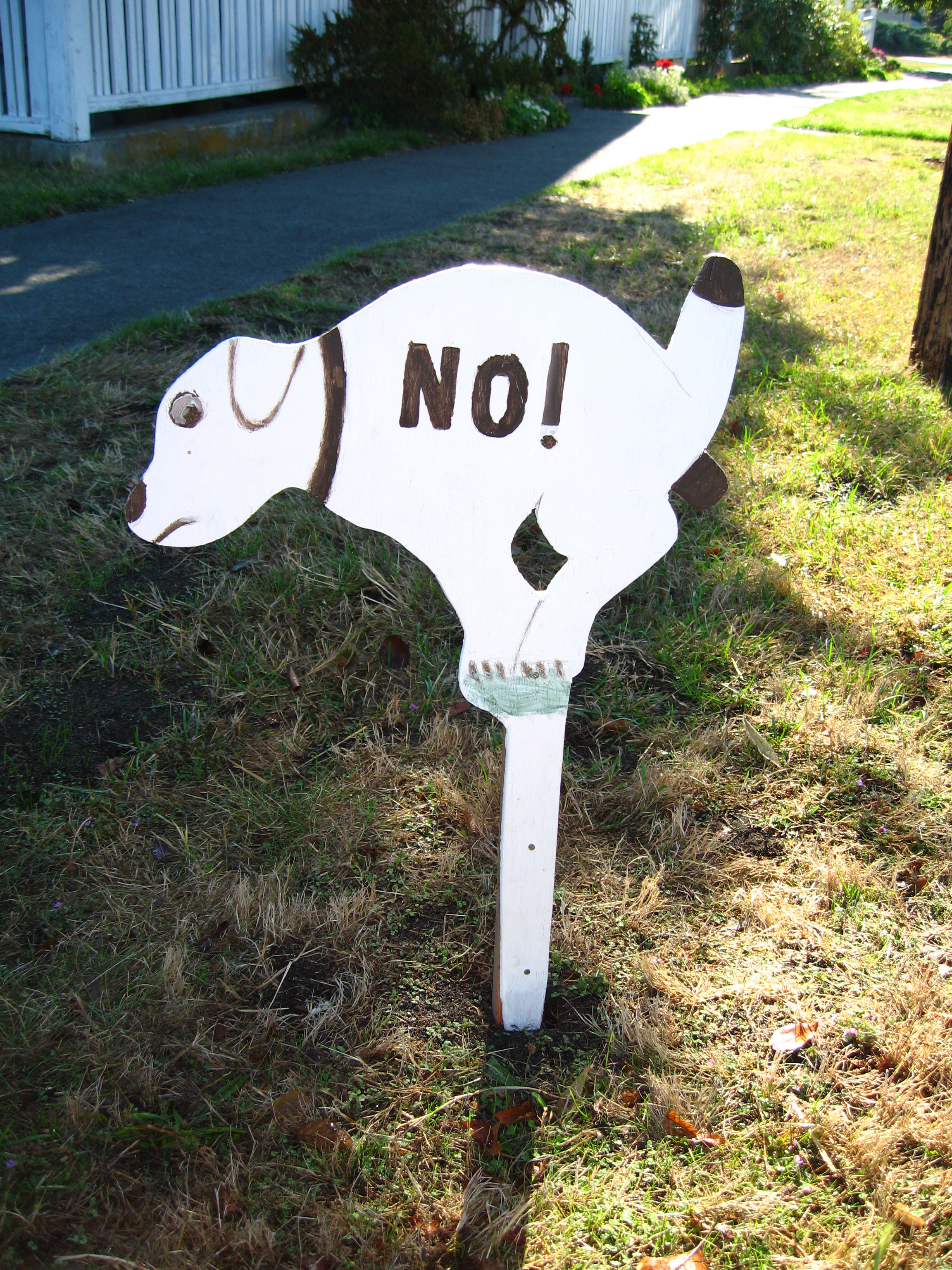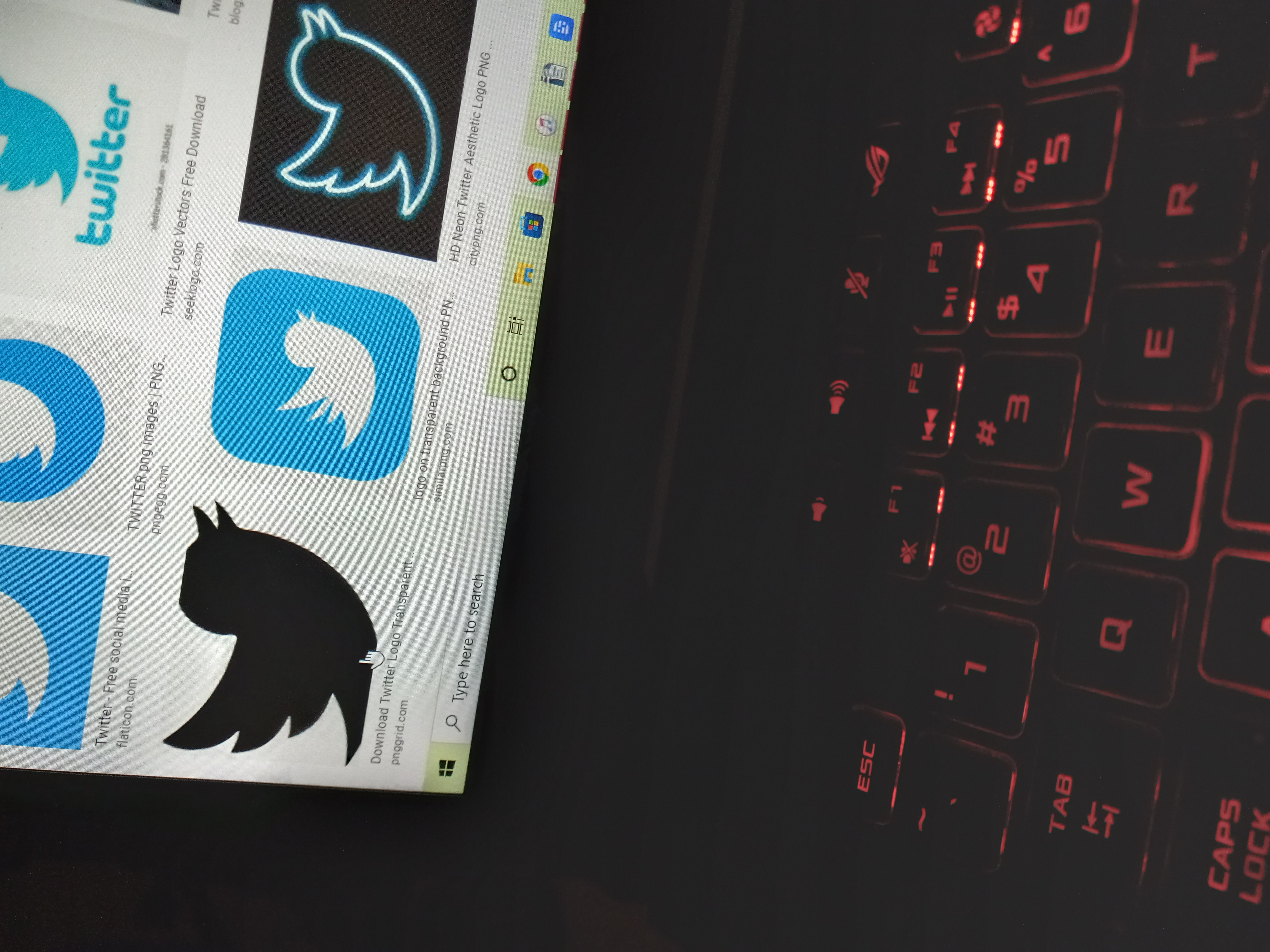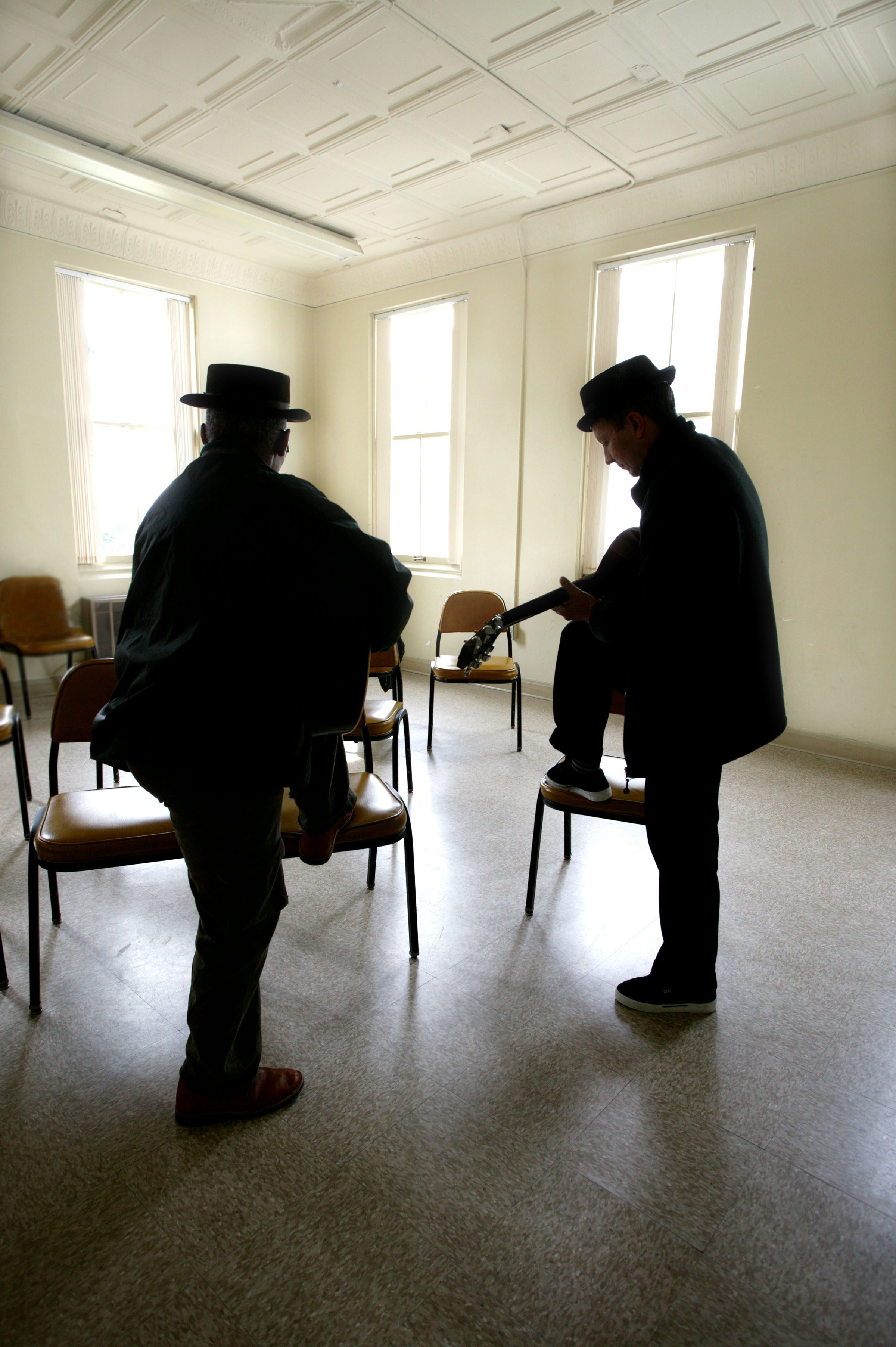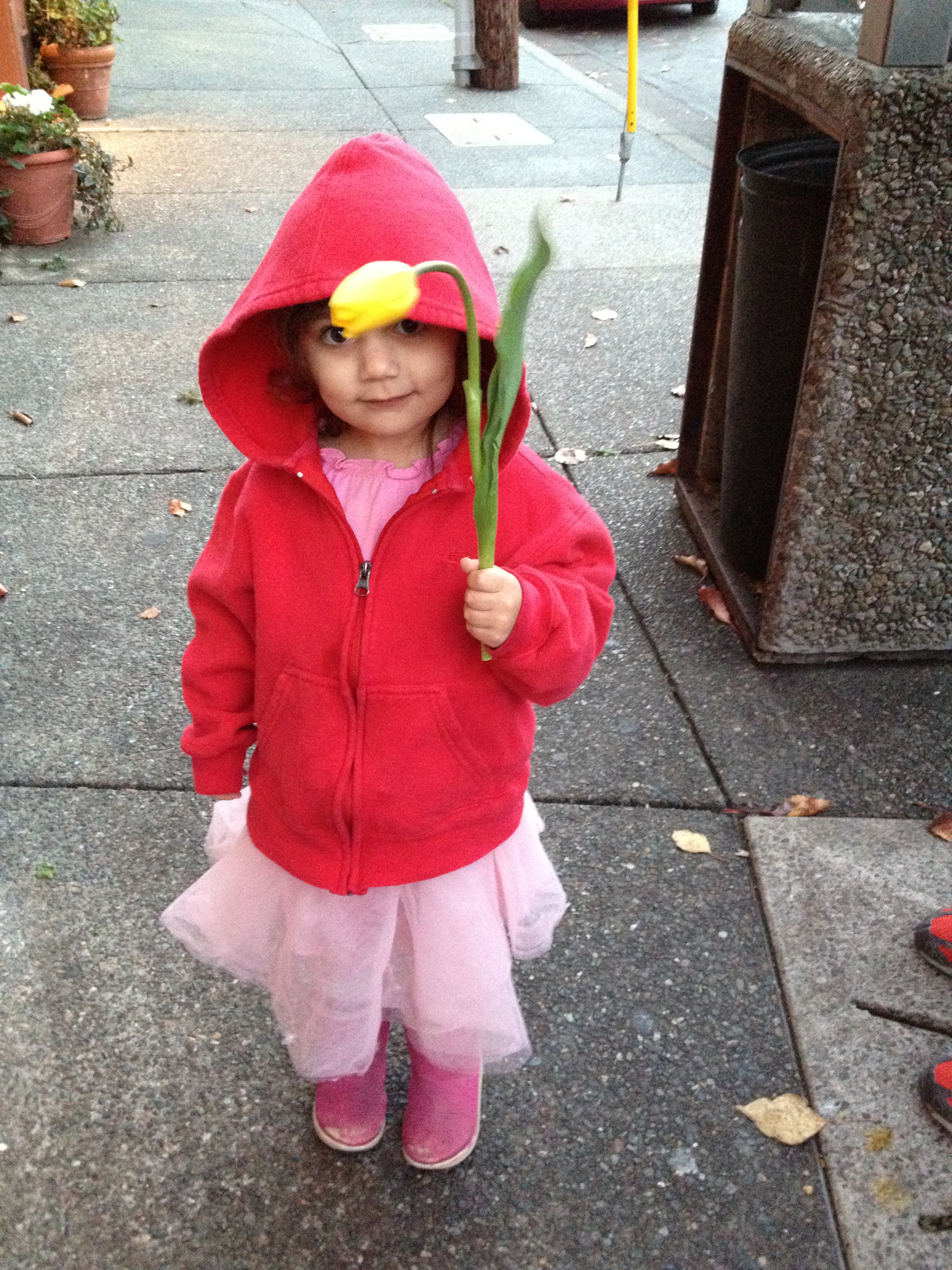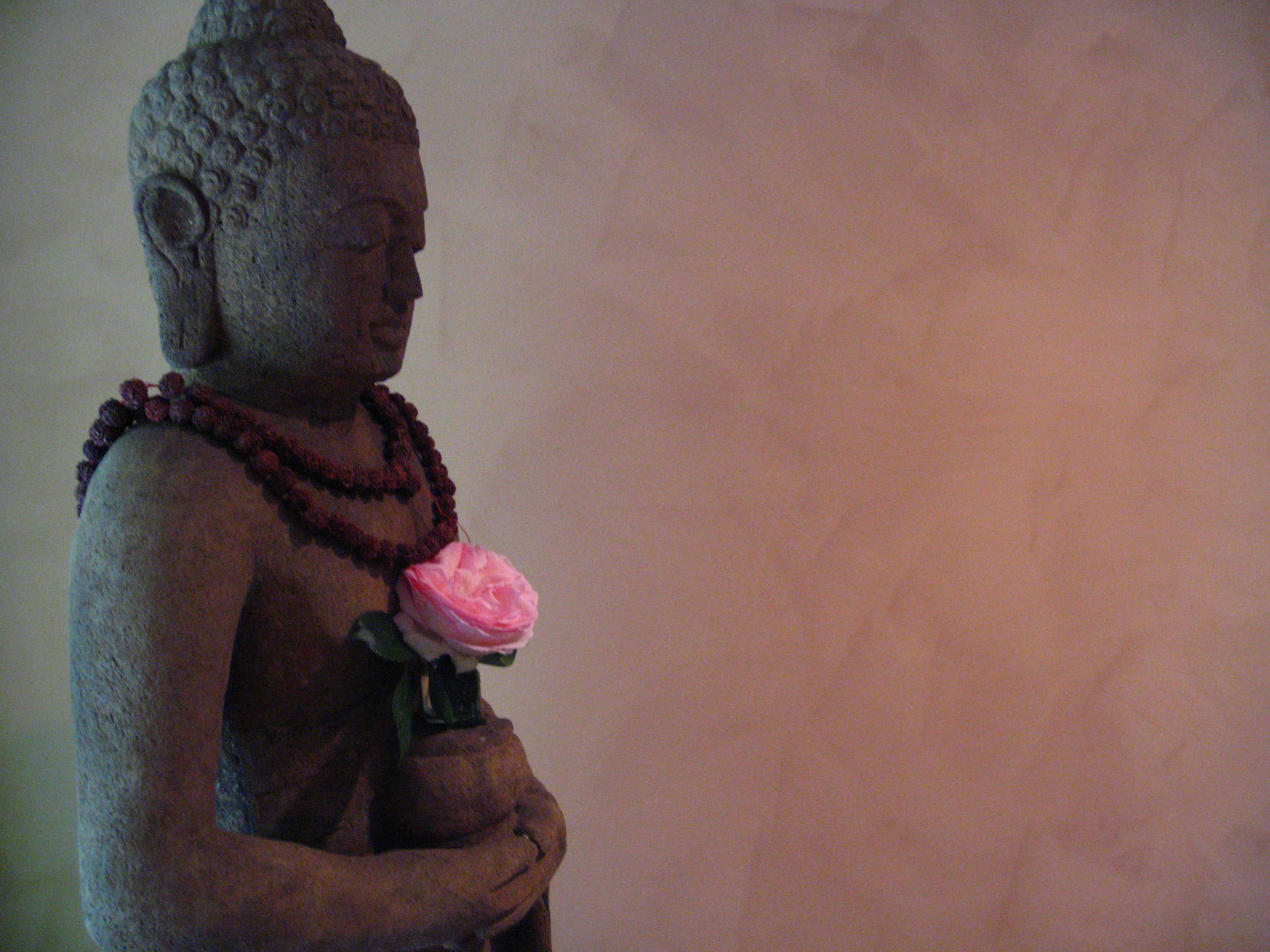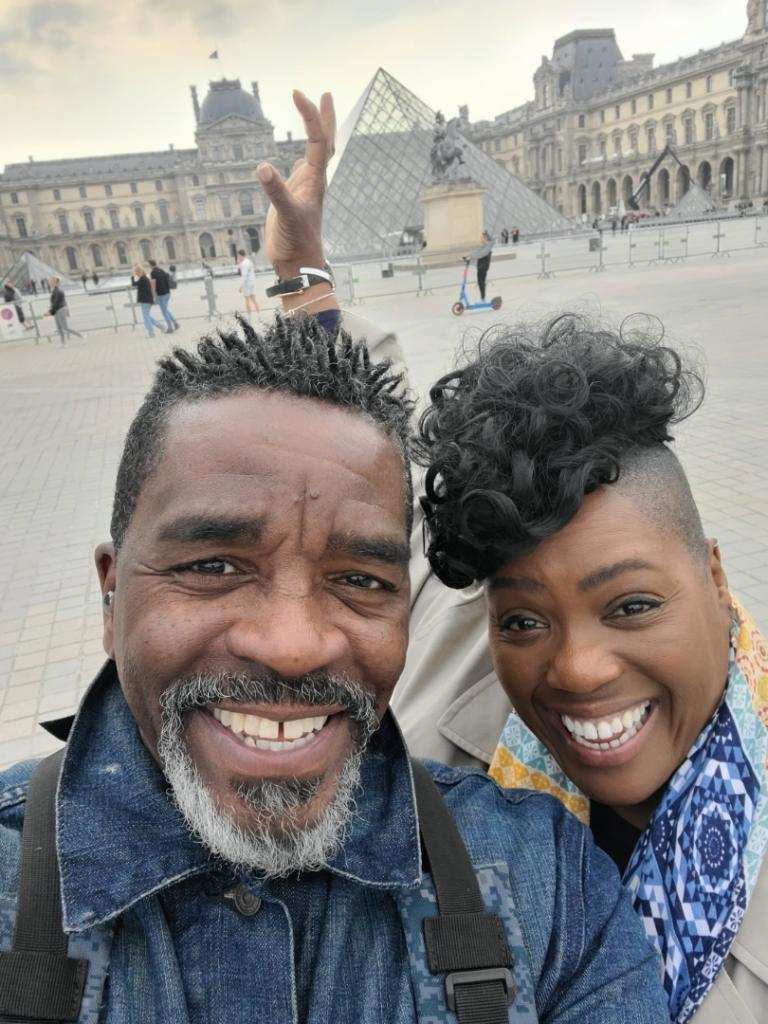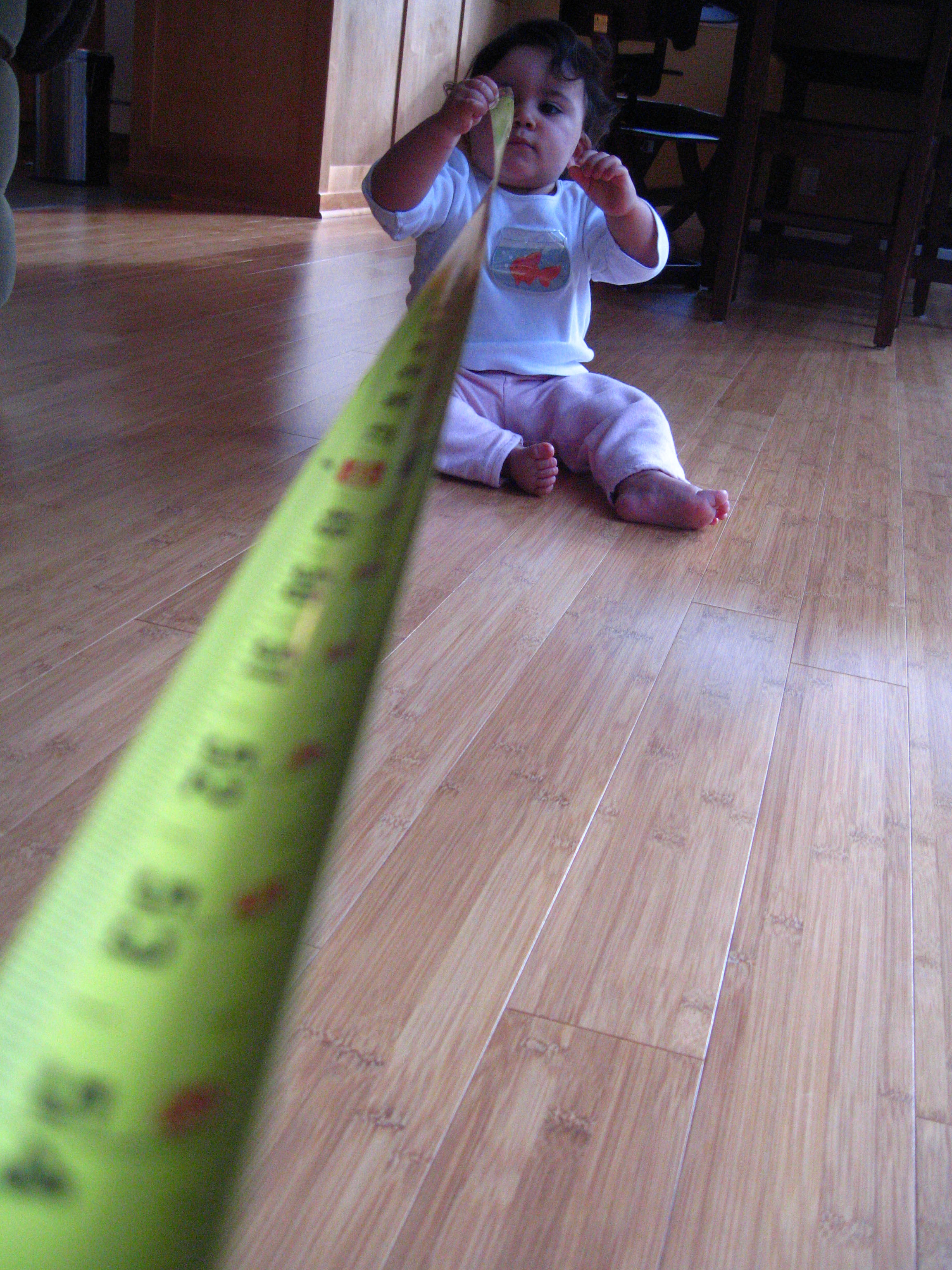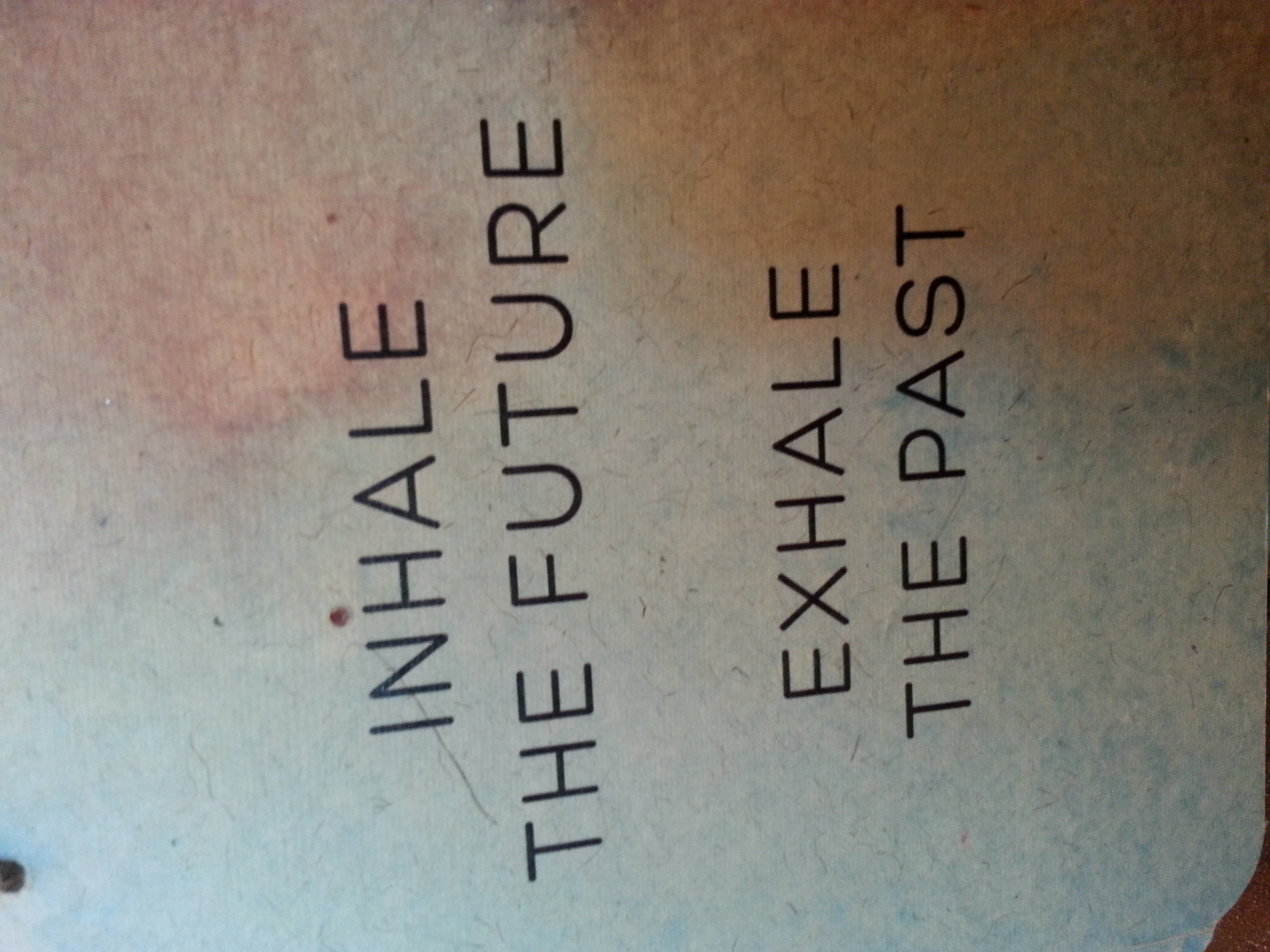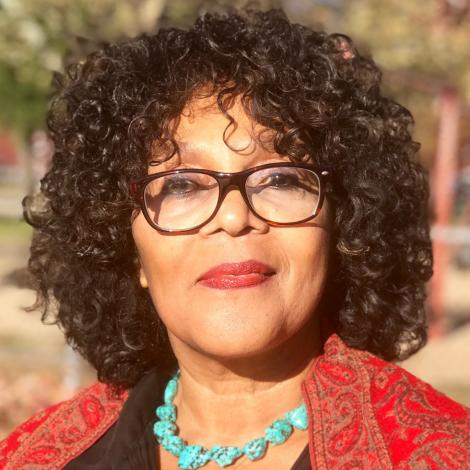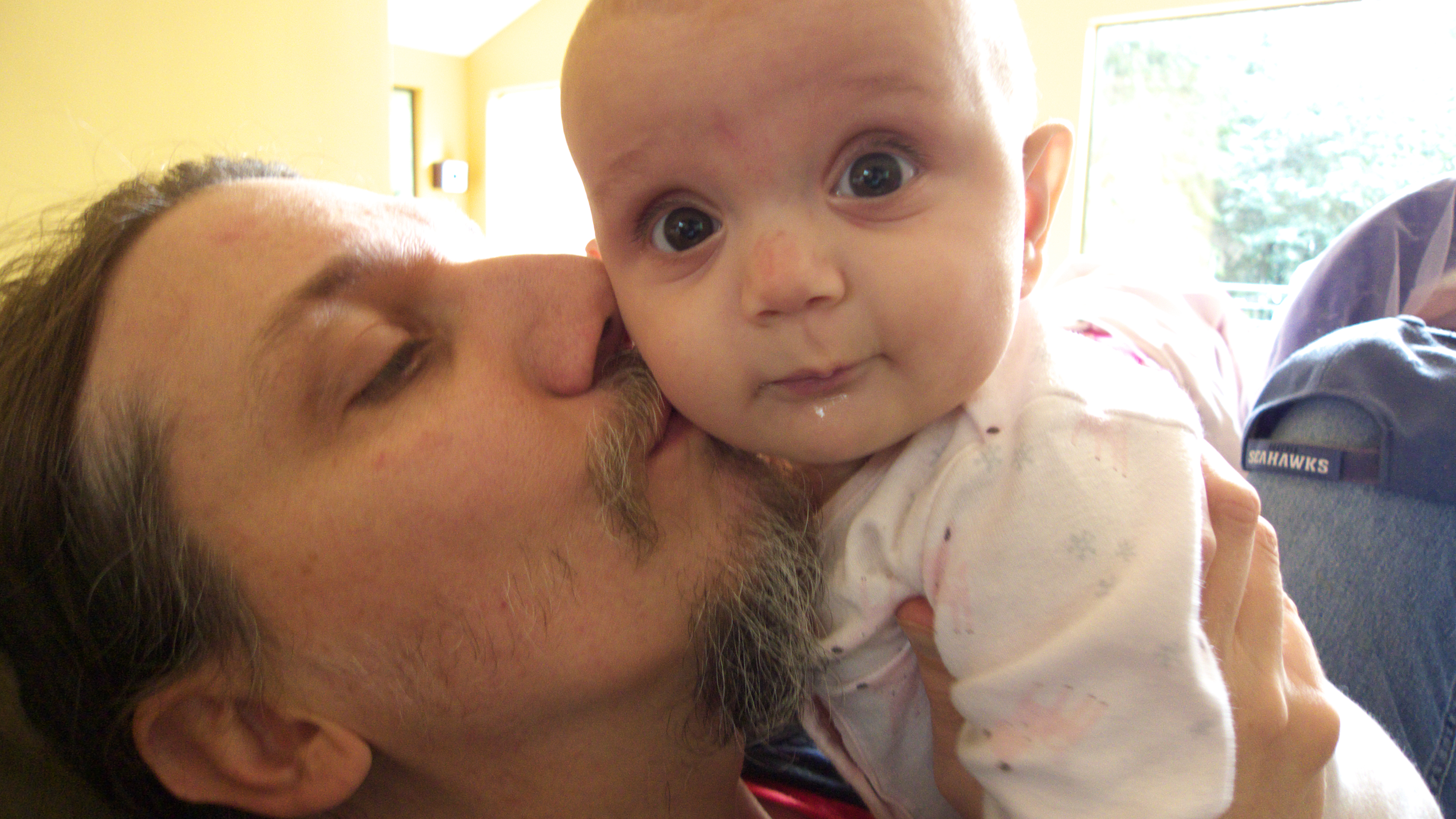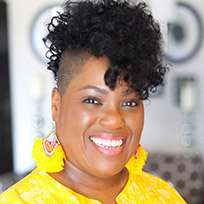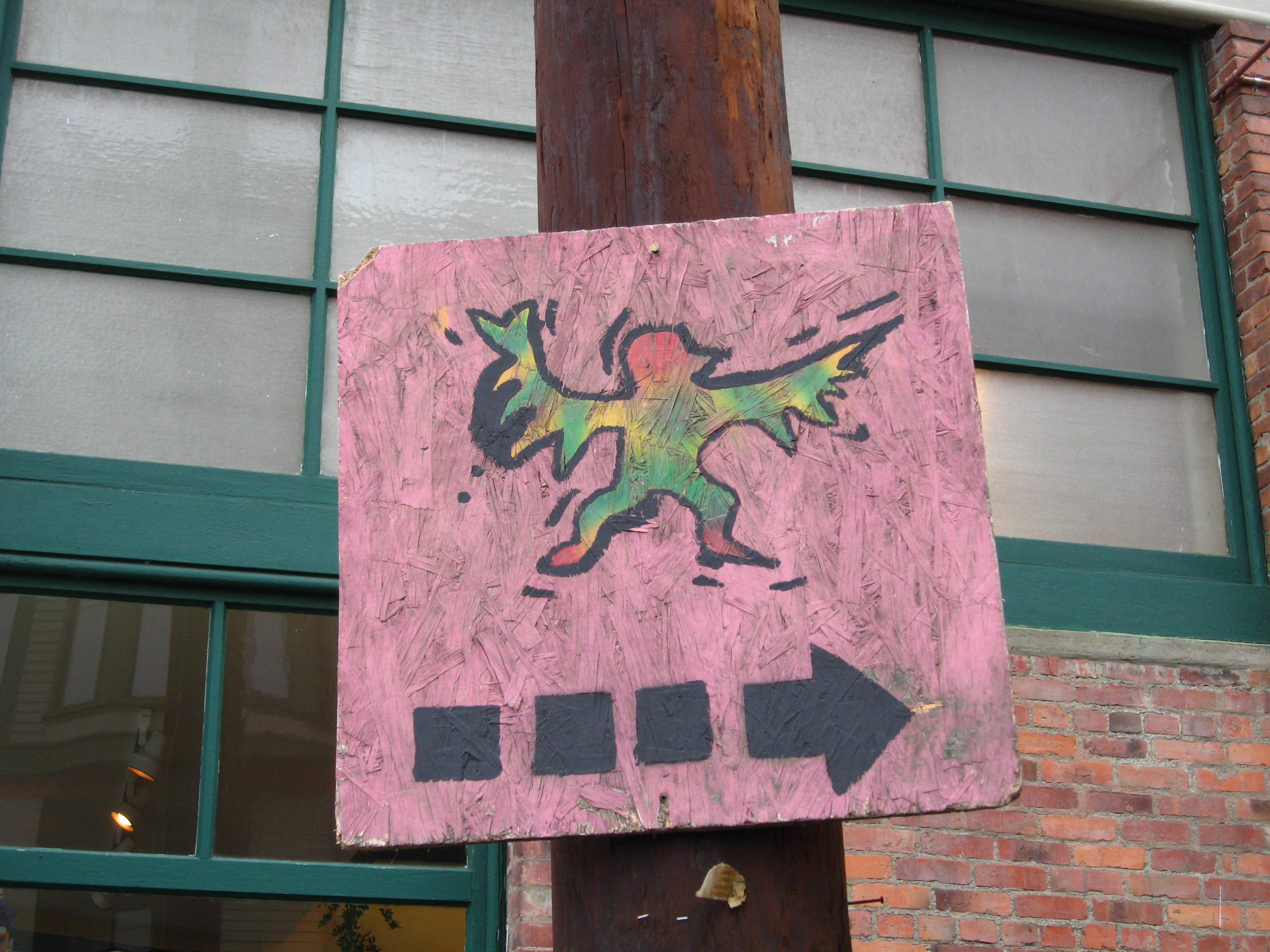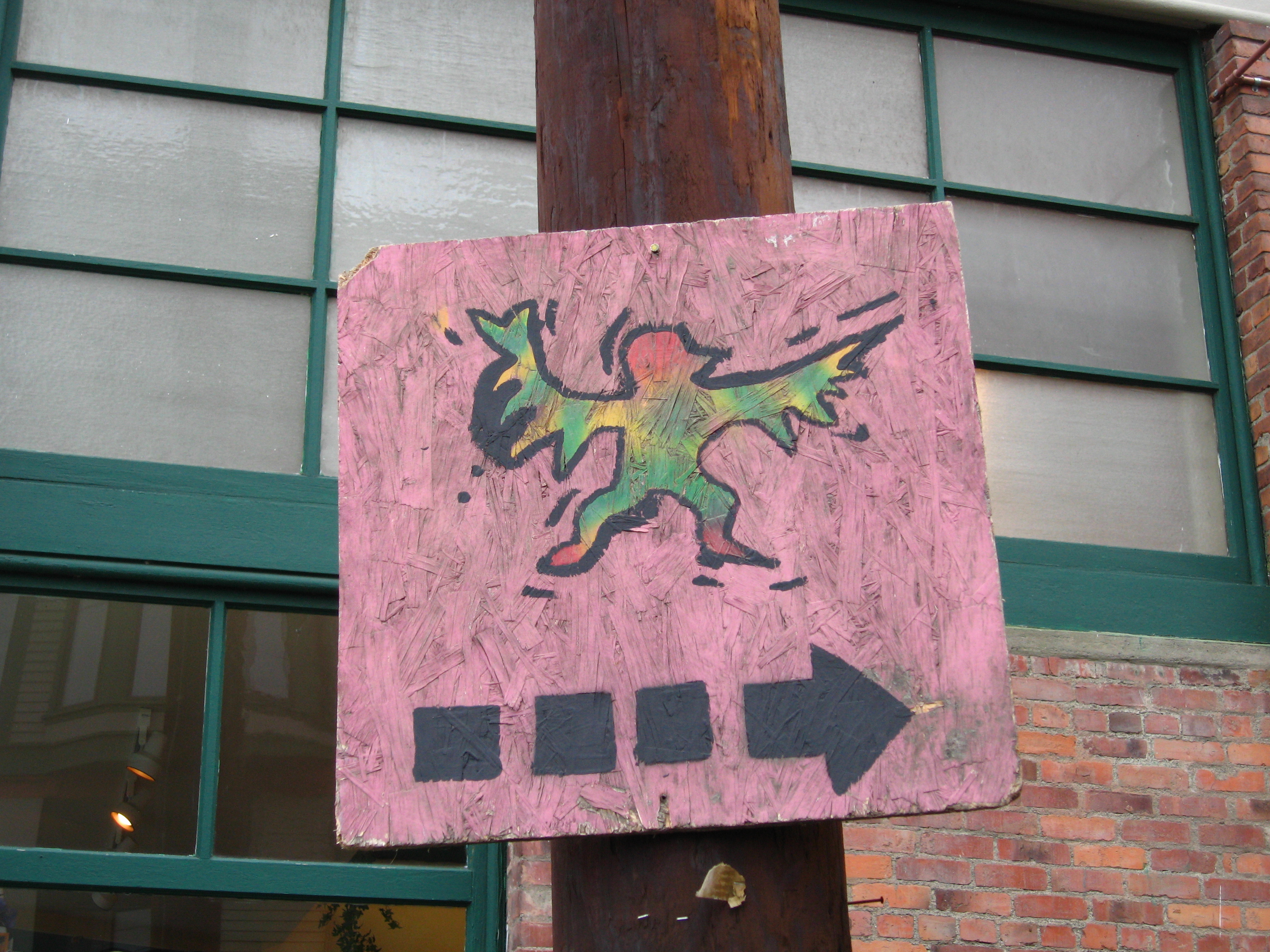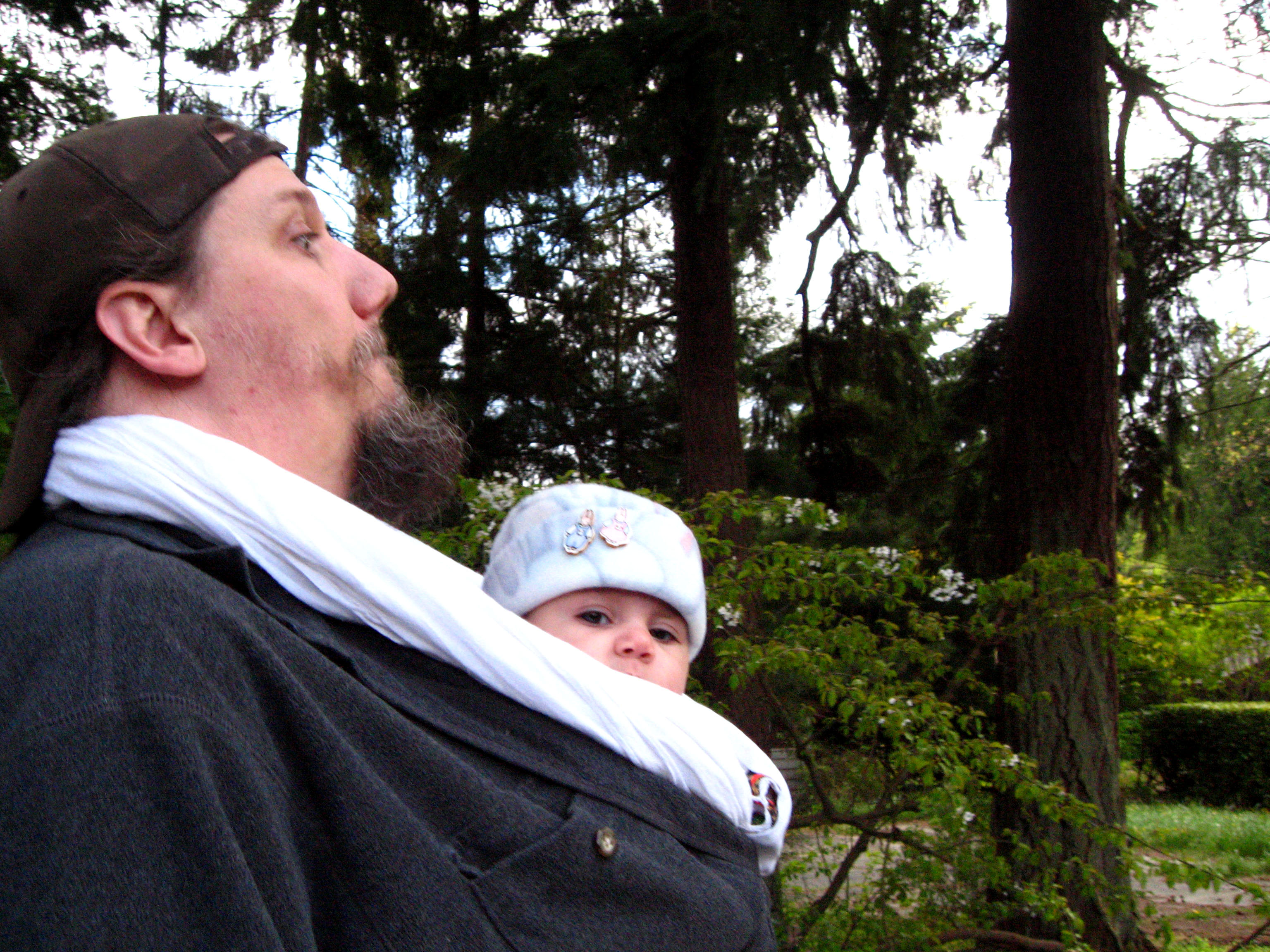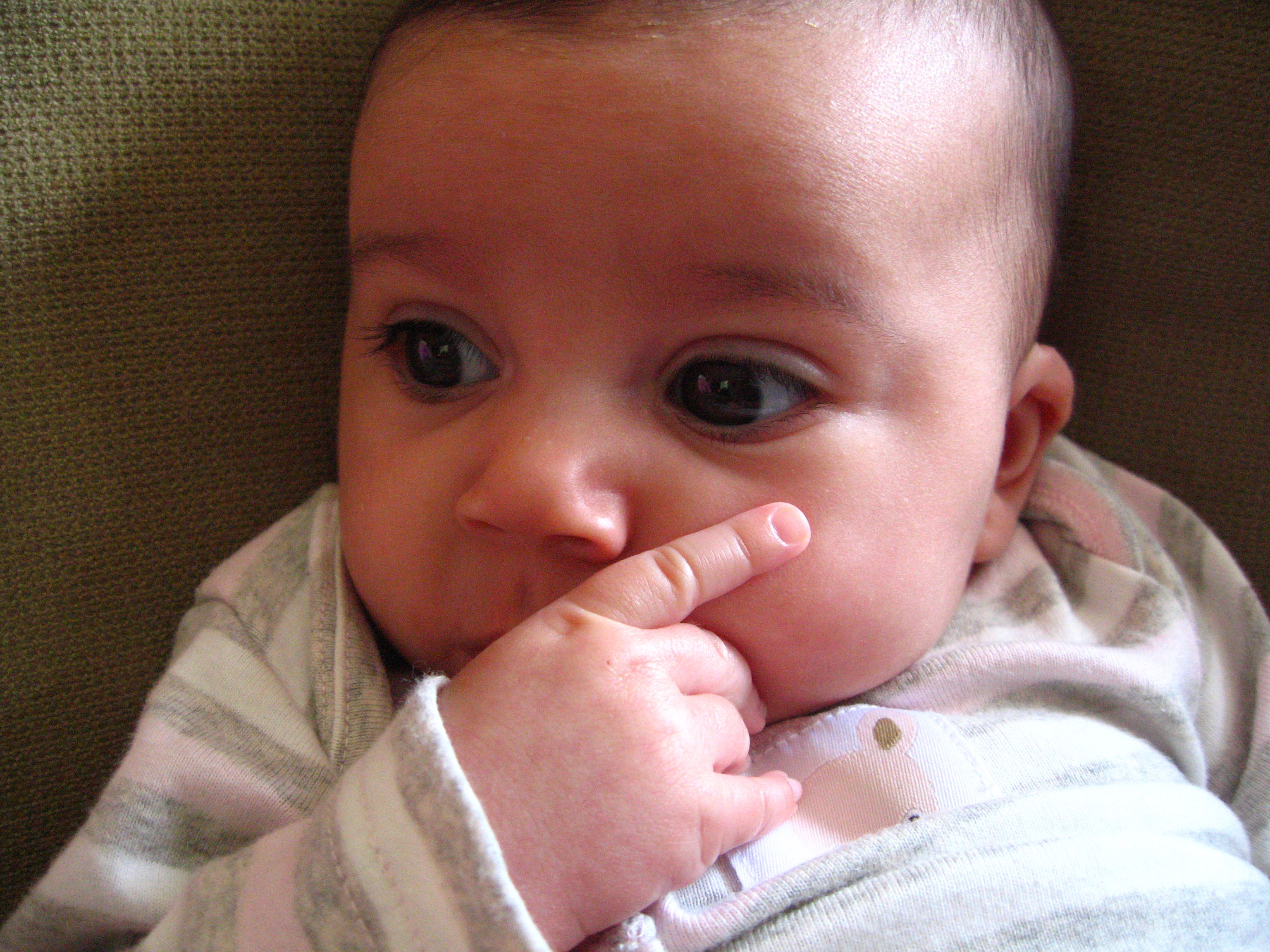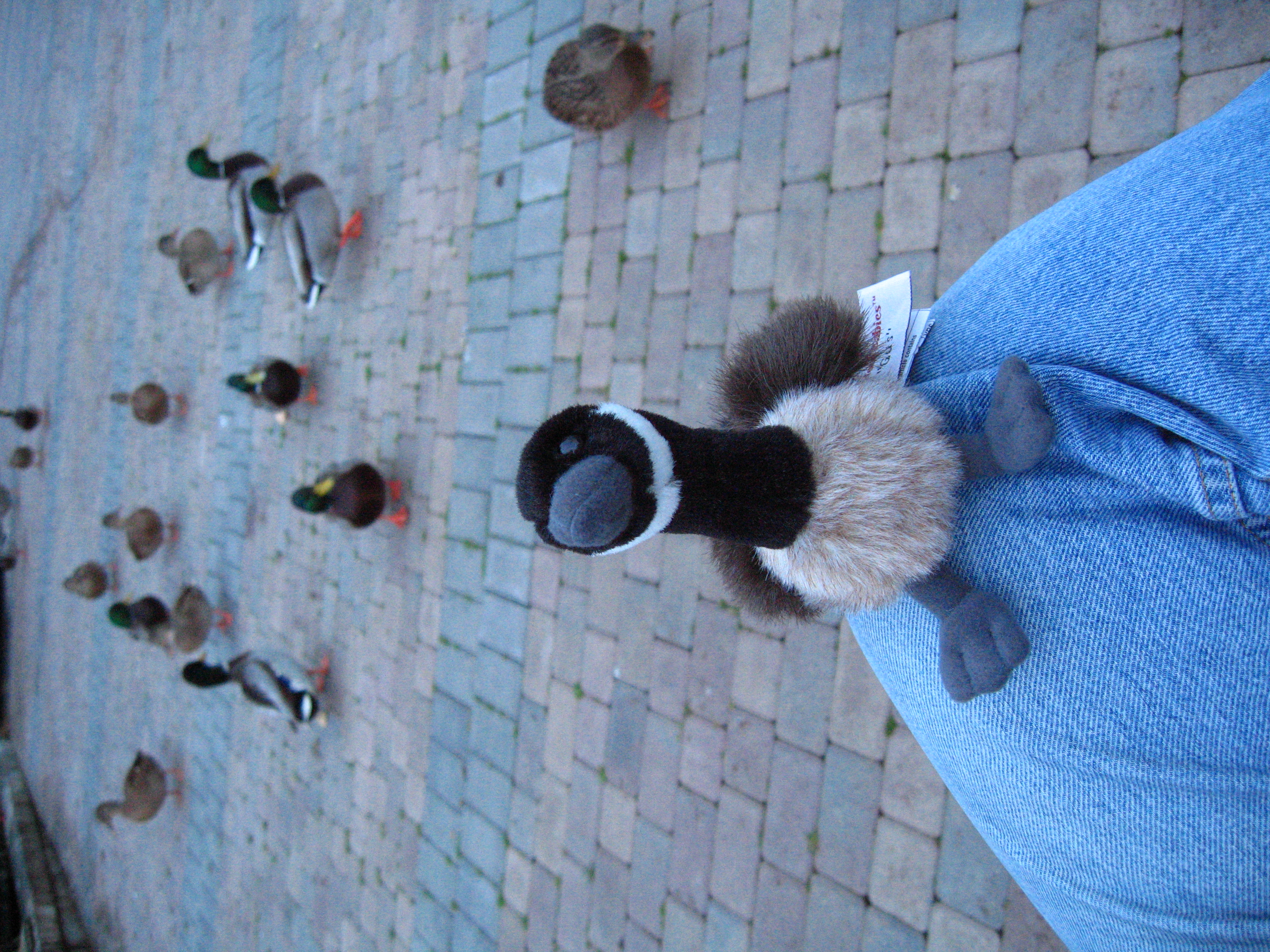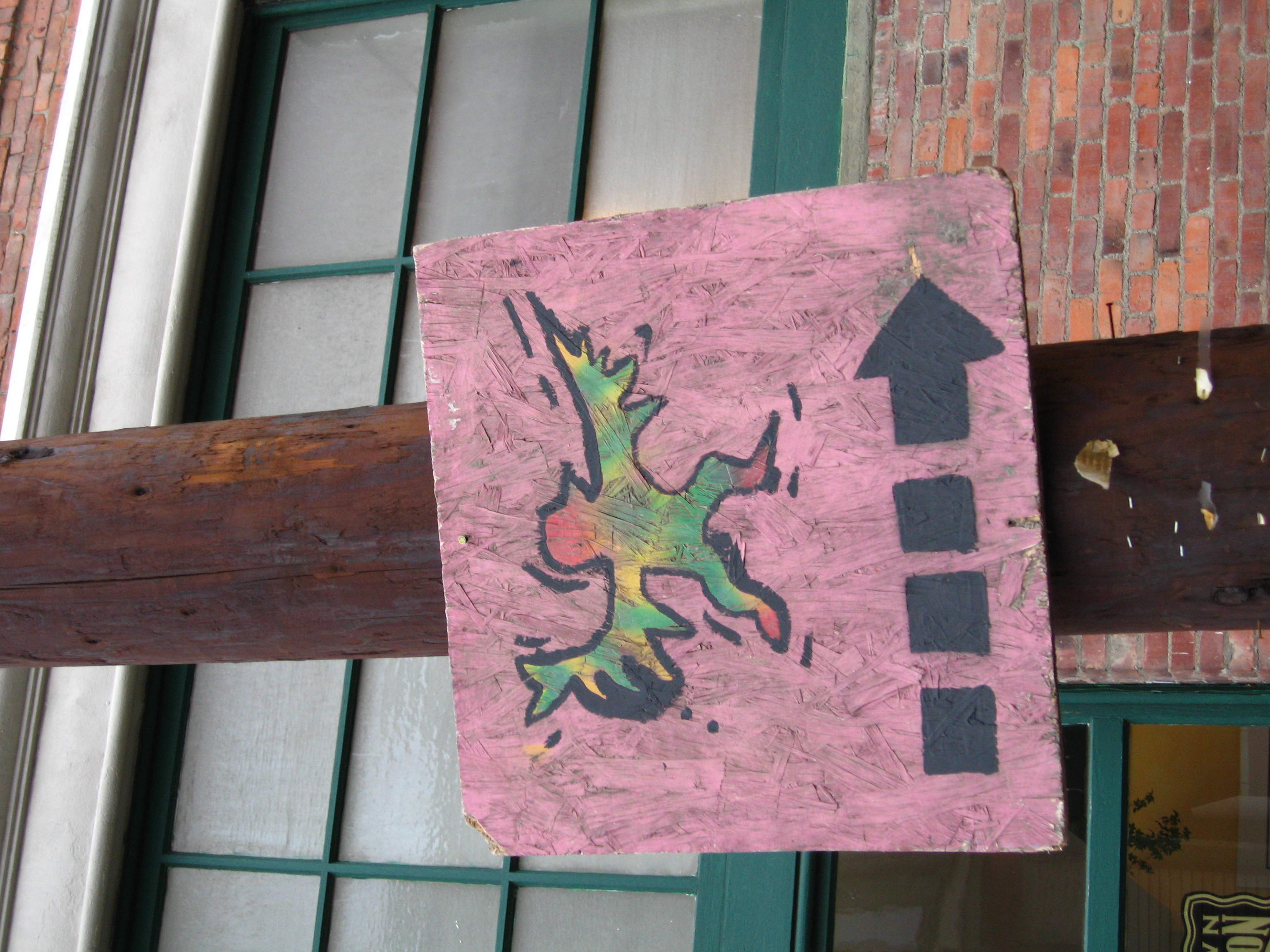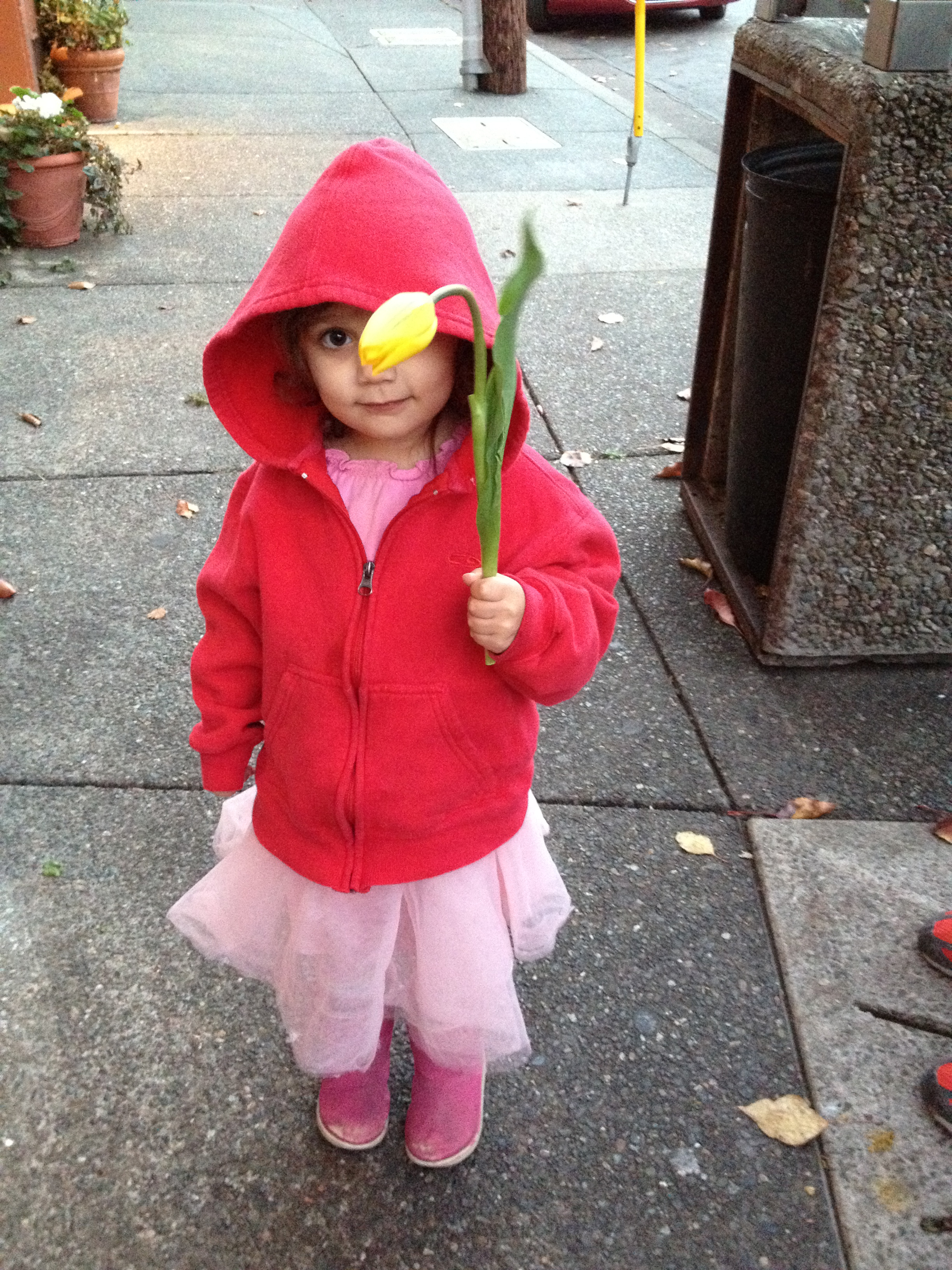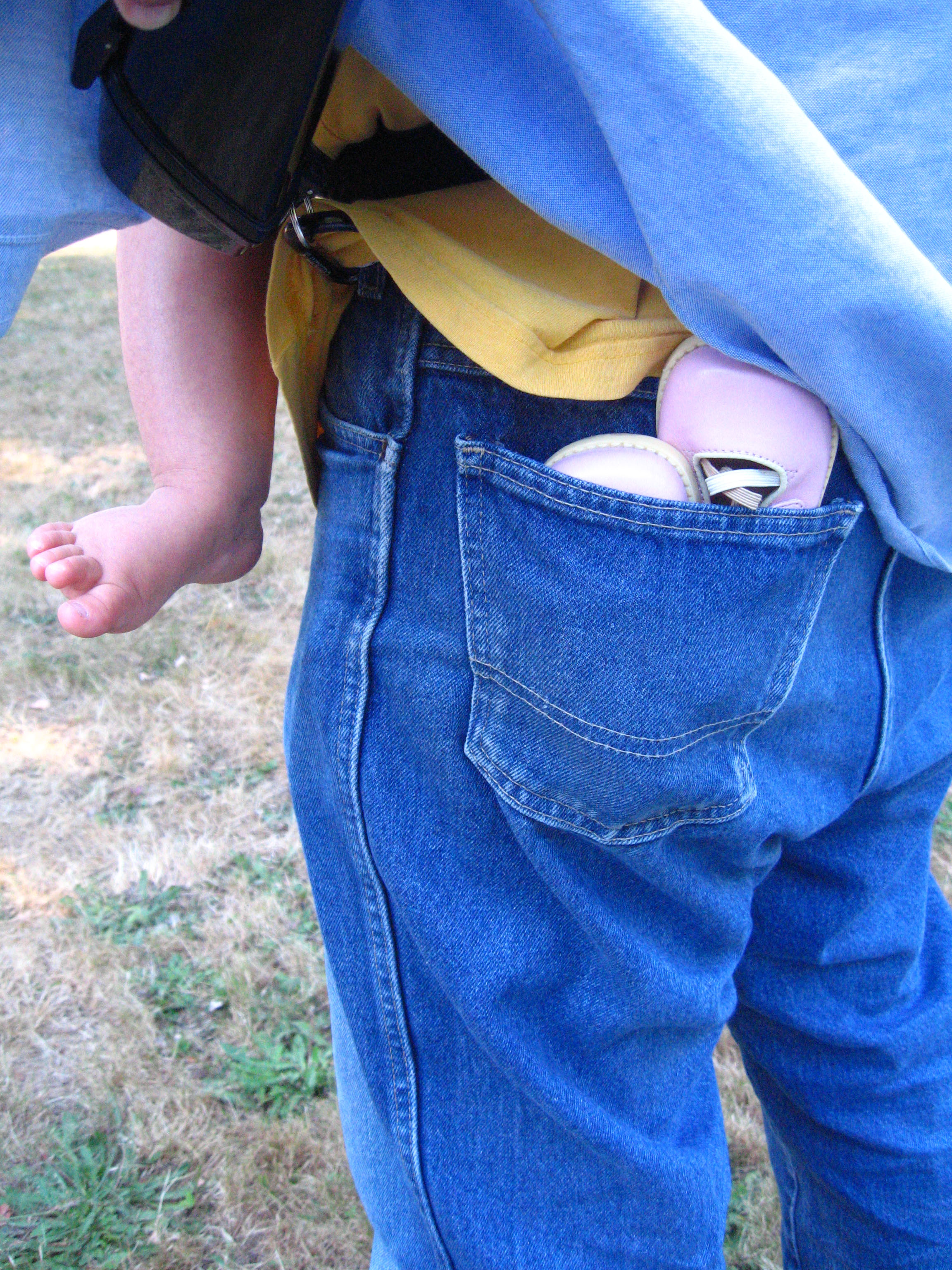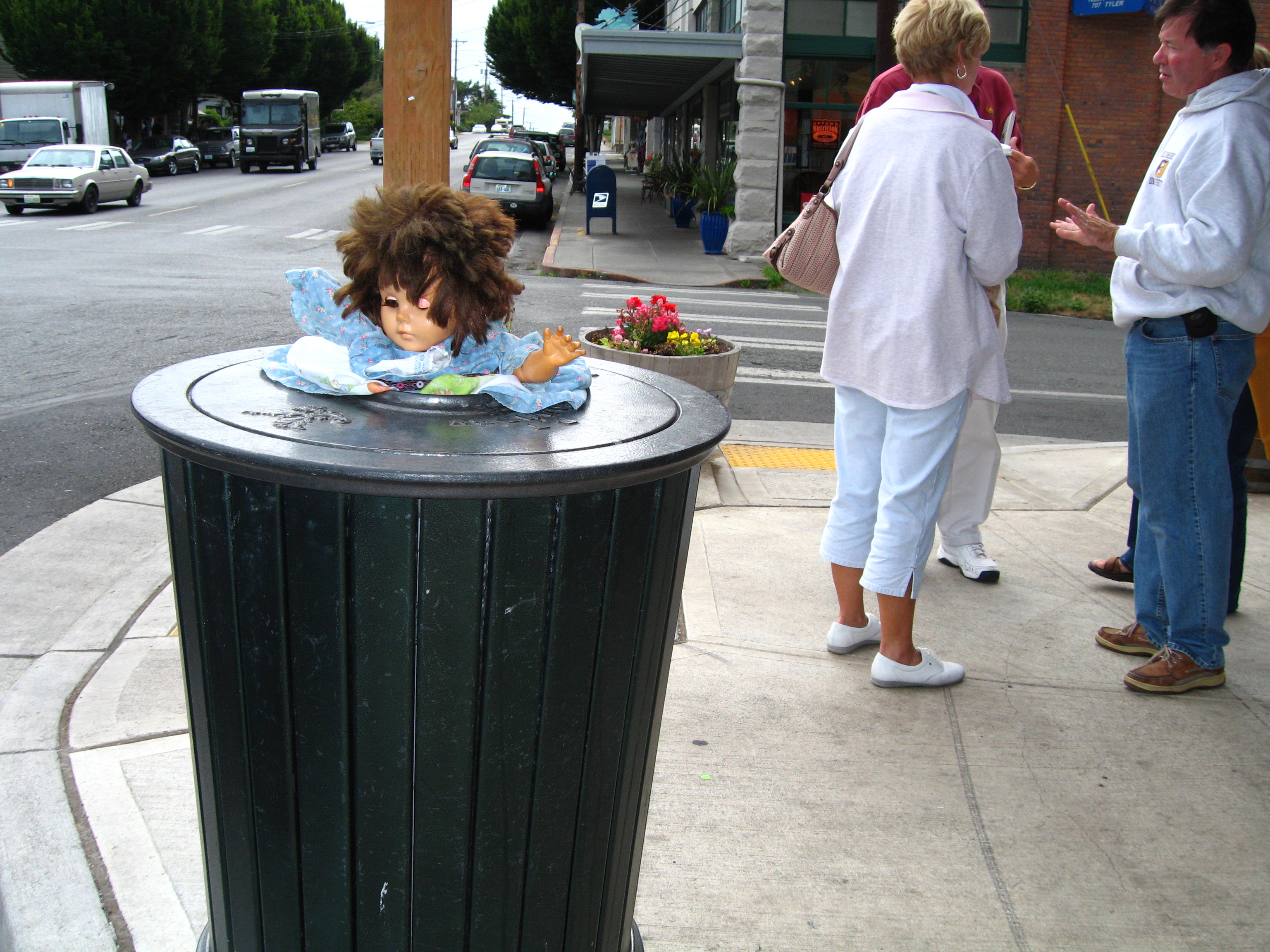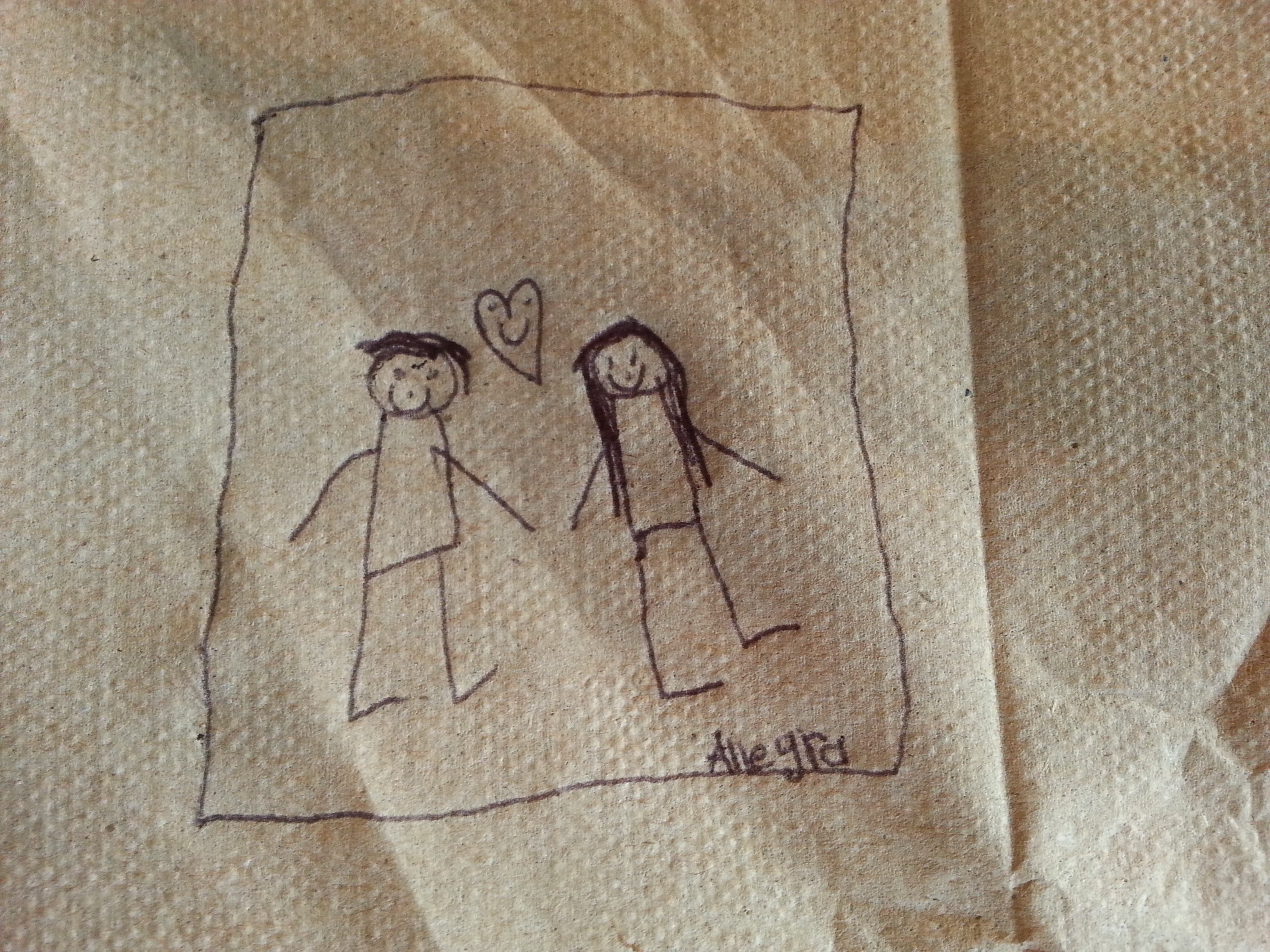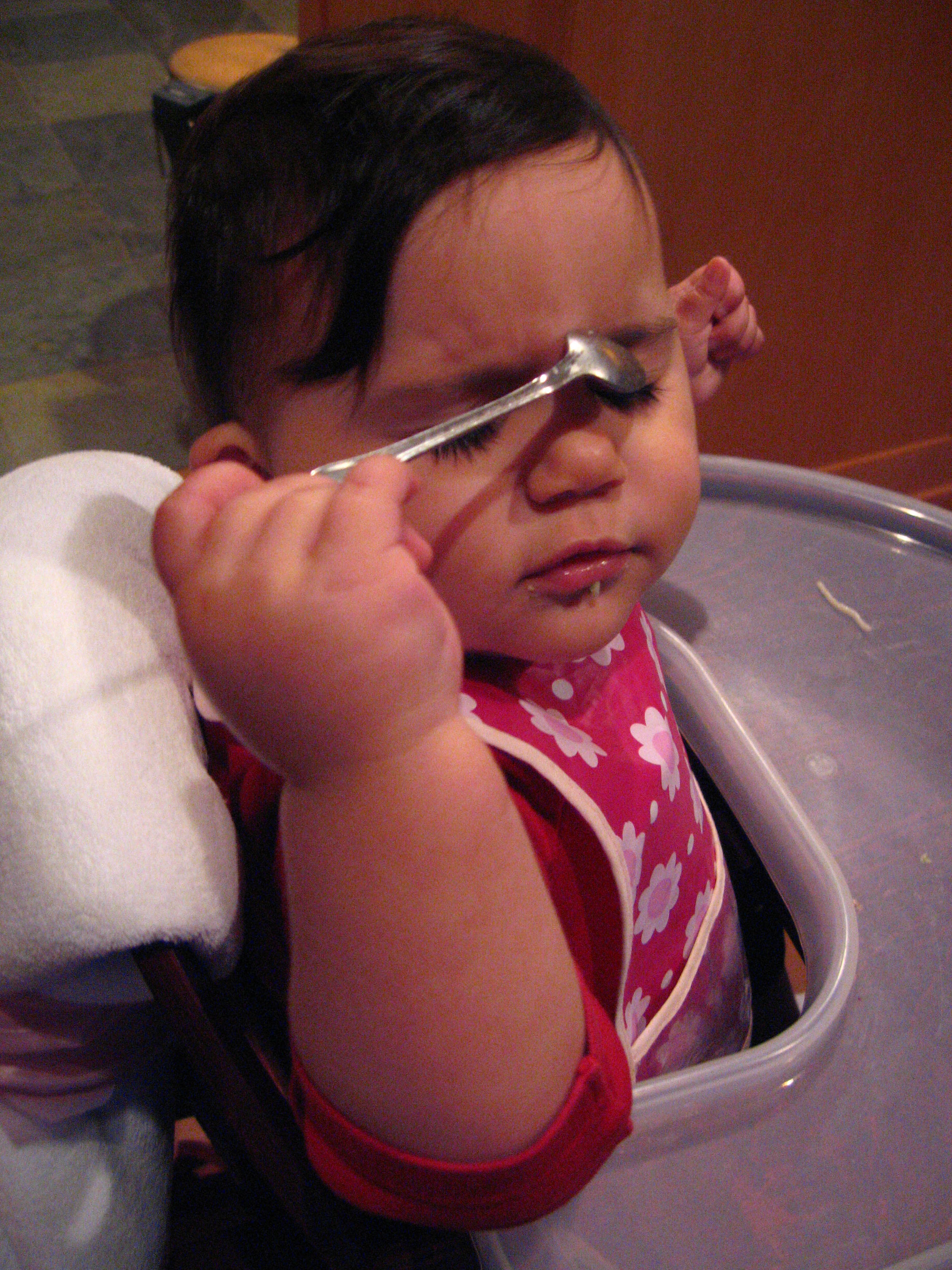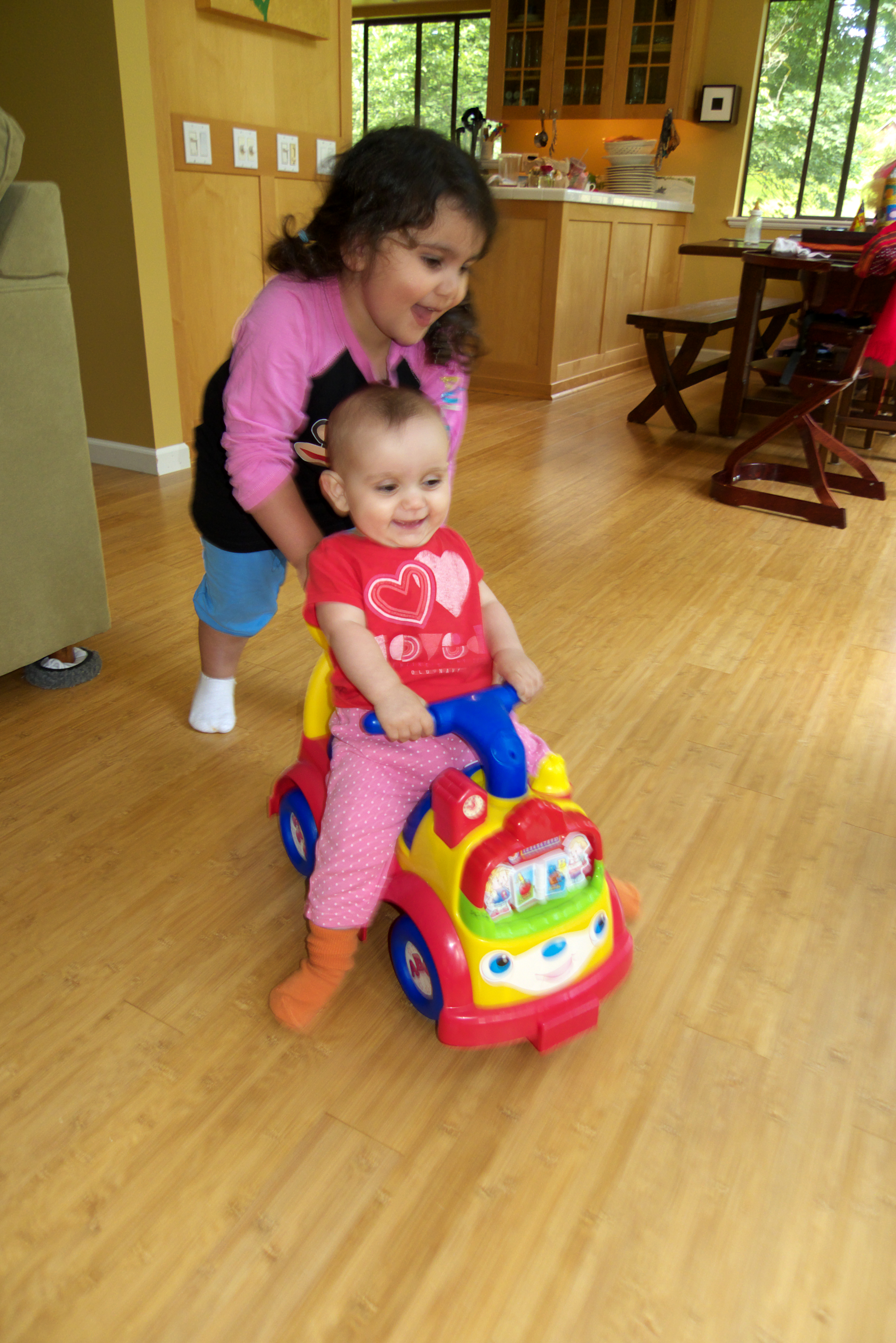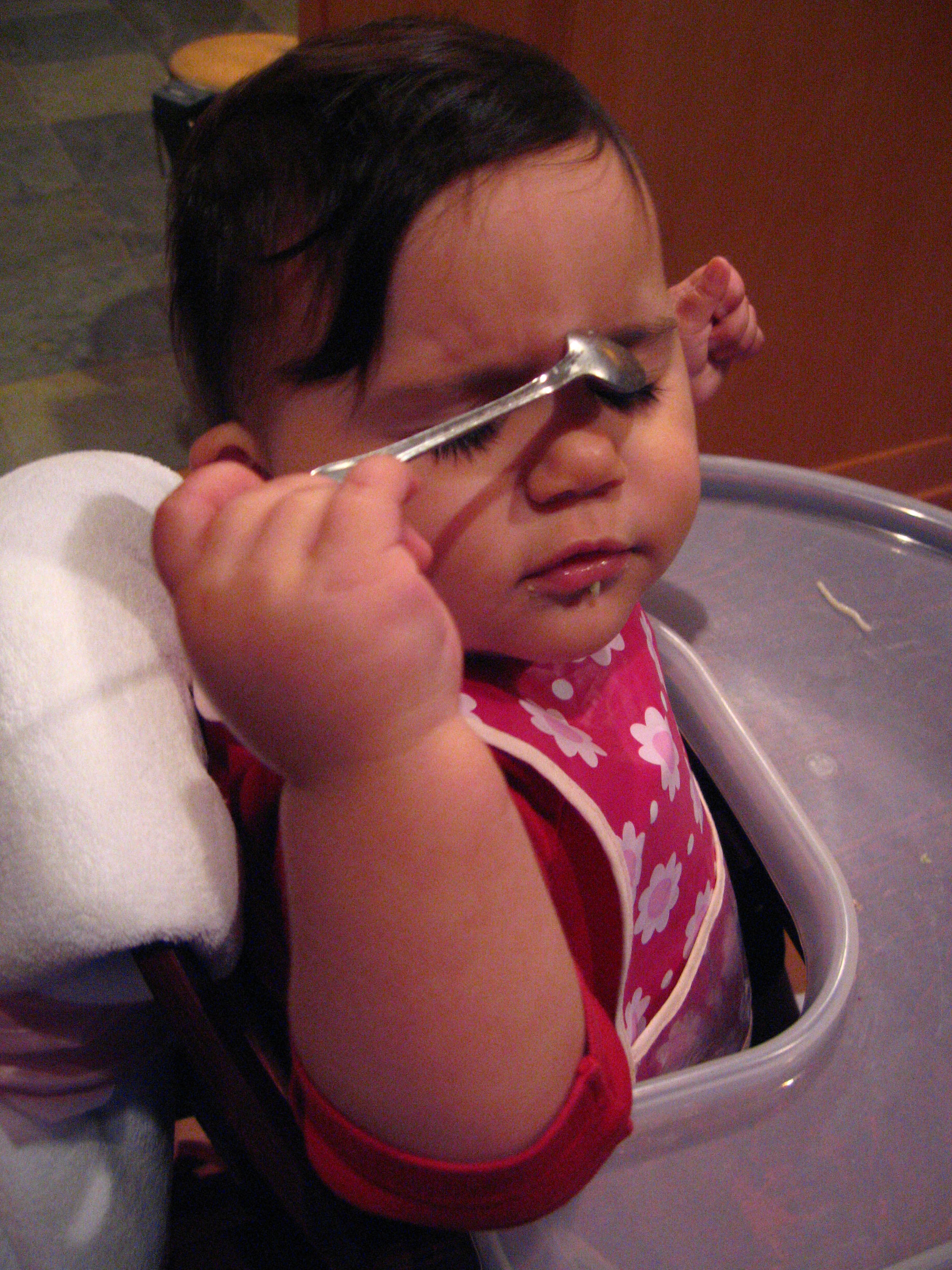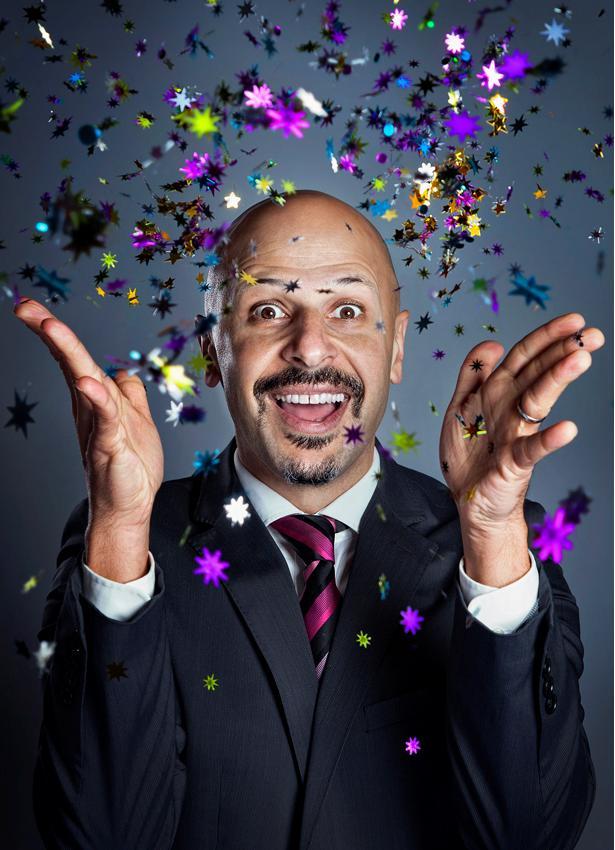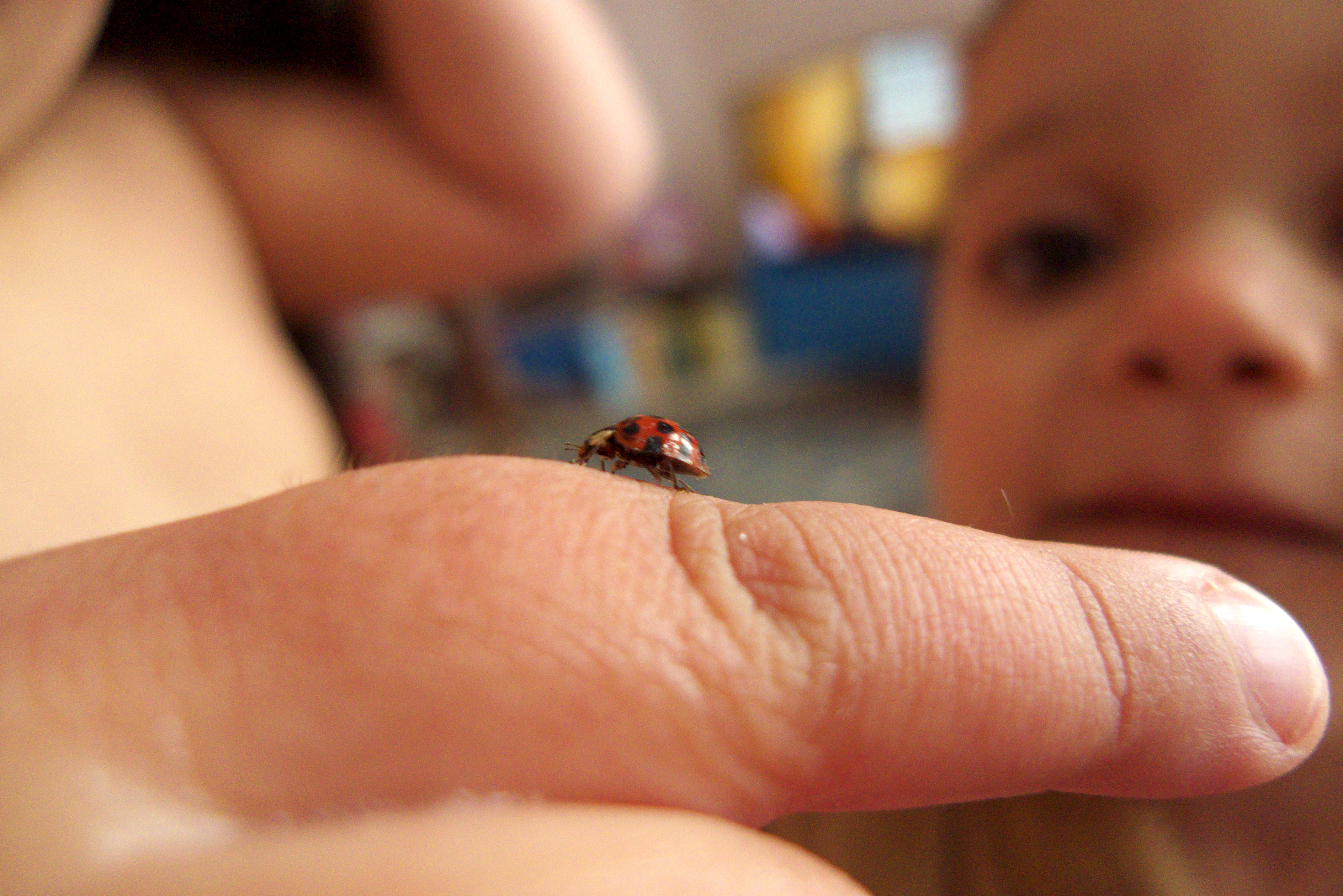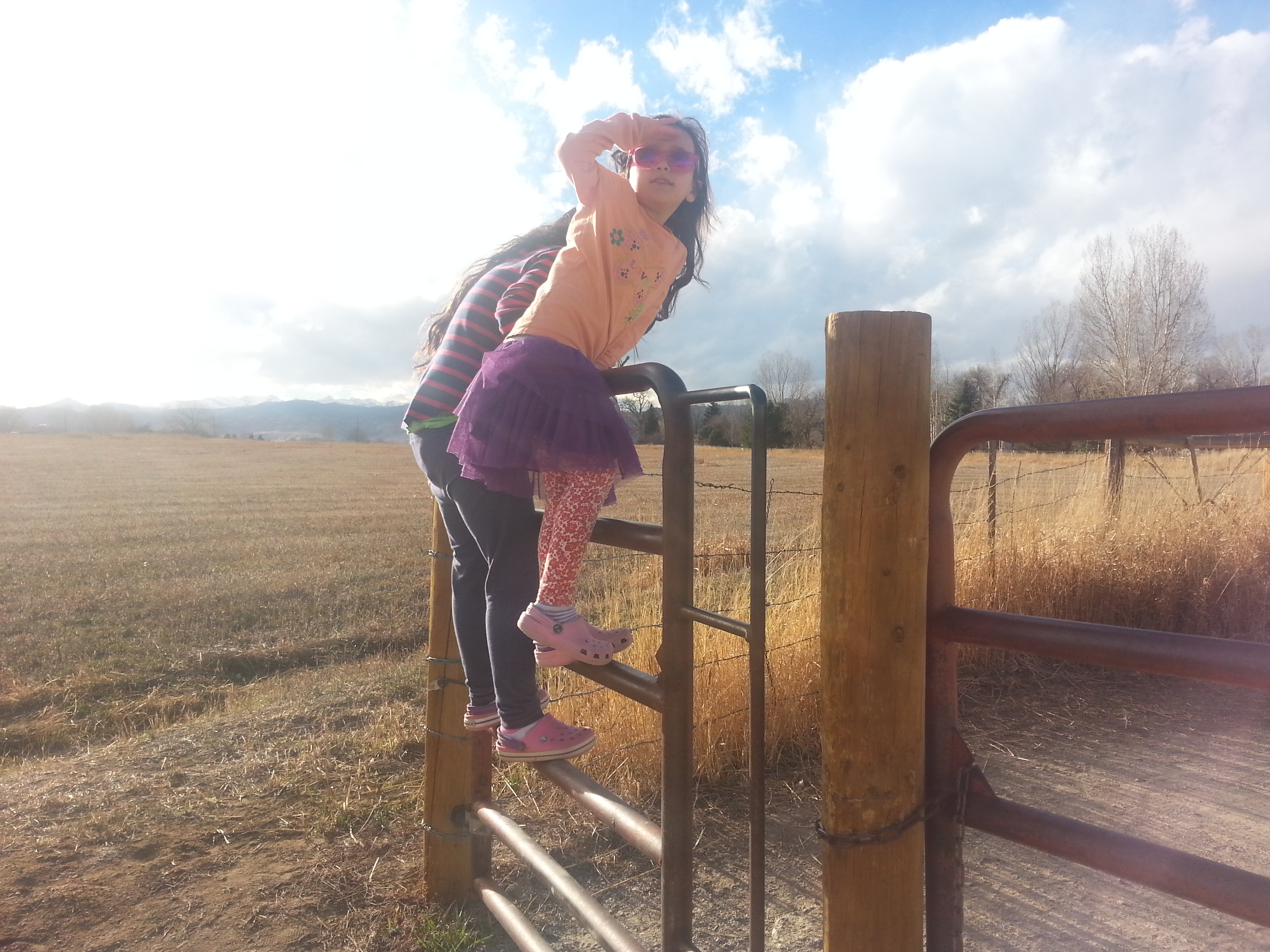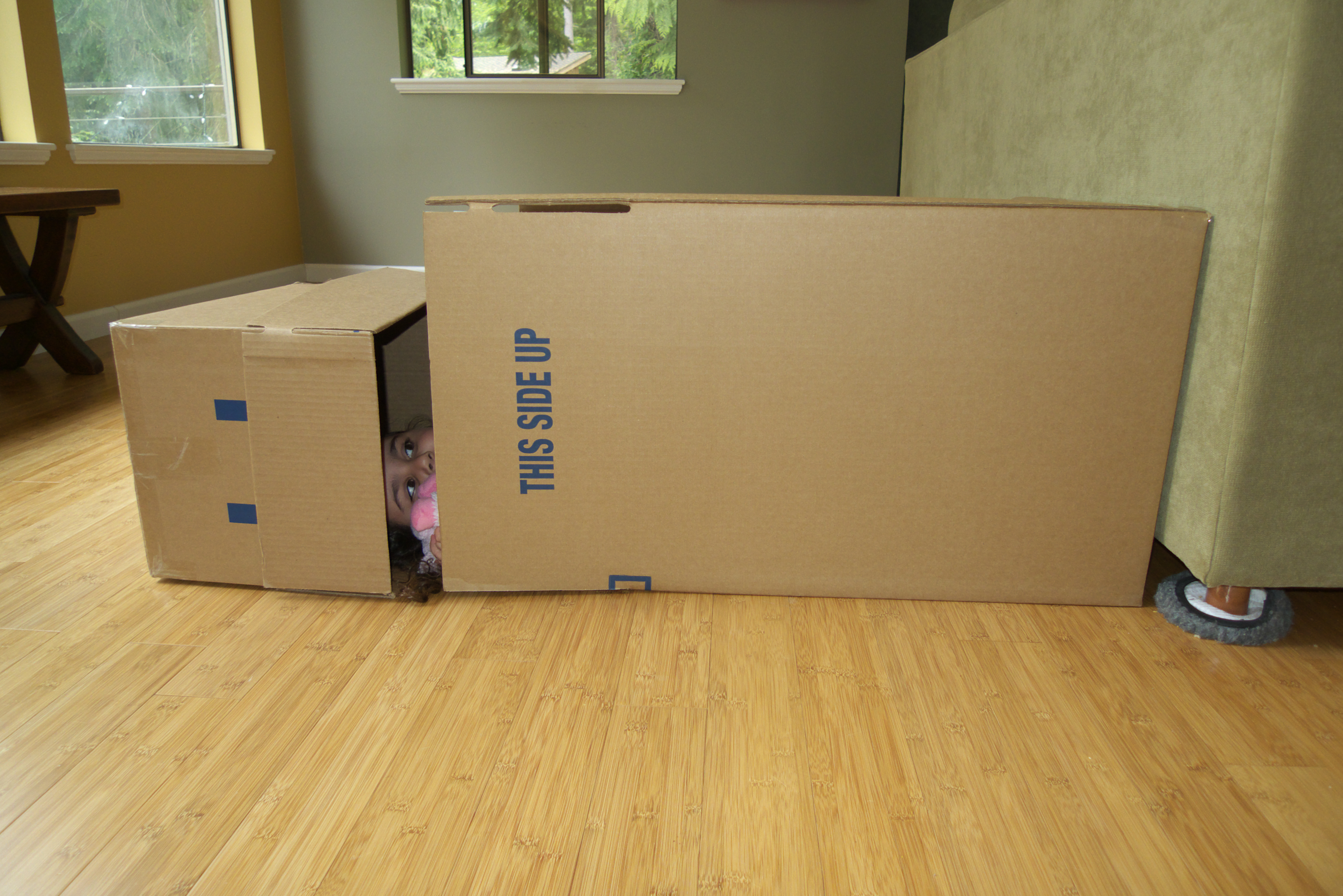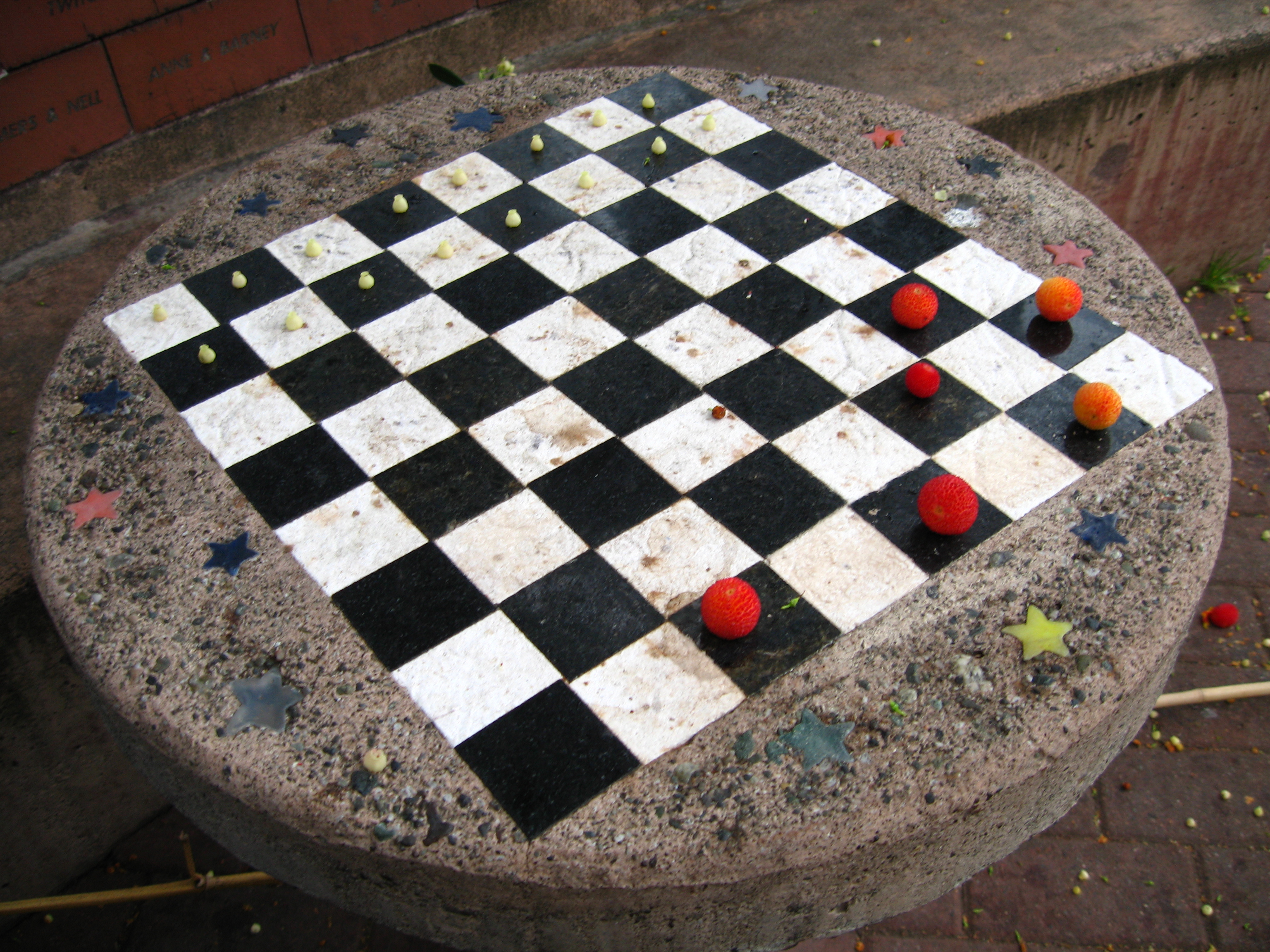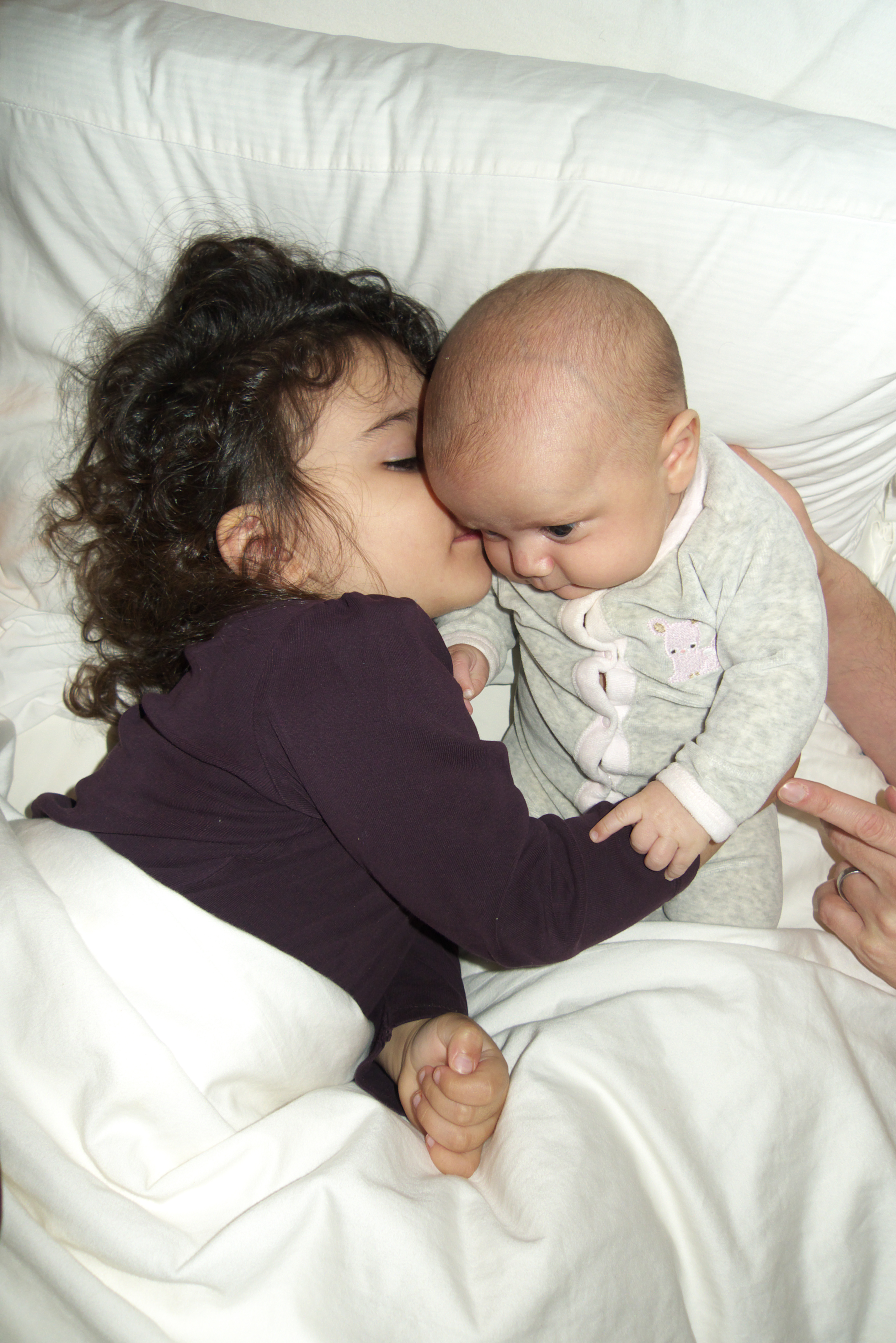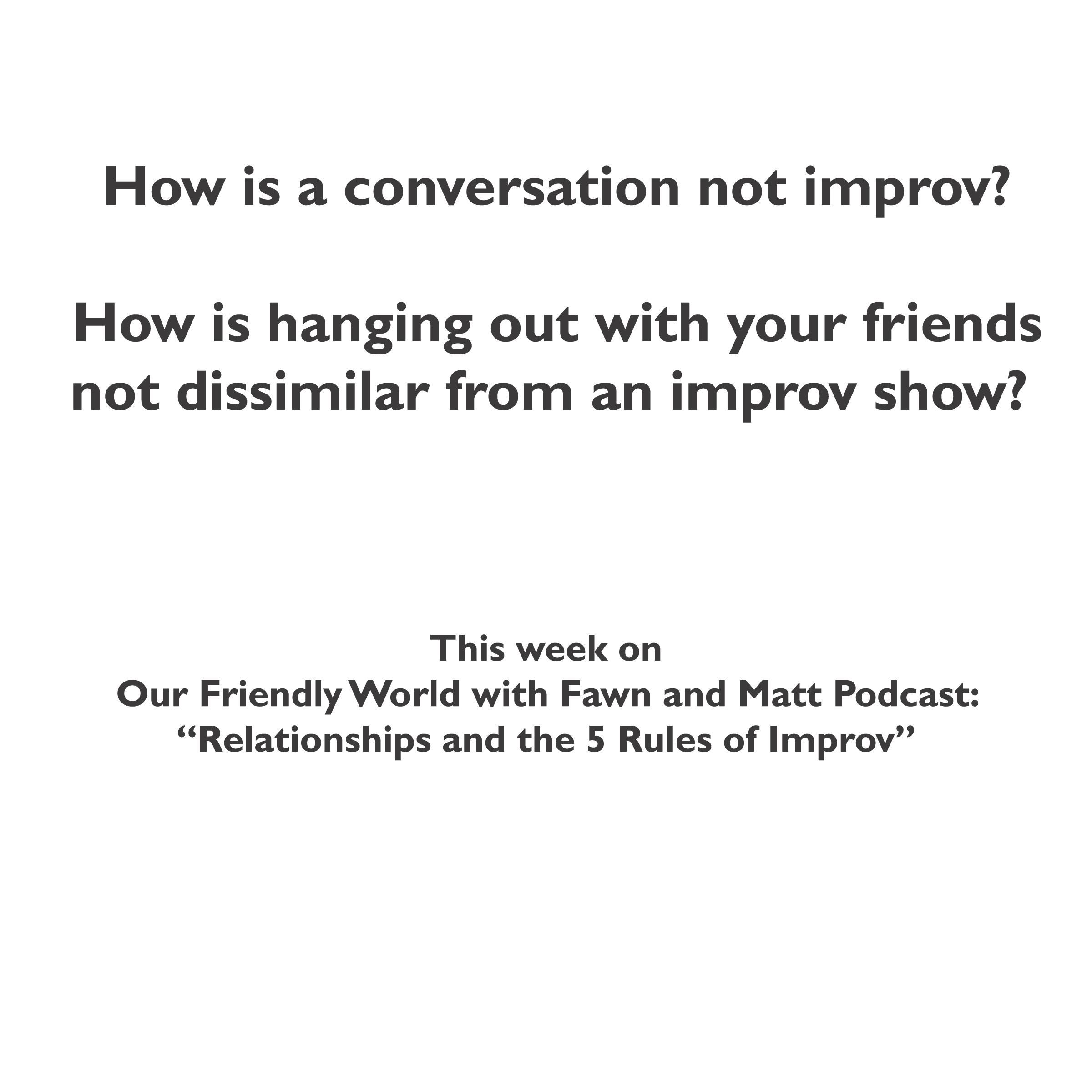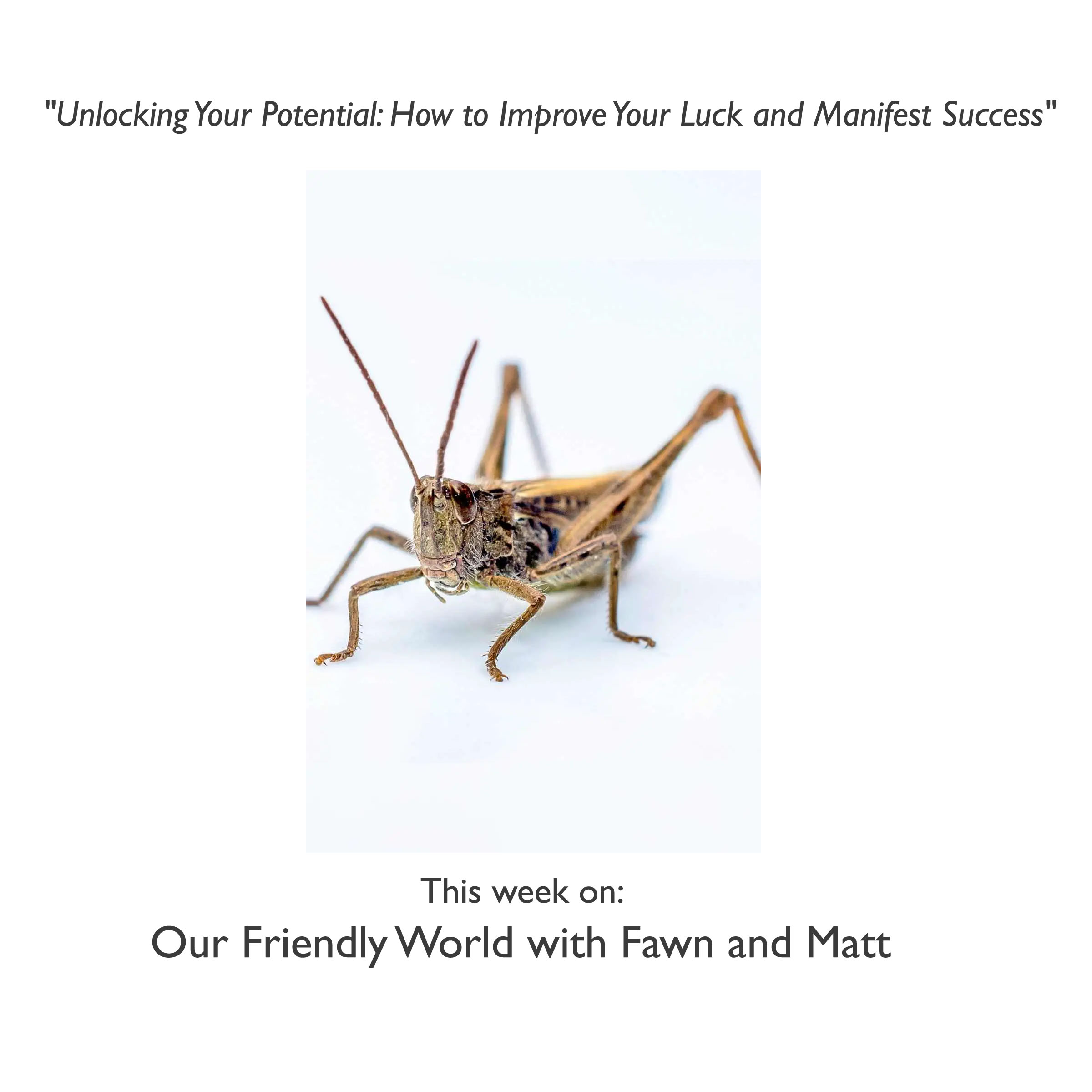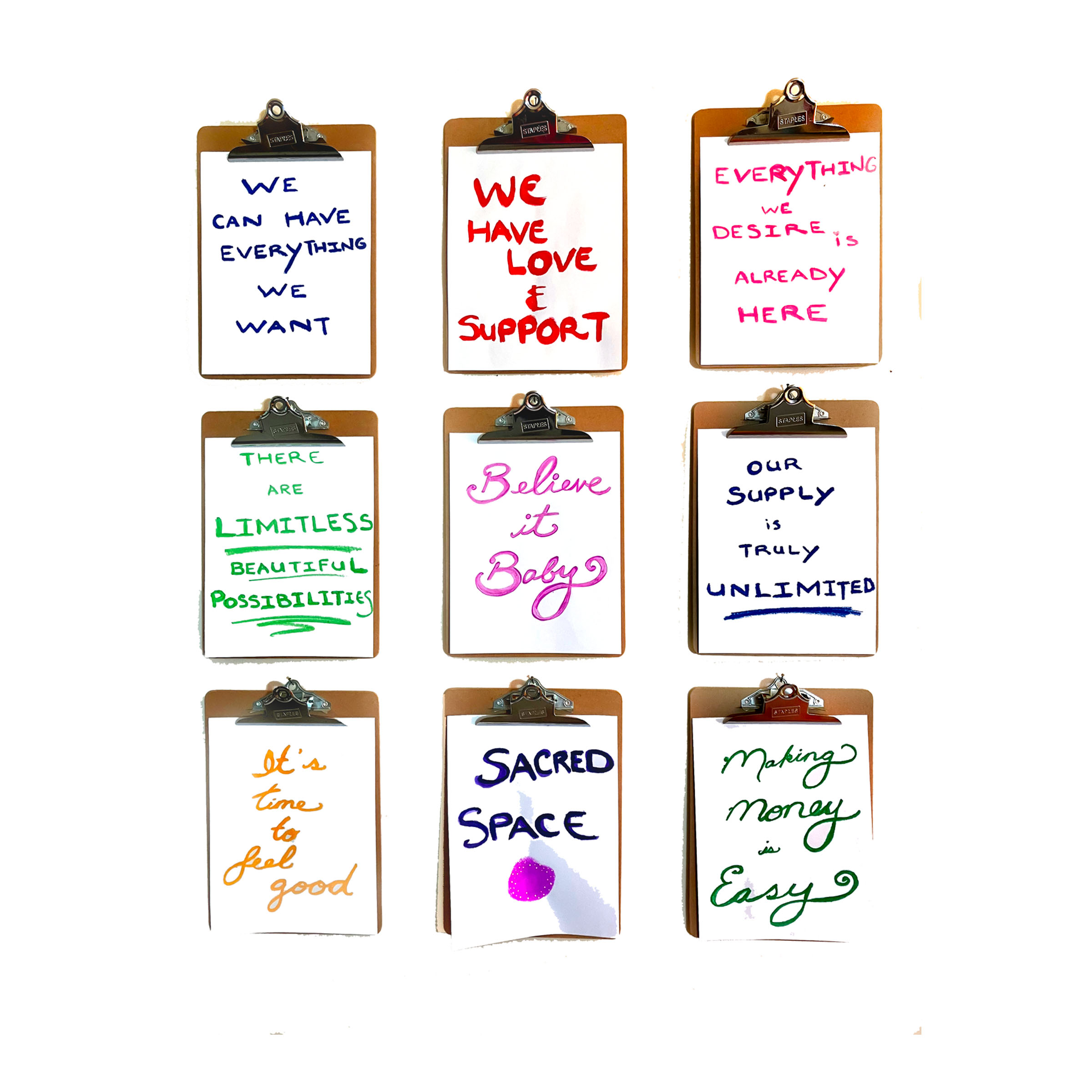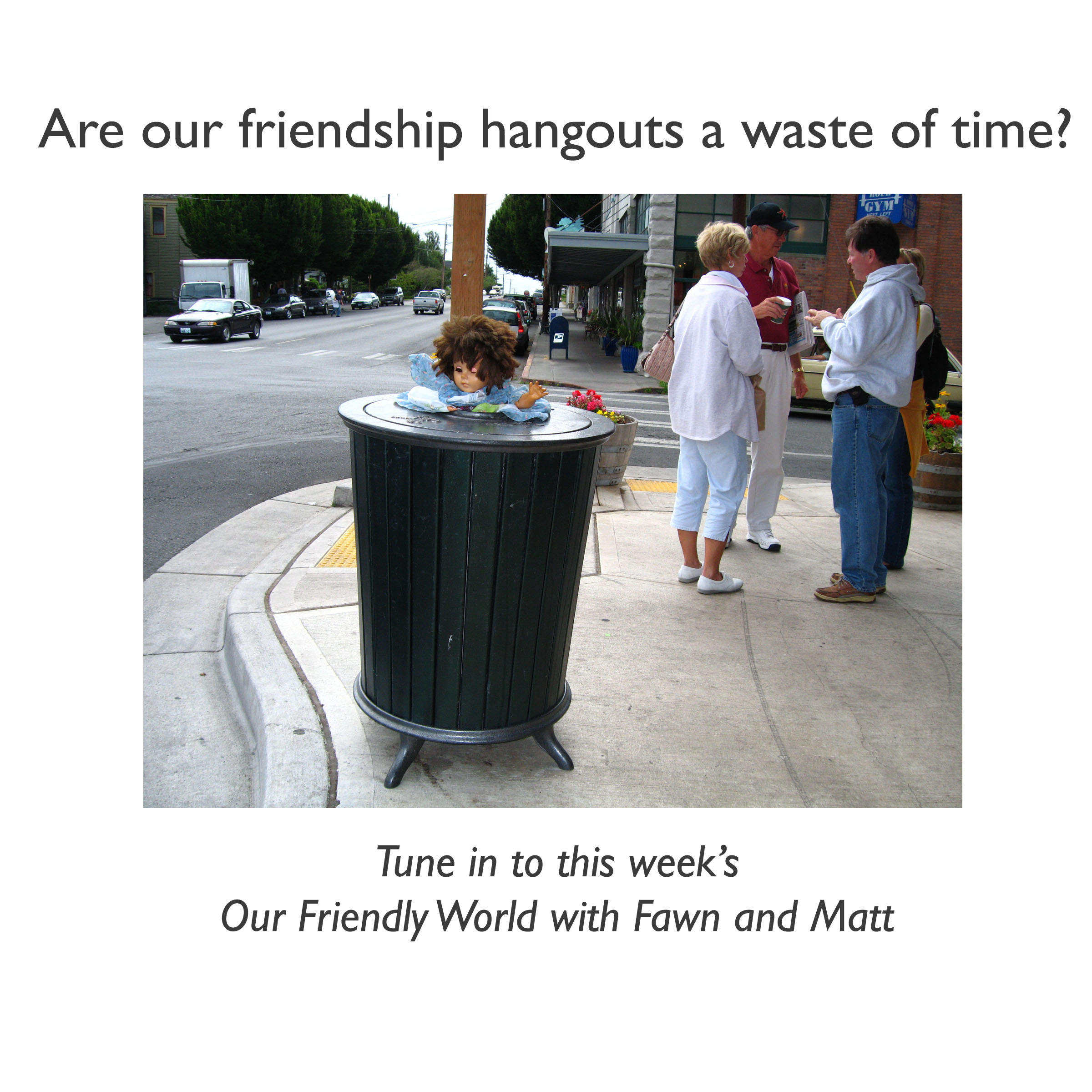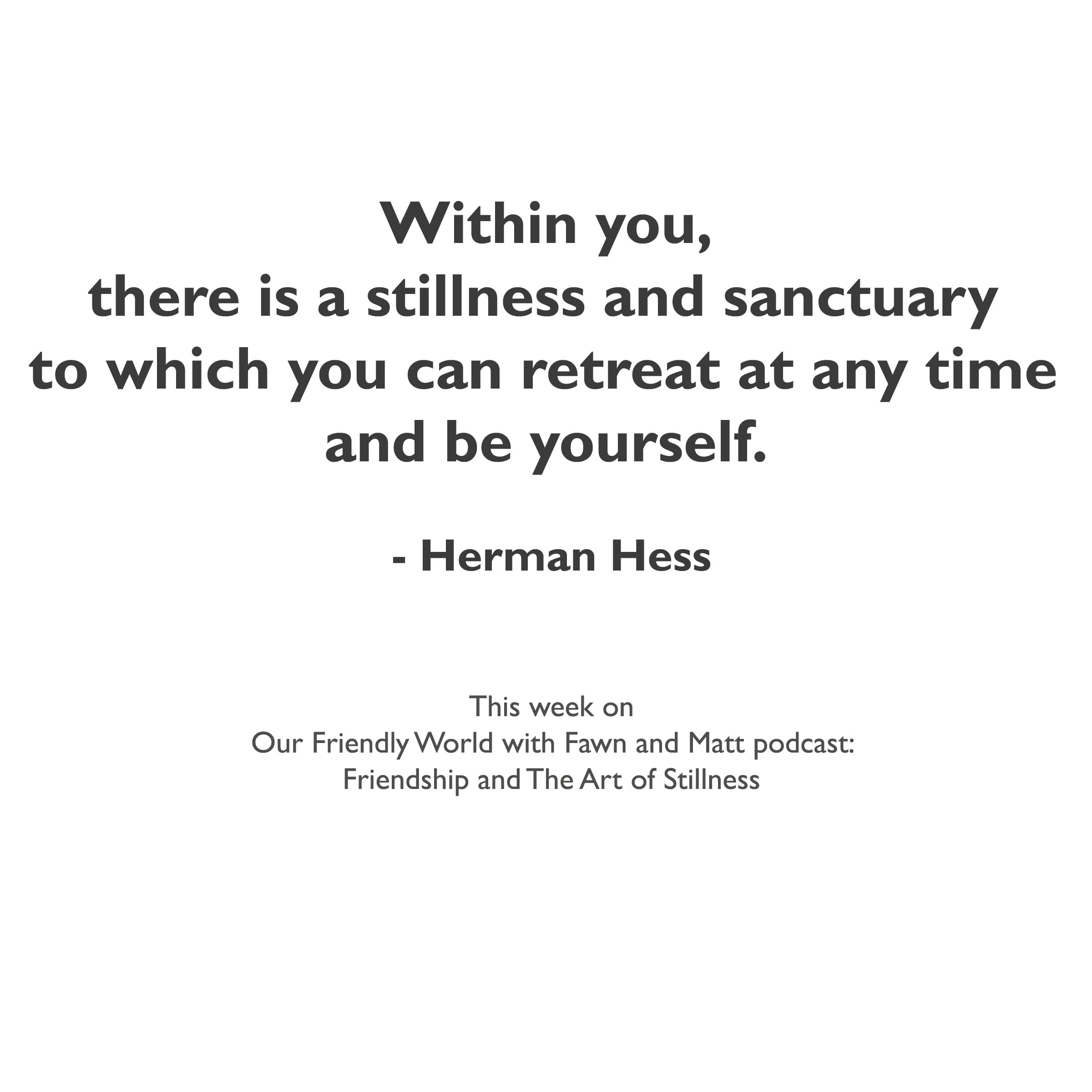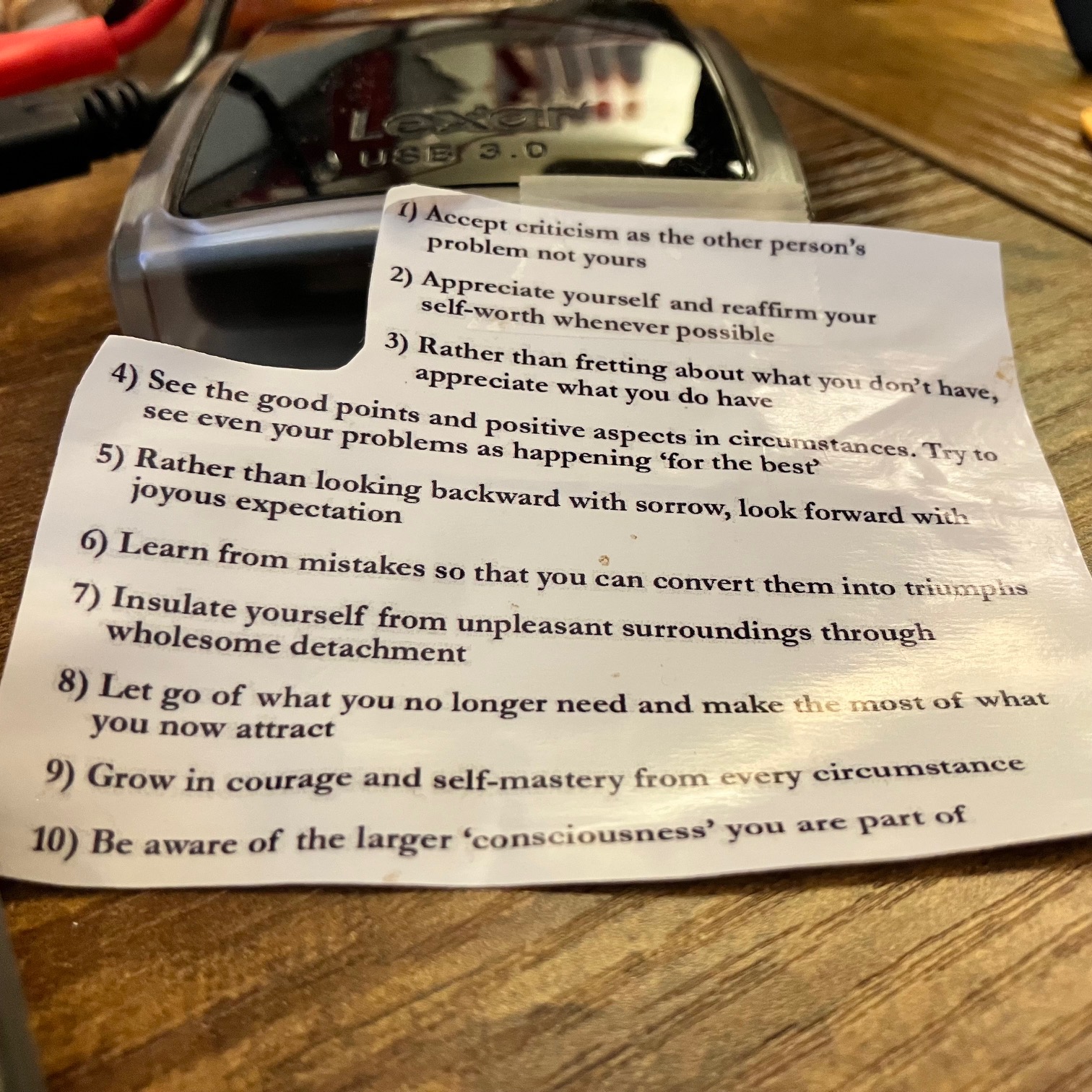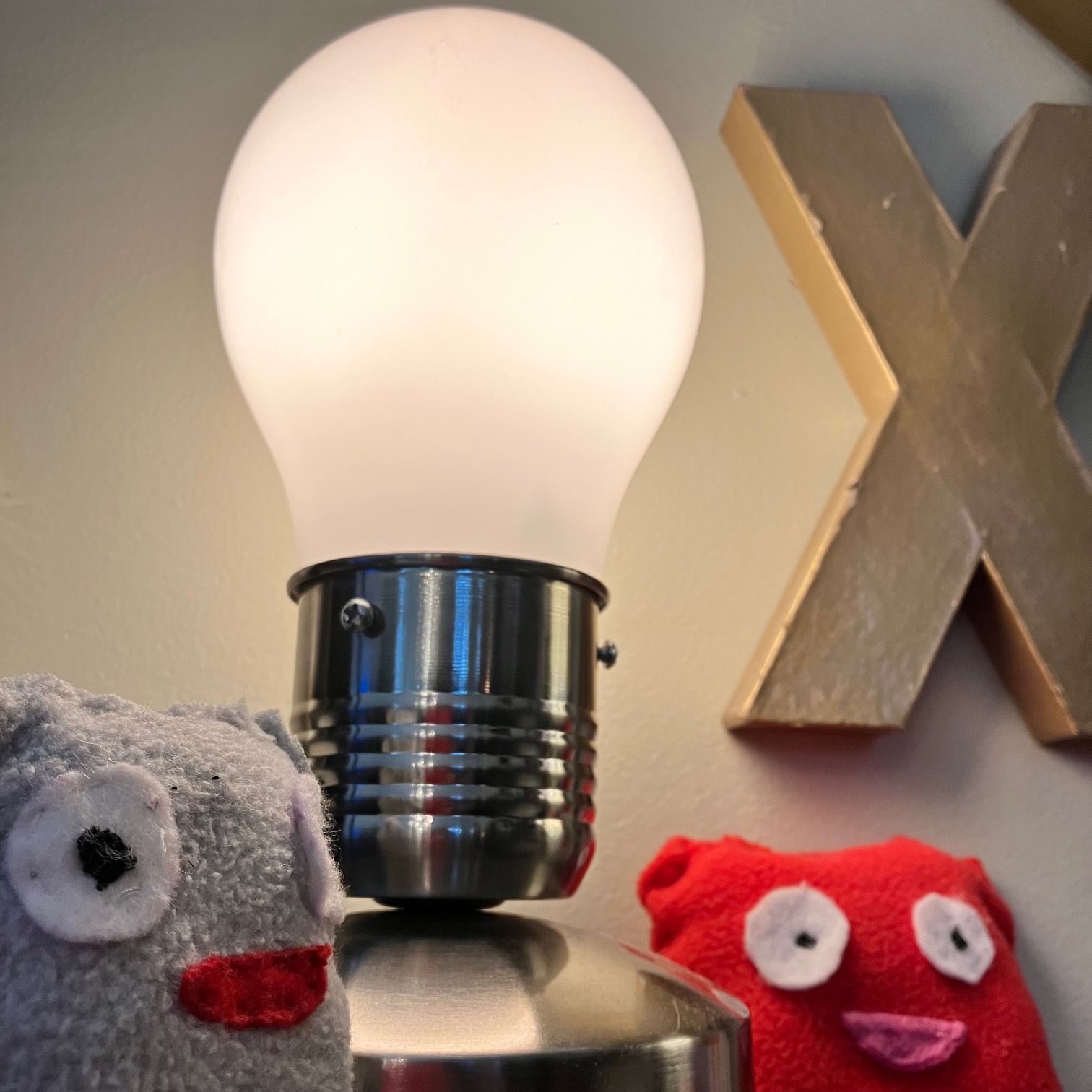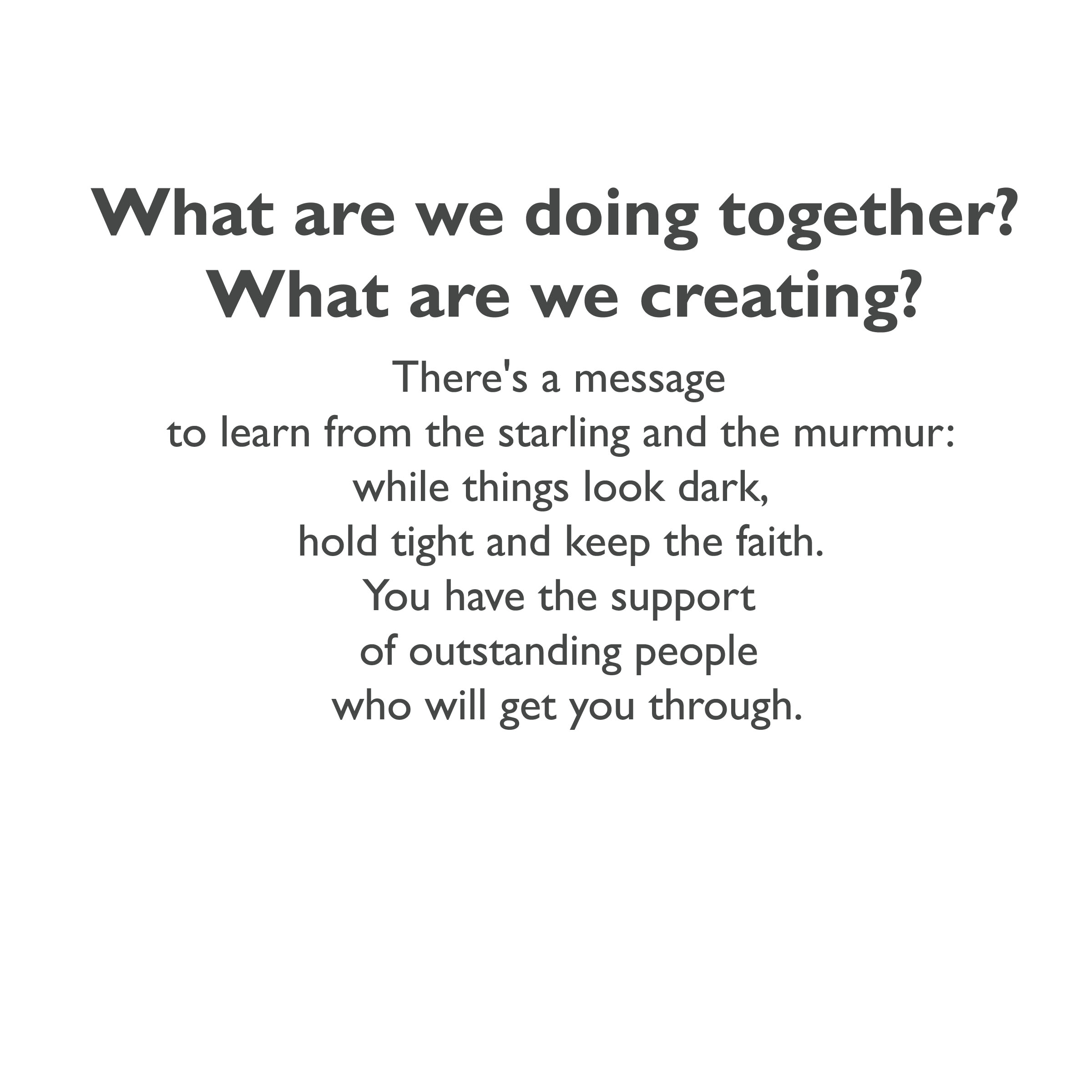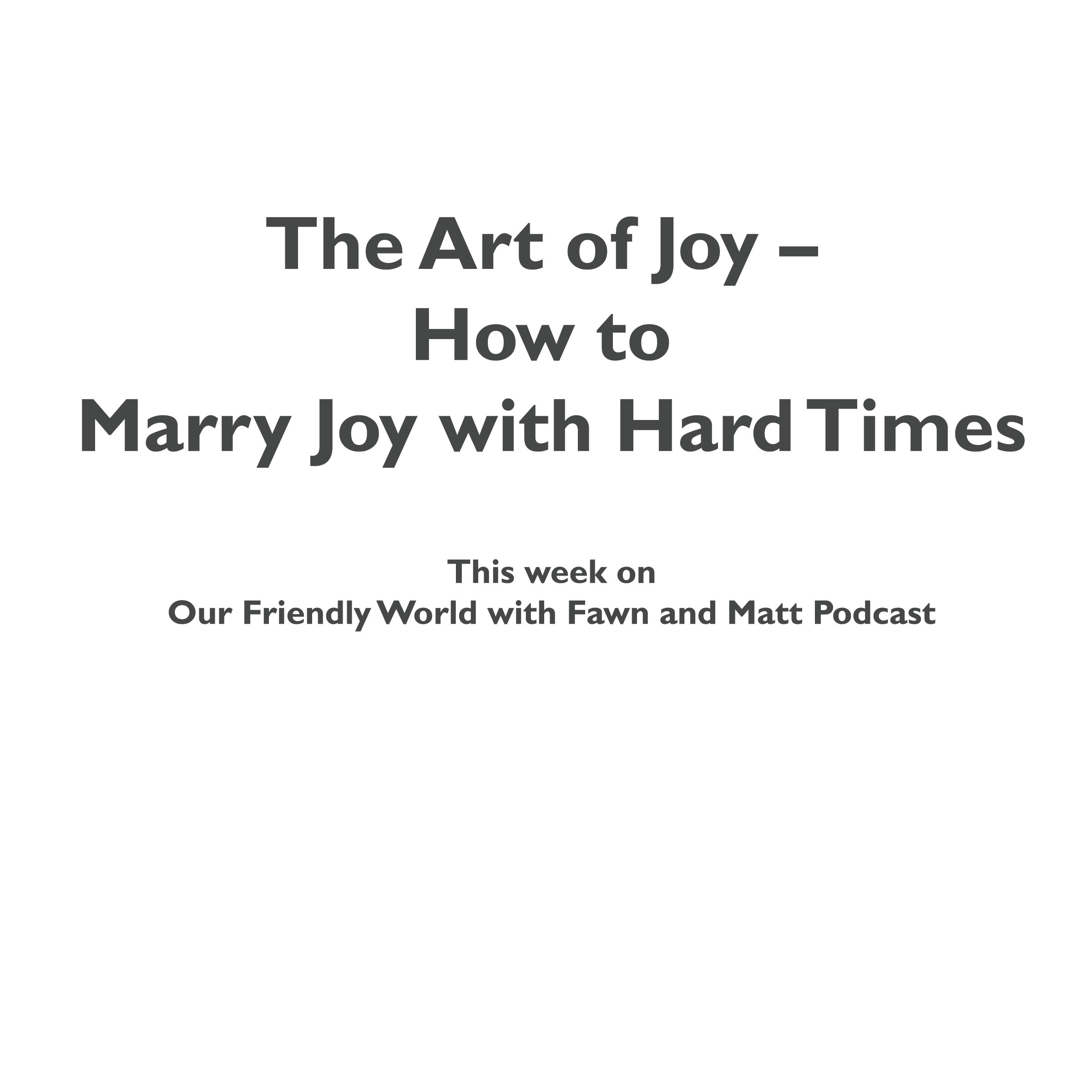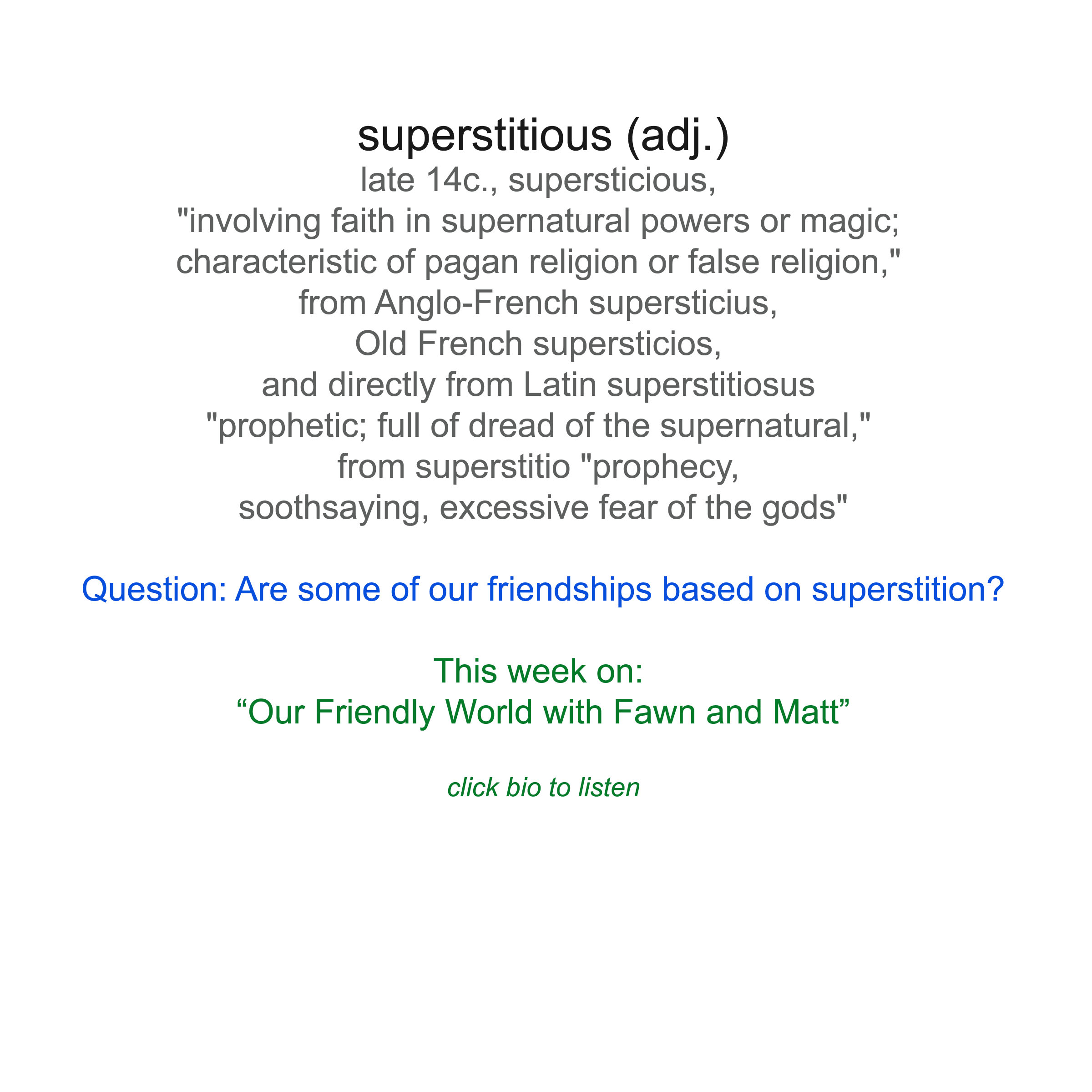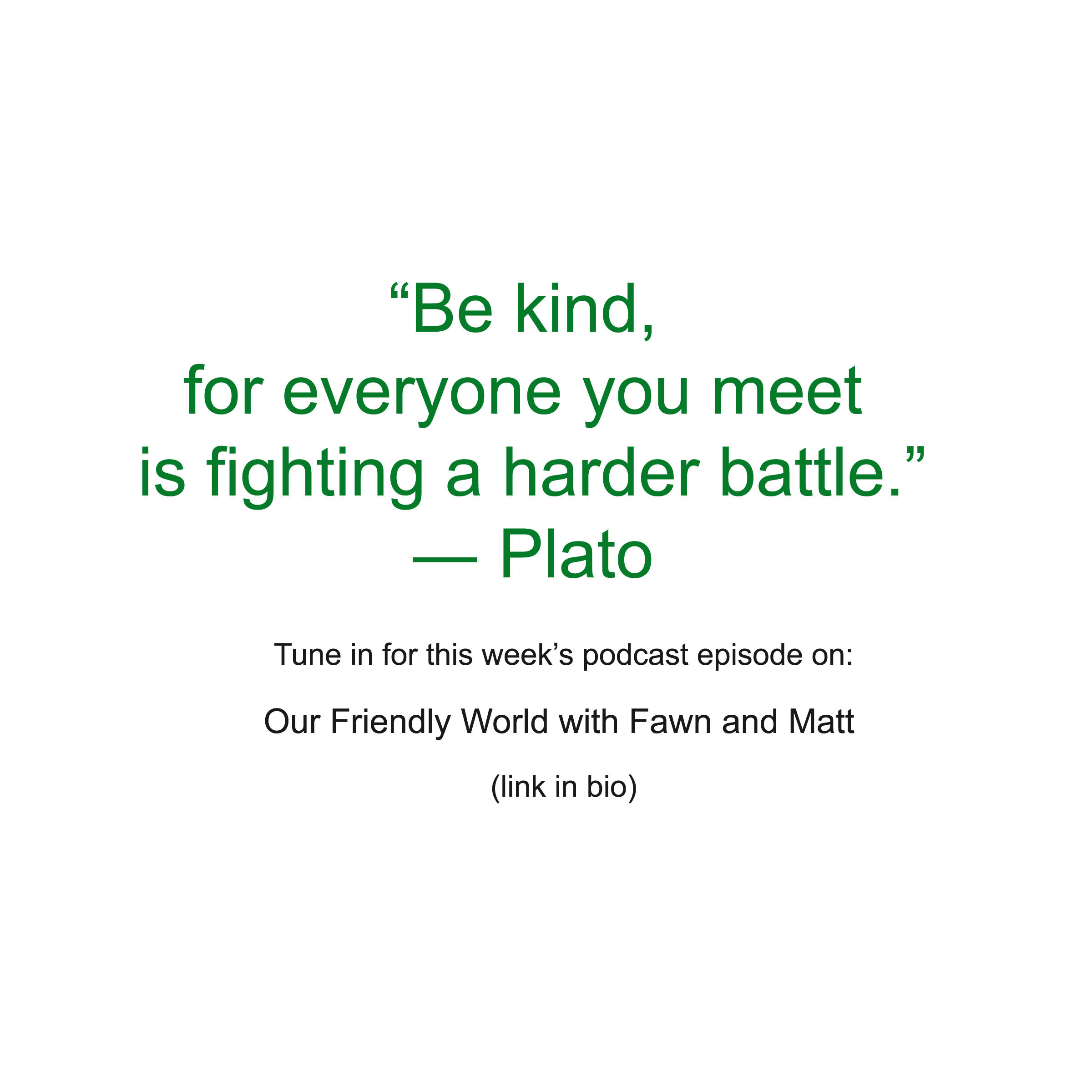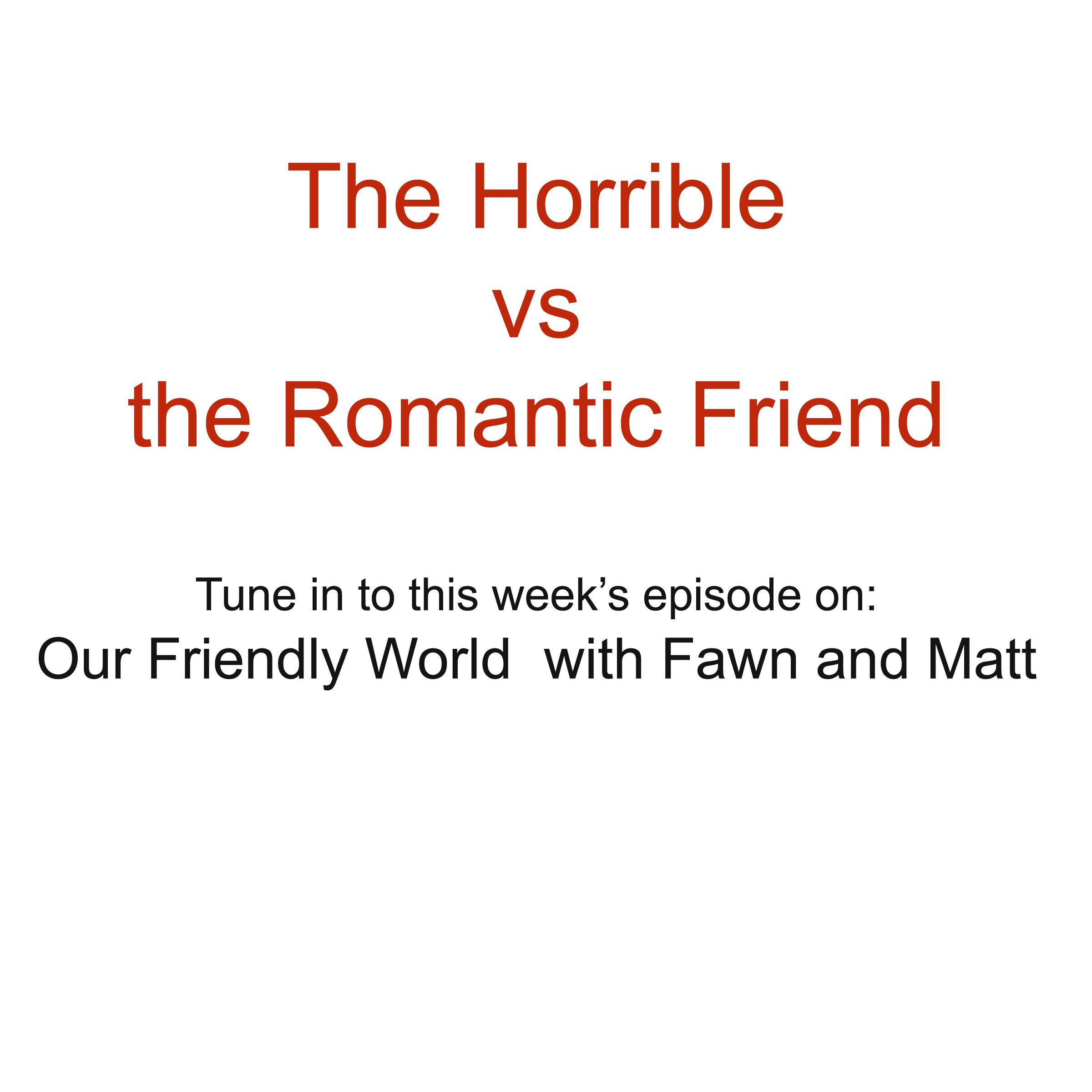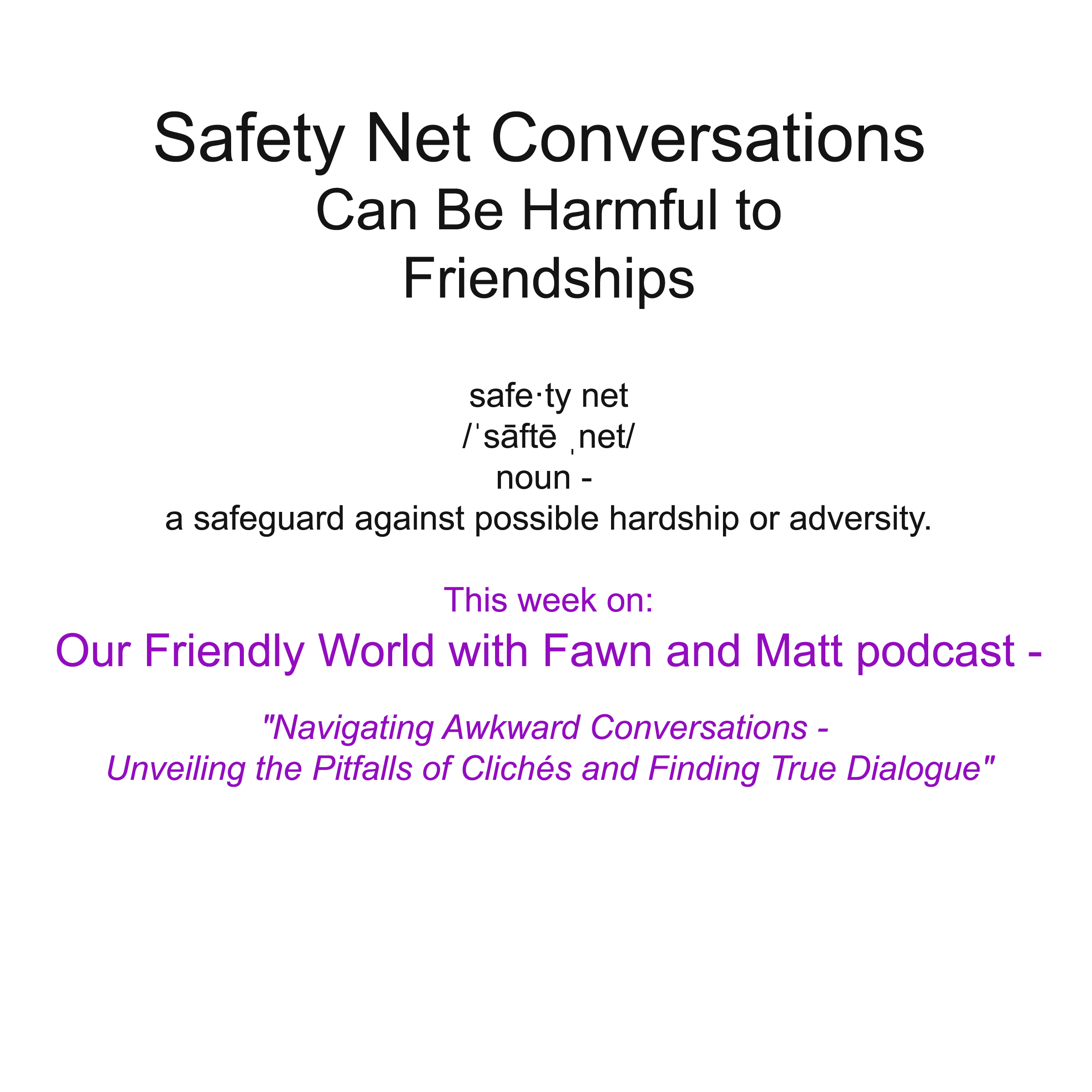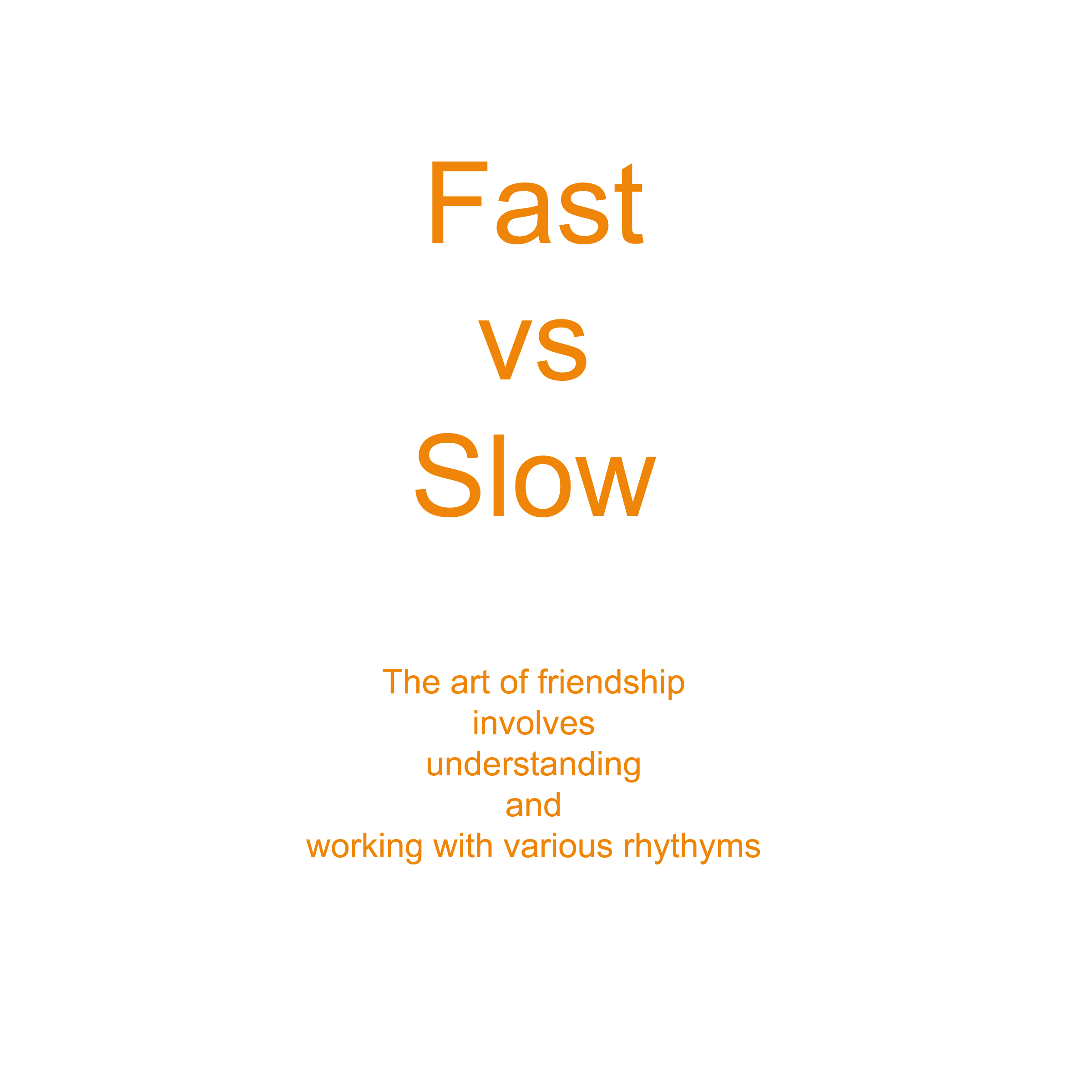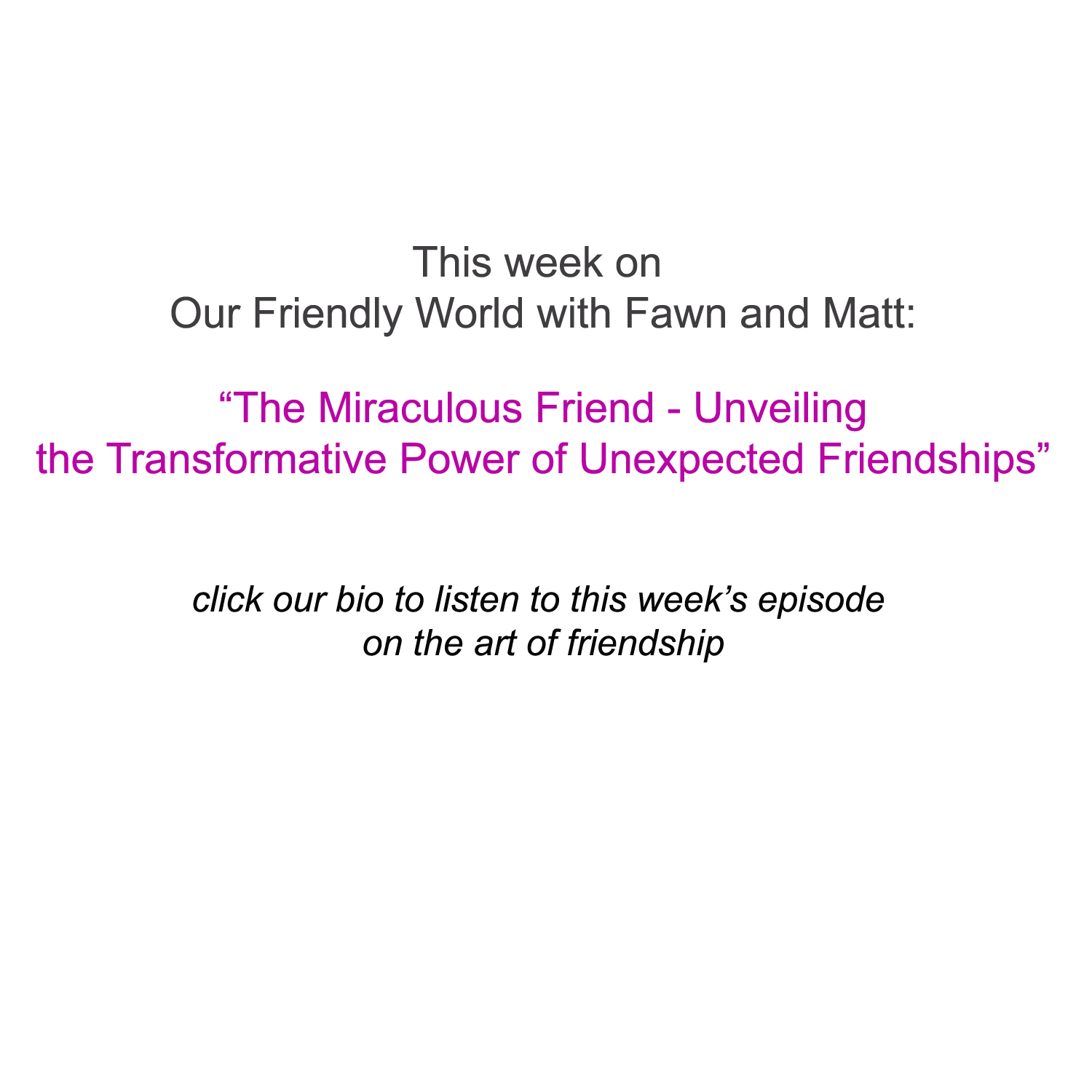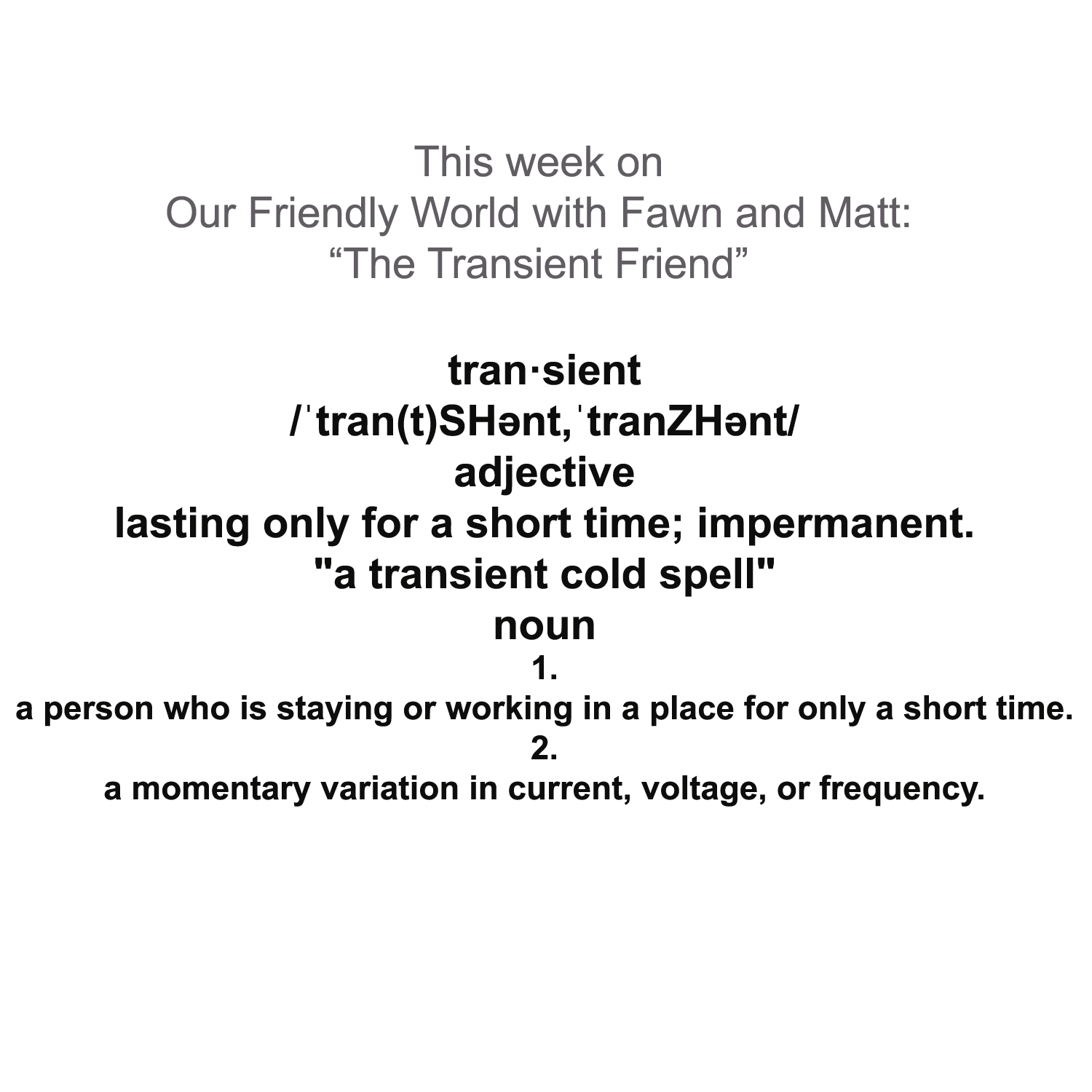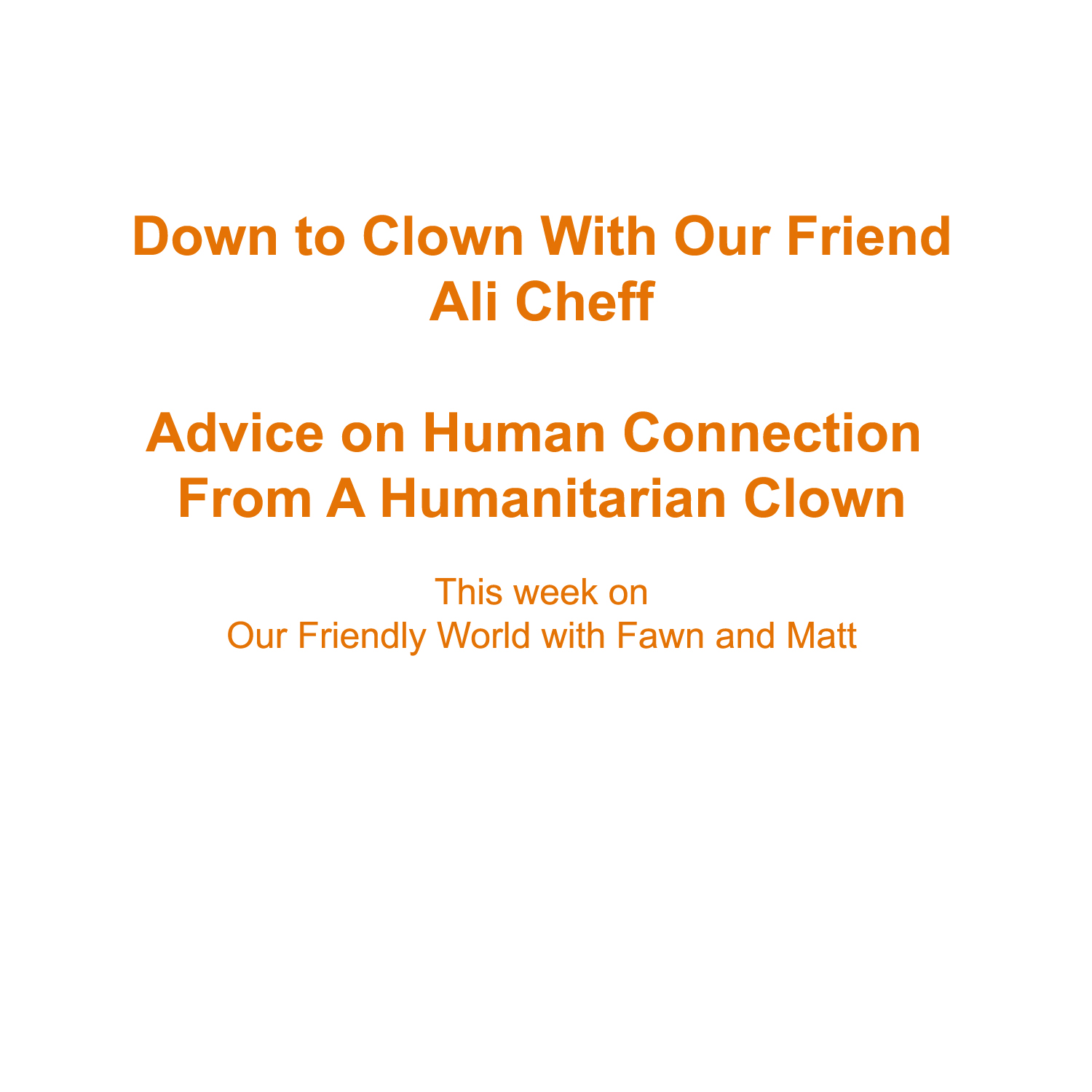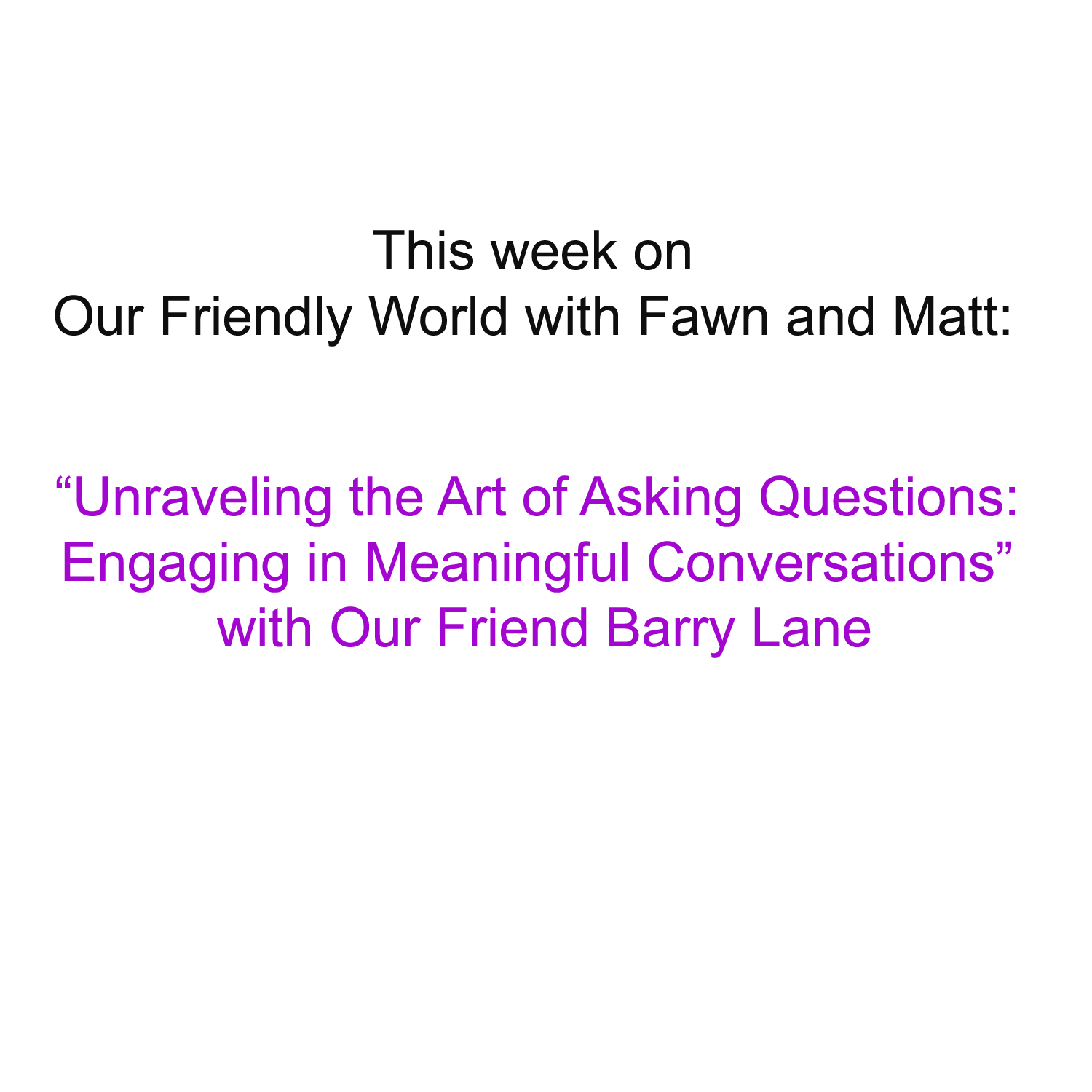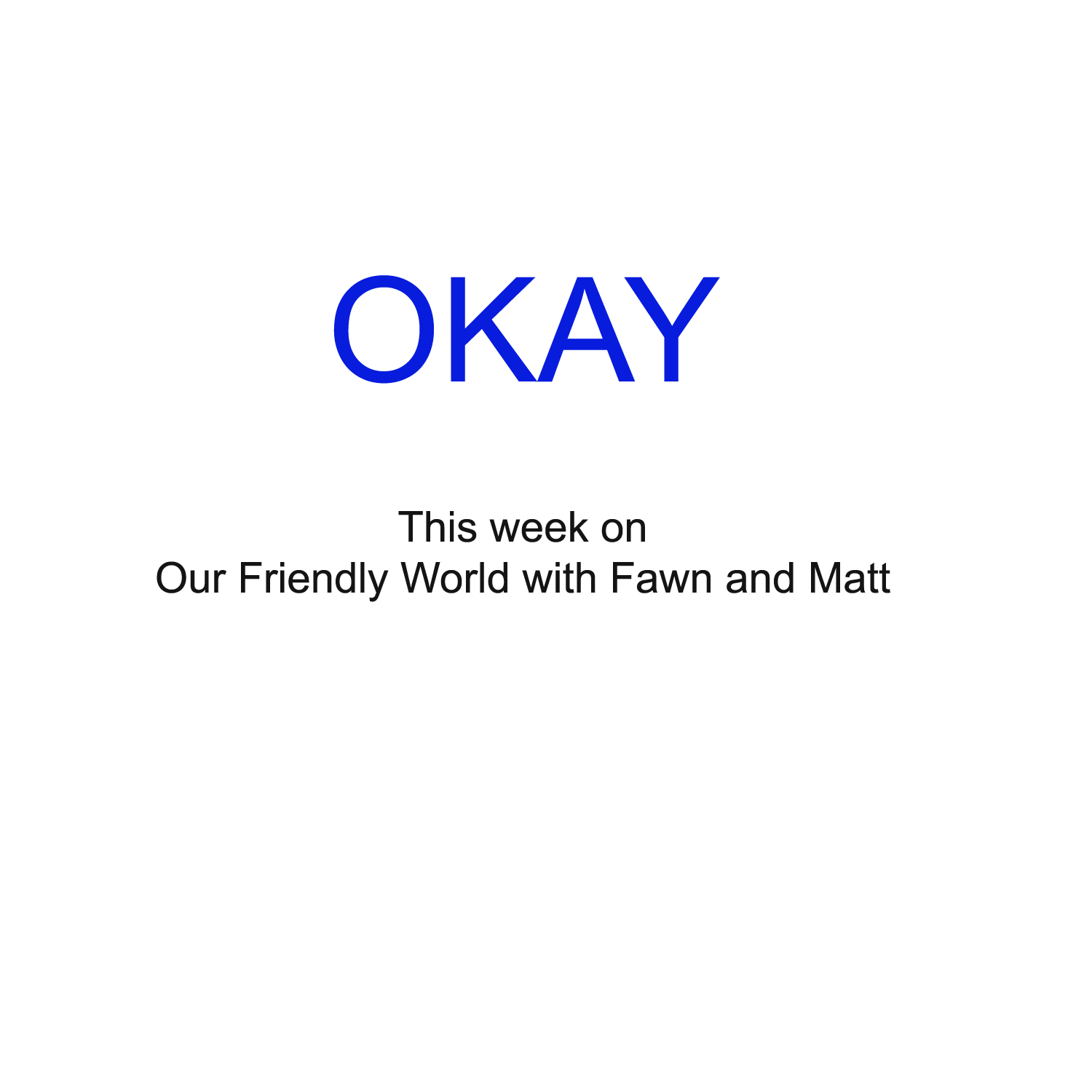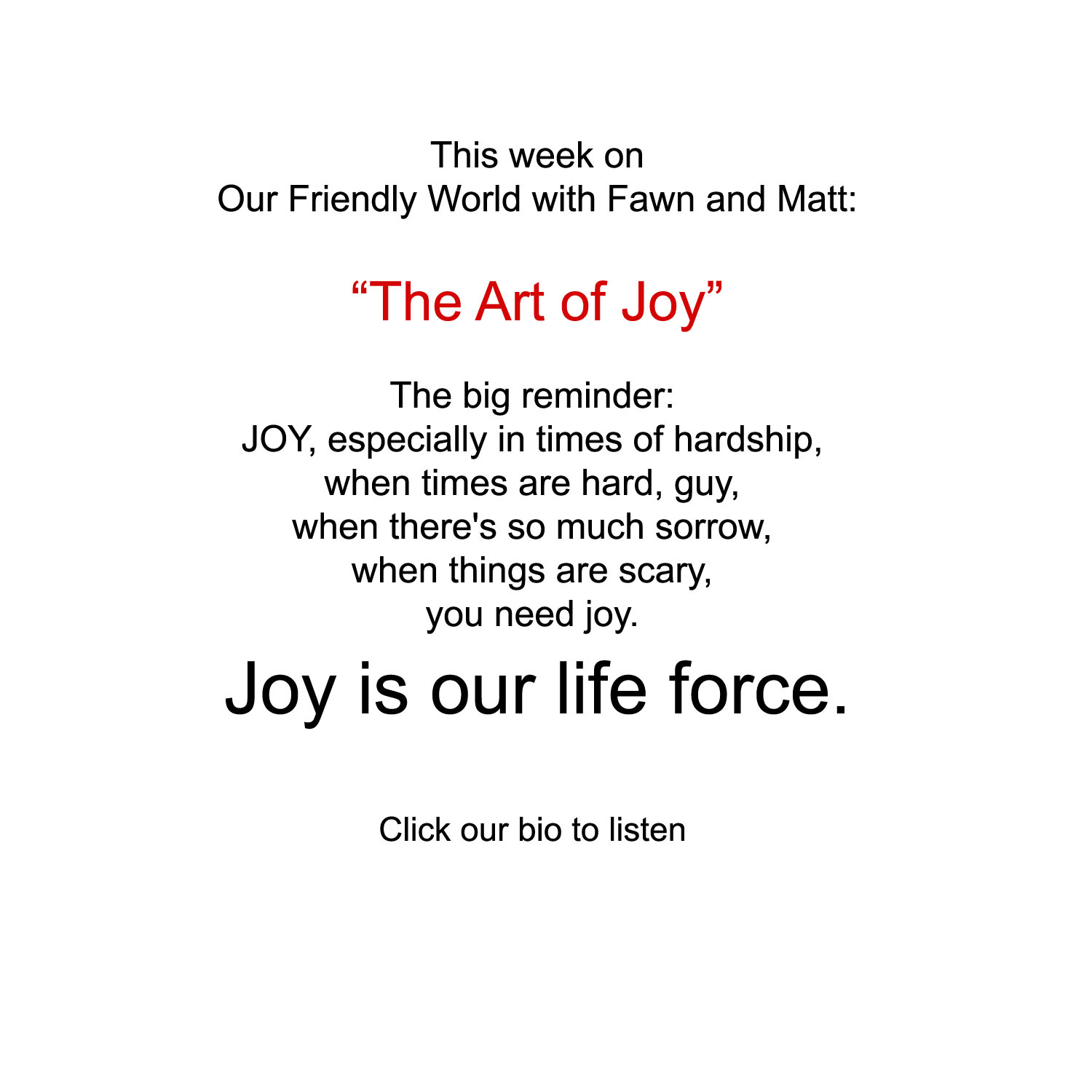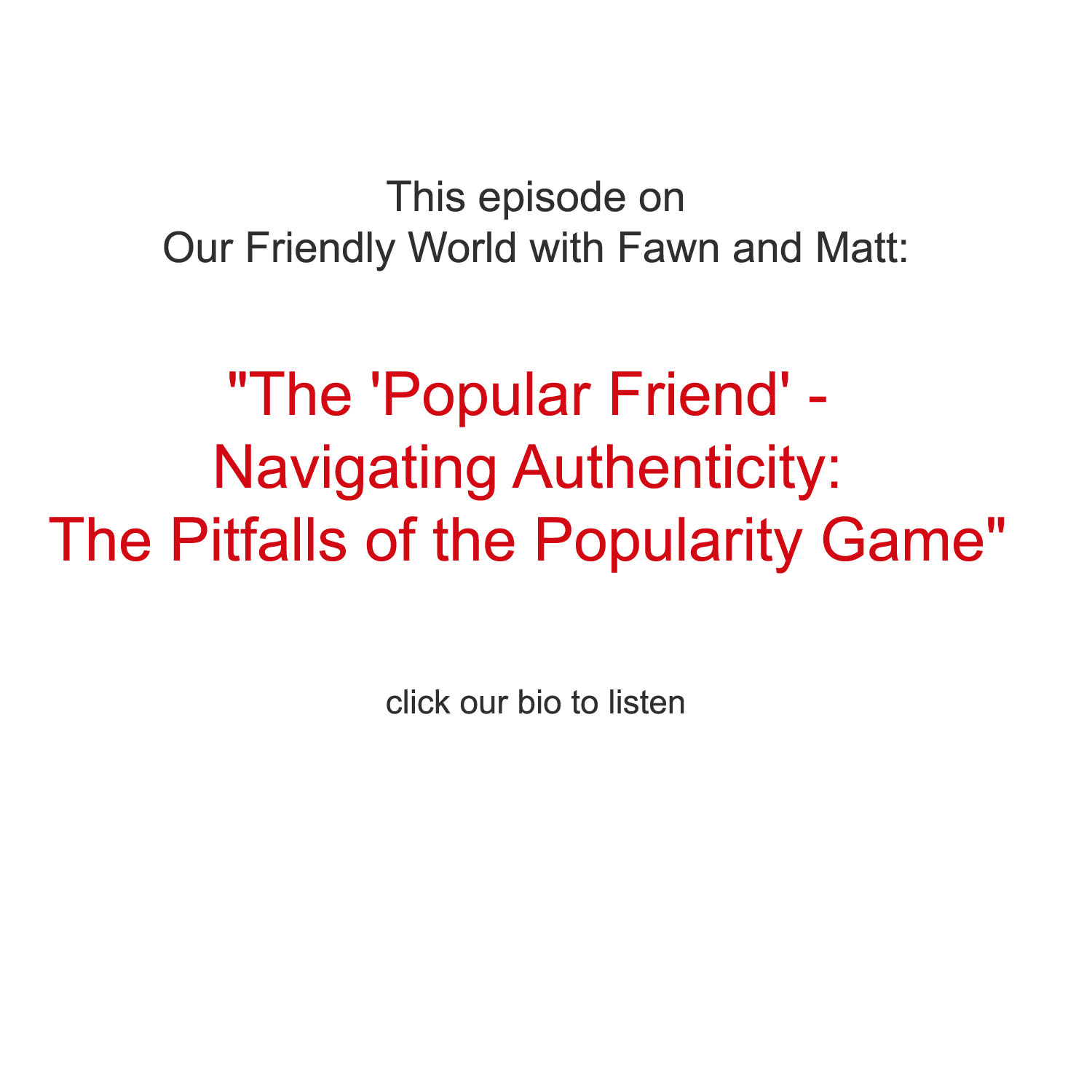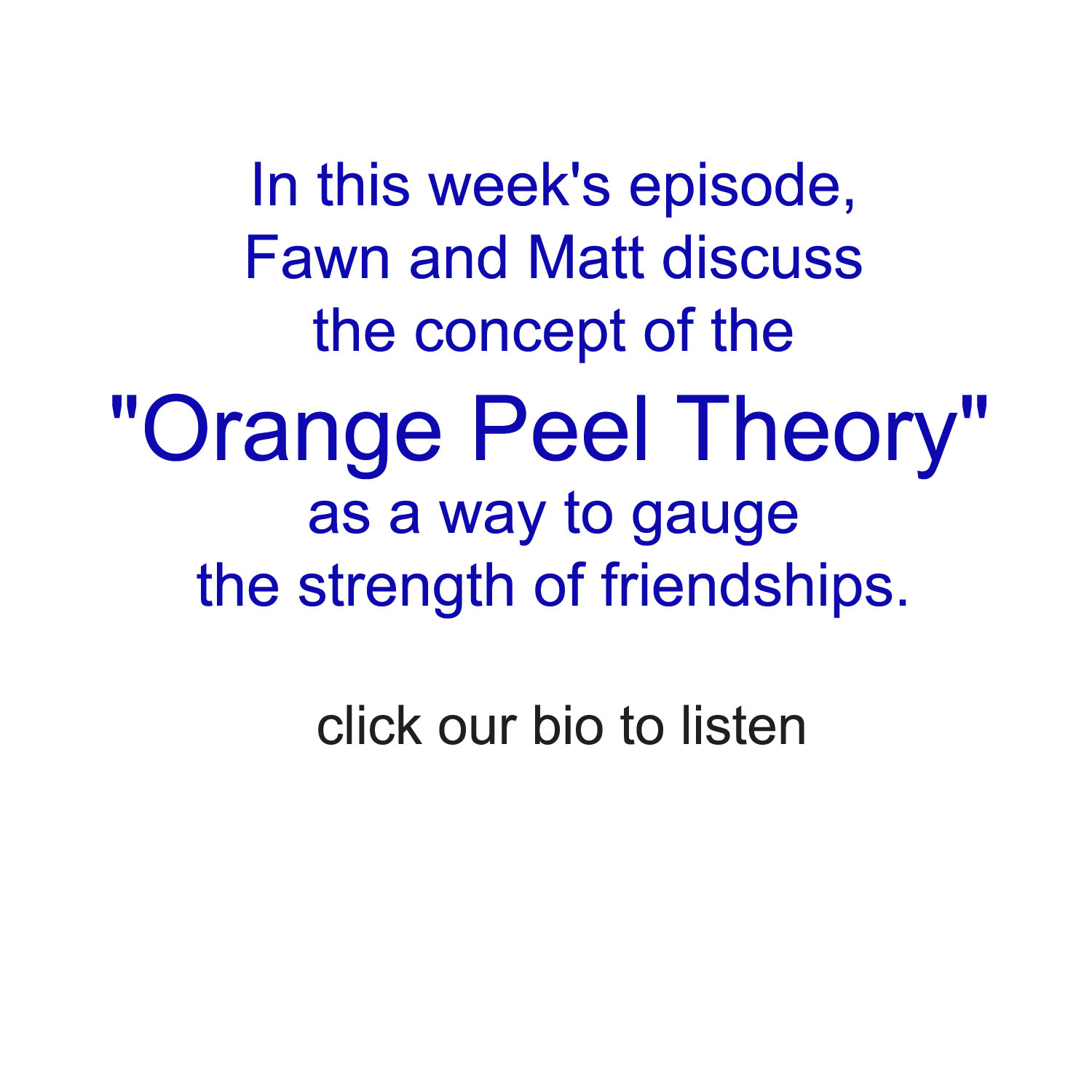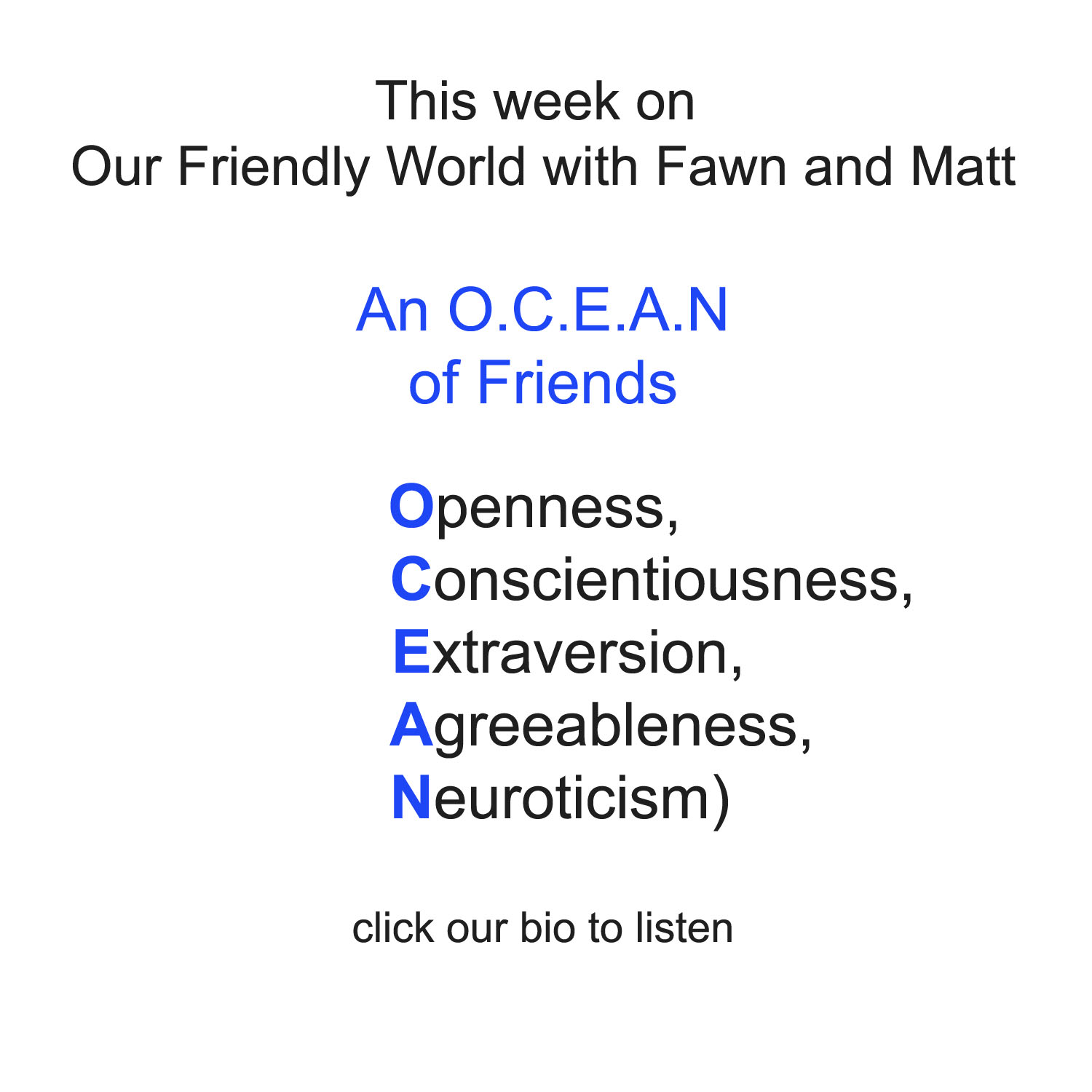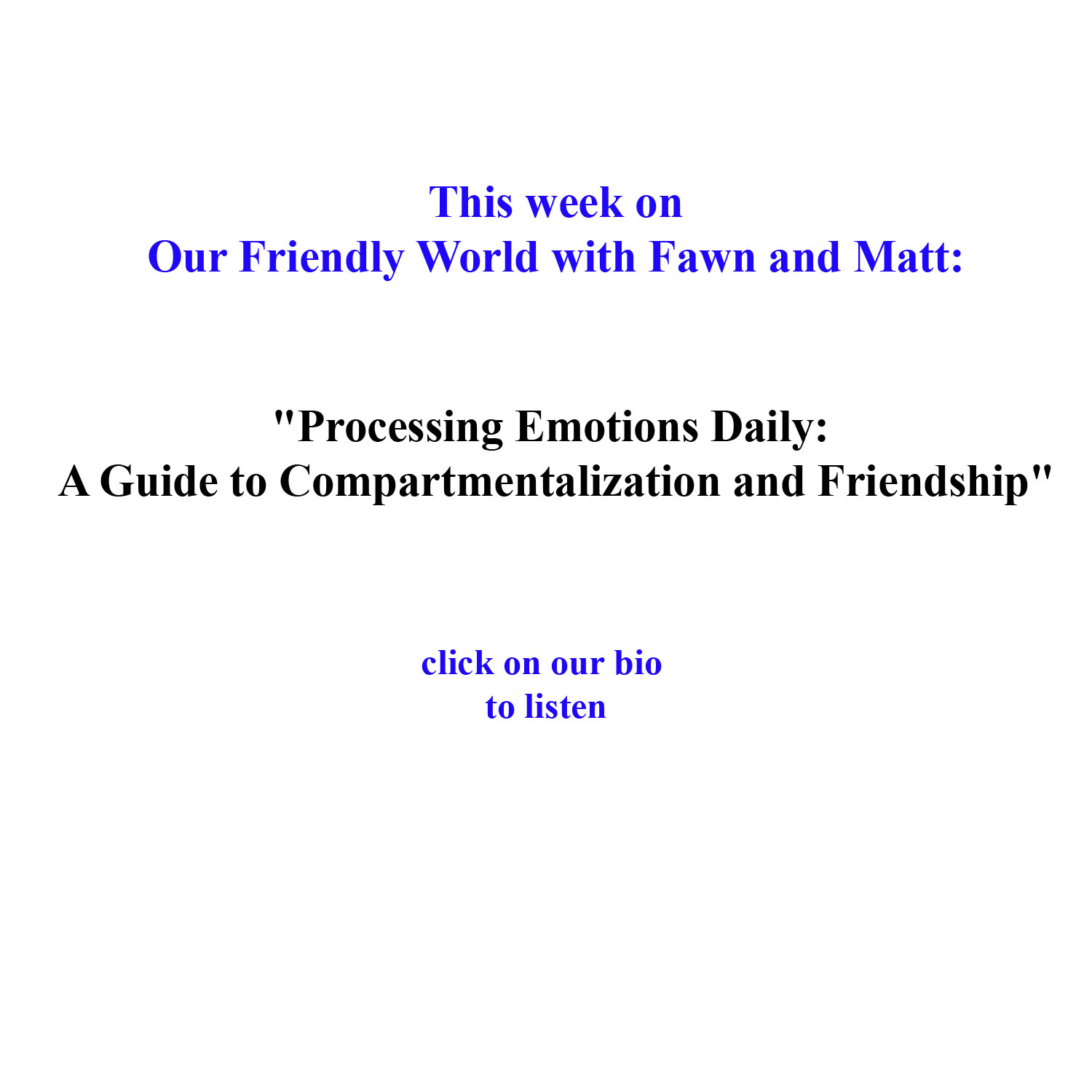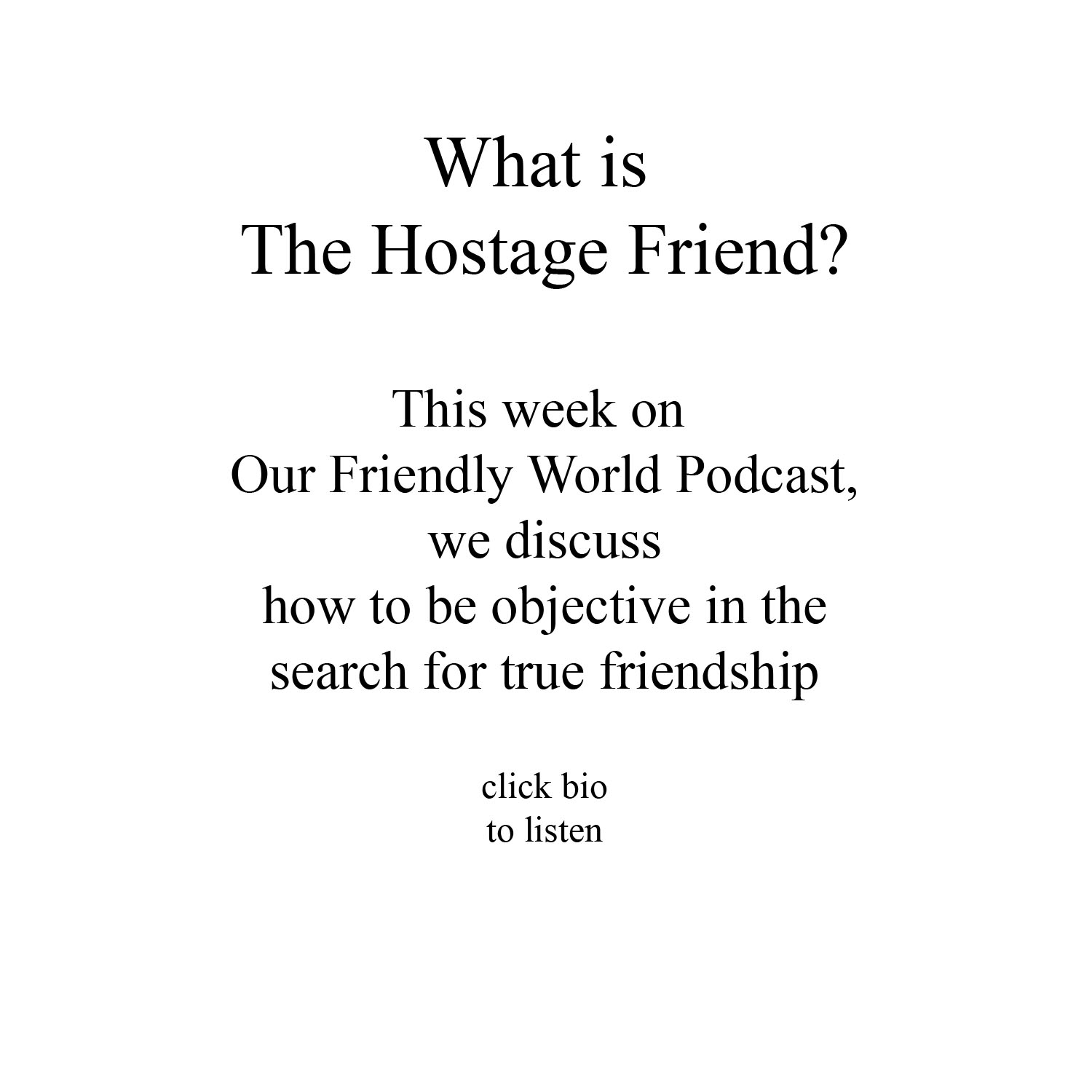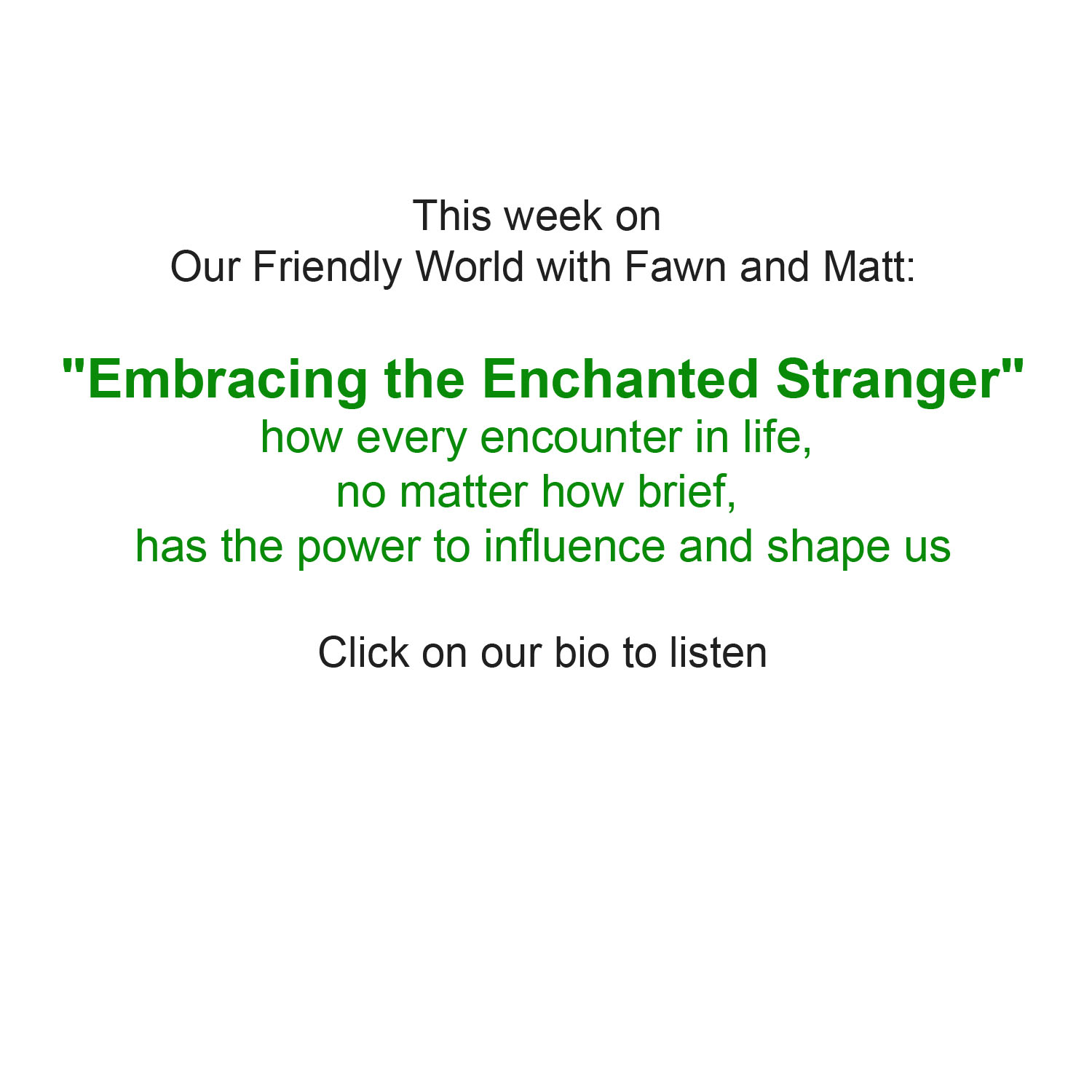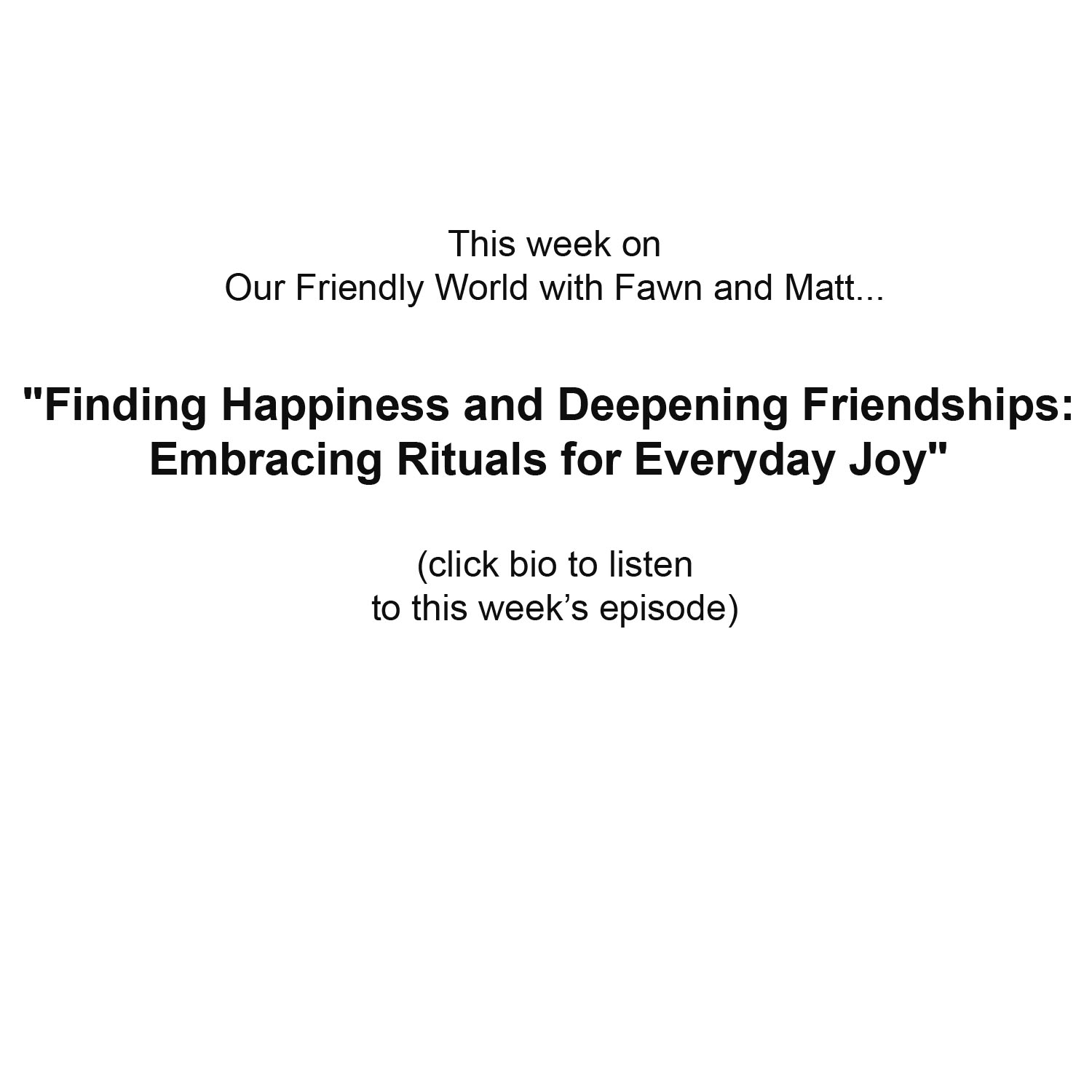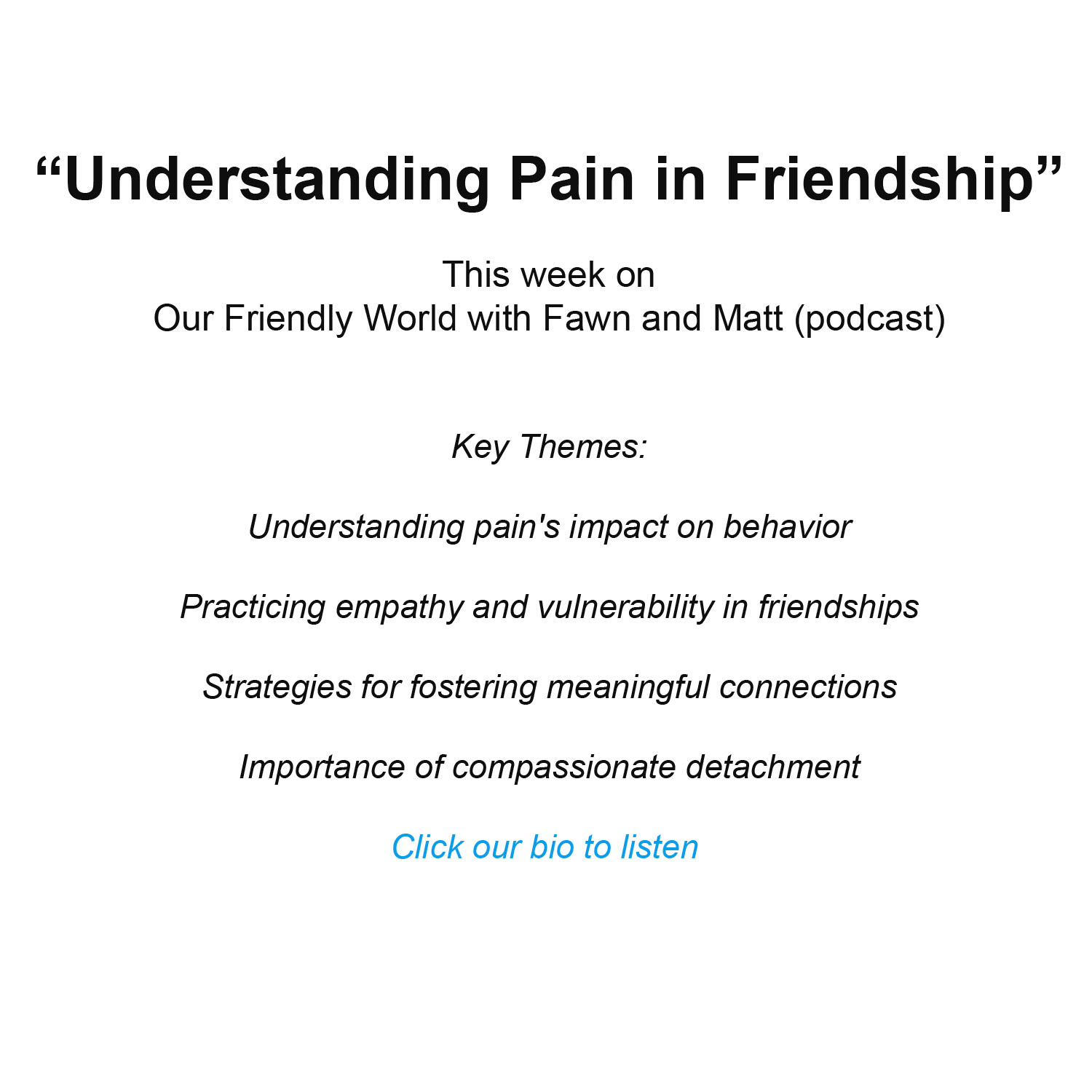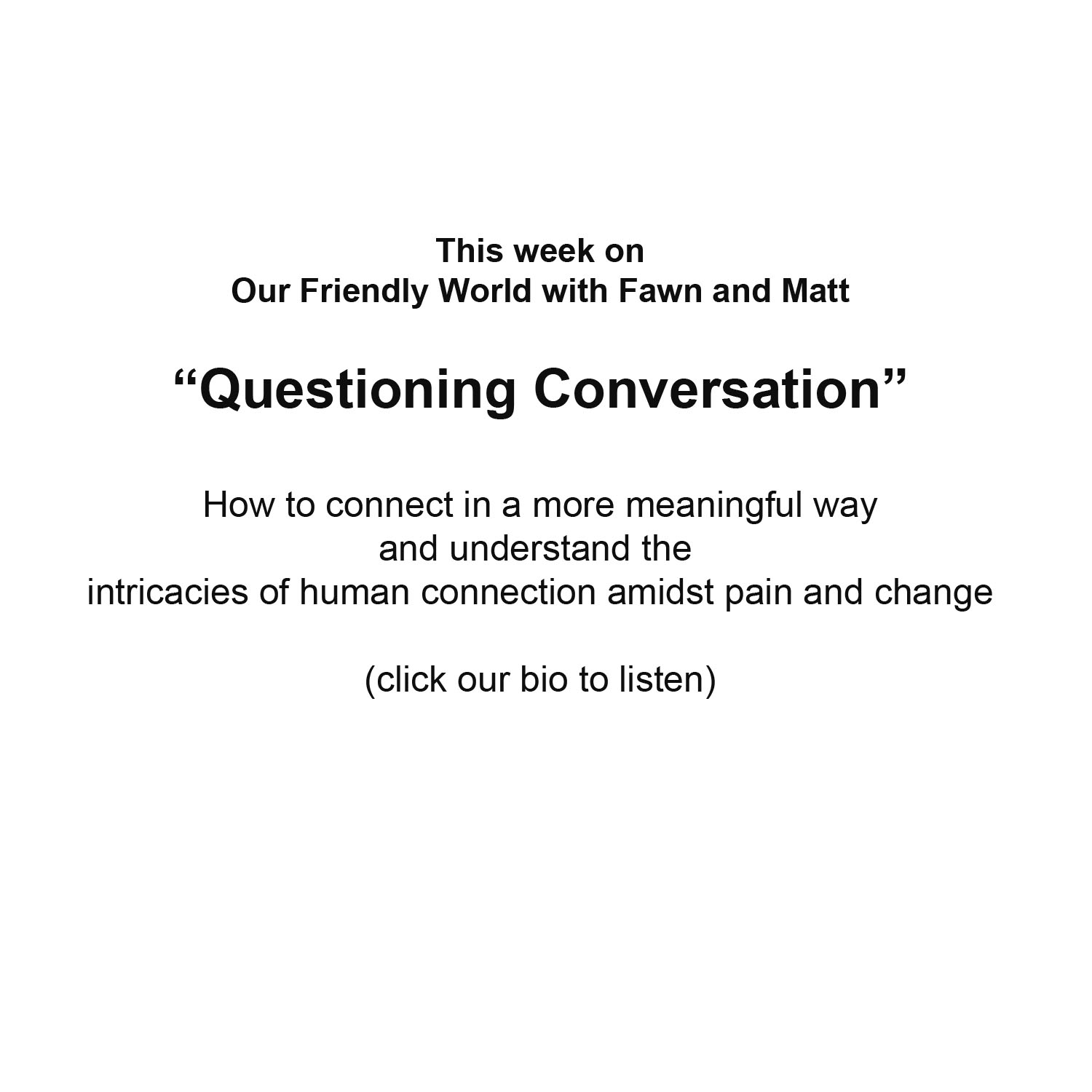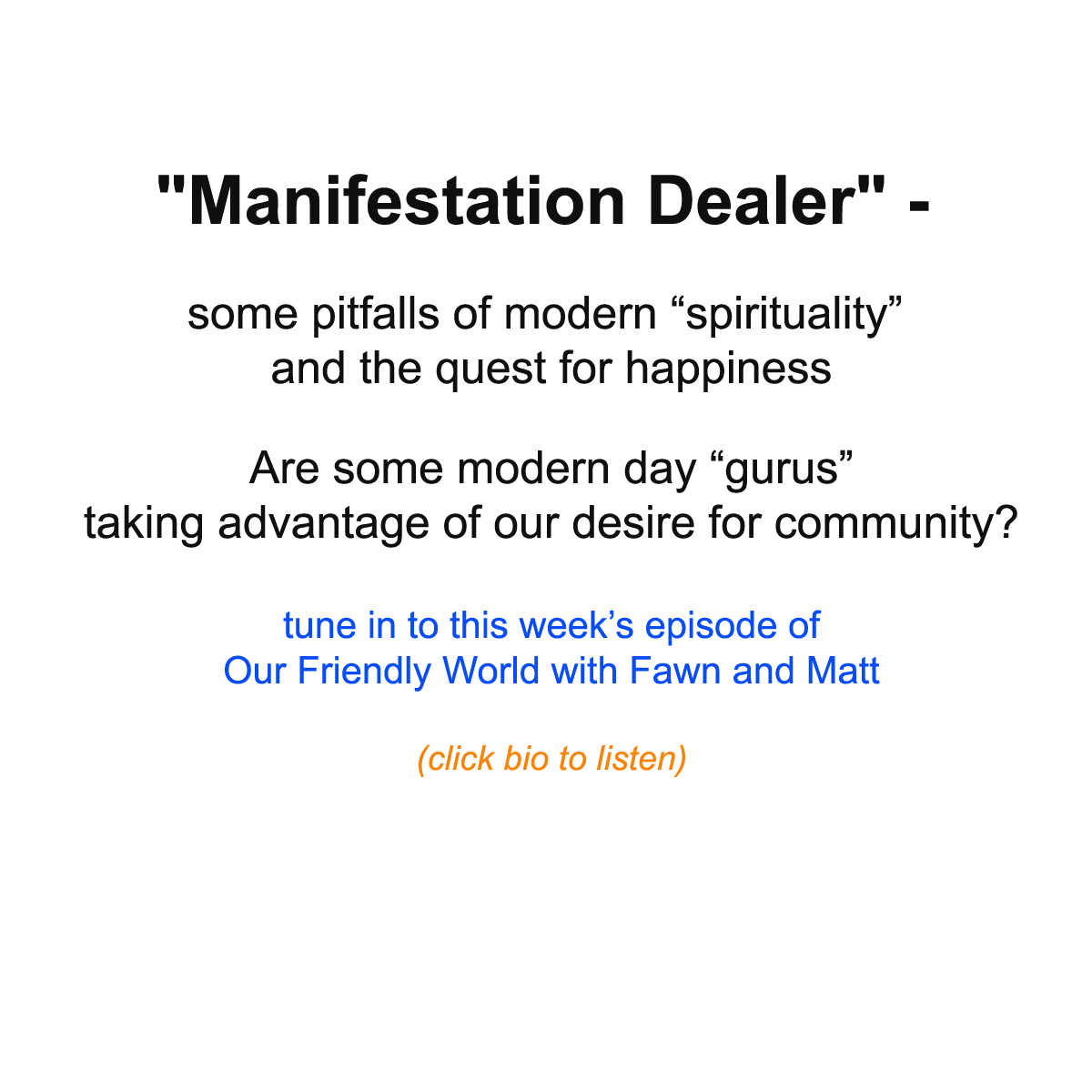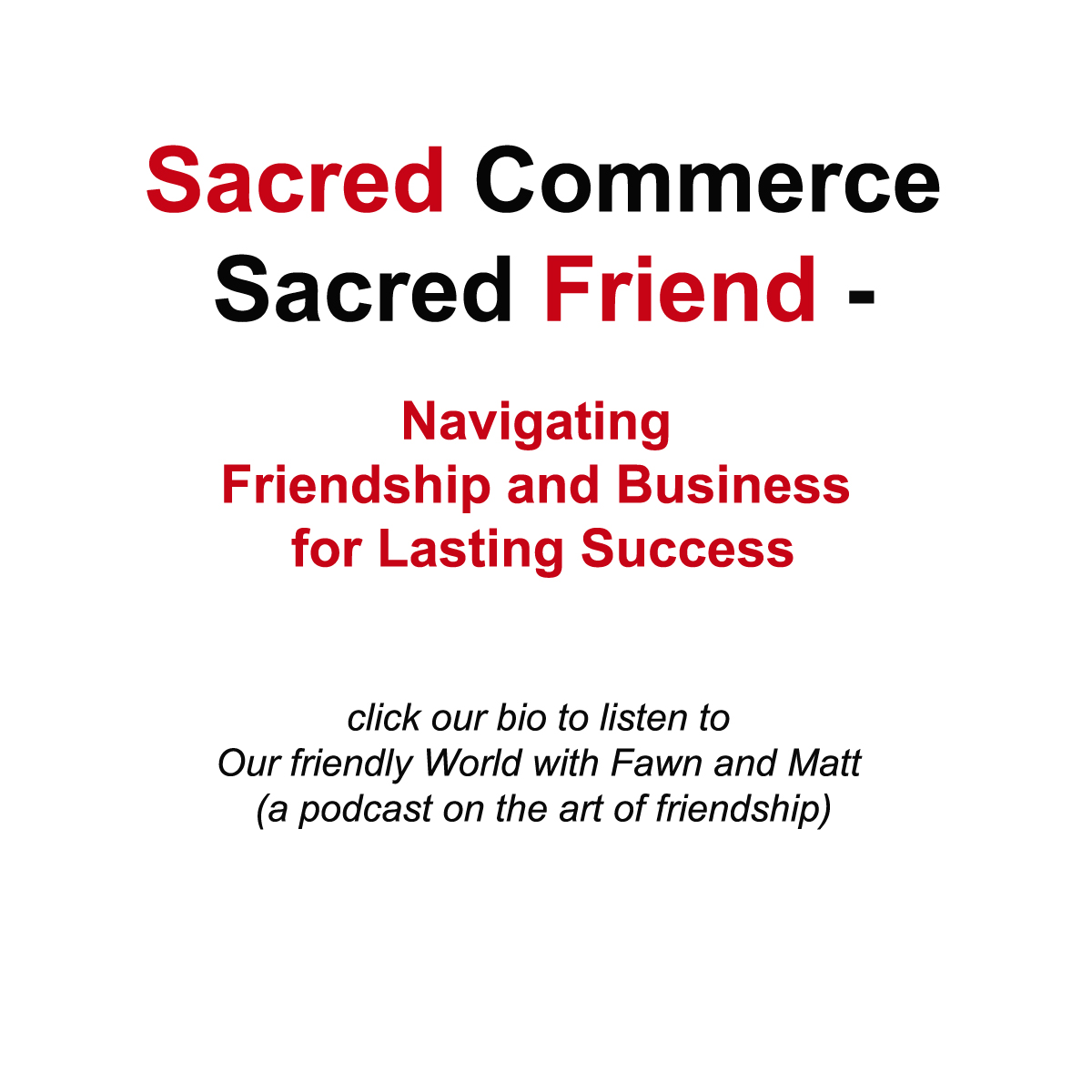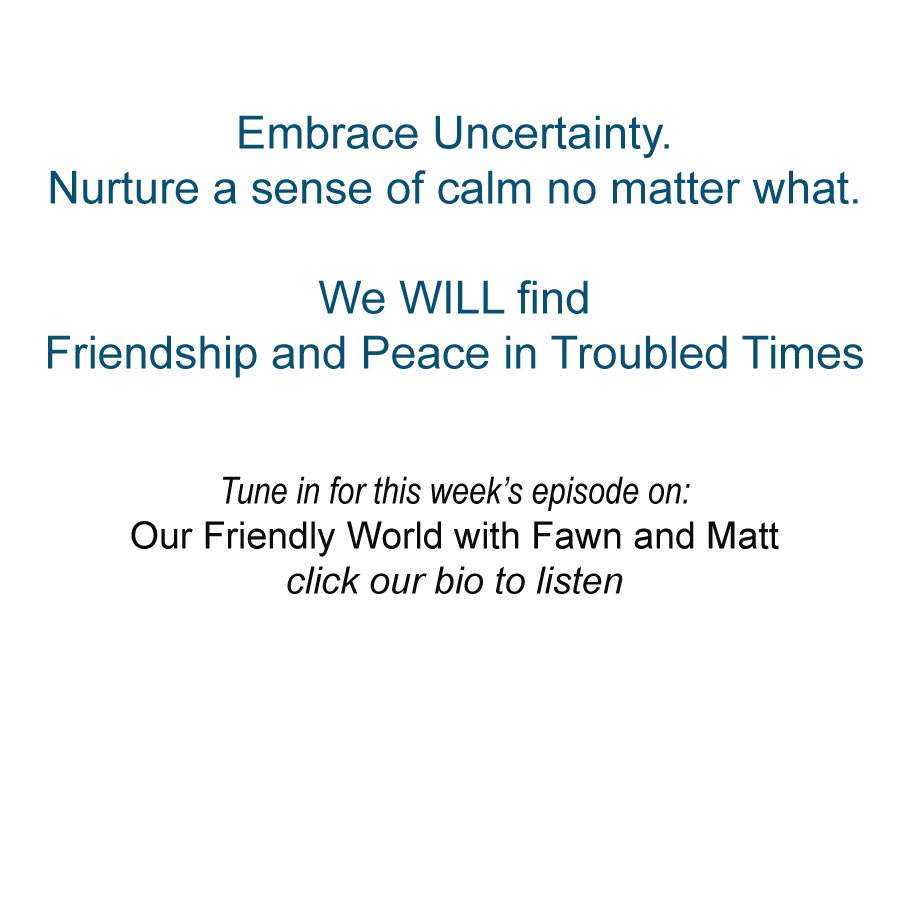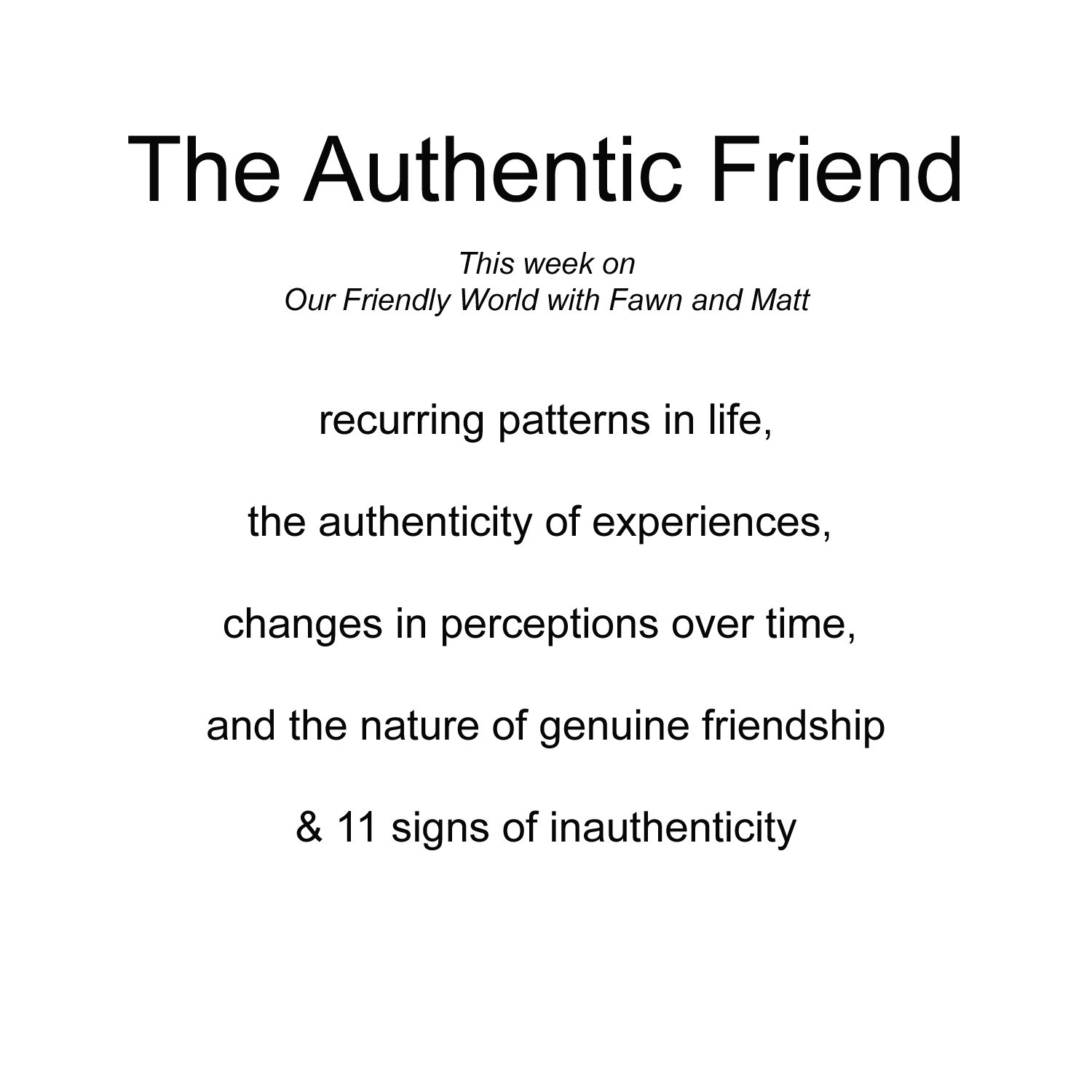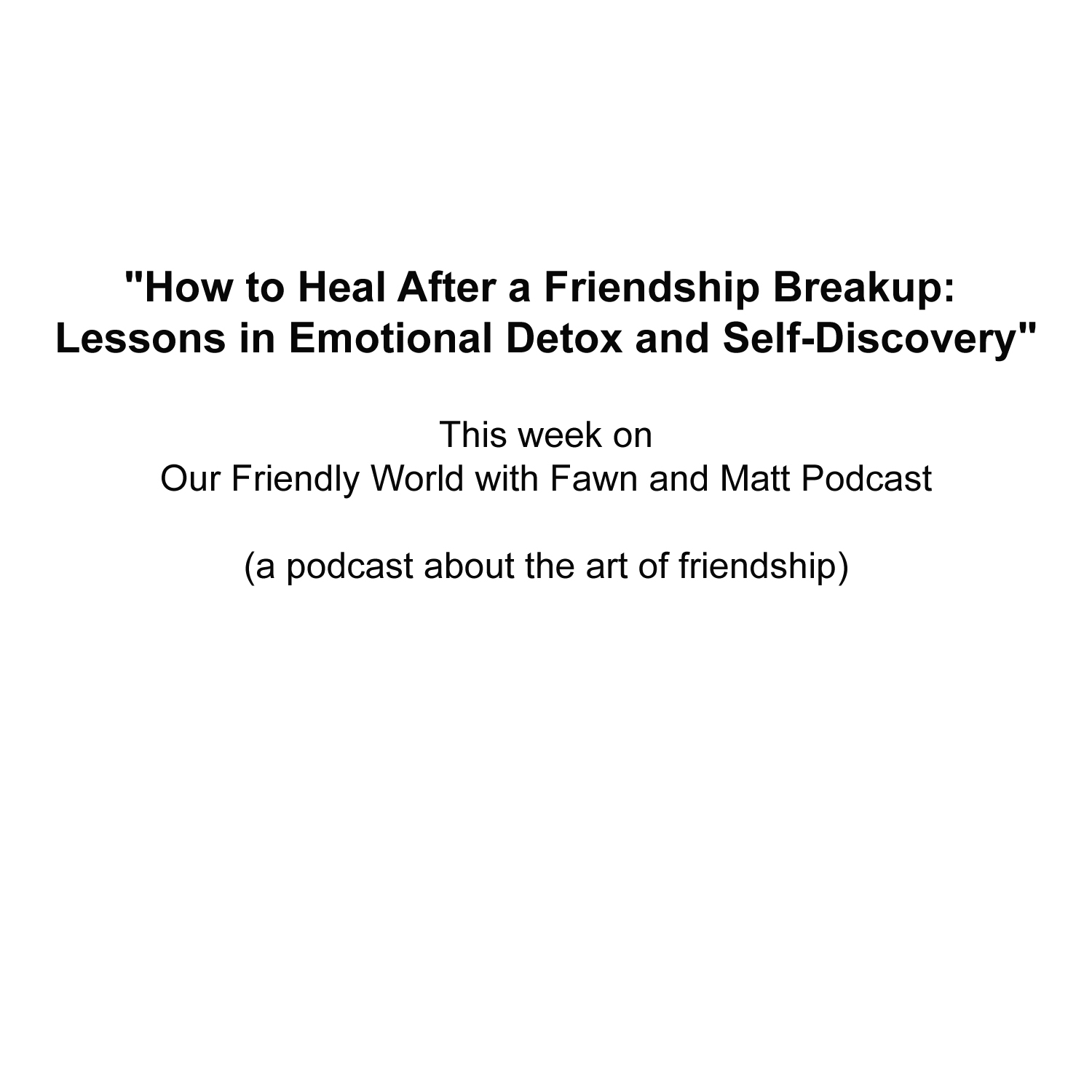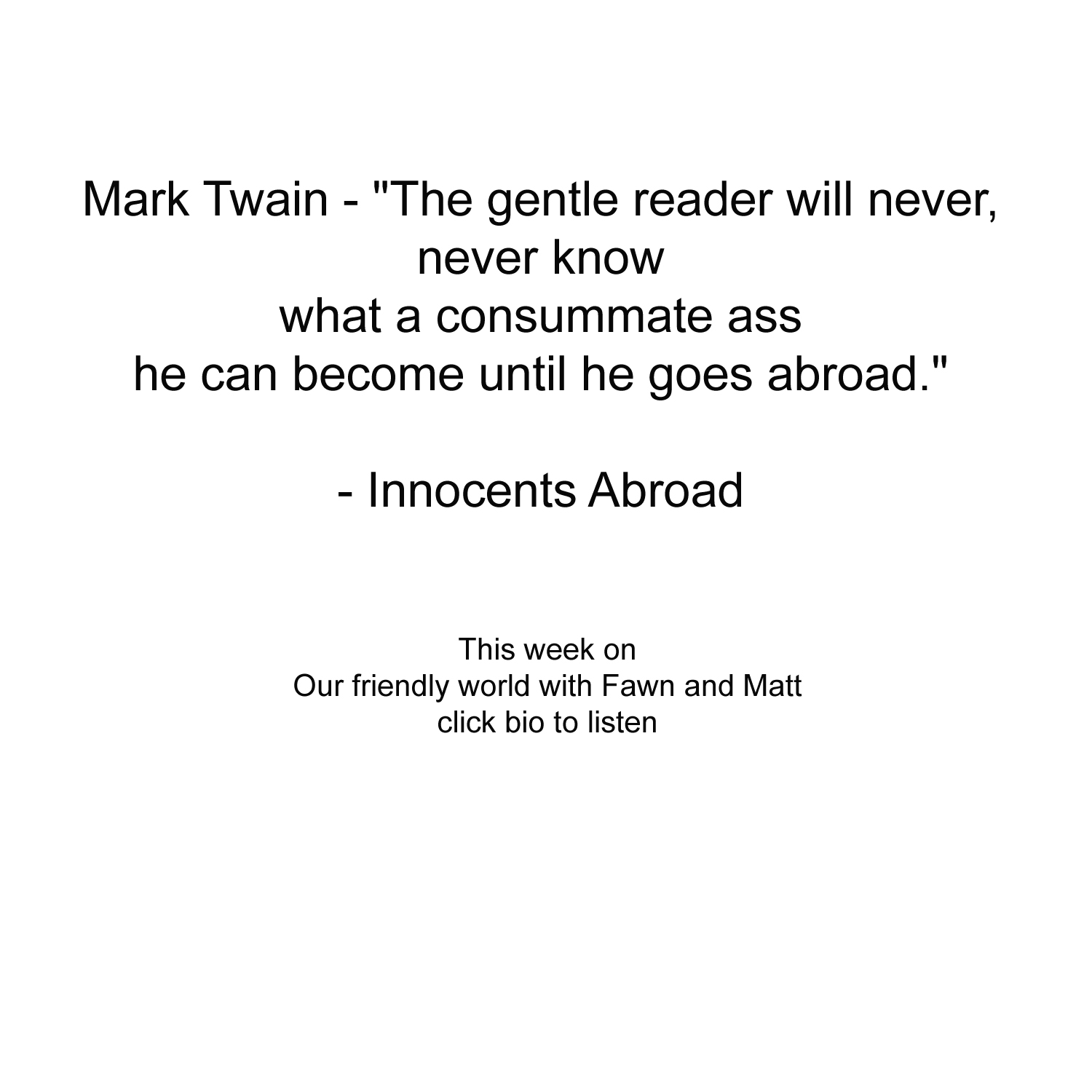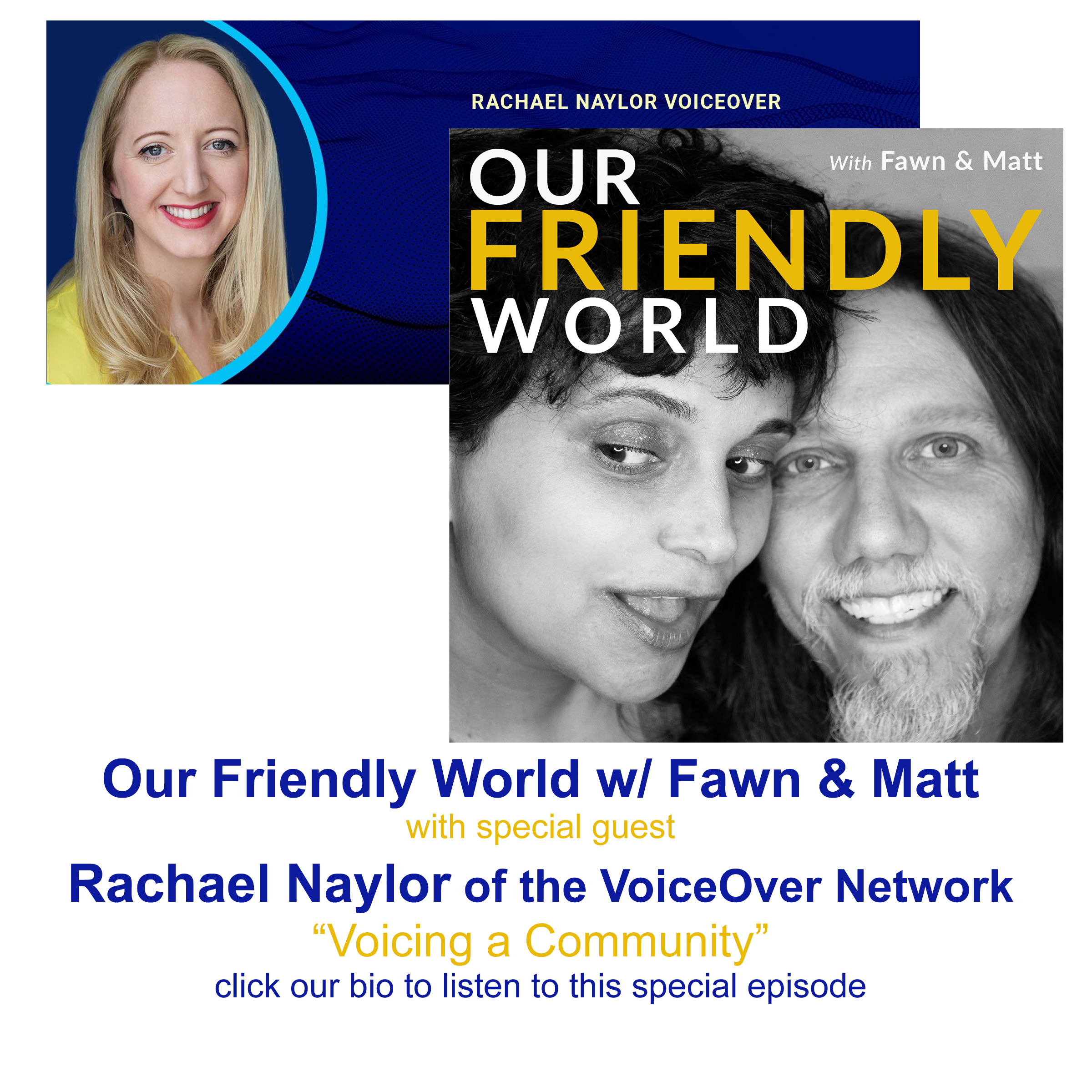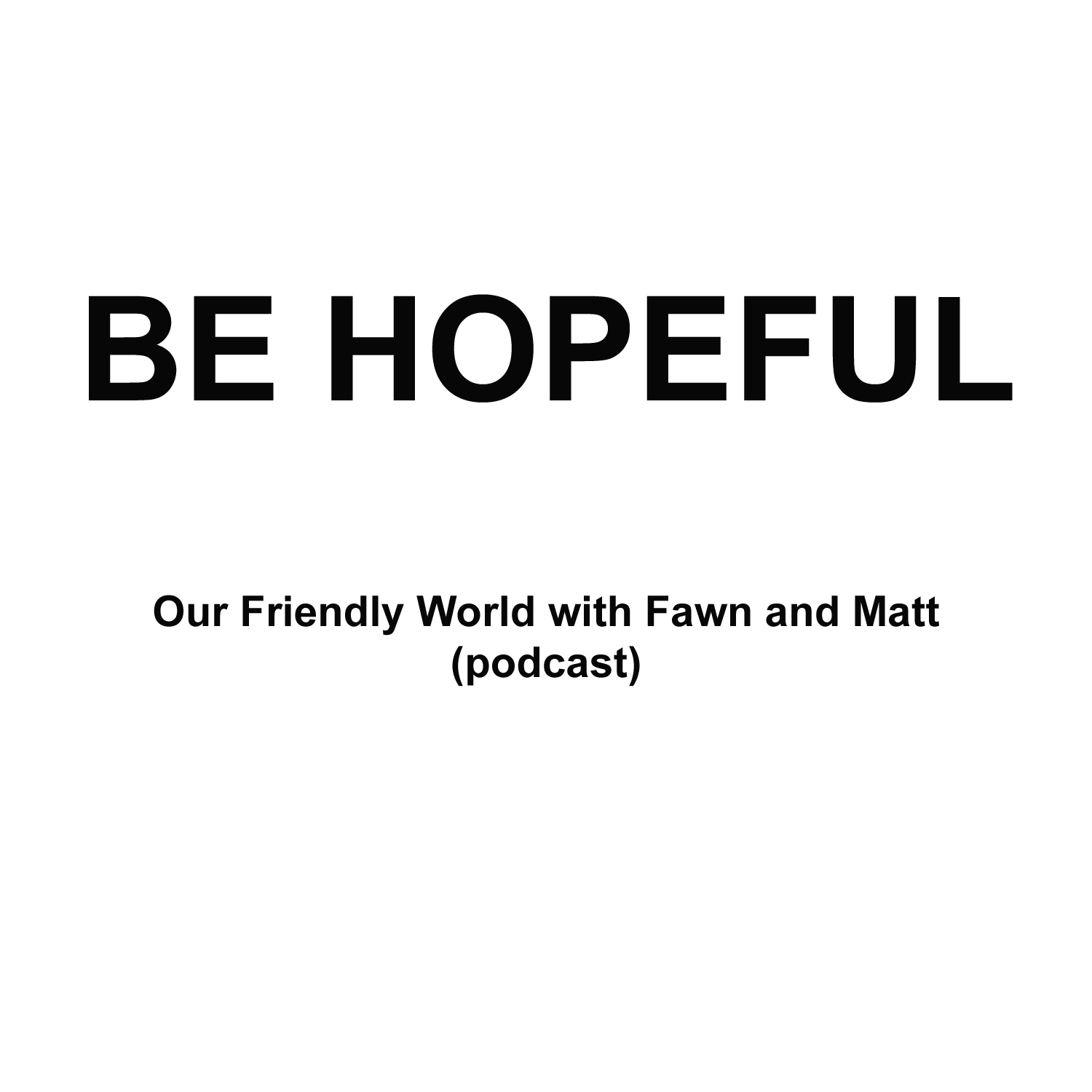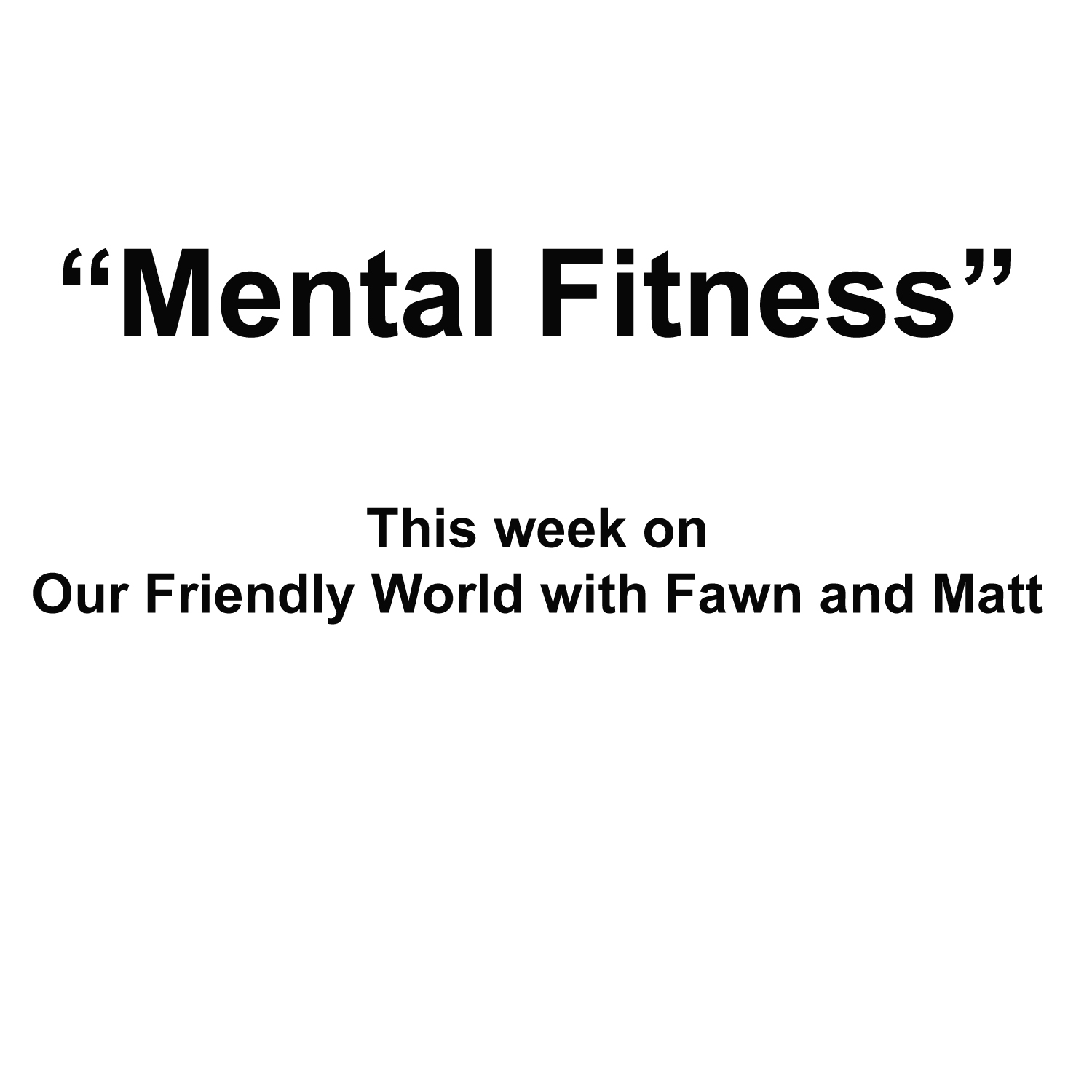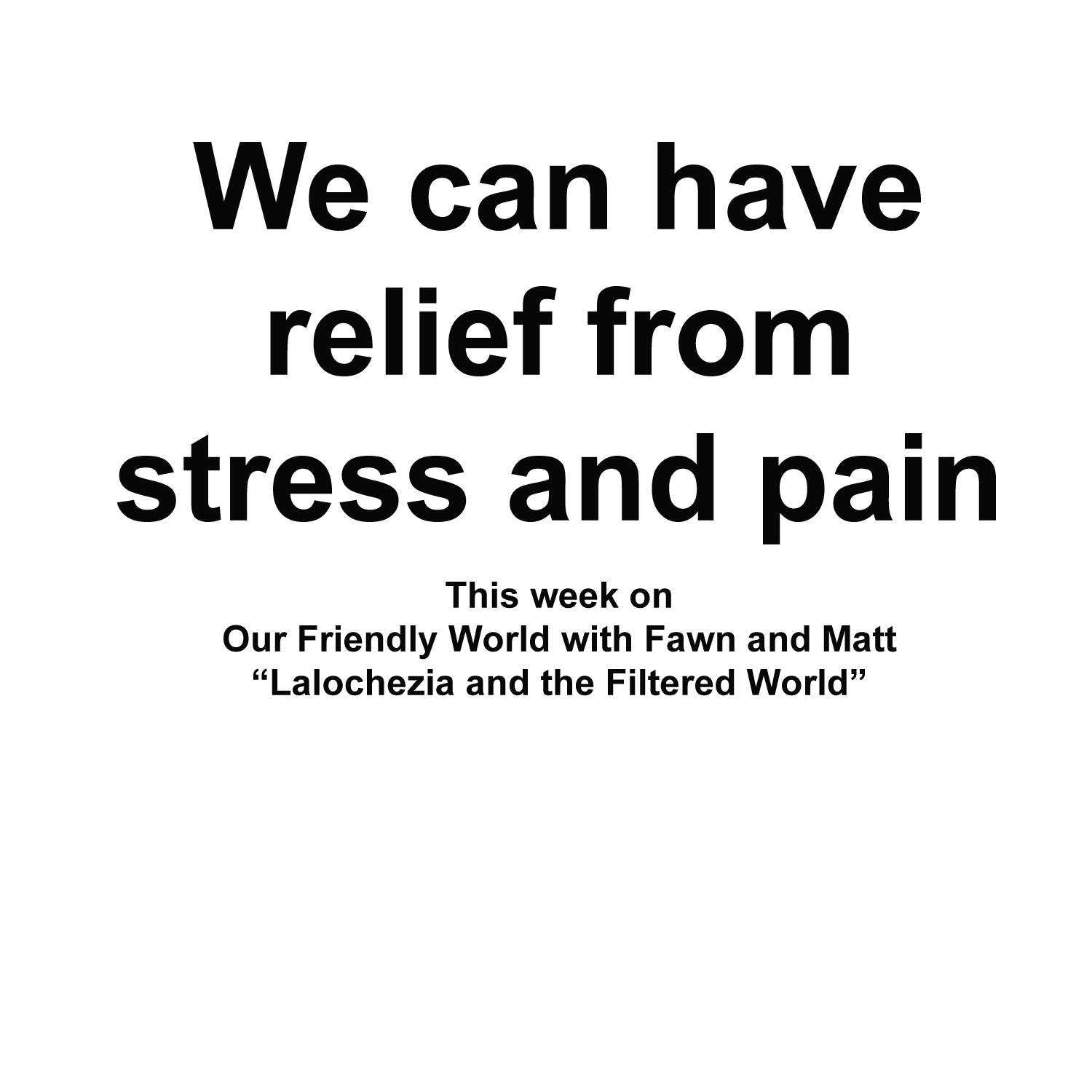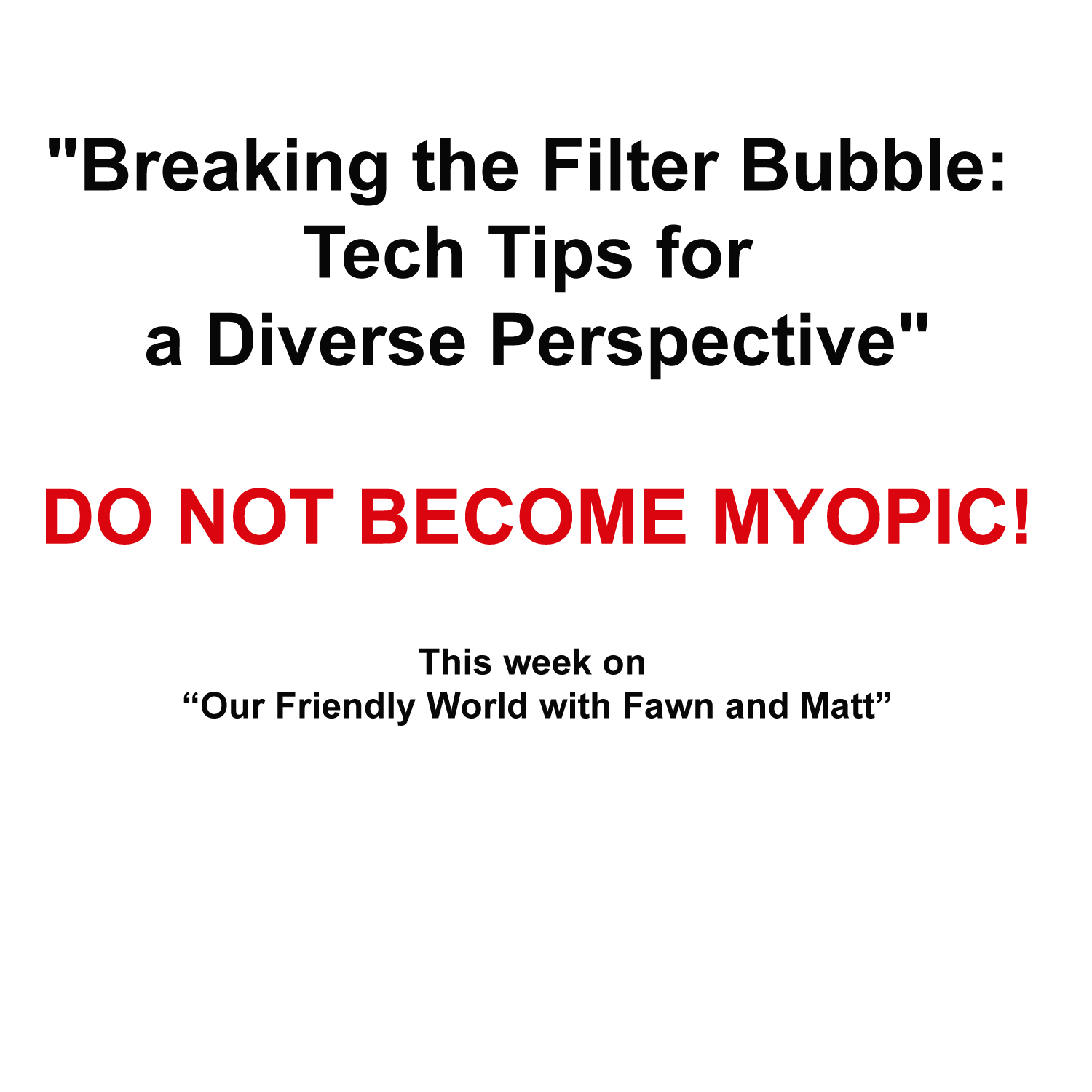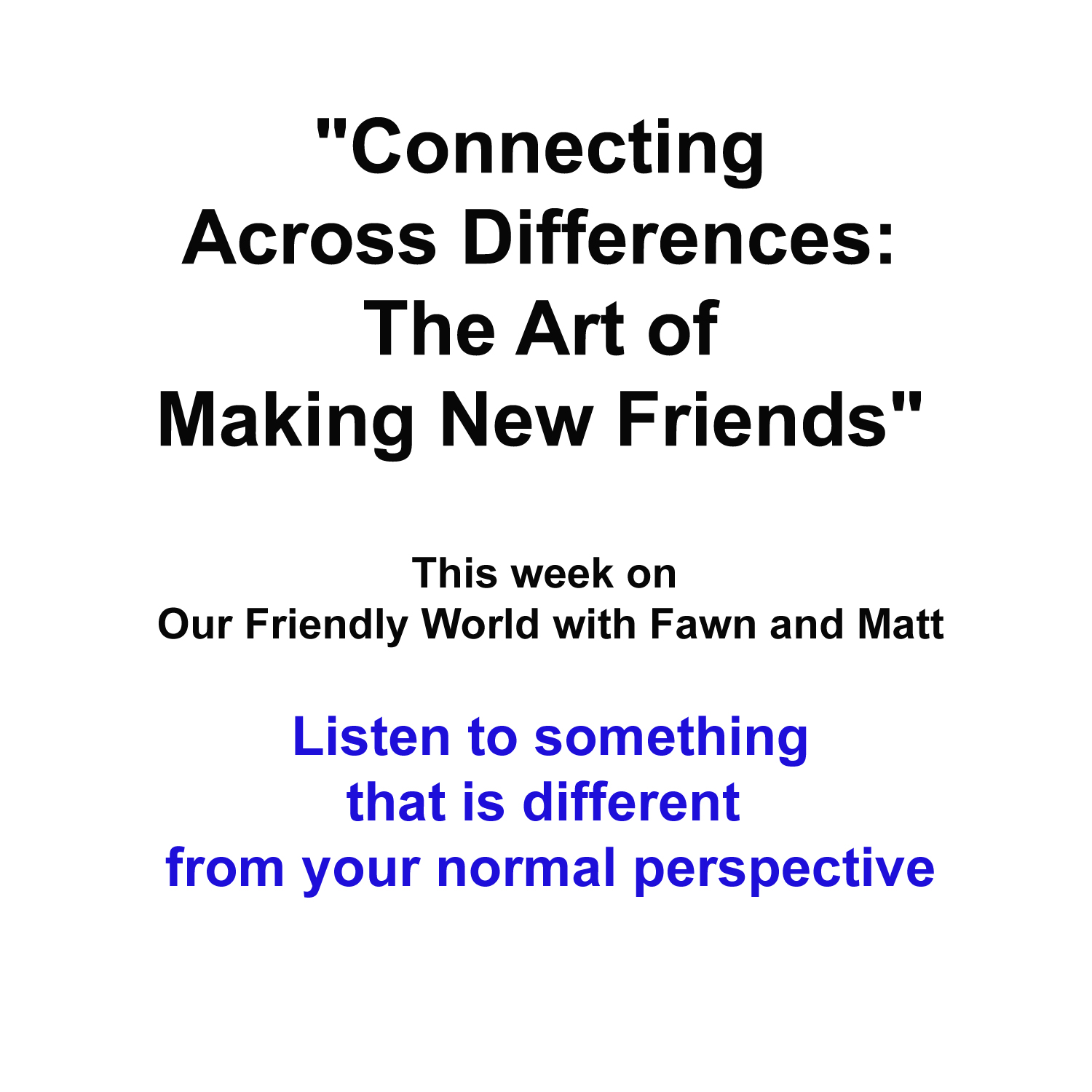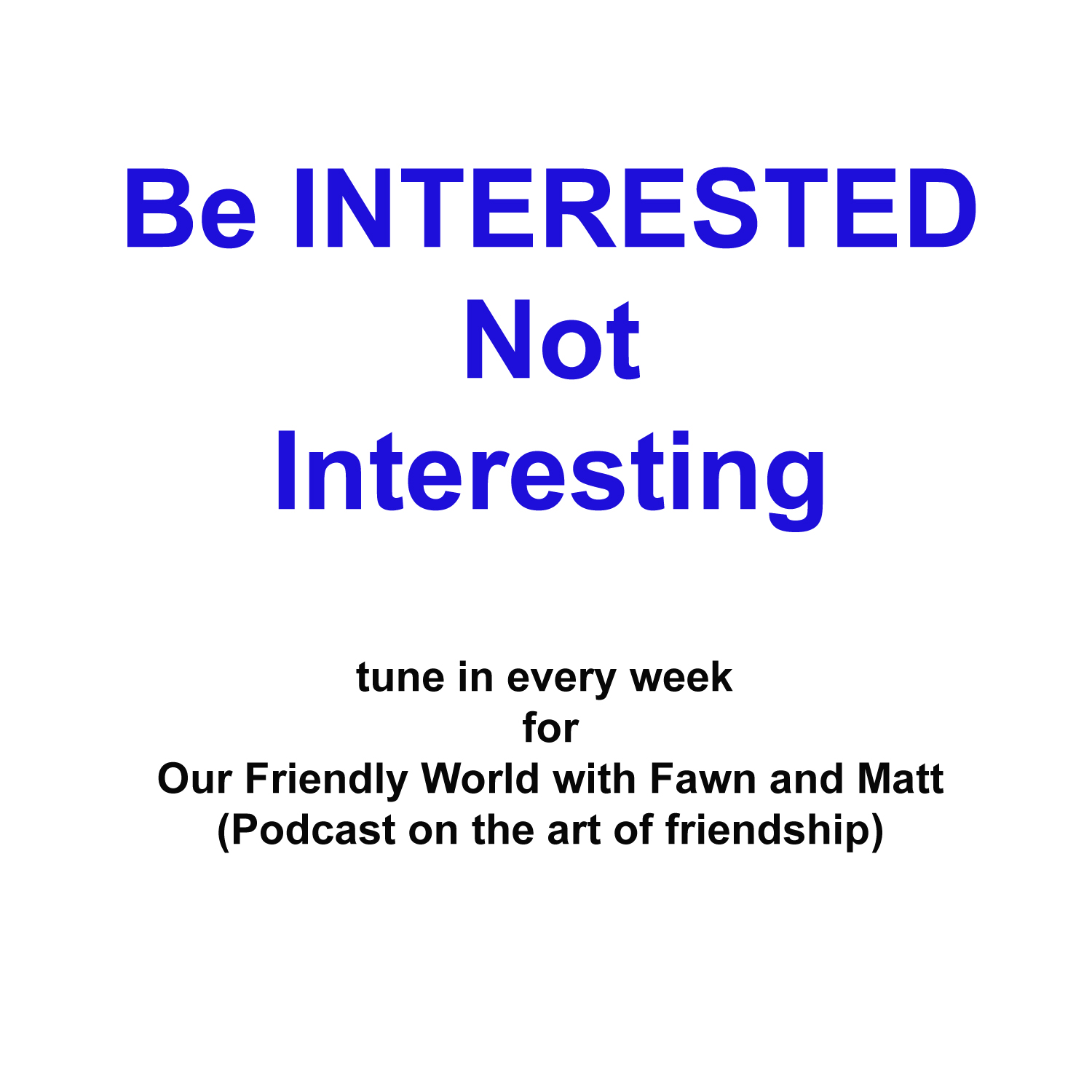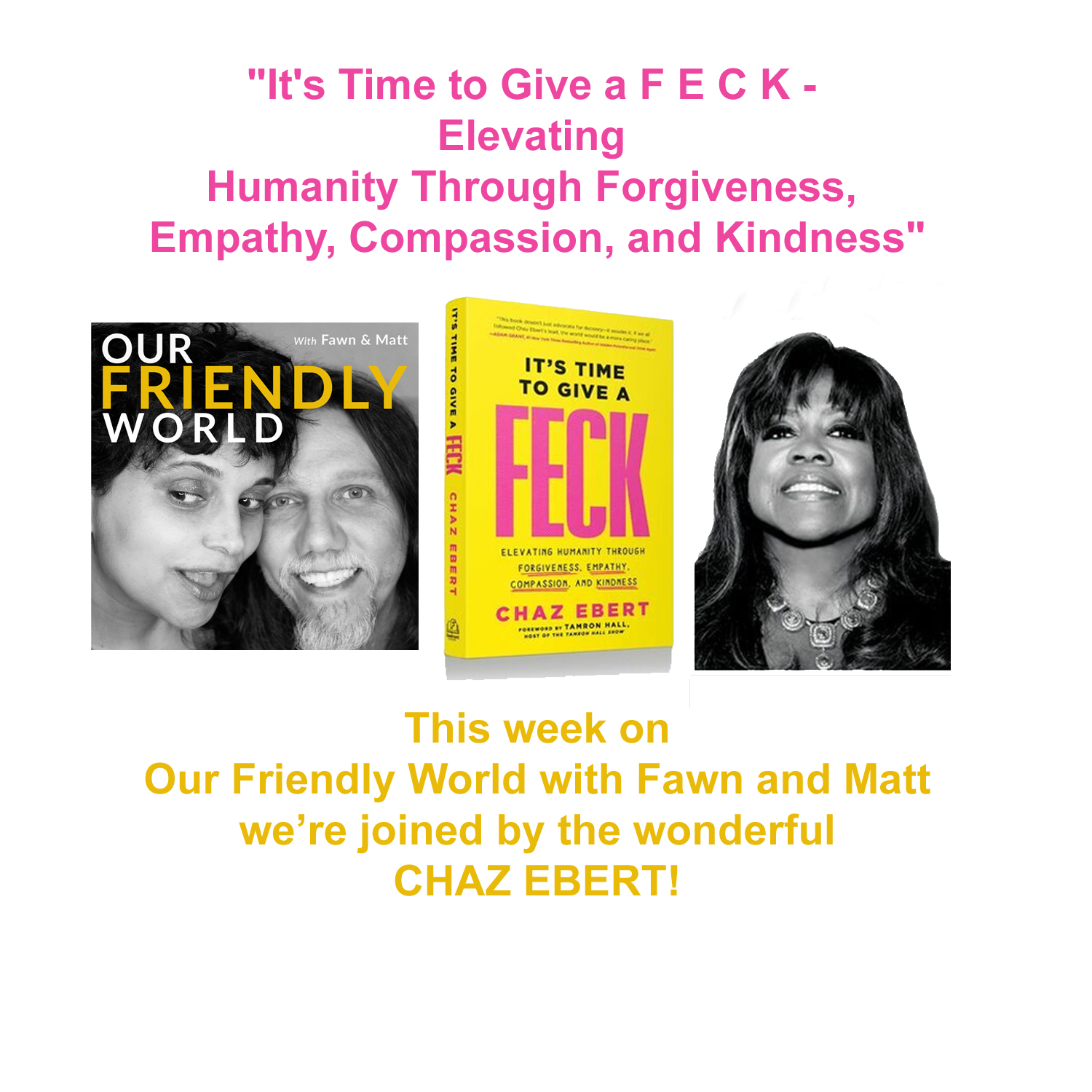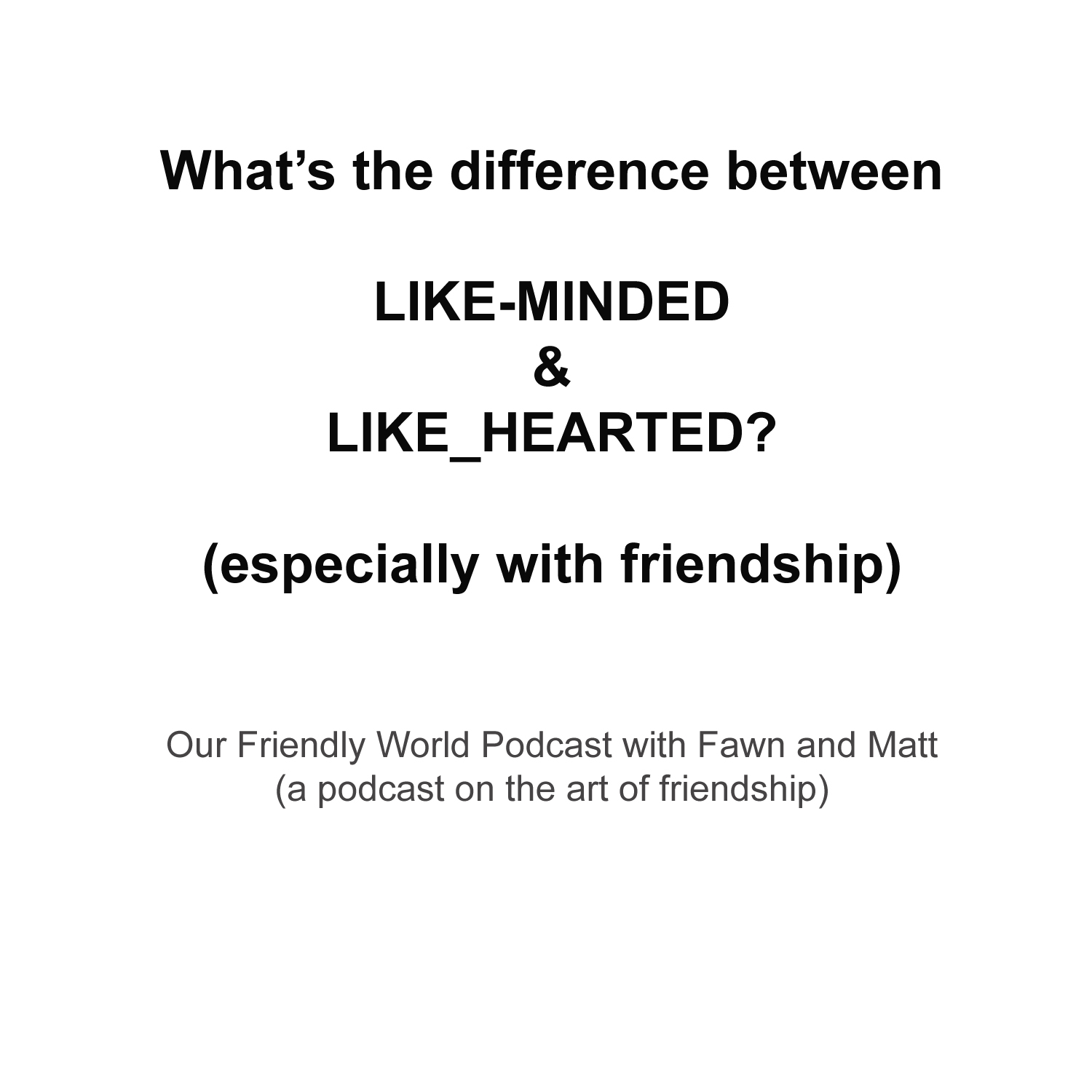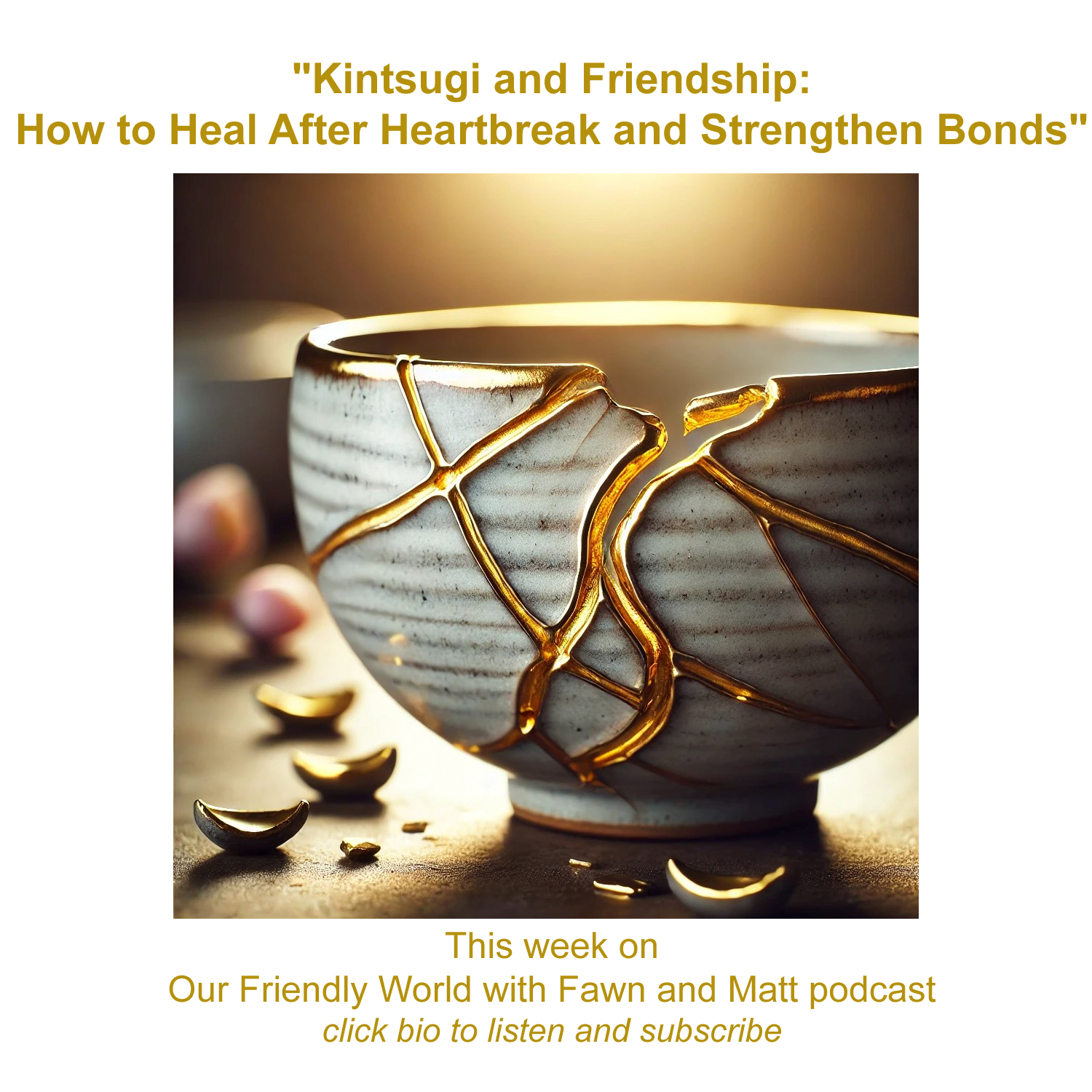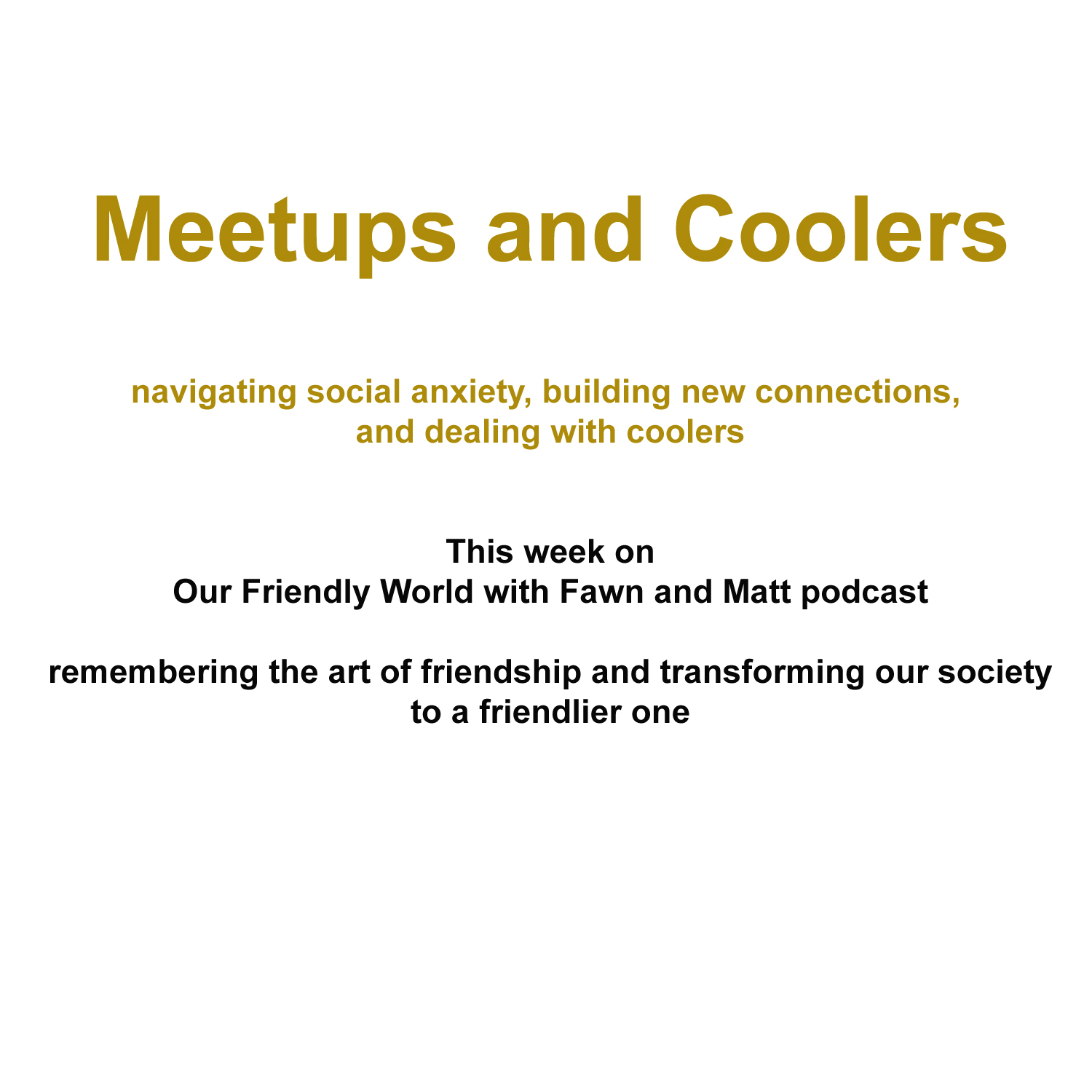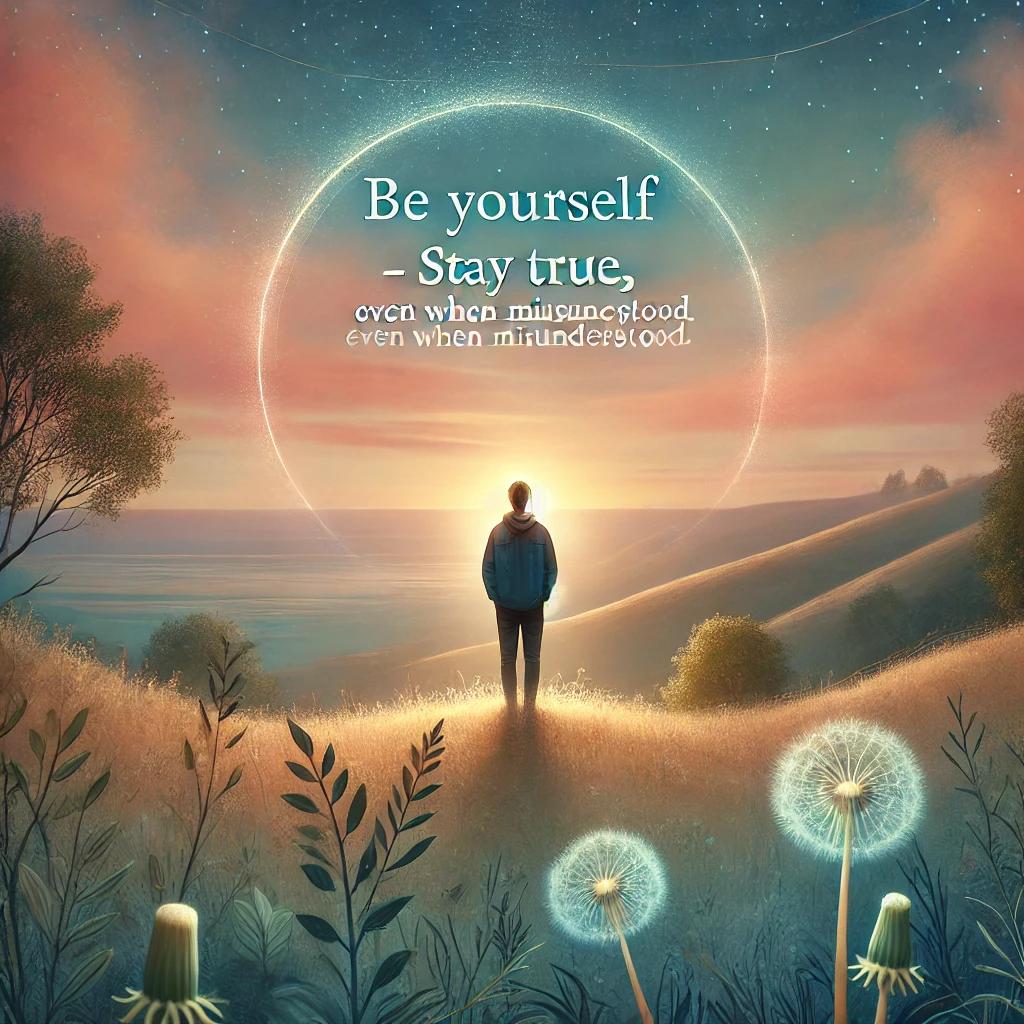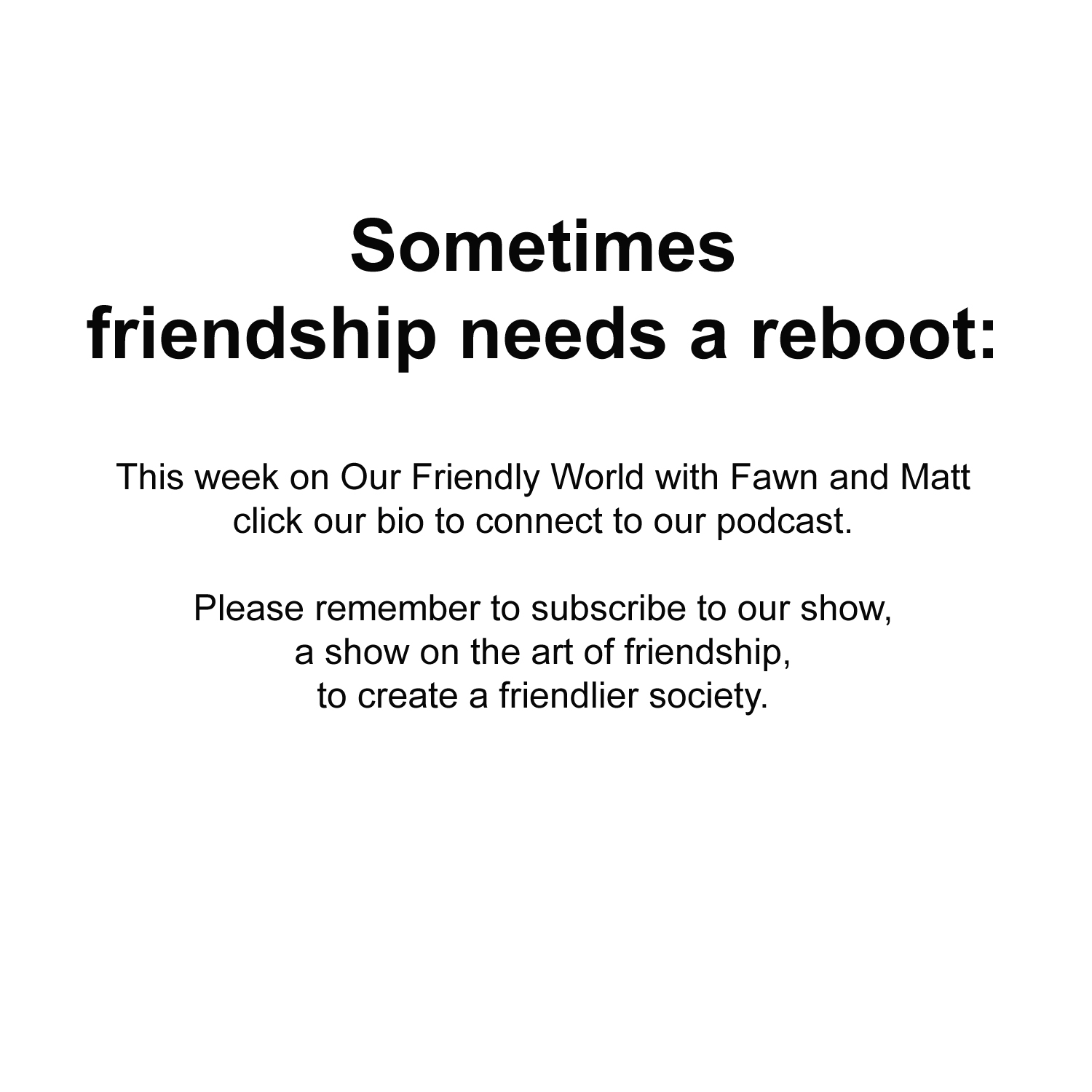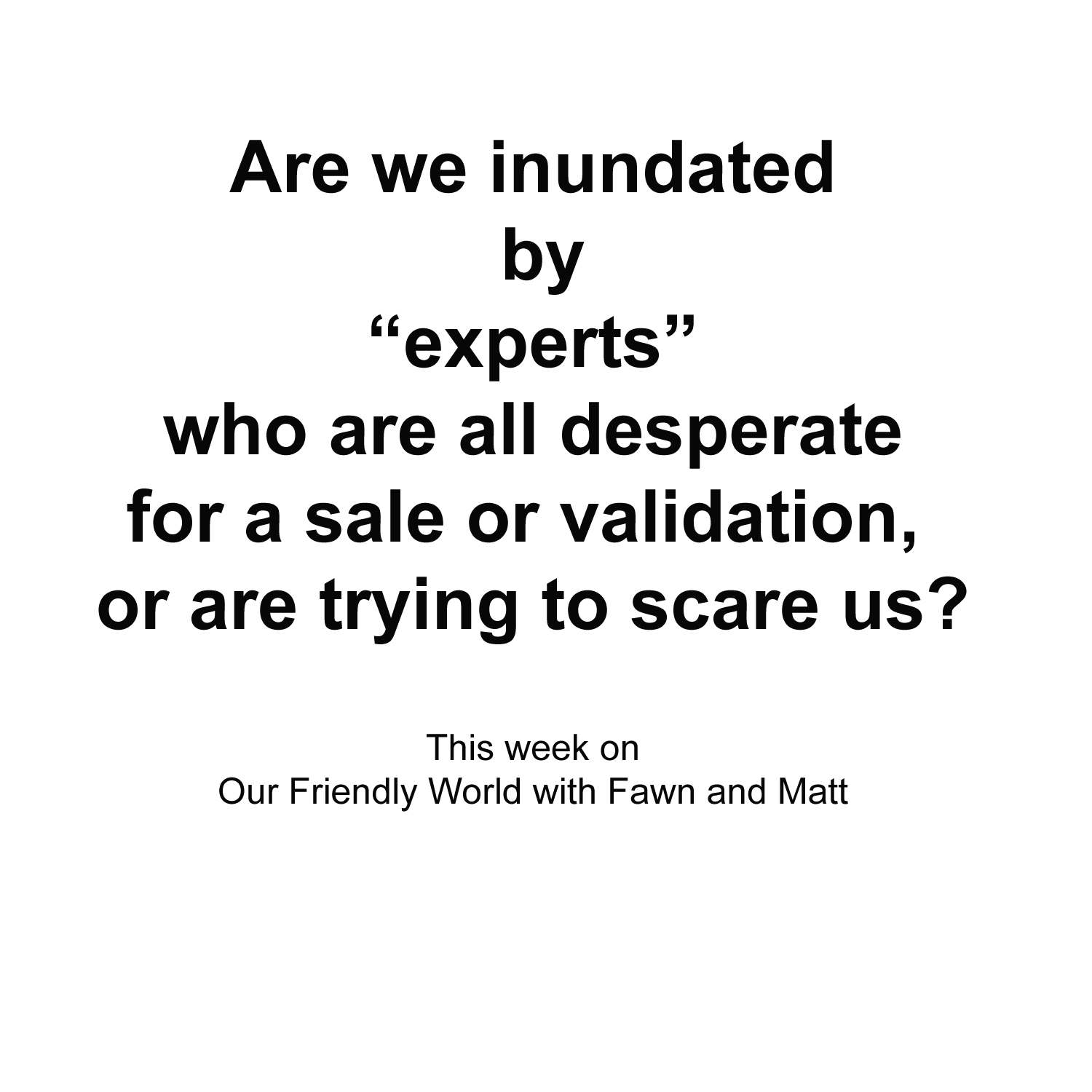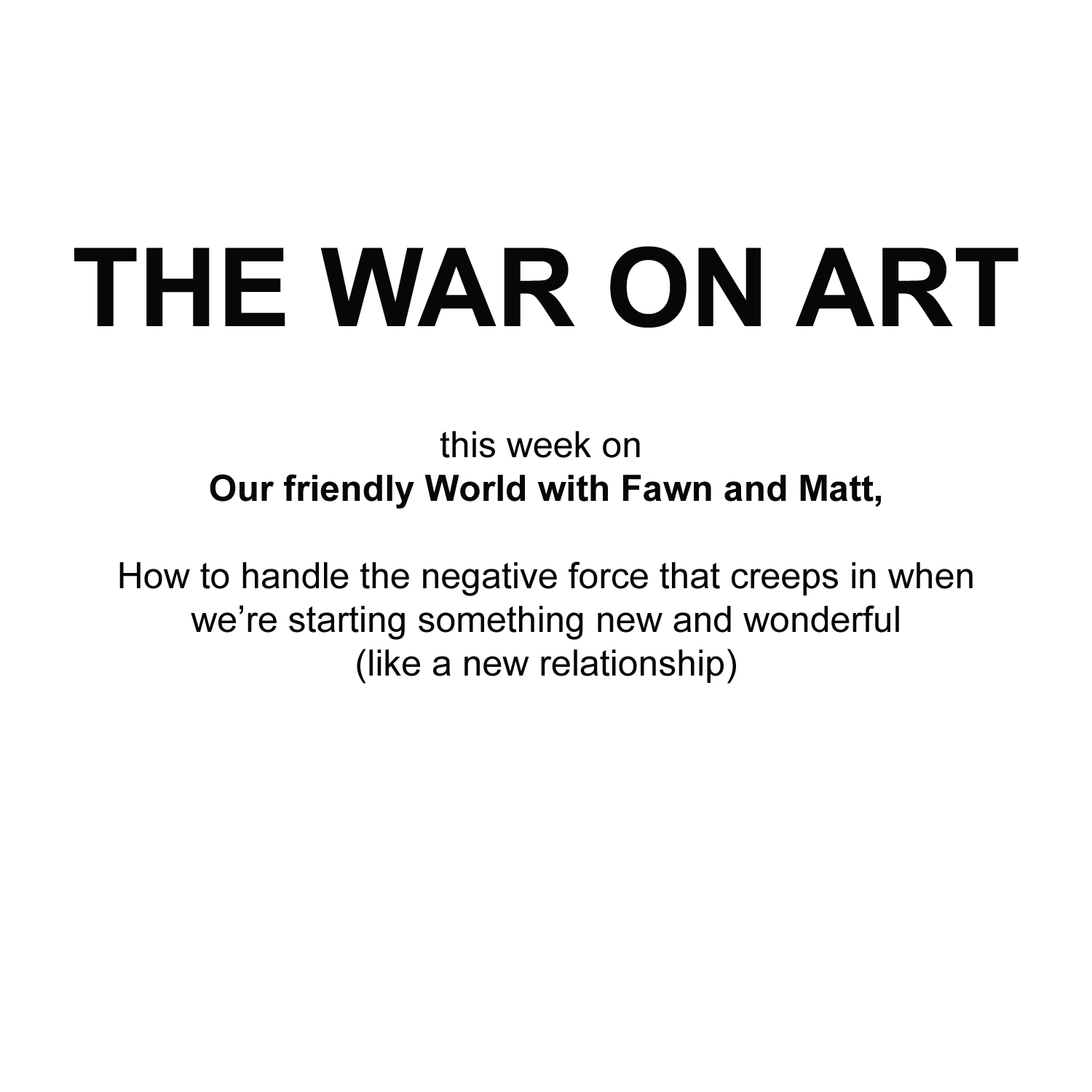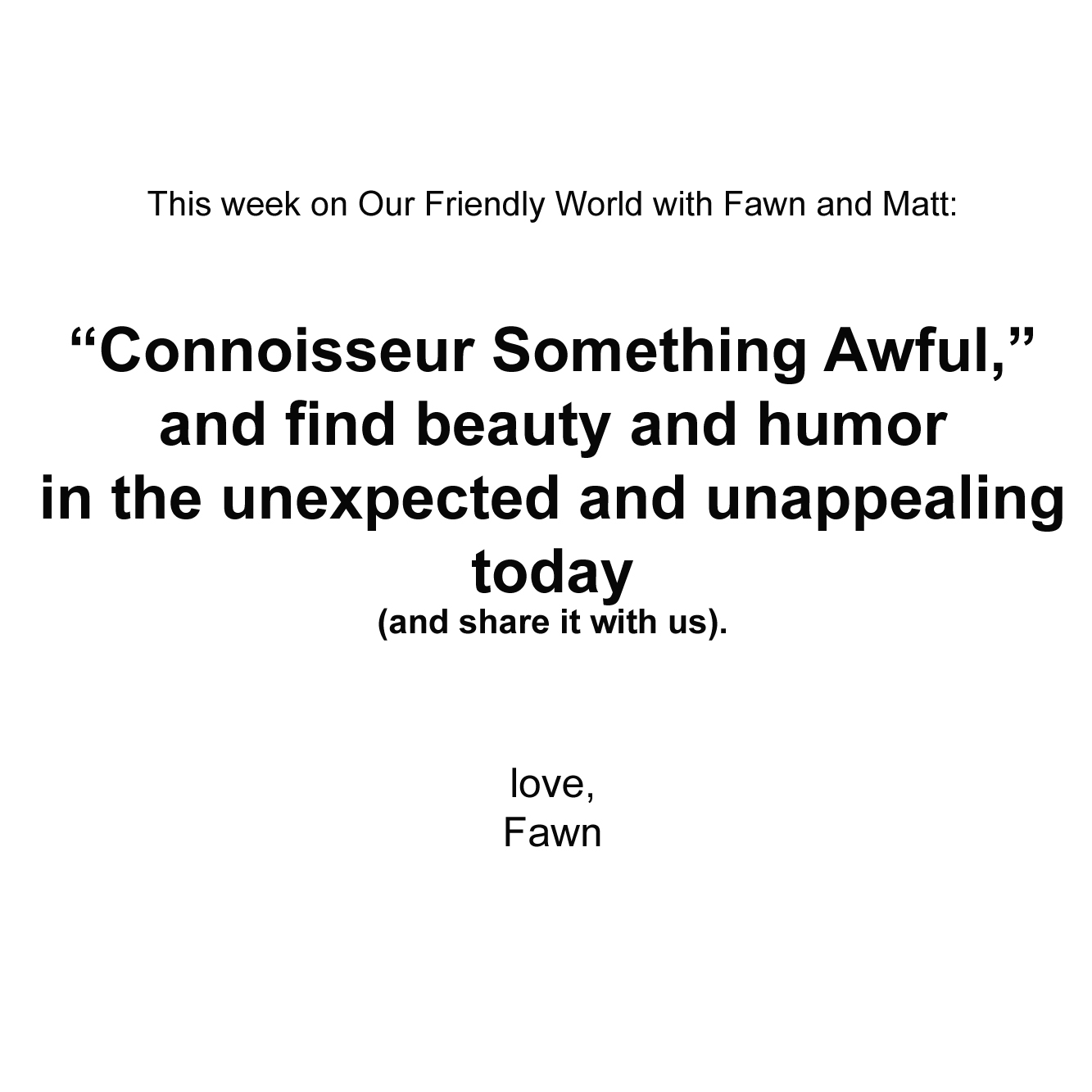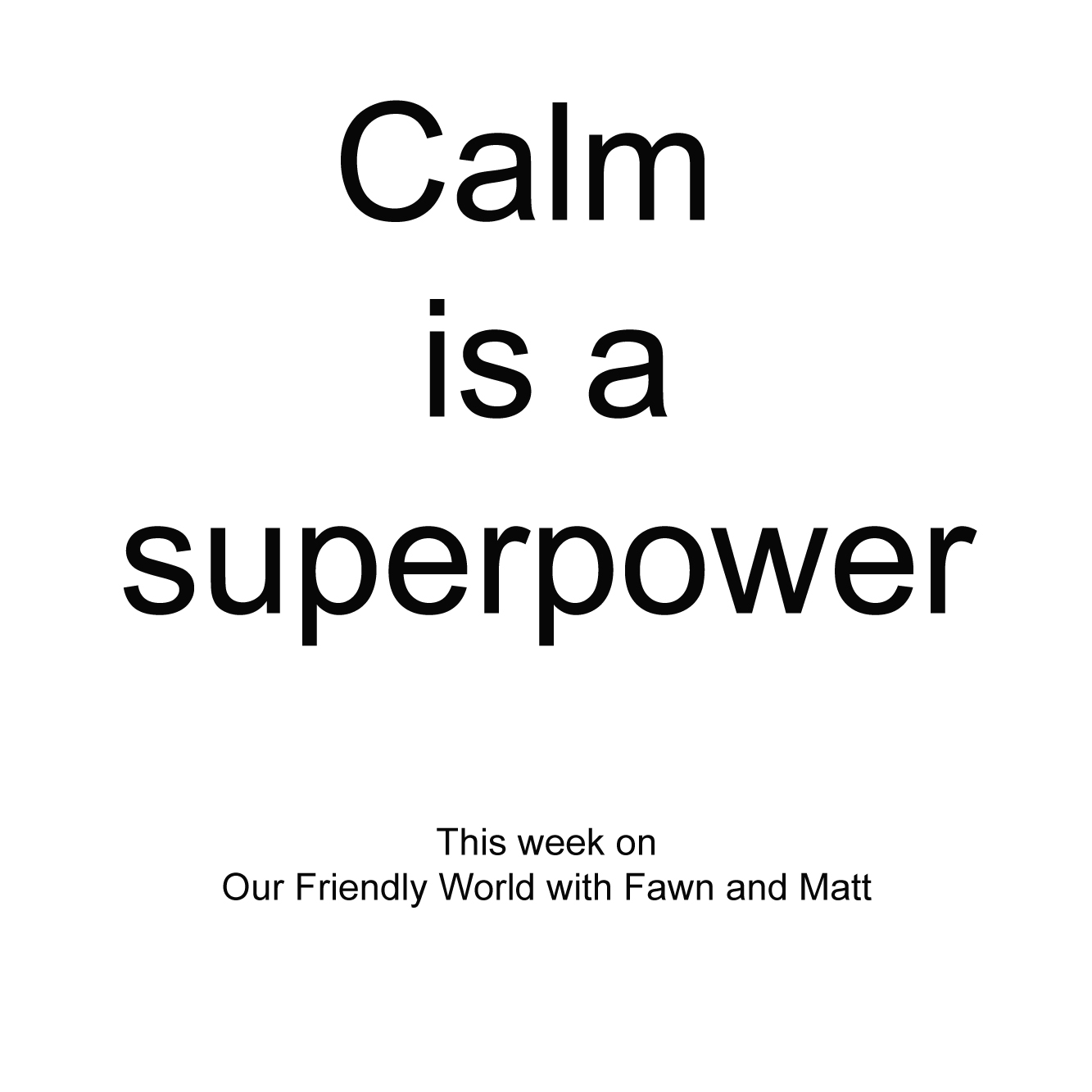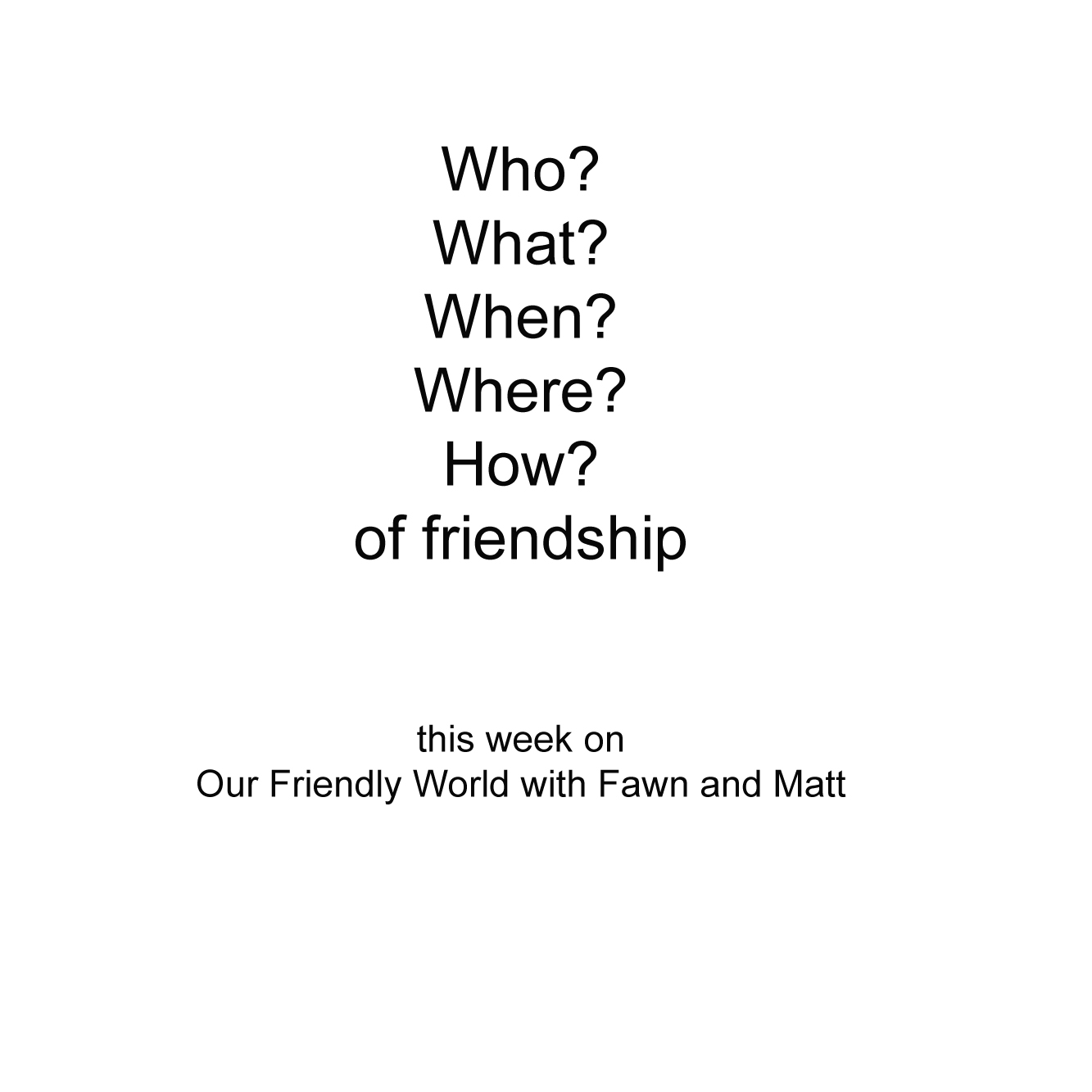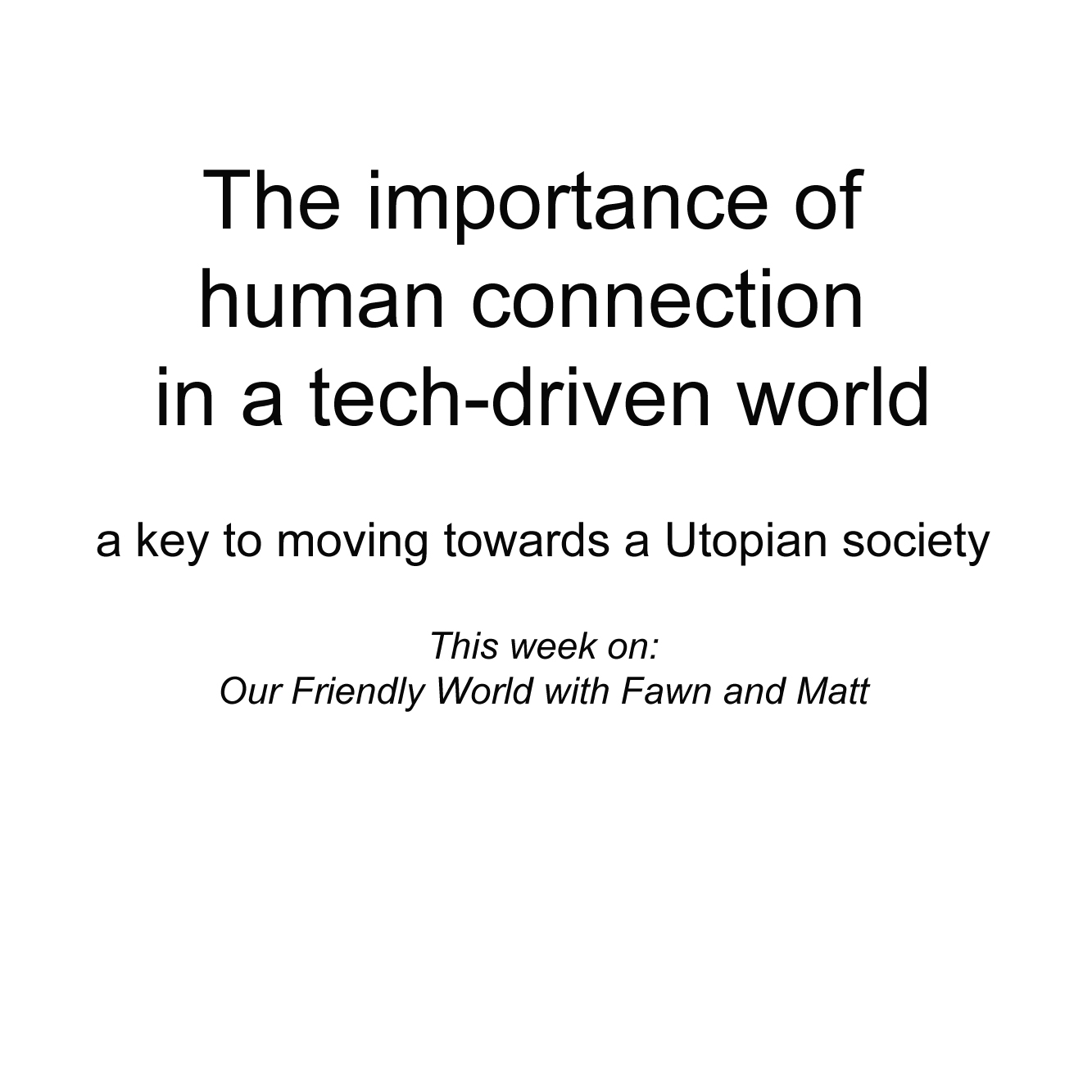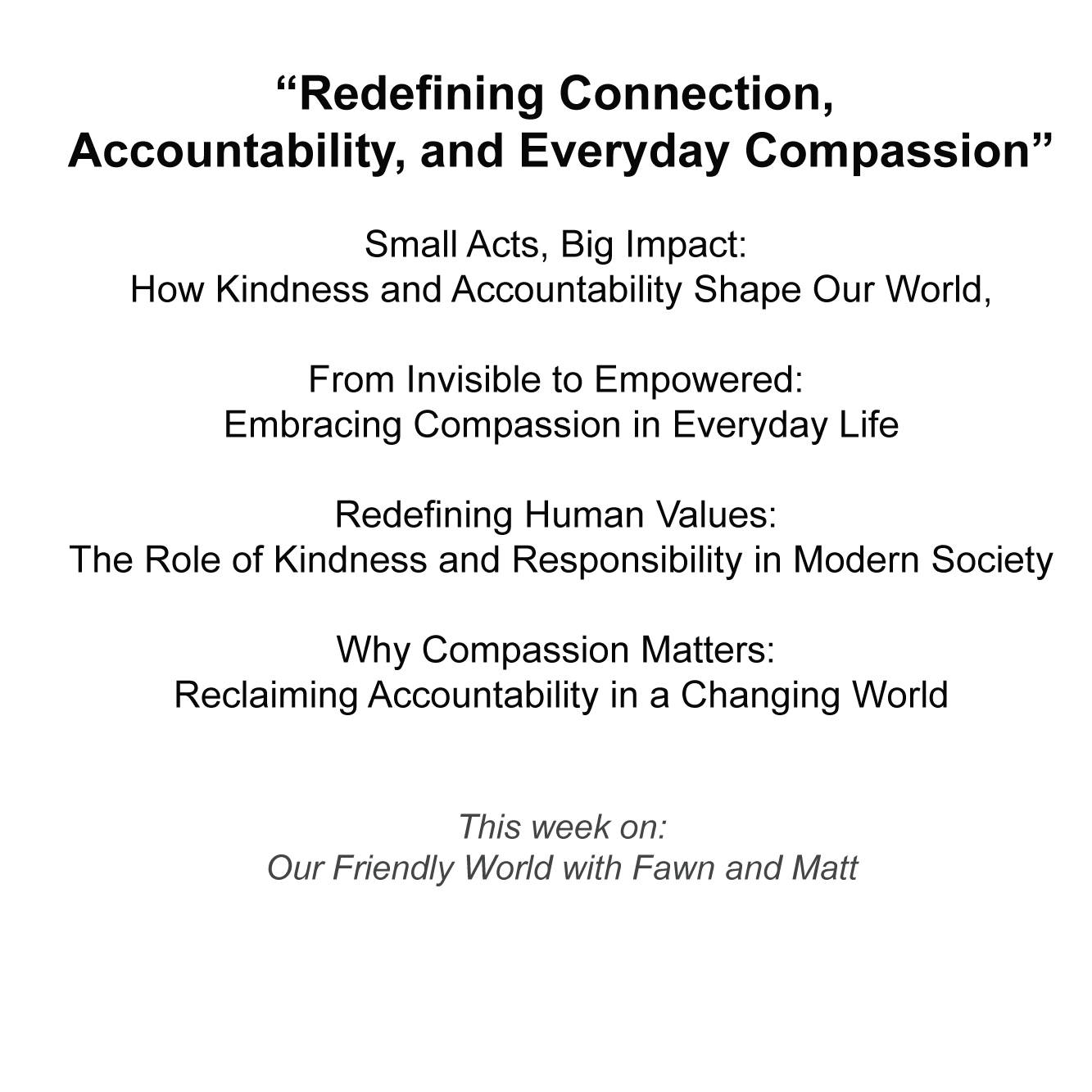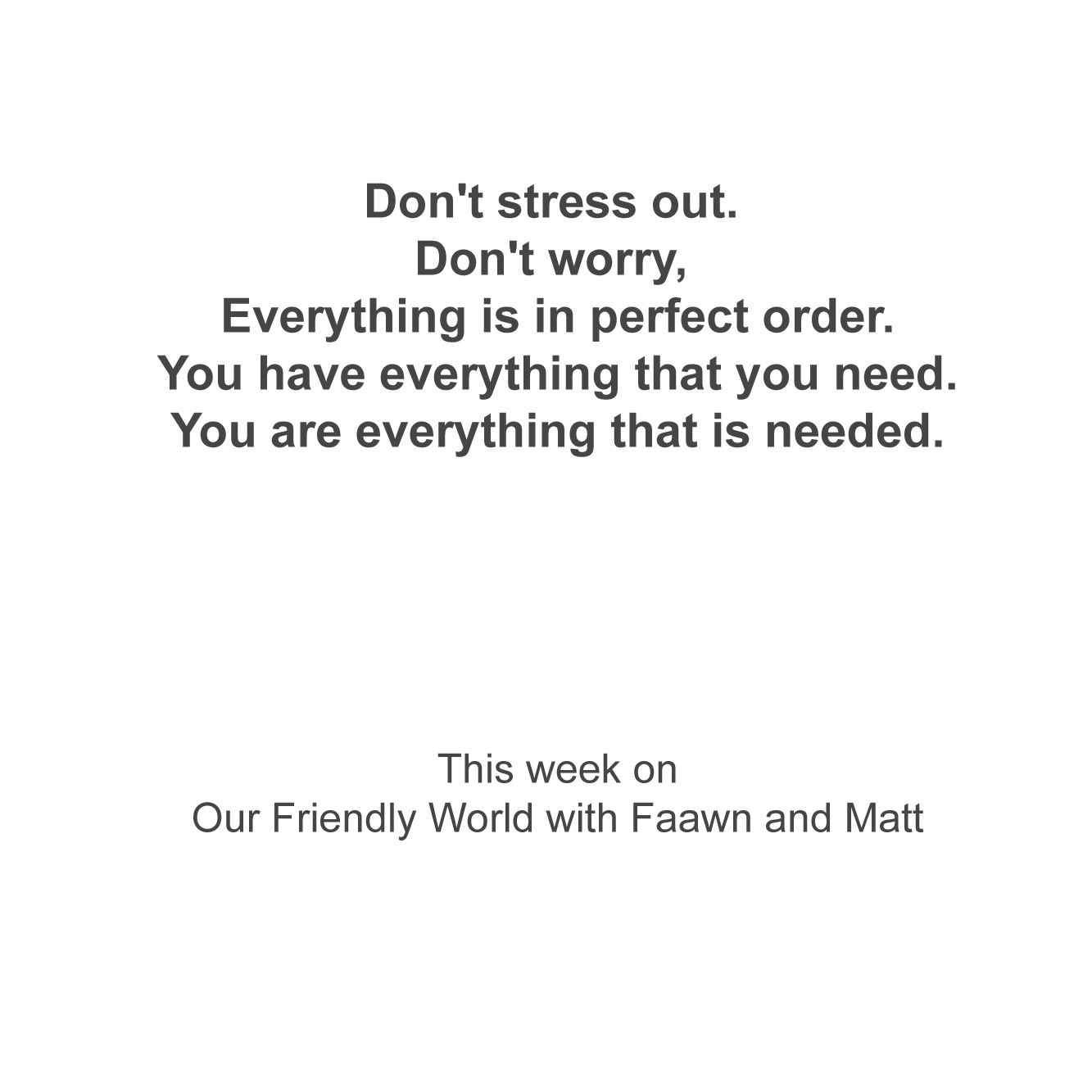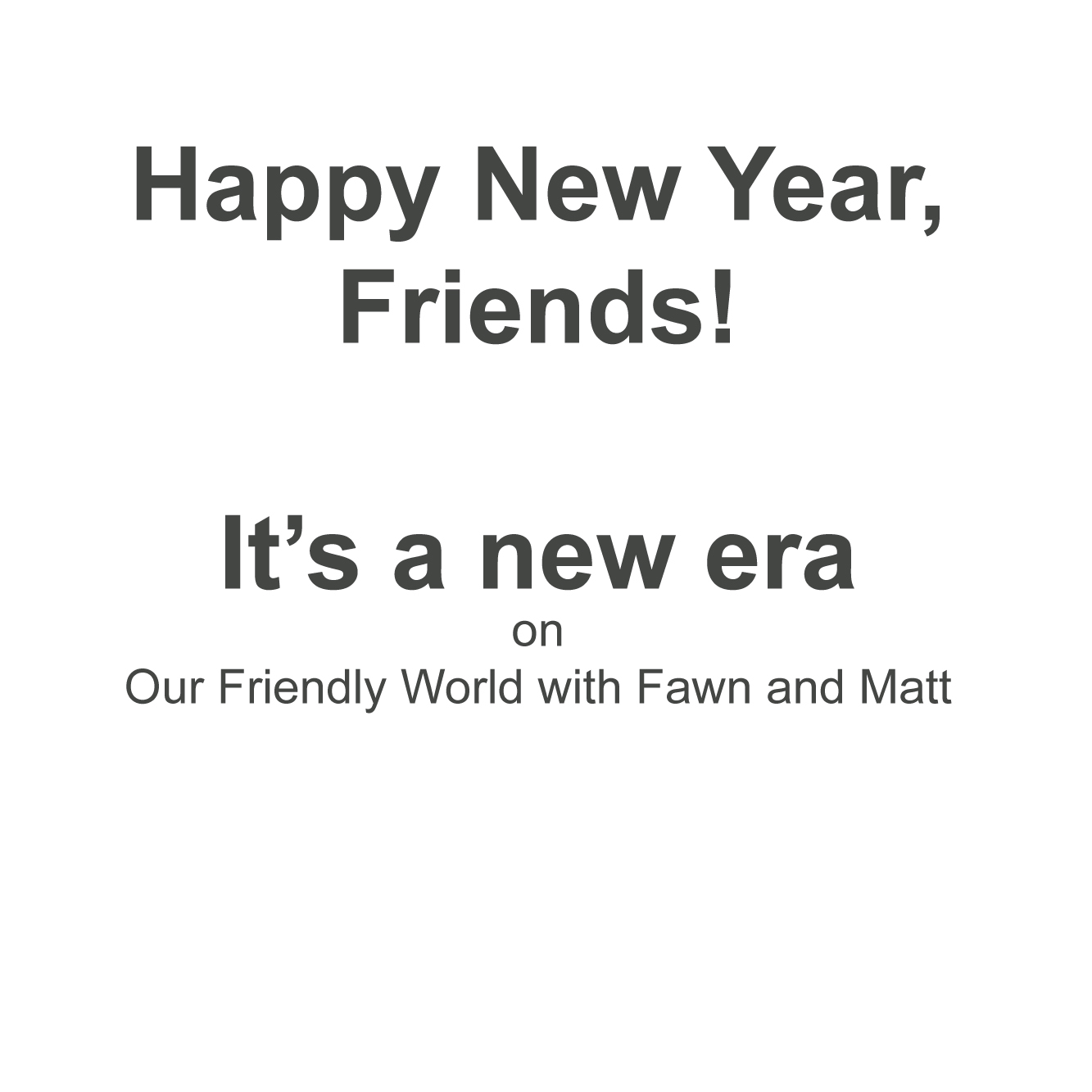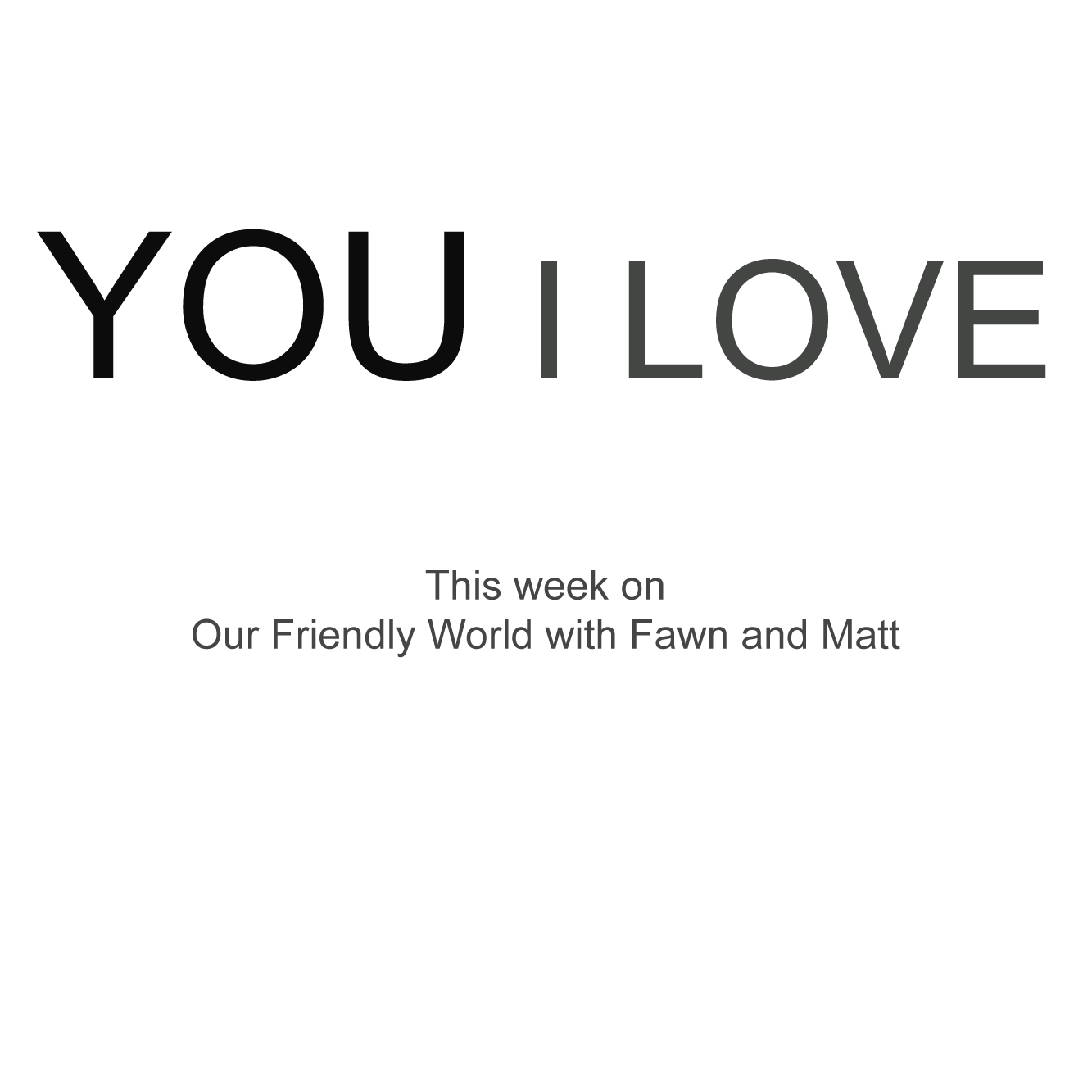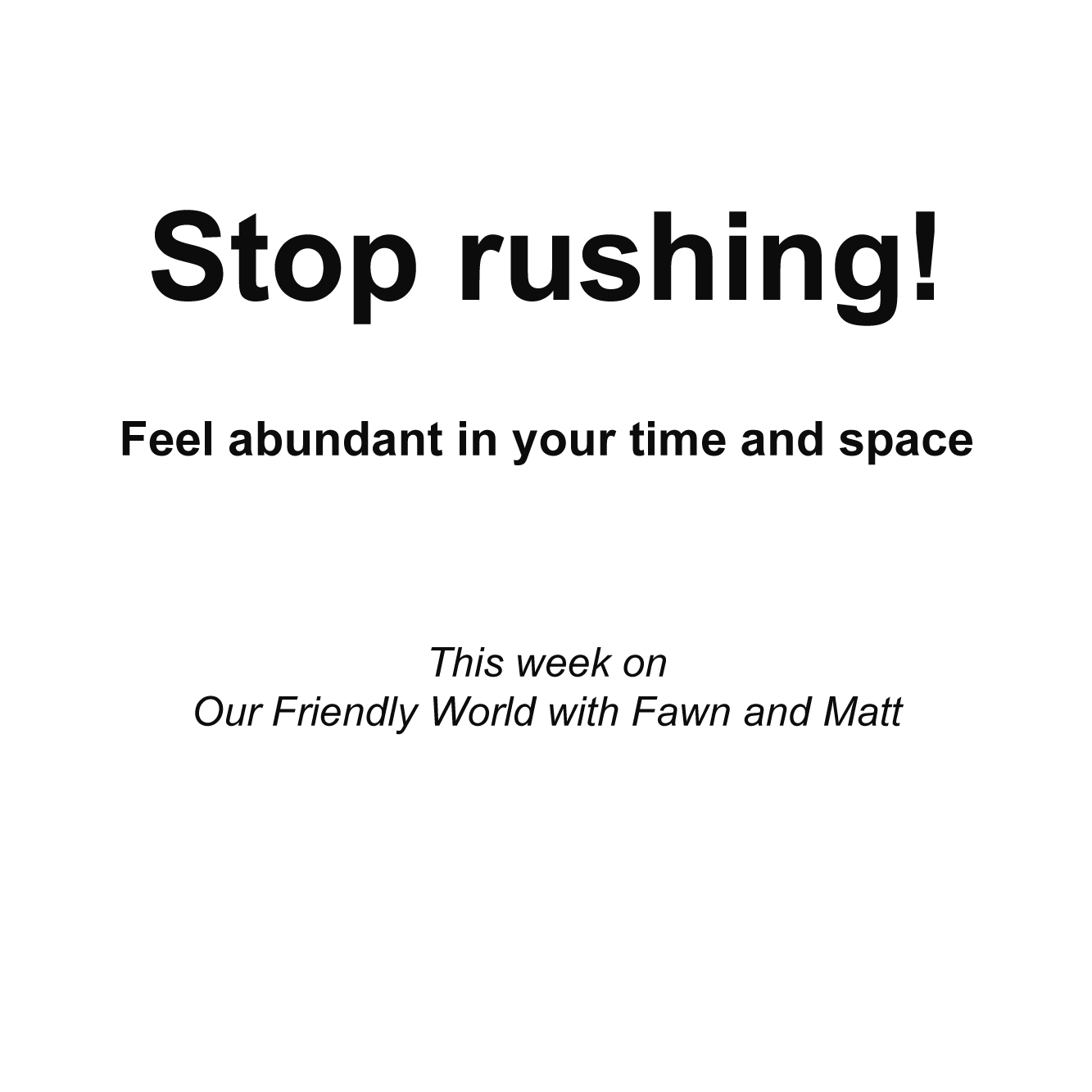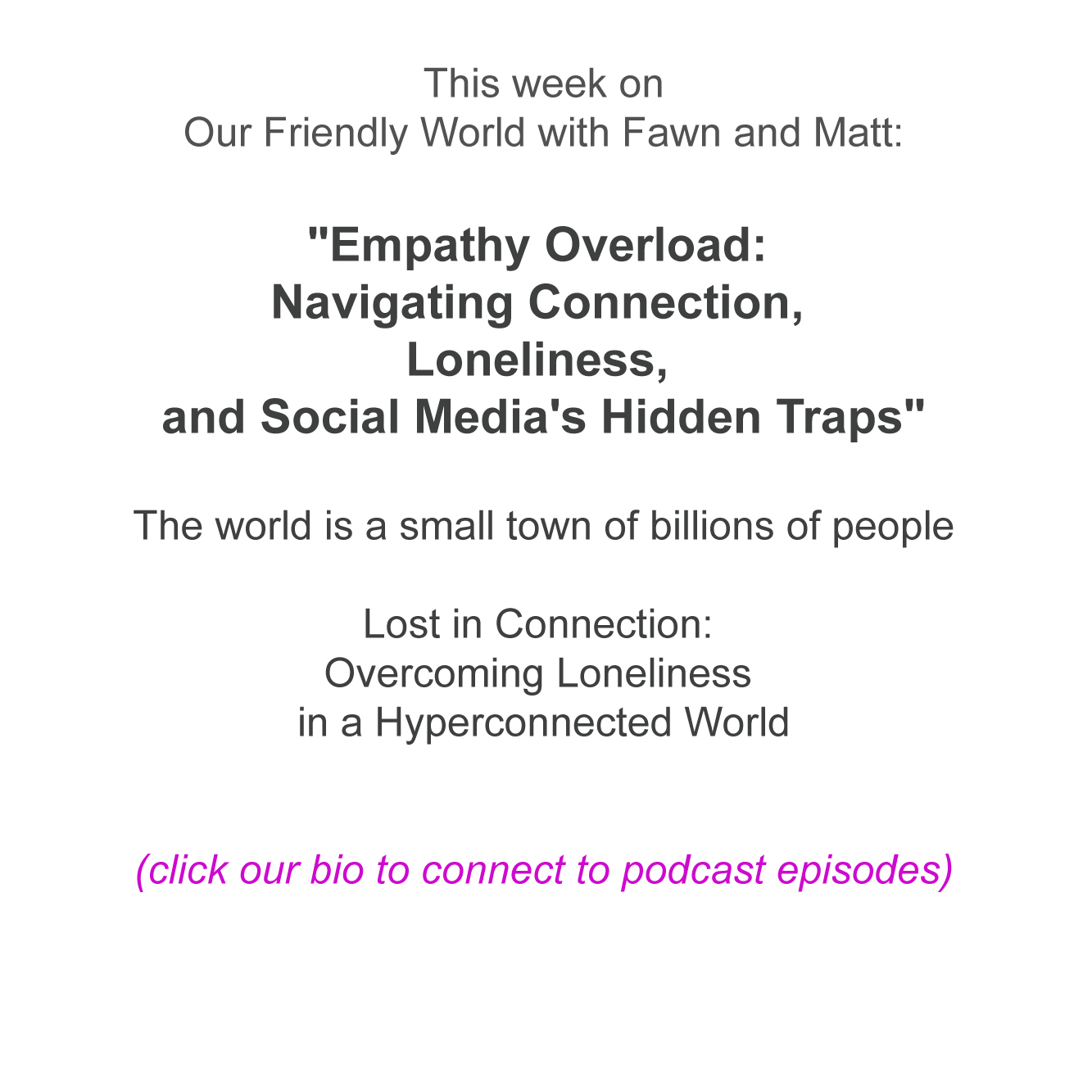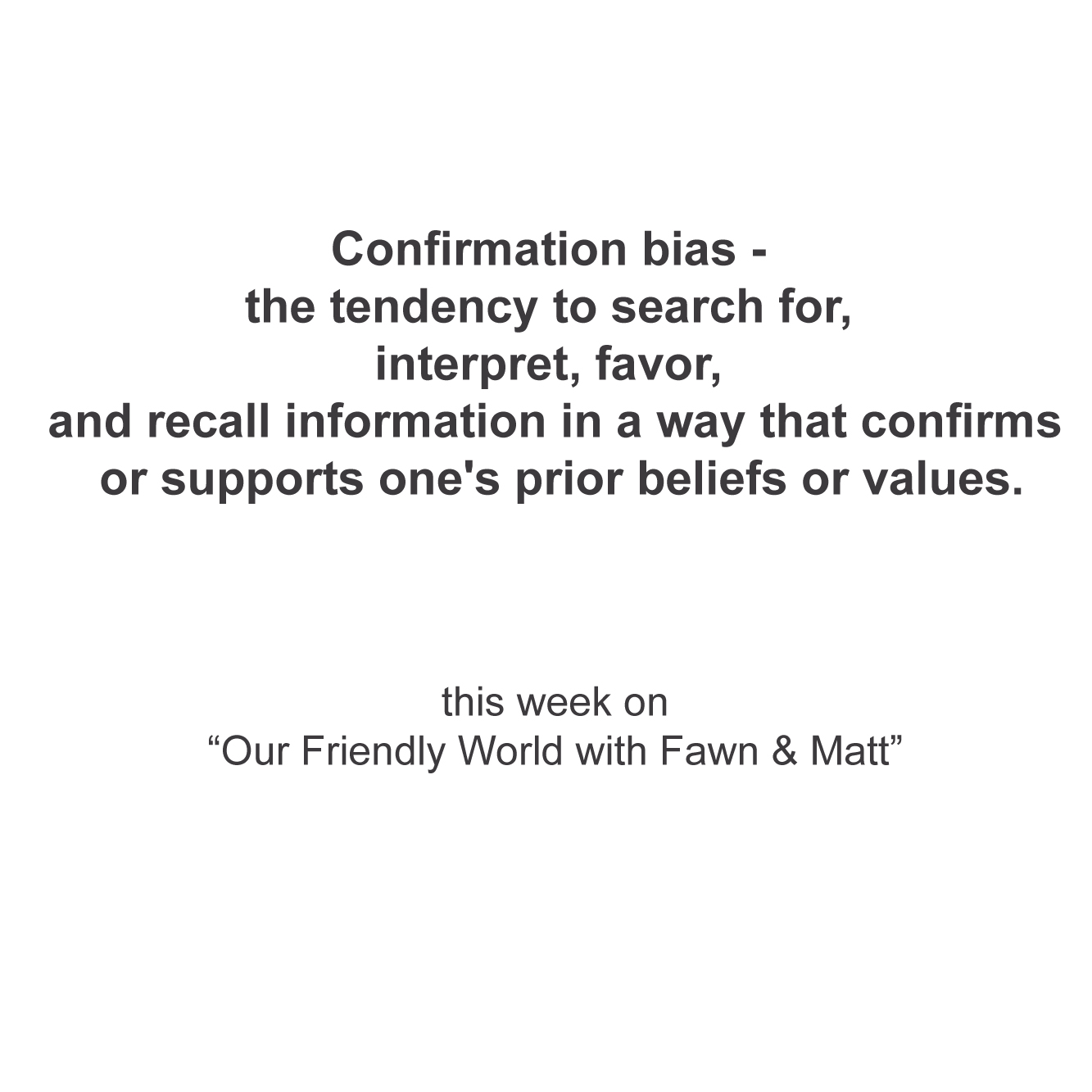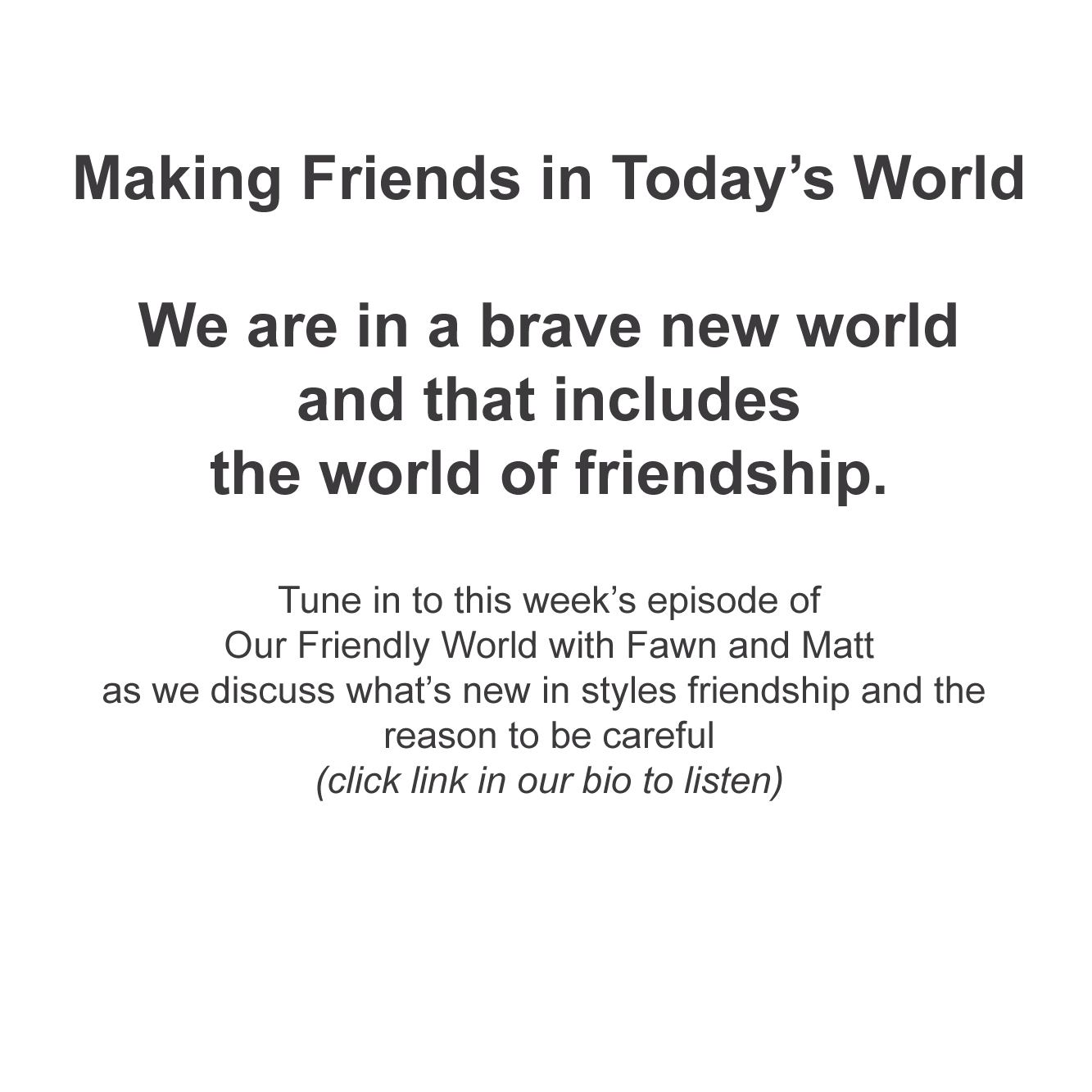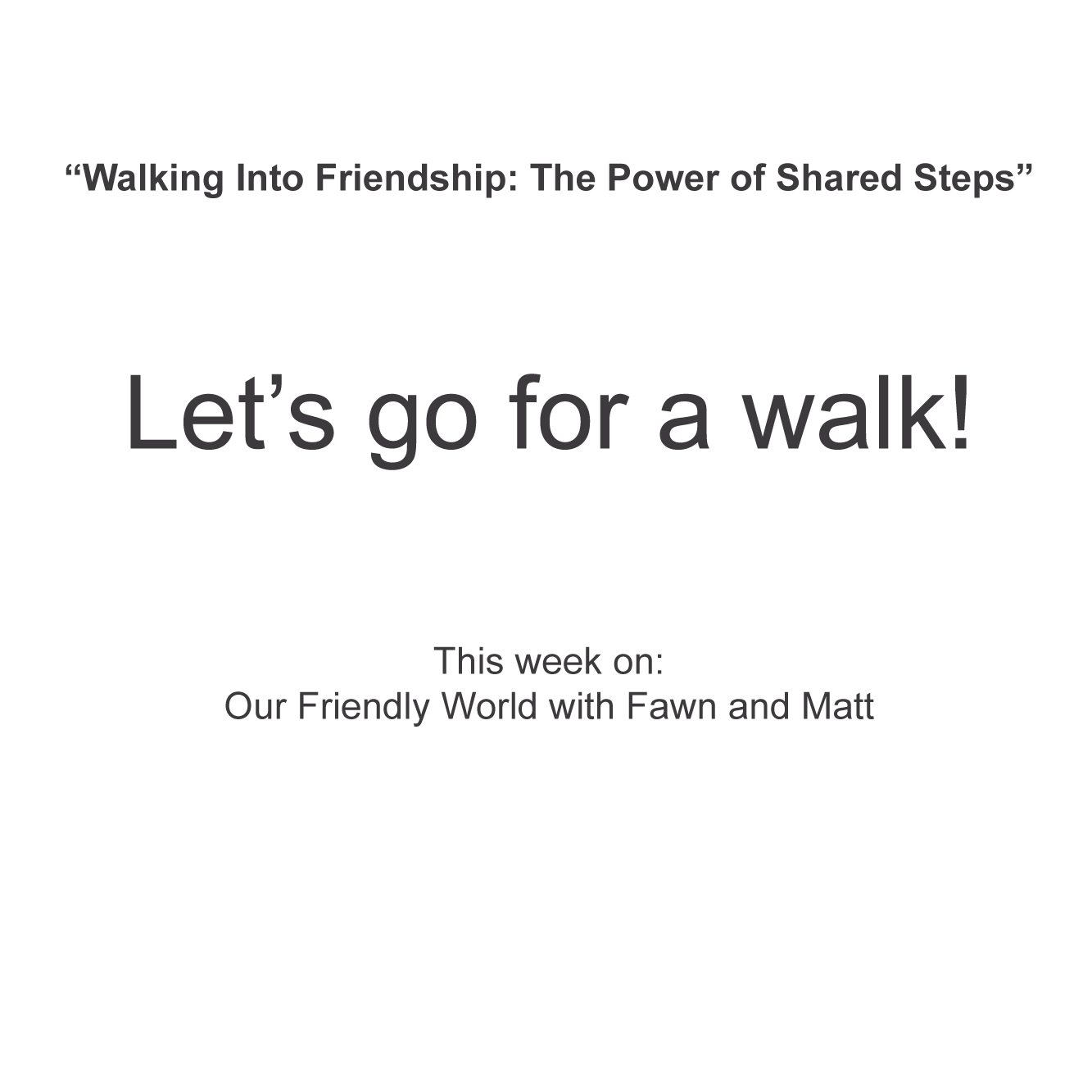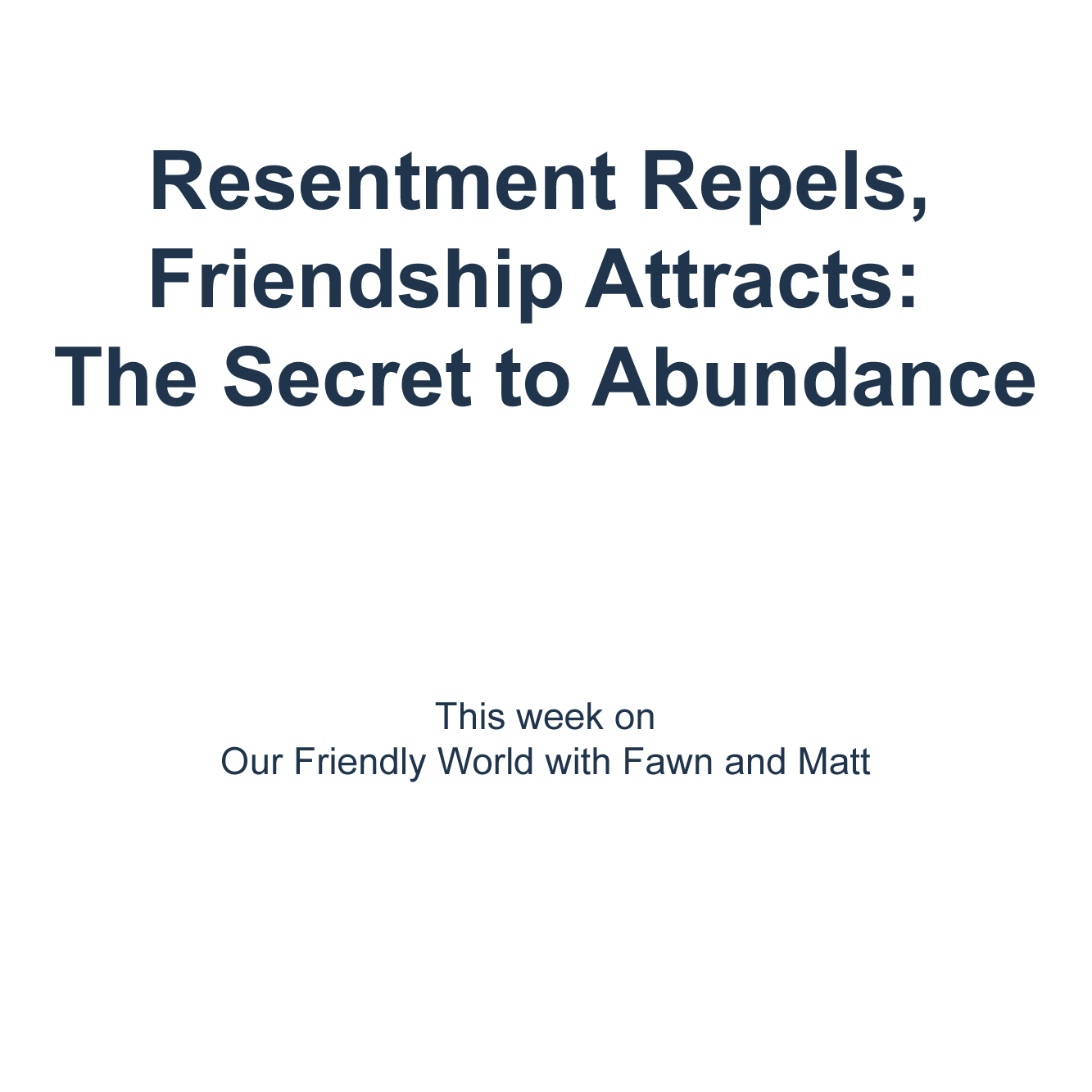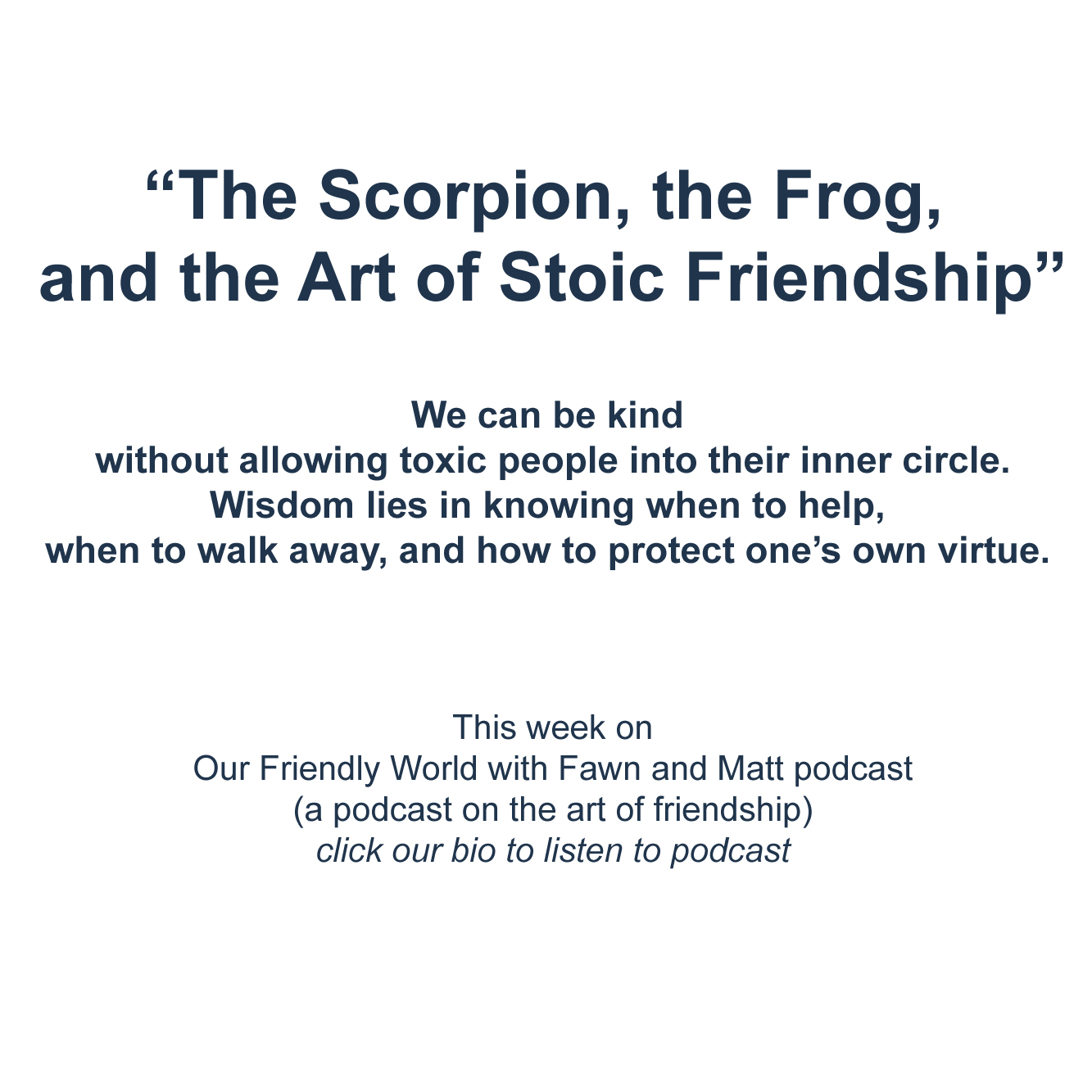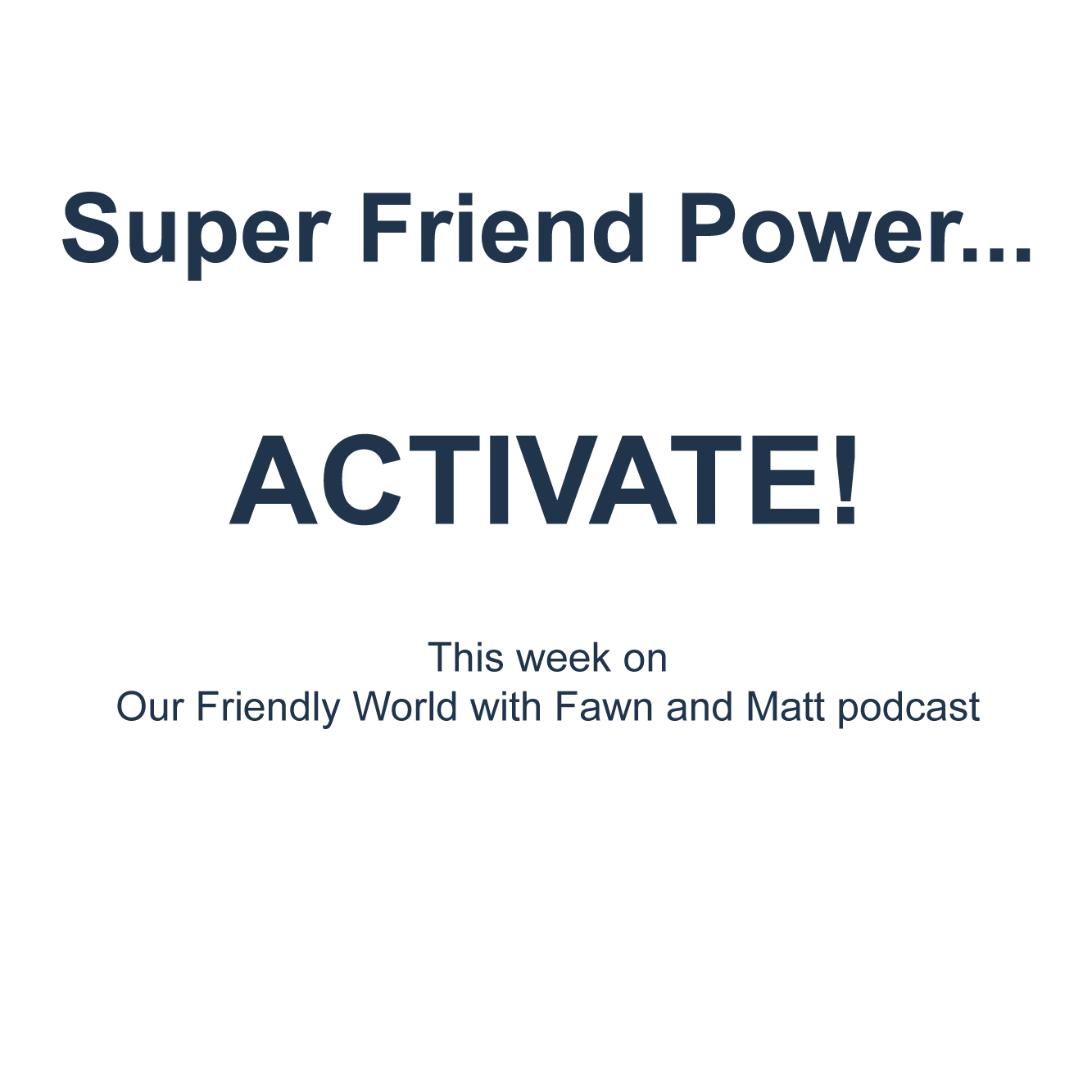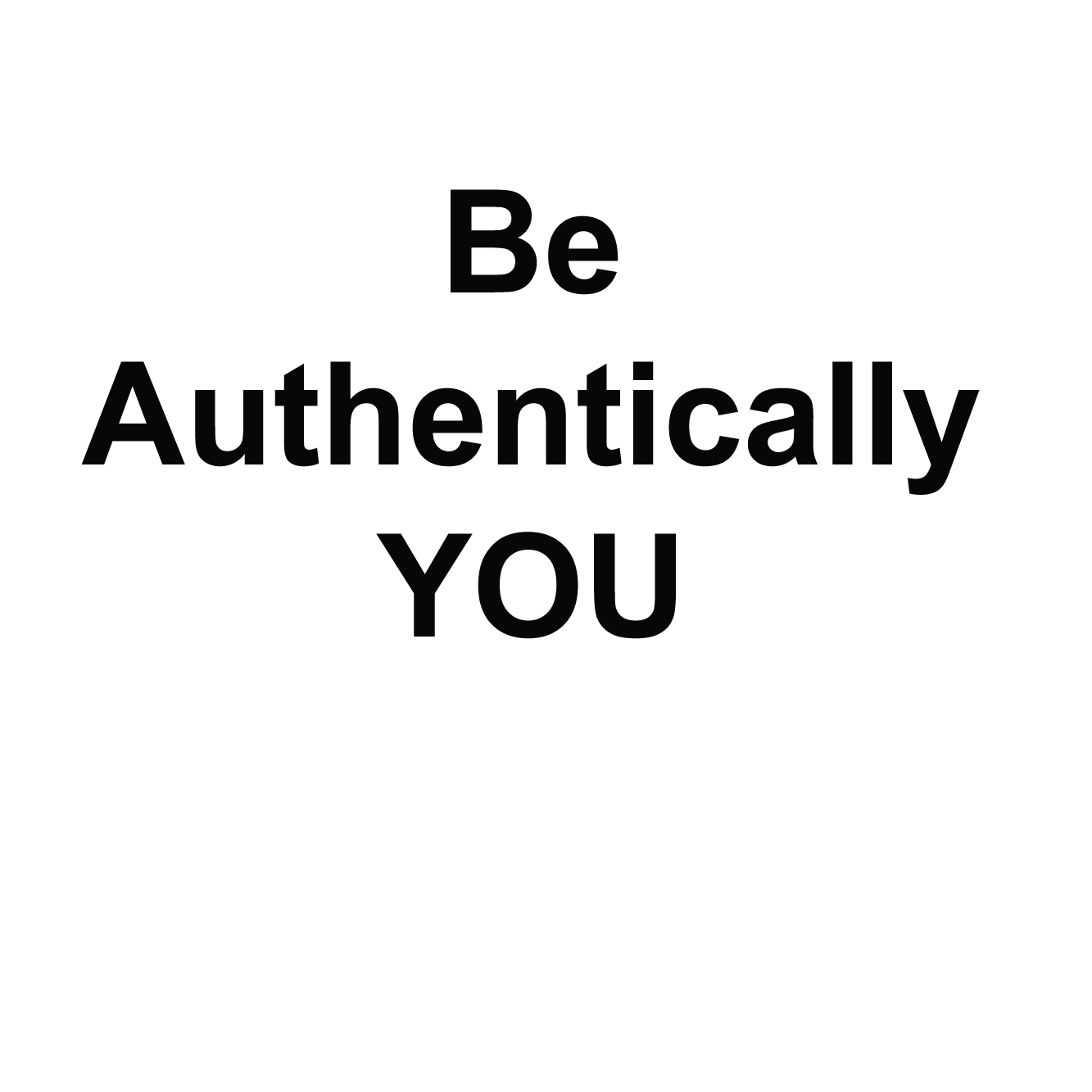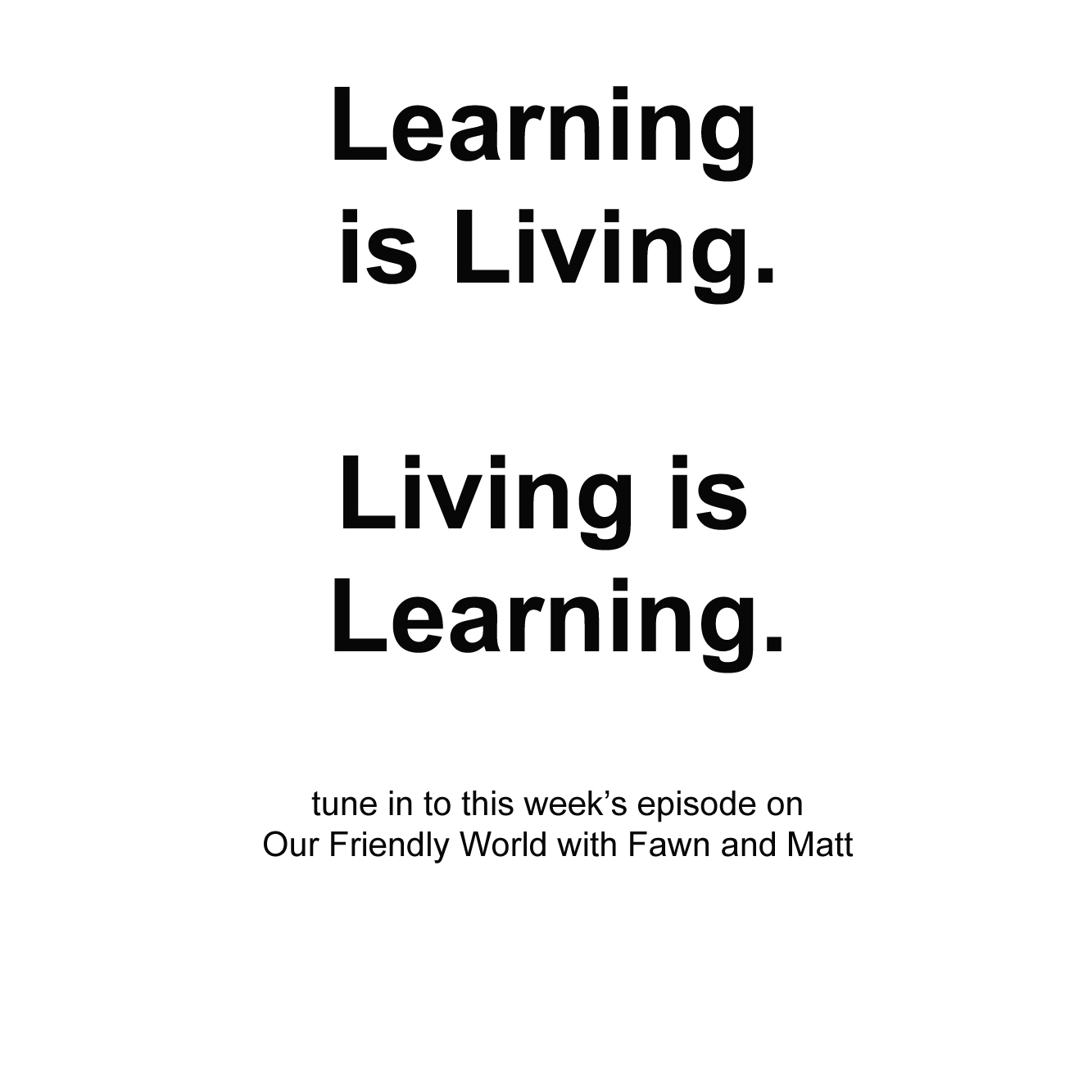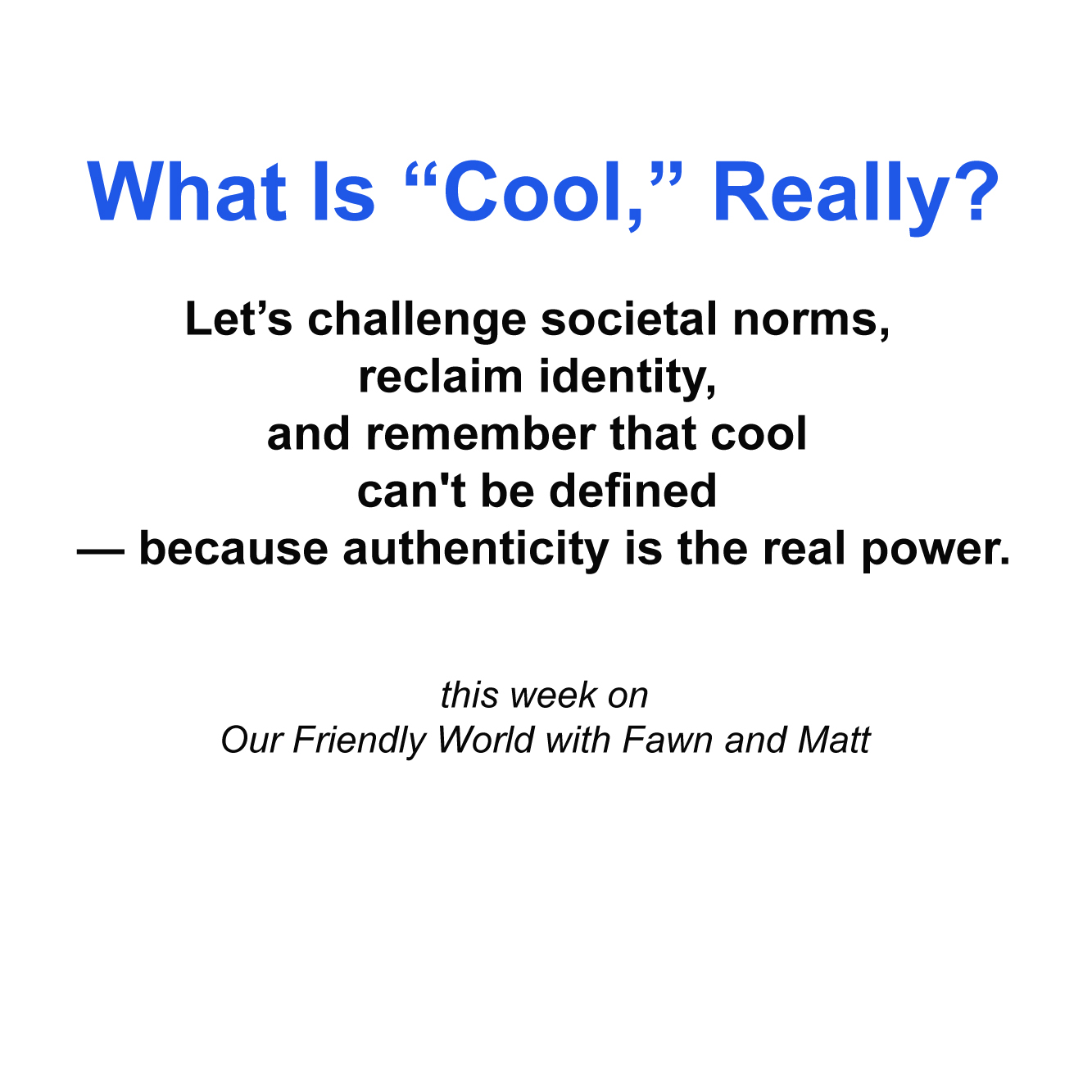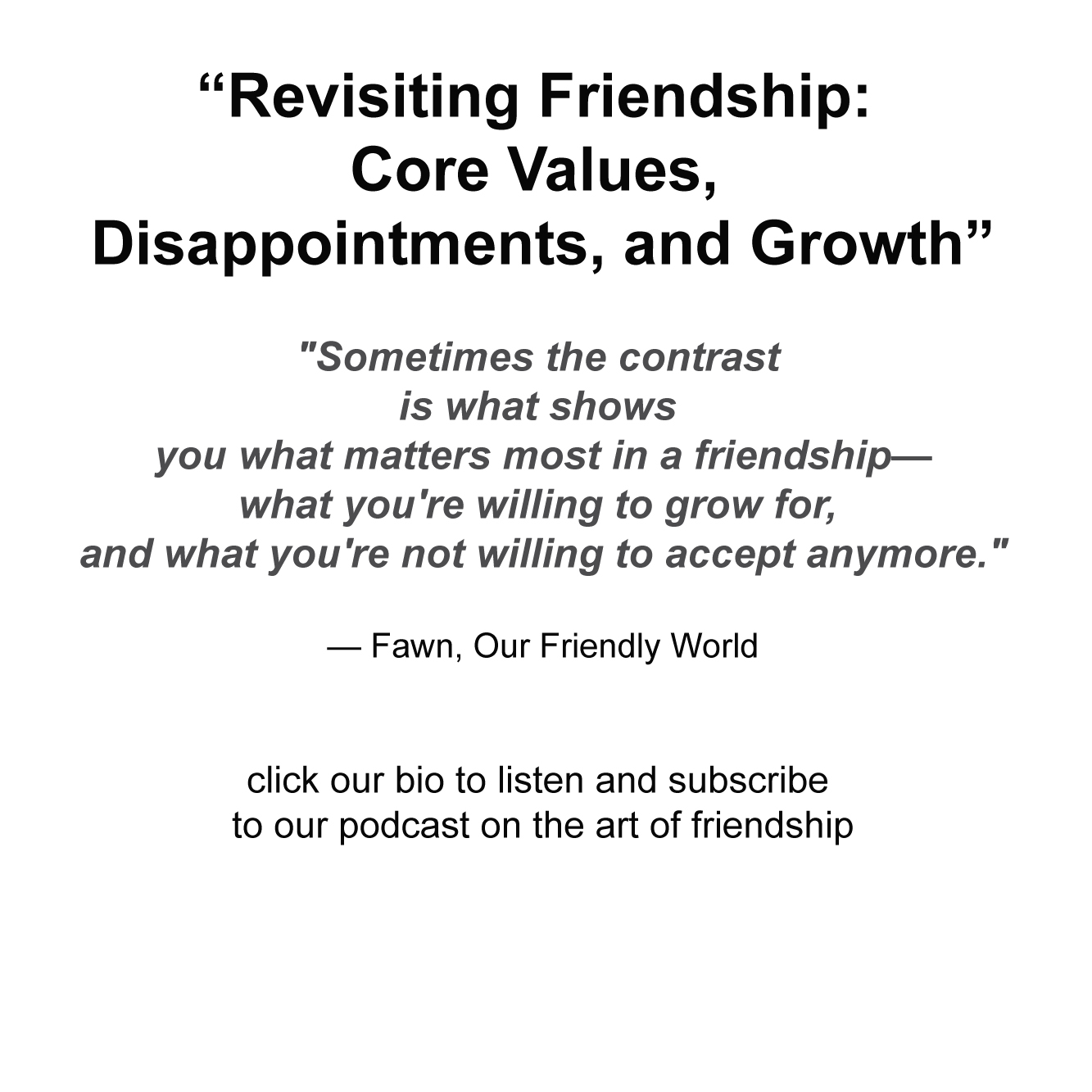"When Boundaries Break: Navigating Friendship Challenges and Personal Growth"

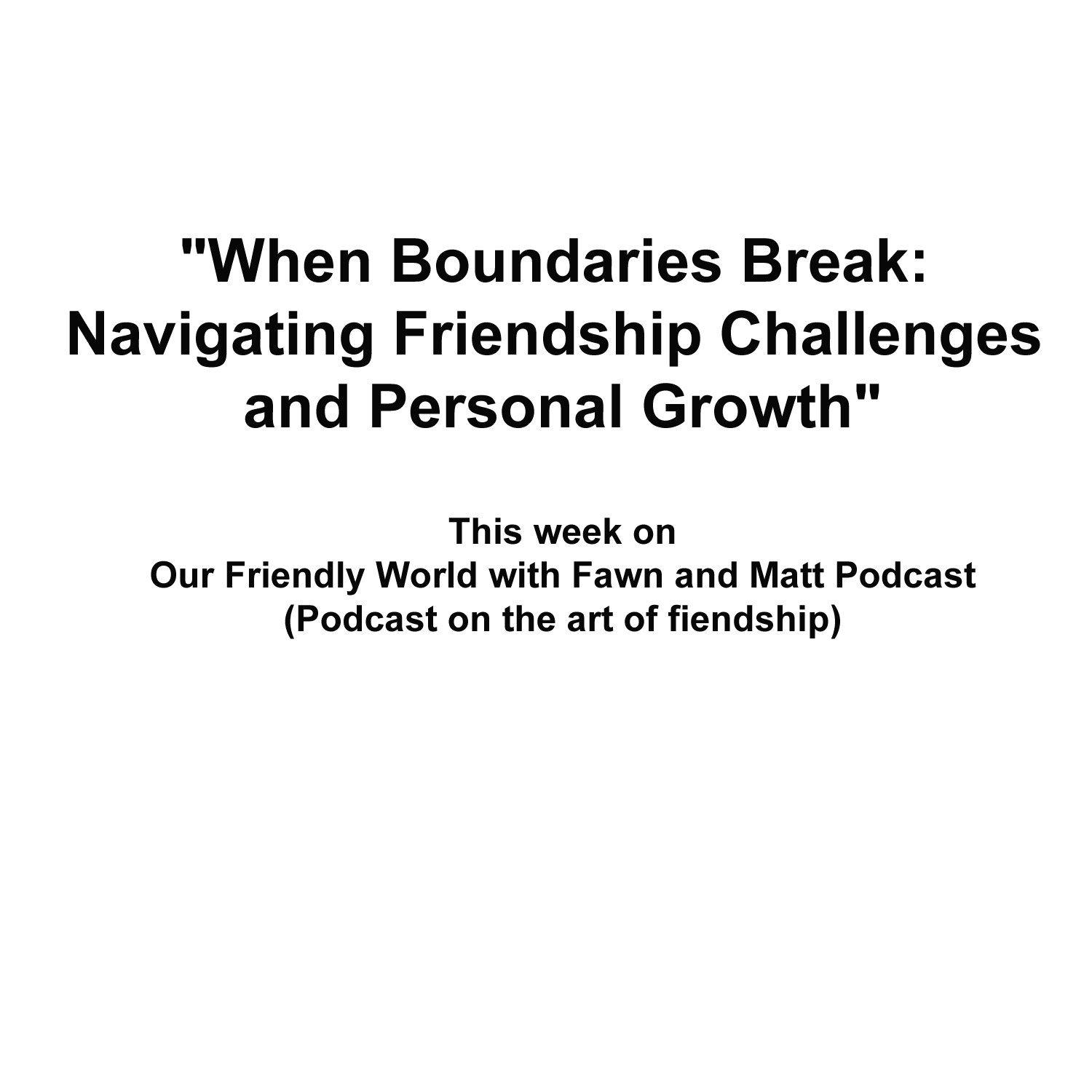
"When Boundaries Break: Navigating Friendship Challenges and Personal Growth"
In this episode of Our Friendly World, we dive deep into the complex world of boundaries and how they impact our friendships and self-worth. Fawn shares personal stories of navigating difficult situations, where her boundaries were tested, leading to heartbreak and valuable life lessons. With insights from close friends, the discussion explores how to establish and maintain boundaries, the importance of self-respect, and the courage it takes to stand up for oneself, even when it means risking being seen as the "bad person." Tune in for an honest conversation on the challenges of protecting your emotional well-being while nurturing healthy relationships.
This episode revolves around the theme of boundaries in relationships and personal interactions. Fawn and Matt discuss their experiences and insights regarding how boundaries are tested, the challenges of maintaining them, and the importance of asserting oneself without feeling guilty or being labeled negatively. They share personal anecdotes and draw parallels to broader philosophical and practical implications, emphasizing the need for clear communication and self-advocacy in navigating various social dynamics.
#HealthyBoundaries, #FriendshipChallenges, #SelfRespect, #EmotionalWellbeing, #PersonalGrowth, #LifeLessons, #PodcastCommunity
Boundaries, Friendships, Self-Worth, Emotional Health, Personal Growth, Conflict Resolution, Relationship Dynamics
"When Boundaries Break: Navigating Friendship Challenges and Personal Growth"
In this episode of Our Friendly World, we dive deep into the complex world of boundaries and how they impact our friendships and self-worth. Fawn shares personal stories of navigating difficult situations, where her boundaries were tested, leading to heartbreak and valuable life lessons. With insights from close friends, the discussion explores how to establish and maintain boundaries, the importance of self-respect, and the courage it takes to stand up for oneself, even when it means risking being seen as the "bad person." Tune in for an honest conversation on the challenges of protecting your emotional well-being while nurturing healthy relationships.
This episode revolves around the theme of boundaries in relationships and personal interactions. Fawn and Matt discuss their experiences and insights regarding how boundaries are tested, the challenges of maintaining them, and the importance of asserting oneself without feeling guilty or being labeled negatively. They share personal anecdotes and draw parallels to broader philosophical and practical implications, emphasizing the need for clear communication and self-advocacy in navigating various social dynamics.
#HealthyBoundaries, #FriendshipChallenges, #SelfRespect, #EmotionalWellbeing, #PersonalGrowth, #LifeLessons, #PodcastCommunity
Boundaries, Friendships, Self-Worth, Emotional Health, Personal Growth, Conflict Resolution, Relationship Dynamics
Boundaries
MATT: [00:00:00] Okay.
Fawn: Okay. Hello. Hi everybody. So we were, we've been talking about making friends with opposites, correct? We have. And I think what happens is, what I've been going through anyway that I'll use as an example, so I'll be the guinea pig, what can happen is the following. That your boundaries will be tested, correct?
I mean, that's that's a really simple way to put it. I guess of course
MATT: Can you imagine if you became friends with somebody who you know ate let's say completely different food than you do and invited you over for lunch, you know It's just one of those things boundaries weirdness, whatever you want to call it will be tested
Fawn: so the last couple of months my boundaries have been tested and I was having so much trouble because it was truly Breaking my heart like it was painful, you know people that I thought like one person that I thought was a friend That once again, I was like, oh, yeah, the kids could have an auntie [00:01:00] You know like and it turned out to not be the case at all.
It was a freakish Train wreck of a situation friendship wise, you know, it was, it was sad, you know, I'm still, to this day, I'm like, every time I go to the store now, I'm like, Oh, am I gonna run into her? And I have to be like, on guard. And I hate doing that, right, you know, um, and also the other one was our neighbor that I , I ended up , getting into it with
And as I was crying about all these things, I had two friends who have known me for decades give me some wise information. And since they've known me for decades, they pointed out my family dynamics. I was always the person who didn't want to make waves, no matter how people were treating me, no matter what kind of situation I was in.
I did not make waves, I did not lower to their level of [00:02:00] fighting back, I never wanted to fight back, verbally, in any way, right? And so, I left, so we've been, like, I had to cut off family, and not just one section of the family, like, all these family members, some of which are really cool. No, all gone, right?
So, I thought that I dealt with that. But, We have another friend who was also on our podcast some years ago who said how you start something is how you finish something. what that means is, for example, let's say you hate a job and you leave that job. Make sure that you leave in your own spirit on a good note.
And you do that by, thinking about all the things that, you should be grateful for. And make sure there is no charge on anything, that you don't have a charge on anything. And what that means is, a memory comes up regarding that situation, if your mood changes and you get, Very intense feelings, that means you have a charge on it.
So you do whatever you have to do pray it out Talk it [00:03:00] out. Do whatever you need to do to take that charge out of your spirit that's when you get clear and I thought I did that pretty much But I think that we do get the same lessons coming up in different ways until Until it's for sure that you've mastered Whatever that is You've mastered that charge.
You've mastered that situation. That relationship. The dynamics of that relationship, I should say. And so with me, if I can use myself as an example, there were no boundaries. I did everything. I bent over backwards. I let things go that bothered me, that these women would say, do. I just, um, you know the term is, water off of a duck's back, right?
Yes. Is that the term?
MATT: Yeah, that is.
Fawn: I lived like that, but deep inside I think it was really bothering me. And so, these two friends pointed that out, and [00:04:00] in my particular situation, I never wanted to look like a bad person. Because growing up I was told, you're a bad person. So, if I did stick up for myself, or I did disagree, then they would say, See?
Precisely why you're a bad person. And I never, I never thought about it like that until my two friends who've known me forever mentioned that. That, that's what I'm afraid of. And so, what if someone calls you a bad person? You need to draw your boundaries and say you can't do that to me. I'm not allowing this situation.
I'm not going to partake in this situation. I'm not going to invest in this situation.
MATT: Your emotional currency.
Fawn: And actually speaking that, actually verbalizing that.
MATT: Right. Now keep in mind it can be very important. It is extremely important to have advisors, to have friends, who are not emotionally connected to what you're going through because then they can take a look at things more objectively.
That's, that's problem number one, [00:05:00] for sure, for certainly. And yeah, nobody wants to look like a bad person. That's one of my favorite techniques at work to get somebody to do something they don't want to do is to make everything seem reasonable and rational, even though I know they don't want to do it.
Like, do you think you can get this done by the end of next week? Well, if you say no, then you're being a bad person. So I'm manipulating you. Even though If I ask you, hey, when can you have this done, you would say, oh, I'll have it done by the end of the week. Oops, I couldn't get it done, let me see, oh, let me try next week, uh, let me try week after, and you would keep stalling me.
That's why I give you one deadline, Dave. Because you don't want to seem like a bad person, so totally.
Fawn: And then when you do say something, it seems like, ooh, it's coming out of the blue, like, where'd this come from?
MATT: Right. Yeah, and, and, yes, and that's the other point. And that, that's
Fawn: the pitfall of waiting.
That's the pitfall of not saying something immediately.
MATT: Or, and that's also the pitfall for me, oftentimes, because I'll be subtle about things. And sometimes, people, [00:06:00] people want to see what they want to see, shockingly, right? So, if I'm being too subtle, they're like, Oh, I'm, maybe I was imagining it, or, you know, literally they don't hear me.
They don't
Fawn: hear you. They
MATT: literally don't hear me because I'm being that subtle. It should be a very gentle, guiding thing. Simplicity itself, you know, what, you know, what, what are you planning on working on this afternoon? Oh, huh, hadn't thought about that. Boom. Let it go. And then all of a sudden, before you know it, nobody's doing anything.
Fawn: Yeah.
MATT: I'm talking business. I'm talking work wise and you're talking friend wise. I know, but it is a similar problem.
Fawn: It is. It is a similar problem. It's the same. It's the same issue. Not being heard and that's one of the keys to friendship is being heard. Yes, right Yeah And so when you're not being heard because you're trying to rein in all of your emotions Inside of you and keep them there because you don't want to look like a bad person or you don't want to look ugly Right, right.
You're afraid [00:07:00] to look ugly and that's one of the things we talked about a long time ago. Remember you taught us how The people that that ended up dying in a fire Yes. Are the people that were too timid to break something. To break the window
MATT: to get out. Right. Cause they didn't want to. Oh, cause that's bad.
Cause that's always bad. Well, except if you're about to die, then all rules kind of go out the window.
Fawn: And it also reminds me of what you told me about Osensei. So Osensei is, um. Morihei Ueshiba, the founder of Aikido, the martial art that Matt and I practiced together, that we met in the school together.
Um, didn't you say that he, first of all, this was like the most peaceful man, he was, was he a samurai? What was he, no, he fought in the war. he was
MATT: in the war and he, killed people and he Became a master of the spear and he taught he trained did combat training for people [00:08:00] and after the war He was like what his entire world was utterly rocked shocked and he threw down his sword and wished it could be a plowshare Yes,
Fawn: and so he devoted everything to peace Yes, which is Aikido the way of the way of peace right the way of harmony with the universe
MATT: But everybody shortens that to peace
Fawn: So, the thing about this guy is when you look at him and his teachings, you're like, oh, the most peaceful person.
But then you would tell me, Matt, how , he quite often would have, what, how would you describe it, like, he would get so upset and start, not a tantrum, what's the word for it?
MATT: He would get pissed.
Fawn: He would get pissed and cause a scene over 25 cents. Or like, if he felt like someone was, was ripping him off.
Right, Denny? Like, can you tell us the stories of how,
MATT: Well, the one I remember is, uh, basically what all, what all came down was that, somebody didn't put his luggage where they needed to put it on the train. And so he couldn't find his [00:09:00] stuff. And he went off on his, and his disciples heard him go off on this poor porter, right?
And the disciples were just like, Oh, And he said, and this is the quote, If you're looking for God, he is not here. Meaning, pointing at himself.
Fawn: Not right now anyway
MATT: People are people and people have We're a jumbled mess of emotions and past experiences and all sorts of craziness that have to get sorted out.
Sometimes I wonder how, two people can even become friends. You know, just with all the, all the stuff we carry with us. I mean, kindergarten, sure. Great. You know, Hey, let's play simple. But you know, But
Fawn: no, still horrible because there's so much going on. Things
MATT: get more and more kind of off centered as time goes.
Fawn: Guys, I did something terrible in kindergarten.
MATT: Yes, you did. My family knows. We're not going to talk about it. But let's not talk about it. I'm scared. I don't want to talk. I hate talking about that. I'm so sorry. Makes me look at you look cross eyed. Anyways. But [00:10:00] that's just it. I've actually been Recently reading a book that we're gonna be theoretically, hopefully talking about on the show soon.
Fawn: Next week! Next week we have Chaz Ebert on. The,
MATT: Key, , one of my many takeaways that I'm pulling is don't accept blame. You need to accept your responsibility for your part in it, but you do not accept blame. Blame is like this whole, like, carte blanche, like, it was all my fault.
Fawn: Yeah.
MATT: No, don't do that.
Fawn: That's what I do.
MATT: Responsibility. It, it, it even sounds better than blame. You know, certain, we're not, bleh.
It's like, yeah, you need to just accept your part in the dialogue, in the drama, in the whatever it is. If
Fawn: you are constantly trying to accept all the blame and let things go away, it's Like we talked about we were talking about Muhammad Ali and the [00:11:00] quote about the pebble It turns out he was talking about something else, but we took it a different way He was talking about Totally something else, but we talked about it's a pebble in your shoe, right?
And sometimes you keep walking hoping the pebble will move over right right instead of just stopping and taking care of it immediately Oh my god, I forgot what I was saying Shoot, what was I saying?
Um, what was I saying? Well, what did you say? I said don't
MATT: accept accept responsibility but not blame I
Fawn: guess Um, wow, I totally lost my train of thought but I was saying Sometimes it's okay. It's okay to look ugly and you can't always have the facade It's okay. It's okay if you appear ugly.
MATT: Yes, and you need to forgive yourself in those moments you do look ugly. I've been looking ugly at work, and I've been getting called out on it all over the place.
Constantly what is said is, you are not wrong, [00:12:00] but the way you are saying it is bad. Explain
Fawn: why, though, you're saying it that way now.
MATT: Because I'm not being heard.
Fawn: Because they have, you, and I'm, my desk is right next to you. Every day you try to explain it in such a diplomatic way, and it's been months, and they're still not getting it.
And they're
MATT: still not getting it. And, you know, I'm getting back when I'm like, Maybe this person, you should get some help for them. Training, he said training. Training for them, because they're not doing, they're not performing the job the way they're supposed to. And I get back, they've been doing this for 20 years, so.
I, I think you're mistaken.
Fawn: Meanwhile
MATT: And I'm the one who hears it every day, and they're the ones who've seen their resume. And it's like, those aren't the same thing.
Fawn: And, and so what if someone has been doing something for 20 years? Technology is shifting so much. Every week! Every day! And
MATT: also We all
Fawn: need training.
There's
MATT: a big difference between having a one year experience 20 times in a row and having 20 [00:13:00] years of experience.
Fawn: Explain that.
MATT: You could do the same thing every year, year after year after year, and you're not growing. Correct.
Fawn: You're not keeping up with the world.
MATT: You're not, you're not challenging yourself.
You're not moving forward. You're just doing it the way you did it before because it was good enough.
Fawn: Right? I mean, even in voiceovers, the industry I'm in now. Things change all the time. You have to audition differently. They're looking, people are looking for a different sound. And if you're still doing voiceovers the way they did 20 years ago, Action,
MATT: action, action!
Fawn: No one wants that. No one, you know what I'm saying? Right. It's a different feel. You have to keep up with what the world is doing, with the outside world. You have to keep up, you have to learn what's going on. Again, this goes back to opposites, right? You have to understand what is happening, Action.
Somewhere else.
MATT: Outside of yourself.
Fawn: Outside of yourself. Yeah, exactly. So what happened with me was, I just [00:14:00] exploded and turned ugly on a friend next door. Because the boundaries, like, it was too much and all of a sudden I was like, she crossed the line. She crossed the line by offending Matt. To his face.
Bad enough. If you just Do that to someone I love. But, it was so ugly. Then, I turned really ugly. And I um, I waited for her to leave. We were still in our yard. But I started talking out loud. About the BS. Like, this is BS. Terrible this F this, you know, and she comes walking back saying keep your voice down You can't talk like that.
And then I started yelling. I will do whatever the F I want get out of here
MATT: And she wisely retreated
Fawn: she did thank goodness, but honestly And now I hear that she doesn't know what she did [00:15:00] wrong. Right. Right? Oh, here's what I was going to say before, and now I remember. Sometimes things appear
easy to other people. They're like, Oh, you just have to forgive. Simple. Just forgive. Well, you can't do that. That's actually not healthy. You, there are other steps you need to take before you go into loving kindness when someone has done you wrong, right? Because your body knows it's still holding the trauma of what happened, the misdeed.
You have to get that out of your system first. You just suddenly can't forgive,
MATT: And that, that's a big part of why I'll go for a long bike ride, because it allows me to just shuck off anything that I'm feeling.
Fawn: You need to process it, and you know, I've talked about this before, but there's um, there's someone I like.
His name is Dr. Mario Martinez, and he studied Tibetan monks, you know, these [00:16:00] monks have had. They have had their families, their friends killed in front of them. And they went straight to loving kindness, forgiveness. These monks have the highest case of diabetes around the world.
These are fit men that are vegetarian and, you know what I'm saying? Right. Like, why do they have the highest case of diabetes? Right. Like, they're not drinking like.
MATT: Fishes and eatin Big Macs.
Fawn: So he explains it in such a beautiful, scientific manner about how the body works. And it's because we are holding on to that resentment.
We are holding on to something that hasn't been processed. It went straight to forgiveness. So that needs to occur. Right. Also, you brought up the issue of taking responsibility.
MATT: Mm hmm. Wow.
Fawn: Wow. I mean Yeah, I'm one who will blame myself for everything.
MATT: Maybe the responsibility is 5 percent of the engagement.
So what does
Fawn: that mean?
MATT: Meaning [00:17:00] if you want to play the blame game, I'm responsible for 5 percent of what just happened, but I am not responsible for 95%. And I am not responsible for them saying those words to me, if that's what the case is.
Fawn: And it's okay for you to express yourself and look ugly to say this is not okay.
I think so many of us listening, and I think most of the world does not live this way. Most of the world is more narcissistic, I think. But, I feel like, Our friends listening and us we're more like the opposite. We take responsibility for everything. We take the burden of everything We're super empathetic, you know Super forgiving don't want to cause any waves just want things to be peaceful and
MATT: by and large I think most people don't want to cause waves.
That's the other thing
Fawn: I think a lot of people just want things the way they want them and I think the issue is that You could look at a situation from afar if you really don't know what's going on and say well [00:18:00] They just need to get over and make up. Okay, and just make peace. However, if someone is Threatening you you need to take that seriously.
MATT: Yes.
Fawn: All right, you can't just forgive that you need to take action You need to take care of things, right? And I think a lot of us Because we don't want to look ugly or we want to be friends Friends that We don't establish those boundaries and, like Aikido, like, have a circle about you that, Hey, you are not allowed here like this, alright?
And you need to make that clear. And perhaps we need to turn up the volume a little bit in the beginning as things happen, so people don't get so shocked and surprised and appalled because we said, Hey, you can't do that. Like I said, then they get all offended. They're the ones getting offended. And you're the one who has been getting all the bad treatment this whole time.
Right. Which then makes you feel even more [00:19:00] crazy and terrible and end up feeling, you end up feeling like you don't want to be friends with anyone ever again or work with anyone ever again because it's such a terrible, gross situation.
MATT: Right. Right.
Fawn: So anyway.
MATT: So anyway! The
Fawn: pitfalls of, you know, being friends with opposites, or dealing with opposites, or, or the whole thing of going to something that's outside of your bubble, and the thing is that Certain things try to pierce your bubble.
Yes. So either way, we're in life, and it's going to happen. Either it gets pierced sometimes, or you try to expand your bubble, and you end up touching things that are a little uncomfortable. So we're here to let you know you're not alone in that.
MATT: And, you know, honestly, communicate. Communicate, communicate.
So communicate. If you're hanging out with a friend and, you're going off and doing something you wouldn't normally do and let them know this isn't a place I'd normally go.
Fawn: Or just um
MATT: Or a [00:20:00] thing I would normally do. It's a muscle. So let's check it out.
Fawn: It is like a workout. Like I had a friend who reached out to me and said, Oh, can I have your kid's phone number so I can talk to them?
An adult wanting to talk to our littlest one about, you know, whatever. And I said, no, that's not okay. You can talk through me.
MATT: There you go
Fawn: But I could tell she was taken way back Meanwhile, she's the one of the people that when the kids get invited i'm never invited to their house like i'm sitting there outside Like there is a boundary with me even at the library like she's allowed to go into a certain section where the kids are But no other person is i'm always left out.
So the one time i'm like no You cannot Have my kid's phone number if you want to talk to my kid You can you can do so through me right about this situation. Do you know what i'm saying?
MATT: Yeah, don't be afraid to be a [00:21:00] bad, but don't be afraid to look like a bad person,
Fawn: right? Or ugly
MATT: just be you
Fawn: but you know, I could tell like now it's all weird.
I'm like You're feeling weird. Meanwhile, it's been months for me,
MATT: right?
Fawn: I dropped off one of our kids at a slumber party. That was far away It was quite a drive get there have never met this person. Know this person, this family, through a friend. And when I got there, I went with a tray of cupcakes and everything.
Homemade, vegan, organic, like, beautiful, delicious. And the tray gets taken from me, barely a thank you. And I had to stand there and go, Can we come in? And she looked at me and she said no. So, of course, you know, our kid went in, but she said no to me. I don't understand that. And then that kind of personality gets mad at me when I say, Oh, no, I'm sorry, I don't want to give my child's phone number to you. You can talk to me about it.
MATT: [00:22:00] There's strangeness all around. I don't understand it. People have boundaries all over the place. It's about asserting your own boundaries without impugning on others.
Fawn: I just don't understand why they don't, when they have their own, like, huge walls and boundaries, that if I very gently say, oh, you know, no, I would prefer if you, actually I was very, like, soft about it. I said I would prefer if you um, actually, uh, went through me. Right.
MATT: And I know you were, but that's just it.
People see, people don't see problems in their own behavior, they see problems in others. Because what I'm doing is what I'm doing, and there's a certain belief that everybody holds on to, myself included, that what we do is morally right, and absolutely right, because I'm doing it. And unfortunately our brain's not wired that way.
We actually defend every action as far as it's moralistic sense after we do it. So we're always kind of in this self justification mode, but that's beside the point. [00:23:00] But the thing is, is we have a hard time seeing flaws in ourselves and typically it takes some very drastic stuff to cause us to see it.
Fawn: So the lesson for me that I've been working on, that I'd like to pass on is It's okay to, assert yourself. It's not only okay, it's necessary.
MATT: Very much.
Fawn: And it doesn't mean a blow up, it just means very kindly saying, Let me think about this. Um, no, I, um, I'm not, I'm not going to do that.
MATT: And I'm gonna work on figuring out how I can not be so gosh darn subtle or so gosh darn blunt.
And with nothing it feels like in between.
Fawn: I think in your situation you have to reiterate how you have been telling them and I know this because of our personal relationship because I've gone through this with you, too Because you're so subtle subtle subtle and then you're like, hey, I'm like, whoa
MATT: Hold on and
Fawn: then [00:24:00] you'll point out all the different ways that you have said it to me.
I'm like, oh Man, you're right,
MATT: but I'm too some it feels like I'm too subtle and then the sledgehammer comes Yeah, I gotta figure out how to pull out just the claw. You
Fawn: have to very gently go back And show them the receipts of what you said. And when you said it
MATT: I just have to not blow my top.
Fawn: I have
MATT: to figure out how to not blow my top.
And I'm not sure what that's gonna look like, but it's, you know, Life, life is a practice, basically. I'm still, I'm still working on being me.
Fawn: It's not easy.
MATT: It ain't easy being cheesy. Nope.
Fawn: Alright, that's us. For now. Have a beautiful everyday. Stay well. I took your line. You took my line gosh darn it.
MATT: No,
Fawn: you say it, you say it.
Be well.















